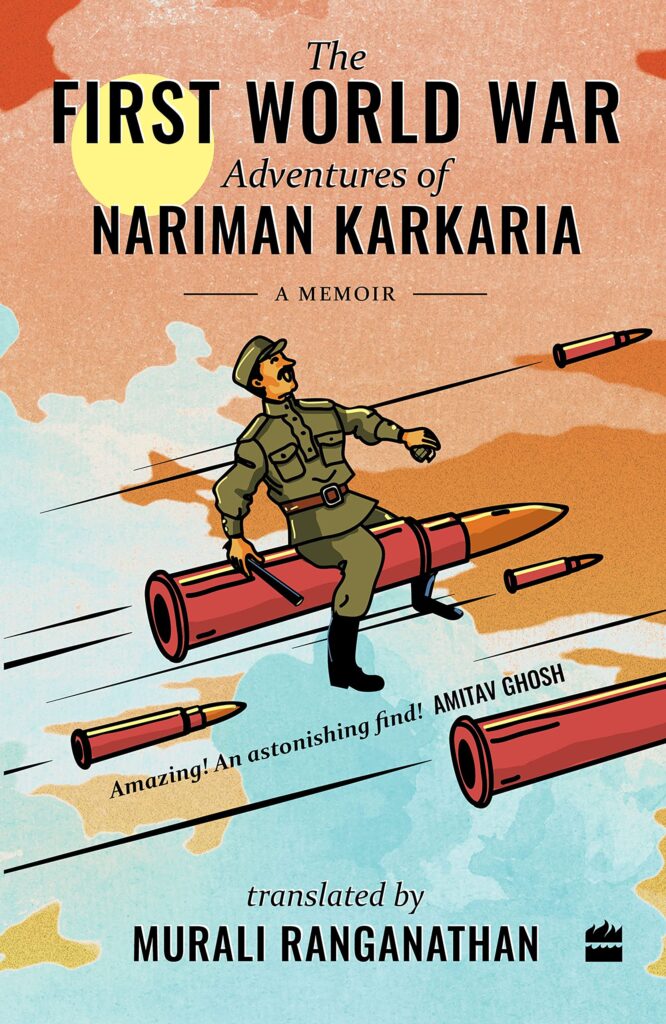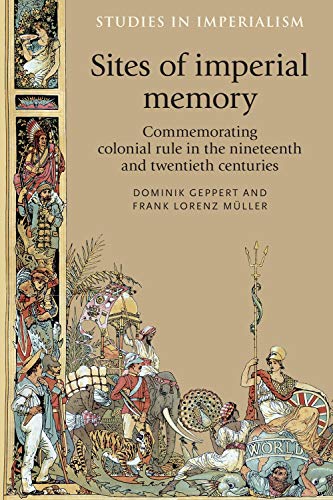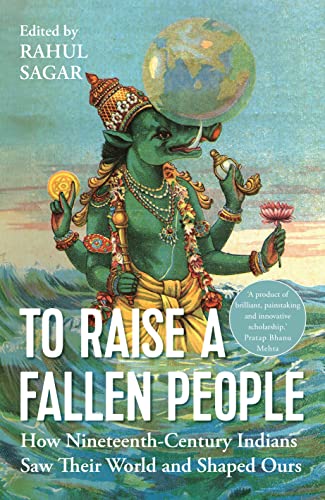ARCHIVE
An Indian in New York (1913-1916)

A young Ambedkar during his Columbia University days. Wikimedia Commons.
Young Ambedkar’s emerging academic understanding of caste was helping him give systematic expression to his many prior years of the lived experience of systemic caste prejudice. Alongside and as impetus to this were also his widening experiences regarding issues of race, class and gender. To some extent, this new exposure was a result of his coursework at Columbia. But much of this exposure came more concretely, from treading the streets of upper Manhattan and Harlem.
Describing his usual New York day, Ambedkar emphasized that the vast majority of his time, some 18 hours daily, was spent on campus, either attending lectures and seminars, or otherwise working in Columbia University’s magnificent and exceptionally-stocked Low Library. But he often ate off of campus, opting to eat only one meal per day to save both time and money. For food he spent on average $1.10 daily, which would buy him a cup of coffee, two muffins, and either a meat or a fish dish. He was on a tight budget. New York City living was not cheap, and he had to send money home to his family as well. But that was not all. His voracious reading habit, that had been cultivated in young Ambedkar within the shadow thrown by the Bombay-gothic tower of Elphinstone, had only grown stronger atop the grand staircase of the Roman-neoclassical library of Columbia. Ambedkar was now in the first stage of what would turn out to be a life-long obsession with collecting books. He spent all the leisure time that he had browsing Manhattan’s numerous second-hand book shops and sidewalk stalls, amassing a personal library of some 2000 volumes during his three-year stay.
The quest for books led young Ambedkar out of upper Manhattan down to 42nd street on Fifth Avenue, where the imposing beaux-arts styled New York Public Library had recently opened its doors, and opened them to all – including to black people and to women. So impressed was Ambedkar with the public library that upon learning of the death of Sir Pherozeshah Mehta in Bombay, and the Bombay municipality’s plan to prominently erect his statue, Ambedkar shot off a provocative letter from New York to the Bombay Chronicle, the English-language weekly that Mehta had himself launched in 1910. Ambedkar, fresh from another inspiring visit to the New York Public Library, argued in his letter that erecting a public library in Bombay instead of a ‘trivial and unbecoming’ statue would be a far better tribute to the memory of this great man:
It is unfortunate that we have not as yet realized the value of the library as an institution in the growth and advancement of a society. But this is not the place to dilate upon its virtues. That an enlightened public as that of Bombay should have suffered so long to be without an up-to-date public library is nothing short of disgrace and the earlier we make amends for it the better. There are some private libraries in Bombay operating independently by themselves. If these ill-managed concerns be mobilized into one building, built out of the Sir P.M. Mehta memorial fund and called after him, the city of Bombay shall have achieved both these purposes.
It is unfortunate that we have not as yet realized the value of the library as an institution in the growth and advancement of a society. But this is not the place to dilate upon its virtues. That an enlightened public as that of Bombay should have suffered so long to be without an up-to-date public library is nothing short of disgrace and the earlier we make amends for it the better. There are some private libraries in Bombay operating independently by themselves. If these ill-managed concerns be mobilized into one building, built out of the Sir P.M. Mehta memorial fund and called after him, the city of Bombay shall have achieved both these purposes.
The week following Pherozeshah Mehta’s death in Bombay, Booker T. Washington died in Tuskegee, Alabama. Washington, who had been born into slavery, was the most prominent Southern black activist of his day. As Principal of the Tuskegee Institute and author of a best-selling autobiography, Up From Slavery, Washington’s work and writings would have been well known to Ambedkar. Indeed, he would have heard his name prior to reaching America given that his patron, Maharaja Sayajirao Gaikwad, had long before taken to referring to the great social reformer Jotirao Phule, author of Gulamgiri (or, Slavery) as ‘India’s Booker T. Washington’.
The streets of upper Manhattan were beginning to buzz with a new black consciousness that expressed itself not only socio-politically – as for example with the writings and activism of W.E.B. DuBois and the National Negro Committee (which would soon become the NAACP) – but also aesthetically, with emerging literary, theatrical and musical innovations that would set the stage for the later Harlem Renaissance.
Besides his letter to the Bombay Chronicle, Ambedkar sent off numerous letters to family and friends in India during his stay in New York. The letters show that Ambedkar was as attuned to issues regarding gender as he was to those regarding race. One worth mentioning was addressed to a friend of his father, a retired Jamedar of the Indian army, also from the Mahar caste. In it, he implored the recipient – who was the father of a young girl gaining notoriety for having made it all the way to 4th standard in school, unheard of for a Mahar girl – to preach the idea of education to anyone from their community who was willing to listen to him. Ambedkar wrote that he should continue the education of his daughter, and that the entire community would progress more quickly if males and females were educated side-by-side, with no difference between them.
This letter, too, can be seen to reflect the environment Ambedkar now found himself in. For, alongside the emergence of a new black consciousness, New York City was also buzzing with the tireless activism of suffragists demanding the enfranchisement of women in America. And some of the most dynamic of these suffragists were young Ambedkar’s fellow Columbia classmates – and some, as luck would have it, turned out to be his favourite professors.
This letter, too, can be seen to reflect the environment Ambedkar now found himself in. For, alongside the emergence of a new black consciousness, New York City was also buzzing with the tireless activism of suffragists demanding the enfranchisement of women in America. And some of the most dynamic of these suffragists were young Ambedkar’s fellow Columbia classmates – and some, as luck would have it, turned out to be his favourite professors.
The summer just prior to Ambedkar’s arrival at Columbia, his soon-to-be classmate, Chinese-born Mabel Ping-Hua Lee was one of fifty horse-back suffragettes leading a procession of 10,000 people up Fifth Avenue to Carnegie Hall. Among those marching were Ambedkar’s future philosophy professor John Dewey and his future economics professor Vladimir Simkhovitch. In the spring of 1914, Lee published, in a campus paper, an article entitled ‘The Meaning of Woman Suffrage’, advocating for equality of educational opportunities and the economic liberation of women. In terms identical to those Ambedkar would himself utter frequently in his later speeches, Lee referred to ‘equality of opportunity’ as the essence of ‘democracy’. To her, feminism meant ‘nothing more than the extension of democracy or social justice and equality of opportunities to women’.
Lee, supervised by Simkhovitch, and Ambedkar, supervised by Seligman, were together enrolled in the course leading toward the PhD in economics at Columbia’s Graduate School of Arts and Sciences. Later, Mabel Lee would become the first Chinese woman to earn a doctorate in economics in the United States, just as Ambedkar was one of the first Indians (and certainly the first Dalit) to do so.
Vladimir Simkhovitch, apart from being Lee’s doctoral supervisor, was one of the world’s leading experts in socialist economics and Marxist thought. Ambedkar enrolled in his Econ 114 (Marx and Post-Marxian Socialism), Econ 303 (Seminar on Political Economy), Econ 109 (History of Socialism), Econ 242 (Radicalism and Social Reform), and Econ 119 (Economic History) – that’s five full courses on Marxism and socialism! At least for some of these courses, if not out of wider interest, Ambedkar would have had to have purchased some of Marx’s original writings; books by Marx must have been among the 2000 volumes that he had acquired while in New York. As we will later learn, the vast majority of these 2000 books never made it back with Ambedkar to India. Several of them, such as the writings of John Dewey, Ambedkar subsequently repurchased elsewhere. But curiously, we can find none of Marx’s books among Ambedkar’s extant library. It seems that his later experience with Brahmanical Indian Marxists so soured Ambedkar’s view of Marx that he never even bothered to replace his lost books.

John Dewey (left) and Edwin Seligman (right). Ambedkar’s professors at Columbia University.
One book that Ambedkar purchased in New York that clearly made it with him to India, as apparent from his inscription, was Mrs Rhys Davids’ Buddhism: A Study of the Buddhist Norm (first published in New York in 1912). This book focused on the most ancient, Pali sources of the Buddhist tradition. Ambedkar inscribed the first page in his hand, ‘Columbia Varsity, New York’, and then later on the right-hand side adjacent to it, ‘Bombay, India’. The book and its inscription both show a continuity of his interest in Buddhism, initiated by Dada Keluskar years before.
Of course, Ambedkar’s main focus of study, and the degree toward which he was working, was economics. The study of ancient Buddhism proved useful toward the first iteration of his Master’s thesis, entitled ‘Ancient Indian Commerce’, which may have first been written up as an original research paper for submission as a component of the MA examination. About 75 pages of this manuscript are extant, first covering the trade and commercial relations of ancient India with ancient Egypt, west and east Asia, and then the Greeks and the Romans. Ambedkar strikes a proud, nationalist tone in the work, citing sources to emphasize the superior science, technology and splendours of ancient India over ancient Europe:
It is in the orient, especially in these countries of old civilization, that we must look for industry and riches, for technical ability and artistic productions, as well as for intelligence and science, even before Constantine made [the Roman empire] the centre of political power. Nay, all branches of learning were affected by the spirit of the orient, which was her superior in the extent and precision of its technical knowledge, as well as in the inventive genius and ability of its workman.
It is in the orient, especially in these countries of old civilization, that we must look for industry and riches, for technical ability and artistic productions, as well as for intelligence and science, even before Constantine made [the Roman empire] the centre of political power. Nay, all branches of learning were affected by the spirit of the orient, which was her superior in the extent and precision of its technical knowledge, as well as in the inventive genius and ability of its workman.
Remember that Ambedkar was by now thoroughly familiar with the political, economic, and intellectual history of classical Europe and Ancient Rome, so his claims regarding ancient India’s technical superiority were not merely rhetorical.
‘Ancient Indian Commerce’ then goes on to treat of India’s commercial relations in the Middle Ages, covering industry, trade and commerce throughout the rise of Islam and the expansion of western Europe. The next couple of chapters are missing, and the extant thesis ends with a chapter entitled ‘India on the Eve of the Crown Government’. In this chapter, too, Ambedkar exhibits a fierce nationalism, excoriating British imperialism and taking to task historians of British India who misrepresent the achievements of India prior to the arrival of the British: ‘Not only have they been loud in their denunciation of the Moghul and the Maratha rulers as despots and brigands, they cast slur on the morale of the entire population and their civilization’. What follows are 20 pages of argument and evidence, replete with tables, graphs and charts, of how India systematically contributed to the prosperity of Britain, while itself consistently degenerated, being beaten down and sucked dry.
This tour-de-force of Indian nationalist commercial and economic history then concludes with these damning words:
The supplanters of the Moghuls and the Marathas were persons with no better moral fiber, and the economic condition of India under the so-called native despots was better than what it was under the rule of those who boasted being of superior culture. It is with industries ruined, agriculture overstocked and overtaxed, with productivity too low to bear the high taxes, and with few avenues for display of native capacities, the people of India passed from the rule of the Company to the rule of the Crown.
The supplanters of the Moghuls and the Marathas were persons with no better moral fiber, and the economic condition of India under the so-called native despots was better than what it was under the rule of those who boasted being of superior culture. It is with industries ruined, agriculture overstocked and overtaxed, with productivity too low to bear the high taxes, and with few avenues for display of native capacities, that the people of India passed from the rule of the Company to the rule of the Crown.
American academia was far more accommodating of this magnitude of critique of British imperialism than either British or Indian universities were. Nevertheless, for reasons still unknown to us, Ambedkar abandoned the topic of ancient Indian commerce as his MA thesis, and instead drafted and submitted a much more technical, scope-limited, and positivist text entitled ‘Administration and Finance of the East India Company’. The most likely explanation is that Professor Edwin Seligman had been assigned as Ambedkar’s supervisor, and Seligman was a no-nonsense, technical economist, who viewed the subject of economics as a fact-based, impartial ‘science’. Seligman taught Ambedkar ‘the Science of Finance’, and was averse to the introduction of subjective viewpoints. As Seligman would write 10 years later in a Preface to Ambedkar’s published Ph.D., ‘The value of Mr. Ambedkar’s contribution to this discussion lies in the objective recitation of the facts and the impartial analysis…’.
The officially-submitted thesis, at only 45 pages in length, avoided speaking of history at all (the opening line reads: ‘Without going into the historical development of it…’), and was more restrained in claims regarding the systematic cultural destruction and impoverishment of India by the British. Nevertheless, in the end, Ambedkar exhibits the irrepressibility of his innate need to call out injustice, and closes the thesis with these reproaching words:
It remains, however, to estimate the contribution of England to India. Apparently the immenseness of India’s contribution to England is as astounding as the nothingness of England’s contribution to India….England has added nothing to the stock of gold and silver in India; on the contrary, she has depleted India—‘the sink of the world’.
It remains, however, to estimate the contribution of England to India. Apparently the immenseness of India’s contribution to England is as astounding as the nothingness of England’s contribution to India… England has added nothing to the stock of gold and silver in India; on the contrary, she has depleted India—‘the sink of the world’.
The thesis was accepted by Seligman and passed, and on 02 June 1915 Ambedkar was awarded the degree of Master of Arts in Economics. He had completed the requisite 30 credit hours for the M.A., but 60 credit hours were required for a doctorate. He thus continued in his coursework and in his research and writing, and from that point on, all the credits were counted toward the completion of his Ph.D.
Ambedkar continued working on the ‘science of finance’ as the subject of his doctoral dissertation under Seligman at Columbia. The tentative title for his Ph.D. thesis was ‘The National Dividend of India’, a historical and analytical study of Indian finance. But interestingly, following the award of his M.A. in economics, nearly every course that Ambedkar enrolled in as credit toward his Ph.D. in economics were non-econ courses. After the summer of 1915, Ambedkar took only one economics course (econ 183, on Railways); all of the rest were in languages (French and German), History (4 courses), Philosophy (4 courses), Politics (1 course), and Anthropology (4 courses).
All four of these Anthro courses were taught by Alexander Goldenweiser, himself a student of Franz Boas, the ‘father of American anthropology’. Boas also taught Anthropology at Columbia, in fact he co-taught a course with his friend John Dewey during the same semester that Ambedkar was attending Dewey’s philosophy course. In short, there is no doubt that young Ambedkar was exposed to the modern anthropological method of Boas. One of the primary features of Boas’ approach was his flat rejection of racial typologies which were so popular in late 19th-century anthropology. These racialist theories attributed fixed mental and physical characteristics to specific races. Boas (and indeed Dewey and Goldenweiser) rejected race as the dominant characteristic of a peoples and emphasized far more malleable and conditional characteristics such as culture, history and psychology instead.

Dr. BR Ambedkar presiding over the joint Columbia Bicentennial – American Alumni Banquet at National Sports Club of India, New Delhi, October 30, 1954. Columbia University.
In May 1916, Ambedkar wrote an extensive and innovative research paper for one of Goldenweiser’s general ethnology courses, where the influence of Boas’ ideas against racial fixity is clear. In addition to opposing a basic Marxist tenet about class antagonism that Ambedkar learned from Simkhovitch’s courses, also discernable within the paper are many echoes of Ambedkar’s everyday experiences regarding race and gender from his wanderings away from campus. In the paper, entitled ‘Castes in India: Their Mechanism, Genesis and Development’, Ambedkar argued that caste was a distinct social category that could not be accounted for either by theories of race or by class antagonism. Rejecting the standard explanation of the racial origins of caste popular in colonial ethnography (i.e. a consequence of Aryan invasions wherein the darker-skinned earlier inhabitants were subjugated) and rejecting the dominant sociological claim that caste was maintained through a hierarchy of purity and pollution, Ambedkar boldly asserted that the essence of caste was the control of women’s sexuality – foremost, the practice of endogamy.
In the paper, entitled ‘Castes in India: Their Mechanism, Genesis and Development’, Ambedkar argued that caste was a distinct social category that could not be accounted for either by theories of race or by class antagonism. Rejecting the standard explanation of the racial origins of caste popular in colonial ethnography (i.e. a consequence of Aryan invasions wherein the darker-skinned earlier inhabitants were subjugated) and rejecting the dominant sociological claim that caste was maintained through a hierarchy of purity and pollution, Ambedkar boldly asserted that the essence of caste was the control of women’s sexuality – foremost, the practice of endogamy.
Ambedkar was exceptionally proud of the work. A year later, it became his first scholarly publication, appearing in the professional journal The Indian Antiquary. Later, when publishing his Ph.D. dissertation as a book, he is described on the title page as the ‘author of Castes in India’. Years later, in 1944, when he was publishing a third edition of his explosive essay Annihilation of Caste, he revealed that the third edition had been delayed for so long after the print run of the 1937 second edition was exhausted because he had been trying to find the time to recast Annihilation of Caste ‘so as to incorporate into it another essay of mine called Castes in India’. Indeed, even Ambedkar’s latest writings from the 1950s, when he was nearing the end of his life, referenced assertions that he had first posited as a young doctoral candidate at Columbia.
In many ways, Ambedkar’s ‘Caste’ paper captured everything other than ‘the science of finance’ that Ambedkar had learned and discovered, both on and off campus, during his three formative years in New York. The formal structure of this rich education was giving shape to his profound lived experiences being Dalit – all of those childhood experiences that he had written about in his autobiographical fragments, Waiting for a Visa – forging an uncommon and unprecedented concatenation of events that helped to make Ambedkar the extraordinary person that he was.
This excerpt has been reproduced with permission from Aakash Singh Rathore from the book Becoming Babasaheb: The Life and Times of Bhimrao Ramji Ambedkar: Birth to Mahad (1891-1929) written by Aakash Singh Rathore. All rights reserved. Unauthorised copying is strictly prohibited. You can buy the book here.
ARCHIVE
The Battle of the Somme
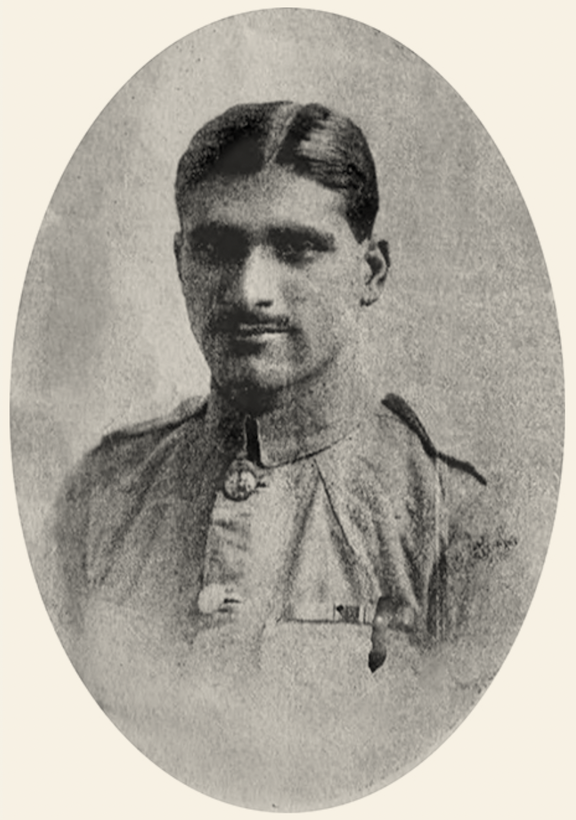
Nariman Karkaria
At last, it was our turn to see action, something we had been waiting for with our eyes peeled. Some of the soldiers were very eager to see the Germans in person and flaunt their muscle power, while quite a few were most distressed by the orders to advance forward to the front lines. We were to participate in the Battle of the Somme, which has already achieved legendary status in the Great War.
The Role of the Indian Army
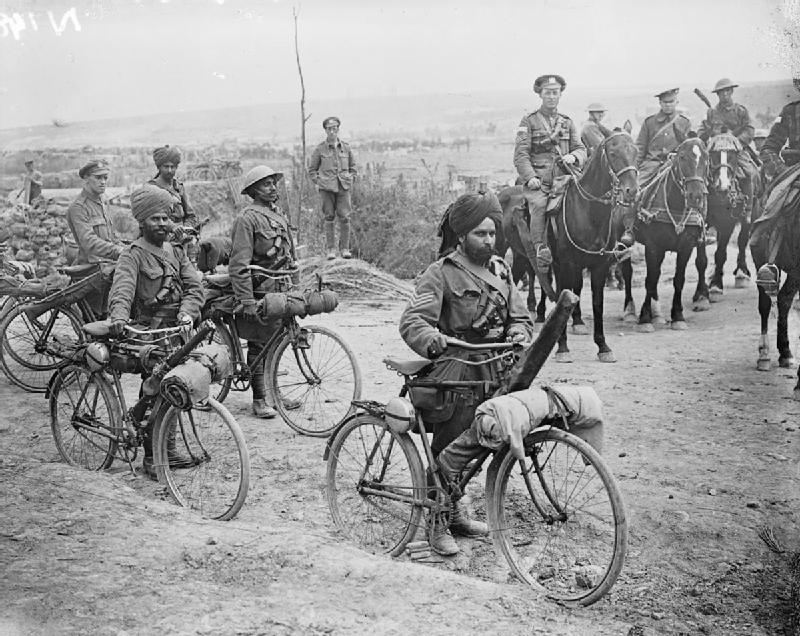
Indian bicycle troops at a crossroads on the Fricourt-Mametz Road, Somme, France. Dated July 1916. From the collection of Imperial War Museums, London.
The Indian Army also took part in the Battle of the Somme.
The Bengal Lancers advanced under heavy fire from the Germans right up to the German trenches and forced them to retreat. On this occasion, our platoon was ordered to advance to the firing line. Our undercover march started at about one o’clock in the night. We had been strictly warned not to utter a single word. With great difficulty, we managed to advance, digging a few trenches and walking all through the night, only to find ourselves in a very unfortunate position in the morning. A German observation balloon which had been flying above us had spotted us, and very soon our route came under heavy fire. Shells were exploding all around us. To escape them, we would lie flat on the ground for a short while before running to advance a little forward. A wave of fear rippled through our platoon. Soldiers were falling all around us with piteous shrieks, but there was nothing that could be done. Each man was on his own and could not be bothered about anybody else. Others would advance by stepping on those injured soldiers who had fallen to the ground. We had no option but to move forward. We also had no idea what kinds of difficulties we were to face as we advanced. Many of our men were lagging behind, but we could not wait for them, and at about twelve noon we reached the famous jungles of Del Ville Wood where we felt we could finally heave a sigh of relief. But fate had other things in store for us. There were no trenches beyond the next twenty-five yards from where we were located. We could not step out of the trenches as we would have been sitting ducks for German guns. The Germans were hardly at any distance from where we were—say about a hundred yards away in their trenches. In spite of this situation, the Commanding Officer gave orders to advance further. We had no option but to run, and we ran in pairs. We would advance about ten steps before throwing ourselves flat on the ground. Our progress did not last very long. Soon enough, the enemy started firing at us with their machine guns.
We were staring death in the eye. But as luck would have it, there had been a fierce battle on this very site just four days ago, and the bodies of dead soldiers were lying all around us. These corpses proved very useful in sheltering us from the enemy gunfire. As we advanced, we would lie behind these corpses, and they would act as our shield taking all the gunfire. Ah, what a terrible experience! Just one bullet and we would also have joined the army of cold corpses!
War in the Skies
After a very desperate battle and the loss of over fifty soldiers, we were lucky enough to be able to take possession of the trenches. Because of the non-stop action during the night and the better part of the day, we had not even had a cup of tea, much less anything to eat. I had managed to eat a couple of biscuits while moving forward. This was all I had had, with which I had to be content for the whole day. Once we took possession of the trenches, the different companies of the platoon were immediately assigned positions. While the A and C Companies were assigned the forward trenches, the B Company was assigned the communication line, which was about ten yards behind us, and the D Company was a further fifteen yards behind them in the support line. We were immediately ordered to make structural improvements in the trenches, which meant more digging. These trenches were not deep enough for a man to stand erect. The soldiers were tired of standing with their backs bent for extended lengths of time. The trenches were also rather narrow and we could hardly move around in them. We began using our small shovels and spades, and started digging at a steady pace, making as little noise as possible. We had hardly started digging when the sky above us was criss-crossed by enemy planes. They had been sent to monitor our progress and signal our position. Soon enough, our lines were bombarded by their artillery positions and we had to suspend our digging operations. Before we go further ahead with our story, let us take a look at the role of these aeroplanes in the war.
These aerial barques would fly high over enemy camps and their trenches, and photograph our positions to determine where the enemy was concentrated and how their lines were positioned. They would then go back and relay all the information to the base. They were, however, most deadly when they worked in conjunction with the artillery. These planes would be assigned to specific batteries; during an assault, these planes would hover above the enemy lines and relay back information on where the shells were landing. If the shells were landing at too short or too long a distance from the enemy trenches, they would immediately ask the battery to adjust its range. If they spotted a shell that had landed at the right place, they would immediately signal a ‘repeat fire’ to completely pulverize the position. Sometimes they would come in huge numbers and we would be carpeted with aerial fire. These aerial barques completely terrorized everybody in the trenches. The minute they appeared above us, we would be ordered to remain as still as possible. If we froze in our positions, it was possible that they might not spot us.
These planes were also mounted with machine guns that would merrily go ‘Bang! Bang!’ and wreak havoc on those below. Occasionally, planes from both the sides would engage each other in the skies, and this was indeed a sight to behold.
To contain these demons of the skies, a different kind of specially designed artillery known as ‘anti-aircraft guns’ would be deployed. They would keep up a relentless fire on the planes from the minute they were spotted.
Storm on a Dark Night
This being our first day in the firing-line trenches, all the soldiers were not assigned specific duties. Some of them were free while others were stationed at specific locations on sentry duty in batches. As these trenches were not deep enough for the soldiers to stand erect and peep over them to monitor the enemy’s movements, a special glass contraption was designed, which could be attached to the tip of the bayonet of one’s gun. This helped the sentry sit down and monitor the space between our trenches and those of the enemy. At short intervals, they would slightly raise their guns very carefully, and peep into the glass and see if there were any enemy advances. Every so often, German snipers would shoot at the bayonets of these soldiers with perfect aim. These German snipers were a real nuisance. At night, snipers from both sides would emerge from the trenches and shoot at the slightest movement. Besides these man-made miseries, we also had to face the fury of nature. In addition to the relentless noise of heavy guns firing through the dark night, we had to brave the most frightful thunder accompanied by incessant rain. It would rain all through the night and the trenches would be flooded. We would be standing in chest-deep water, wondering when the enemy would mount a surprise attack. Even as our boots and clothes were weighed down by the squelching mud and water, our officers would keep braying at us: ‘Beware! The enemy might attack!’ Buffeted from all sides and terrorized by the incessant guns, there were many soldiers who felt it would be far better to emerge from the trenches and take a chance with the enemy gunfire. There were others who were so paralysed by fear that they would appear almost insane and would not stir from their positions. Even if they had to answer nature’s call, they would be unable to take a single step. They would just dig a shallow hole right where they were and do their dirty business. In spite of their paralysis, they were somehow drafted to do some work by the booming orders of the officers. As mentioned earlier, the front line was manned by batches, each batch consisting of one sentry and five soldiers, with a non-commissioned officer in charge of them. They were responsible for holding the front line, and each soldier had to be on strict lookout for one hour at a time. A Lewis gun or a machine gun would be placed between every three batches. If the sentry felt that the enemy was trying to make an advance or if there was the slightest movement detected in the enemy lines, the guns would start firing. These Lewis guns played a very important role in this devastating war. These lightweight guns weighed only twenty-nine pounds and could be easily handled by one man who could move it from place to place, and when ordered, start firing at the rate of four hundred bullets per minute. Each of these guns was equivalent to a hundred rifles. We always had to be prepared at the firing line with all these arrangements.
Tear-Inducing Chilli Bombs
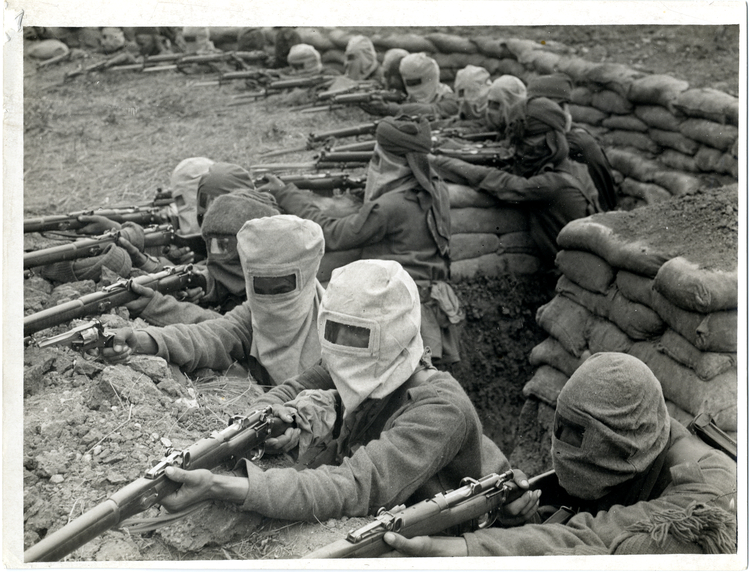
Indian infantry in the trenches, prepared against a gas attack [Fauquissart, France]. Dated 9th August, 1915. From the HD Girdwood collection, British Library.
After spending a miserable night in the trenches, we were shivering in our wet clothes in the morning. Suddenly we were ordered to ‘Stand to!’ Now what was this for? Even as we were wondering what it was all about, a gas that felt like chillies began pervading the trenches. Shrill orders to wear our goggles were urgently issued.
When the gas first attacked us, we could hardly understand what was happening. The gas began to envelop us from every direction and gas shells lobbed from the enemy lines were silently exploding all around us. Our eyes were in a state of extreme irritation. It felt as if they would burst.
We could hardly see anything; tears were flowing freely from our eyes, and it felt dark and terrifying. In spite of all this, everybody got into fighting position, facing the enemy lines and waiting for the inevitable attack. It was generally understood that the enemy released this gas just before it launched an attack. It rendered our soldiers blind and immobile for a brief while, and during this period, they could get the better of us and wrest our trenches. We could hardly open our eyes since the chilli gas had caused our eyes to turn red and swell up. How was a soldier to fight under such adverse circumstances? Along with this chilli gas, regular artillery fire was also kept up by the enemy, which further exacerbated the situation. To combat the nuisance of these ‘tear shells’ and to protect the eyes, a special kind of protective spectacles had been designed. They were made of ordinary glass through which everything could be seen, and the frame was fringed with flannel which ensured that the gas did not make contact with the eyes. The only saving grace was that exposure to tear gas, unlike poison gas, was not fatal; it merely left you blind for a short while.
On a Starvation Diet
Besides all the problems described above, we had yet another major problem to contend with: how to silence our hunger pangs. Soldiers on the firing line had to remain awake day and night and had no chance to lie down. To make matters worse, they had to scrounge for food. Admittedly, there was a lot of food dumped beyond the support lines as the motor transport guys would weave through the heaviest artillery fire to supply the food. Transporting the food from the dump to the firing lines was a major challenge for the soldiers. They would step out in large numbers to bring the food stuffed in small gunny bags back from the dump to the front line. The extreme conditions in the trenches, what with them being flooded with rainwater and slush, and the incessant firing of the enemy many a time prevented them from returning safely. They would be injured and fall down en route, and the food would also lie rotting there. The situation at the firing line was indeed desperate. The D Company had been assigned the support line and was responsible for supplying us with food, but as they came under heavy fire, they could not venture out of their trenches. Even though we were at the very front, the lines immediately to our rear suffered the most, bearing the brunt of the artillery fire. At least fifteen to twenty men from one company would get injured every day, and the condition of the injured was indeed very pitiable. How was food to reach us under this situation? We had to subsist on the few packets of biscuits and bully beef we had carried with us. Where was the question of getting a hot cup of tea? Not a single wisp of smoke was supposed to escape from the trenches. If the enemy spotted smoke coming from a trench, they would consider it to be a live target and fire immediately. The poor soldiers would go scrounging around for cigarette stubs.
Such was the dire situation at the front lines—starvation, mud and slush—and the relentless artillery fire had so harassed the soldiers that they were a pathetic sight to behold.
They had not shaved for days. How do you think they looked? It is best left to the imagination!
Our Final Assault
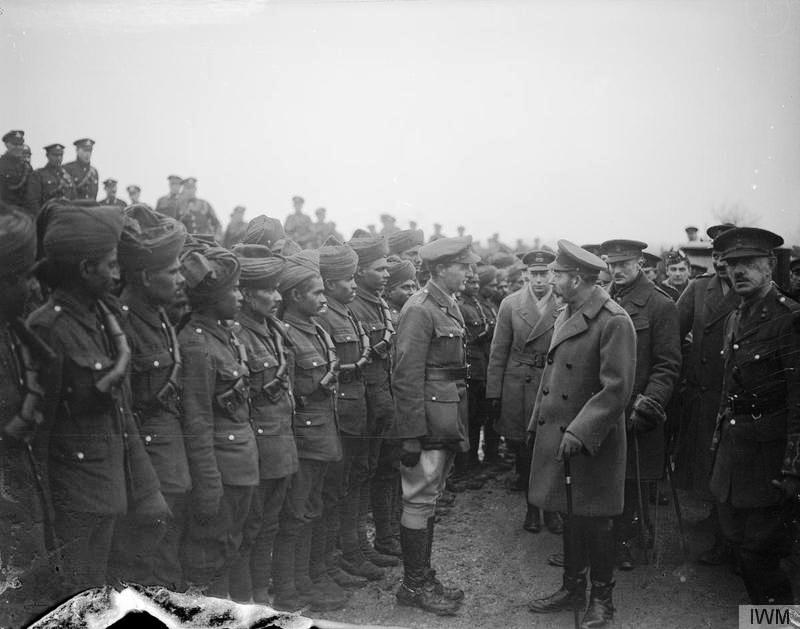
King George V inspecting Indian troops attached to the Royal Garrison Artillery, at Le Cateau on 2 December 1918. Imperial War Museums, London.
This was to be our last day at the famous Del Ville Wood. After many days of suffering and troubles, would it be too much to say that our imminent relief seemed like a new lease of life to us? Early in the morning, the news had already spread in the trenches that we were to be relieved tonight; our faces were aglow with delight. Just after noon, more authoritative news reached us, which was slightly different. We were indeed to be relieved, but we would have to perform some more arduous tasks tonight; the soldiers welcomed this news as a means of getting out of the trenches. All of us had been eagerly looking forward to being relieved for many days. Instead of spending yet another day in the slushy trenches, it was more preferable to emerge from them and show our courage in hand-to-hand combat. As per the orders issued to us, we were to launch our attack at ten in the night. Two companies were to lead the attack while the other two companies were to support us in the assault, and the trenches which we were to evacuate were to be occupied by the 4th Suffolk Regiment. All preparations had been made for a full-on artillery assault at the same time. Some of the soldiers were eagerly looking forward to the hour of the assault, while the colour had drained out of the faces of others. This supposedly minor assault was sure to claim the lives of many soldiers, but nobody knew who it would be. As things turned out, luck was on our side on this dark and evil night. It was pitch dark and the rain was falling steadily, and the roads were so slushy that they were of a porridge-like consistency. The enemy might have felt that there was very little likelihood of an attack from us in such awful weather. Our strategy was to attack under the cover of bad weather. Every minute seemed like an hour. As we waited, we could hear our hearts beating within our chests. After a seemingly eternal wait, it was finally the dark hour when we were to launch our attack. Just as orders were barked out to get us ready for the final assault, a volley of artillery fire passed over our heads towards the enemy lines. Within the blink of an eye, the Germans returned fire. Hundreds of shells were exploding loudly all around us. Their smoke darkened the skies, and we were already so scared that any enthusiasm we might have had for escaping from the trenches evaporated. Before we could think any further, orders were screamed out: ‘Over the top! Best to luck!’ The minute we heard the orders, we jumped out of the trenches and emerged into the open. We could soon hear the plaintive screams of our fellow soldiers, many of whom had fallen victim to the fire from the mortars and the machine guns. The rest of us braves, mindless of the fate of our colleagues, kept advancing. Lying flat on the ground, we crawled for over an hour and were lucky enough to finally make it to the enemy front lines. We then lobbed small bombs into their trenches and soon jumped into the trenches for a face-to-face duel. At this stage, many soldiers lost their lives to close-range enemy bullets, while some were bayoneted to death. We were able to take ten prisoners and capture one machine gun. We were about to turn back but heavy enemy artillery fire prevented us from doing so.
This was the heaviest bombardment I had ever seen, with thousands of shells exploding simultaneously all around us.
Because of the rain, mud and slush, our clothes felt like they weighed a ton. Dragging all this paraphernalia with us, a few of us were lucky enough to get back to our lines. Even as we were luxuriating in our good fortune, Lady Luck finally deserted us. A heavy shell landed just ten yards from where we were and exploded very loudly; we tried to jump away from it, but were not lucky enough to escape without being hit. I was also hit by a fragment. Even though I jumped as quickly as I could into a trench, my leg was injured in a gruesome manner. This had to happen just on the very last day when we were about to be relieved from trench duty. When fate turns against you, there is nothing you can do!
Adding Insult to Injury
Like me, there were hundreds of injured soldiers moaning and lying unattended in the trenches.
There was nobody to listen to our groans or pay any attention to us. Our troubles were just starting. If you managed to reach the dressing station, your troubles could come to an end. But in this bloody battle, it seemed like an impossibility. It was routine for hundreds of soldiers to get injured every day, and each platoon had its own stretcher-bearers who were supported by men from the Royal Army Medical Corps. For this assault, special working parties had also been formed. The firing and the destruction was, however, so severe that all these arrangements came to nought. Unlucky soldiers with stomach or leg injuries would frequently die a painful death in the trenches. If an injured soldier managed to drag himself away from the action, he stood a better chance of survival. Once you reached the dressing station, you would be one among thousands of injured soldiers crying for medical attention. The best possible care was given to them. There would be trolleys and vehicles from the Ambulance Corps to take them to the casualty clearing station. Once you reached this location, you could safely assume that your troubles had come to an end. All it needed was a cup of hot tea to make the injured soldier feel much better. After the seemingly endless days of nightmarish existence starving in the trenches, a cup of tea and the ministrations of female nurses felt like heaven. And then it was ‘Back for Blighty!’
This excerpt has been reproduced in arrangement with Harper Collins Publishers India Private Limited from the book The First World War Adventures of Nariman Karkaria: A Memoir written by Nariman Karkaria and translated by Murali Ranganathan. All rights reserved. Unauthorised copying is strictly prohibited. You can buy the book here.
ARCHIVE
Contesting Power – Contesting Memories: the Obelisk at Koregaon
The obelisk at Koregaon is characterised by a surprising commemorative history. A memorial to a bloody encounter within an imperial war, this monument provides a case study which illustrates that contestations of memories often bear the imprint of contestations for hegemony that are played out in the present.
The obelisk at Koregaon in Western India, built as a demonstration of empire builders’ belief in their own power and military prowess, serves a similar function today, but for a different group of people: the former Untouchables who had collaborated with the colonizers against what they perceived as a tyrannical indigenous regime.
The recently emerged tradition of an annual pilgrimage to the memorial, should be seen as an effort at creating and popularizing an alternative culture of the former Untouchables, now known as Neo-Buddhists. While Indian society grapples with the problem of accepting the equality of its various castes, one can witness different pathologies of memory surrounding the monument. Today, both amnesia and pseudomnesia are associated with the Koregaon memorial, defying the locus of a person in the discourse on social justice in present-day India. The memorial had faded into oblivion from British public memory long before the end of the imperial rule. However, it has undergone a metamorphosis of commemoration and now signifies something quite different from what was originally intended.
The Battle of Koregaon and its Memorial
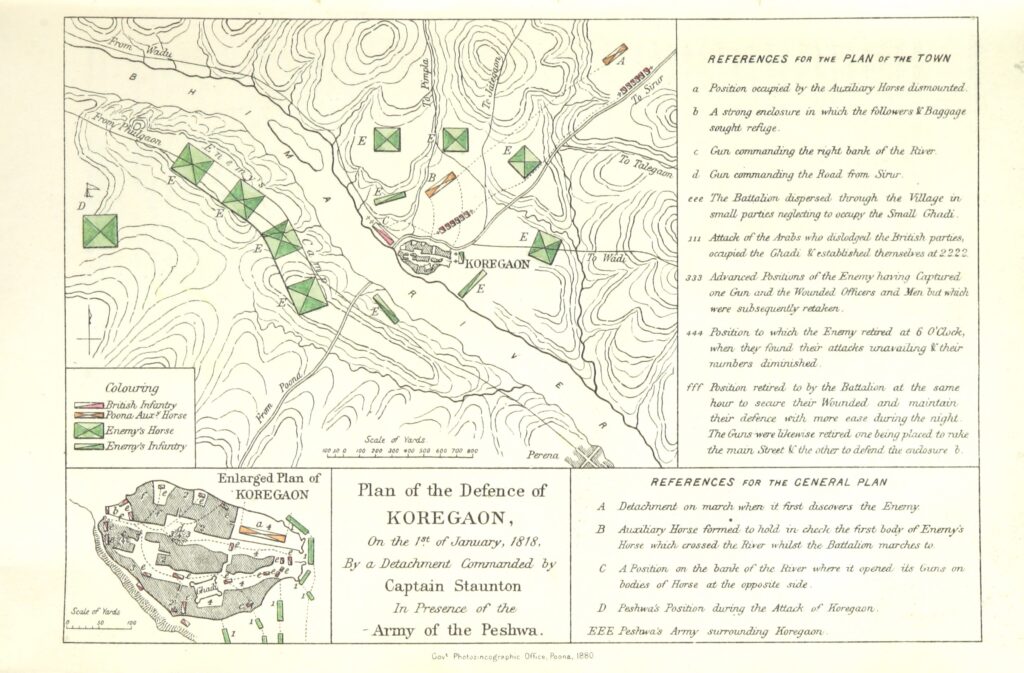
British defence plan during the Battle of Koregaon from Gazetteer of the Bombay Presidency (Ed). Sir James M. Campbell, p. 259. Published in 1896. British Library.
The political ascendancy of the British East India Company in Eastern and Northern parts of India dates back to the battle of Plassey in 1757. From then on it gradually began extending its political hold to the other parts of India. During the same period, from their base in Pune in Western India, the Peshwa rulers (1707-1818) were also extending their political influence. Clashes between the Peshwas and the Company seemed inevitable. On 1 January 1818, a battalion of about 900 Company soldiers, led by F. F. Staunton from Seroor to Pune, suddenly faced a 20,000-strong army commanded by the Peshwa himself. The encounter took place at the village of Koregaon on the banks of the river Bheema. In the words of Grant Duff, a contemporary official and historian, “Captain Staunton was destitute of provisions, and this detachment, already fatigued from want of rest and a long night march, now, under a burning sun, without food or water, began a struggle as trying as ever was maintained by the British in India.” The battle was not decisively won by either side, but in spite of heavy casualties, Staunton’s outnumbered troops managed to recover their guns and carry the wounded officers and men back to Seroor.
As it was one of the last battles of the Anglo-Maratha wars, which ended with a complete victory of the Company, the encounter quickly came to be remembered as a triumph. The East India Company wasted no time in showering recognition on its soldiers.
While Staunton was promoted to the honorary post of aide de camp by the Governor General, the battle received special mention in Parliamentary debates next year. A memorial was commissioned and a year later, Lt Col Delamin, who was passing by the village, could already witness the construction of a 60-foot commemorative obelisk.
The Koregaon memorial still stands intact today. It is supposed to commemorate the British and Indian soldiers who ‘defended the village with so much success’ when the British East India Company confronted the Peshwa army in a ‘desperate engagement’. Marble plaques adorn the four sides of the obelisk. The two plaques in English are accompanied by translations into the local Marathi language. The Memorial Plaque declares that the obelisk is meant to commemorate the defence of Koregaon wherein Captain Staunton and his corps “accomplished one of the proudest triumphs of the British army in the East.” Soon after, the word ‘Corregaum’ and the obelisk were chosen to adorn the official insignia of the Regiment. In the Parliamentary debates in March 1819, the events were described as follows. “In the end, they not only secured an unmolested retreat, but they carried off their wounded!” In his volume published in 1844, Charles MacFarlane quotes from an official report to the Governor calling the engagement “one of the most brilliant affairs ever achieved by any army in which the European and Native soldiers displayed the most noble devotion and the most romantic bravery.” Twenty years later, Henry Morris confidently added: “Captain Staunton returned to Seroor, which he entered with colours flying and drums beating, after one of the most gallant actions ever fought by the English in India.” Later chroniclers of colonial rule continued to shower praise on the plucky Company force for displaying “the most noble devotion and most romantic bravery under the pressure of thirst and hunger almost beyond human endurance.” In 1885, even the ‘Grey River Argus’, a newspaper published in far-off New Zealand, described the battle in glowing terms. After the turn of the century, though, the colonial commemoration began to fade and gradually the event slipped from Britain’s public memory. The battle is now only mentioned in specialized literature on military history as an example not of British martial capabilities, but of that of the Sepoys.
Memories: ‘Ours’ and ‘Theirs’
Today the memorial finds itself just off a busy highway toll booth – a common site in the post-globalisation Indian landscape. Every New Year Day, the urban middle classes who need to use the highway, remind each other to avoid the particular stretch of the highway that passes by the memorial. Their reason for doing so is that “those people would be swarming their site at Koregaon.” Indeed, the memorial has become a site of pilgrimage attracting thousands of people who gather there every 1 January. If one asks the pilgrims what brings them together, there is a clear answer.
“We are here to remember that our Mahar forefathers fought bravely and brought down the unjust Peshwa rule. Dr Ambedkar has started this pilgrimage. He asked us to fight injustice. We have come to take inspiration from the brave soldiers and Dr Ambedkar’s memories.”
Initially, one might be baffled by this admiration for the native soldiers who fought on the British side and lost their lives in a fight against their own countrymen. A careful scrutiny of the list of casualties inscribed on the memorial reveals, however, that twenty-two names from amongst the native casualties listed end with the suffix “-nac”: Essnac, Rynac, Gunnac. The suffix ‘-nac’ was used exclusively by the untouchables of the Mahar caste who served as soldiers. This observation becomes particularly relevant when considered within the context of the caste profile of the Peshwas, who were orthodox and high-caste Brahmin rulers. The story of Koregaon is thus not just about a straightforward struggle between a colonial and a native power. There is another important but largely ignored dimension to it: caste.

Peshwa Bajirao II, who fought at the Battle of Koregaon. Coloured lithograph, Chitrashala Press, Poona, 1888. Wellcome Collection.
The Peshwas, Brahmin rulers of Western India, were infamous for their high caste orthodoxy and their persecution of the untouchables. Numerous sources document in great detail that under the Peshwa rulers, the ‘untouchable’ people who were born in certain so-called low castes were given harsher punishments than high-caste people for the same crimes. They were forbidden to move in public spaces in the mornings and evenings lest their long shadows defile high-caste people on the streets. Besides physical mobility, occupational and social mobility were also denied to these people who formed a major part of the population. Human sacrifices of ‘untouchable’ people were not uncommon under these eighteenth century rulers who had framed elaborate rules and mechanisms to ensure that the untouchables stayed just as their name suggests – untouchable. In 1855, Mukta Salave, a 15-year-old girl from the untouchable Mang caste who attended the first native school for girls in Pune, wrote an animated piece about the atrocities faced by her caste:
‘Let that religion, where only one person is privileged and the rest are deprived, perish from the earth and let it never enter our minds to be proud of such a religion. These people drove us, the poor mangs and mahars, away from our own lands, which they occupied to build large mansions. And that was not all. They regularly used to make the mangs and mahars drink oil mixed with red lead and then buried them in the foundations of their mansions, thus wiping out generation after generation of these poor people. Under Bajirao’s rule, if any mang or mahar happened to pass in front of the gymnasium, they cut off his head and used it to play “bat ball,” with their swords as bats and his head as a ball, on the grounds.’
Peshwa atrocities against the low-caste people have remained ingrained in public memory to this very day.
When the East India Company began recruiting soldiers for the Bombay Army, the untouchables seized the opportunity and enlisted. Military service was perceived as a means to opening the doors of economic as well as social emancipation. Political freedom and nationalism had little meaning for a population who had to choose between a life where the best meal on offer was a dead buffalo in the village and a life where their human dignity was respected – not to mention a decent monthly payment in cash.
While the untouchable soldiers fought on the British side against their own countrymen, the valour they showed is not at all perceived as a shameful memory today. In fact, Koregaon has become an iconic site for the former untouchables as it serves as a reminder of the bravery and strength shown by their ancestors – the very virtues that the caste system claimed they lacked. The memories related to the Koregaon memorial, help to explain how a memorial of colonial victory built in the early nineteenth century has been adapted to serve as a site that gives inspiration to the formerly untouchable people of India.
Mahars and the Military
Throughout much of the nineteenth century, the battle of Koregaon and the memorial were warmly remembered amongst military, imperial and political circles in Britain. At the beginning of the twentieth century, though, British rule was firmly established all over India, and the Koregaon Memorial faded from mainstream commemorative practices. Neither Britain at the height of colonial glory, nor India, which was beginning to receive small doses of independence, had time to commemorate the violent struggle of the days of the Honourable Company. Other lines of tradition were broken, too. The Mahar regiment had continued to demonstrate its bravery and loyalty in the battles of Kathiawad (1826) and Multan (1846). But then, in spite of the low castes’ long-standing military alliance with the British, some Sepoys from the Mahar Regiment, which formed a part of the Bombay Army, joined the “Indian Mutiny” in 1857. This added to a certain reluctance the British had always shown at the enlistment of Mahars. Subsequently, they were declared to be a non-martial race and their recruitment was stopped in May 1892.
Once their recruitment was discontinued, the Mahars soon began to feel the pinch. Gopal Baba Valangkar, a retired army-man founded a ‘Society for Removing the Problems of Non-Aryans.’ In 1894 the members of this society sent a petition to the Governor of Bombay to remind him that the Mahars had fought for the British to acquire their present dominion over India and requested a reconsideration of the decision to exclude Mahars from the Martial races, which deprived them of entry into the military service. The petition was rejected in 1896.
Another leader of the untouchables, Shivram Janba Kamble made an even more sustained effort to achieve the emancipation of the Untouchables. He had been involved in the work of the ‘Depressed Classes Mission’ which ran schools for untouchable children. In October 1910, R. A. Lamb of the Bombay Governor’s Executive Council was invited as the chief guest for a prize-giving ceremony in one of these schools. In his speech, Lamb mentioned his annual visits to the Koregaon Memorial. He drew attention to the ‘many names of Mahars who fell wounded or dead fighting bravely side by side with Europeans and with Indians who were not outcastes’ and regretted that ‘one avenue to honourable work had been closed to these people.’ It is not known whether it was Lamb’s speech that put the Koregaon Memorial back into the limelight or whether it had remained in living memory.
His words certainly lent weight to the argument that it was the Mahars who fought for the British and made them ‘masters of Poona.’
Within the first two decades of the twentieth century, Kamble organised a number of meetings of the Mahar people at the memorial site. In 1910, he arranged a grand Conference of the Deccan Mahars from 51 villages in Western India. The Conference sent an appeal to the Secretary of State demanding their ‘inalienable rights as British subjects from the British Government.’ They made a strong case for letting Mahars re-enter the army and argued that the Mahars were ‘not essentially inferior to any of our Indian fellow-subjects.’ Up until 1916 this request was repeated by various gatherings of untouchables in Western India. As the First World War gathered momentum, the Bombay government eventually issued orders in 1917 providing for the formation of two platoons of Mahars.
The Coming of Ambedkar
The happiness of the Mahars was, however, short-lived. Recruitment was stopped as soon as the war ended. This led to a renewed campaign for recognizing the valour of the Untouchables. By then, the demand had long since assumed the level of a movement for the general emancipation of the Untouchables. Within this campaign the Koregaon Memorial had become a focal point. Various meetings were held at the obelisk during which Kamble and other leaders invariably reminded the Untouchables of the valour and prowess exhibited by their forefathers. On the anniversary of the Koregaon battle on 1 January 1927, Kamble invited Dr Bhimrao Ramji Ambedkar to address the gathering of Untouchables. Ambedkar was not merely another leader of the untouchables. He was by now, as far as Indian politics was concerned, a force to be reckoned with.
Ambedkar was born in 1891, the son of a retired army subhedar from the Mahar caste. In spite of his first-hand experience of caste-based discrimination, he attained a doctorate from Columbia University, a D. Sc. from London School of Economics and was called to the Bar at Gray’s Inn by the age of 32. In 1926, he became a member of the Bombay Legislative Assembly.
He could not fail to appreciate the significance of the memorial for advancing the cause of the emancipation of the Untouchables. Not only did he make an inspiring speech at the gathering, he also supported the idea of reviving the memory of the valour of the forefathers by an annual pilgrimage to the site on the anniversary of the battle.
As a representative of the Untouchables, he was invited by the British to the Round Table Conference in 1931 where the future of the Indian Nation was to be decided. Based on his arguments at the conference, he wrote a small treatise called The Untouchables and the Pax Britannica in which he referred to the Koregaon battle to support his argument that the Untouchables had been instrumental in the establishment and consolidation of British power in India.
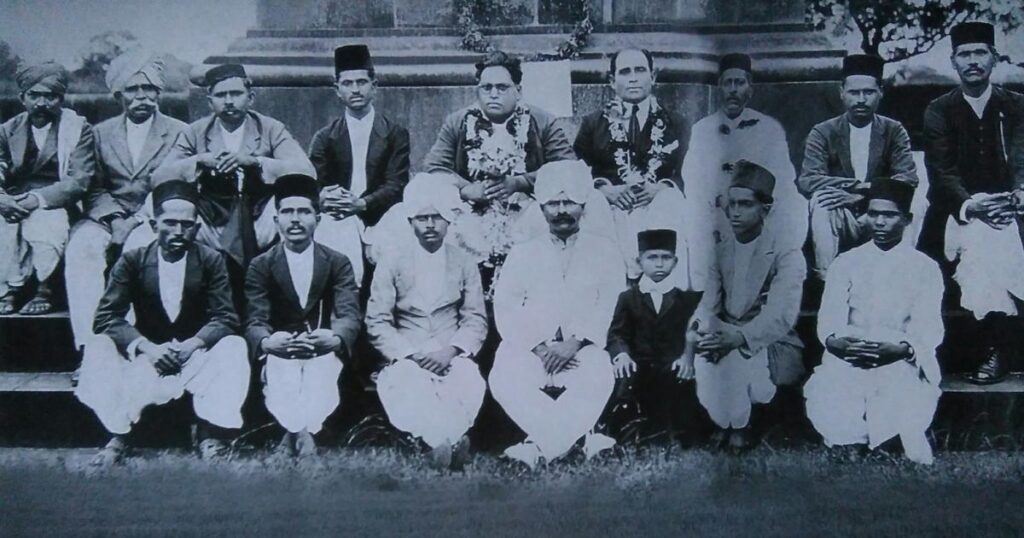
BR Ambedkar and his followers at the Koregaon victory pillar on 28 December 1927. Wikimedia Commons.
Indian mainstream politics from the 1920s until 1947 is recognised as the Gandhian era. Gandhi, having been born in the middle order caste of traders, had a different outlook on the systemic exploitation of the Untouchables on the basis of caste. He called the Untouchables Harijans, meaning people of God. Ambedkar and his followers resented both this name and the patronising attitude behind it. Underlying this surface issue, there were major ideological differences between Ambedkar and Gandhi. For the India represented by Gandhi and the Indian National Congress, the primary contradiction was that between colonial supremacy and Indians’ aspirations for political freedom. For Ambedkar and the Untouchable masses he represented, the oppression was not primarily located in the political system but arose from the socio-economic sphere. There was a clash of interests. The Indian National Congress under Gandhi sought to represent all Indians in a unified front against the colonial rule. Although Ambedkar was, unlike some “sections of Dalits and non-Brahmans who believed that colonial rule had been an unambiguous liberating force”, by no means a staunch supporter of British rule, he had quite a different new India in mind. While Gandhi saw the ideal social order arising from a reformed Hinduism, Ambedkar sought “political representation independent of the Hindu community.” In 1930, Gandhi embarked upon the Civil Disobedience Movement against the systems and institutions of the colonial rule. Kamble and a few other representatives of the depressed classes retaliated by launching what they called the “Indian National Anti-Revolutionary Party”. Its manifesto was quoted in The Bombay Chronicle:
In view of the fact that Mr Gandhi, Dictator of the Indian National Congress has declared a civil disobedience movement before doing his utmost to secure temple entry for the “depressed” classes and the complete removal of “untouchability”, it has been decided to organise the Indian National Anti-Revolutionary Party in order to persuade Gandhiji and his followers to postpone their civil disobedience agitation and to join whole-heartedly the Anti-Untouchability movement as it is… the root cause of India’s downfall…. The Party will regard British rule as absolutely necessary until the complete removal of untouchability…
Though this party did not attract much support in mainstream politics, it demonstrates that for the Untouchables, social and economic well-being was of greater and more immediate concern than political freedom, and hence colonial rule was regarded as a possibly necessary evil for the time being. It also shows that there were other and often contradictory voices in the independence movement of India. These have often been glossed over in nationalist rhetoric.
A New Memory
India won her independence in 1947, and Ambedkar chaired the committee tasked with the drafting of the new constitution. The ‘annihilation of caste’, however, remained a distant dream. The Hindu Code Bill proposed by Ambedkar in order to bring about extensive reforms in the Hindu socio-cultural scene was not accepted by parliament. In 1951 a disillusioned Ambedkar resigned from the Cabinet. Five years later, under his leadership, millions of Untouchables converted en masse to Buddhism in a step towards attaining total freedom from exploitation. The same year, after Ambedkar’s death, a political party, called the Republican Party of India, was formed to represent the interests of the low-caste people.
The conversion opened the floodgates for cultural conflicts with the high castes. The immediate reaction of the Hindu right was one of denial. The strategy of cultural appropriation that has worked so well for Hinduism from the times of the Buddha is employed even today to project the Buddhists as just another sect within Hinduism.
For the neo-Buddhists, this necessitated the creation of new and different cultural practices. Amongst the neo-Buddhists in western India one of the invented cultural practices that emerged as a result is the pilgrimage to the Koregaon Memorial. Thousands of neo-Buddhists throng to the memorial every New Year’s Day to commemorate the valour of the Mahars who helped to overthrow the high caste rule of the Peshwa. They also commemorate the visit of their leader, Dr. Ambedkar, on 1st January 1927.
Unlike any Hindu pilgrimage site, the Koregaon memorial is devoid of the tell-tale signs of a holy marketplace. No sellers of garlands and sweets and images of Gods are to be found here. It is a deserted place all through the year. However, come New Year, the place is dotted with little stalls selling books, cassettes and compact disks. Various publishers of Ambedkarite literature set up their stalls of books. Neo-Buddhist songs are played loudly in the stalls extolling the greatness of Ambedkar and emphasizing the need to change the world. Leaders of the now numerous factions of the Republican Party of India address their followers. Neo-Buddhist families visit the memorial obelisk. They offer flowers or light candles. An important part of the ritual is to offer a Vandana, a recital of verses from Buddhist texts.
An equally important element of their ritualised behaviour is the buying of books. Interviews with various booksellers have shown a surprising fact: whenever there is a gathering or a pilgrimage of the neo-Buddhists, the bookstalls do roaring business. It may be interesting to note that the average length of books sold at these stalls is short – volumes of 30-70 pages priced between 10 to 50 rupees. It might be an indication of the fact that the readers may be neo-literate, have very little time to spend on reading and can only afford cheaper books. Many publishers of related literature have indicated that their daily sales figures at the Koregaon pilgrimage and other such important pilgrimages (eg. Mumbai and Nagpur) often exceed their sales figures for the rest of the year. It could be perceived as an indication of the belief in emancipatory potential of education among the neo-Buddhists, especially of the former Mahar caste. Some of the best-selling titles include Marathi translations of books authored by Ambedkar himself, eg. Buddha and His Dhamma, Annihilation of Caste, Who Were the Shudras? Other popular books include Dalit autobiographies. They also sell Dalit poetry and small biographies of Dalit leaders.
These books offer a Dalit perspective on Indian history wherein colonial rule is portrayed as instrumental for emancipation, even though it remained ignorant of realities of caste exploitation. Jotirao Phule and Ambedkar are among the prominent Dalit writers who propounded this view of the colonial rule in which Gandhi and the movement for India’s independence do not figure very positively. The fact that Ambedkar chaired the Committee that created the Indian Constitution in 1950, however, is considered supremely important. Any attempt to criticise or seek a change in the Indian Constitution, therefore, provokes fierce opposition from the Dalit population. The anti-corruption movement led by Anna Hazare and his team in 2011 is a recent example. The extra-constitutional structure to create a powerful ombudsman (Lokpal) for resolving the issues of corruption was not welcomed by Dalit leaders and public.
The Importance of Forgetting
Though the Koregaon Memorial was constructed by the Colonial rulers, it does not feature on the commemorative landscape of today’s British public. This amnesia might be attributed to the fact that the colonial memories, especially of violent battles are no longer the object of pride in present-day Britain. This amnesia is matched by the high castes in India. Poona, the capital of Peshwas has become a software and education city called Pune. When a sample of 130 members of the high caste, newly rich people (who have come to be nicknamed as Computer Coolies) were asked about the Koregaon memorial, none of them knew what it was.
Elite amnesia is not total, though. There are also, what may be called conflicting memories. During the 1970s the Western Indian state of Maharashtra witnessed a spate of popular (a)historical novels topping the best-seller lists in Marathi. Many of them dominate the historical understanding and perceptions of the Marathi-speaking middle classes even today. Two important novels from this genre, both authored by Brahmins, describe the battle of Koregaon in passing. Mantravegla by N. S. Inamdar is based on the life of the Last Peshwa. It claims that the battle was, in fact, won by the Peshwas. Recently, this trend of creating alternative memories about the Peshwa battles has become even stronger. The battle of Panipat, which saw a complete defeat of the Peshwa armies in 1761, is commemorated today by high-sounding rallies. The kind of rhetoric used during these rallies suggests that it was the Peshwa who won the battle.
The Koregaon Memorial occupies a very significant place in today’s neo-Buddhist culture. The internet and other electronic media are used to document and commemorate the Koregaon battle and Ambedkar’s visit to it. An image search for Koregaon Pillar yields hundreds of digital pictures of the Memorial Obelisk. Film clips are available on Youtube. At least a dozen blogs in English and Marathi have entries related to the Koregaon memorial. They describe the battle and the role of the Mahar soldiers and also remind the readers about what the Untouchables could achieve if they show the resolve.
Conclusion
The obelisk of Koregaon Bheema is thus a site which has generated conflicting memories. These memories represent the divergent interests of the groups involved in their creation. Those wishing to commemorate the greatness of the Peshwa rule – the symbol of high caste supremacy – either choose to ignore the Koregaon battle, or create a Pseudomnesia of Peshwa victory. While the obelisk marks an imperial site of memory that is largely forgotten in the homeland of the empire, the monument has undergone a metamorphosis of commemoration in Western India.
It no longer reminds the public of imperial power, but for the former Untouchables whose forefathers fought at Koregaon it serves the purpose of providing “historical evidence” of the ability of the Untouchables to overthrow the high caste oppression.
Considering the fact that Indian society is still dominated by the system of caste hierarchy, the Koregaon Memorial is also a reminder that present-day contestation for hegemony is often manifested in contesting memories.
This paper has been carried out courtesy with the permission of Shraddha Kumbhojkar. It has been presented without its abstract, citations, footnotes and bibliography for purposes of easier reading.
The paper has also been published in Sites of Imperial Memory, (ed.) Dominik Geppert, Frank Lorenz Muller, Manchester University Press, Manchester, New York, 2015. as Politics, Caste and the remembrance of the Raj: the Obelisk at Koregaon. You can buy the book here.
ARCHIVE
Hinduism: Major Schools other than Bhakti
On a first view the continuing coexistence of Hinduism and Islam seems to be the most significant aspect of religious life in Mughal India. This very observation, however, tends to obscure the fact that Hinduism and Islam were not religions in the same sense. In his remarkable work on the religions of the world, the anonymous author of the Dabistan (written, c.1653), notes that “among the Hindus there are numerous religions, and countless faiths and customs.” In other words, while “Hindu” was the appellation of an Indian who was not a Muslim, it was yet difficult to speak of Hinduism as a single body of doctrine in the same sense as one could speak of Islam or, indeed, of the Semitic religions in general. It was equally true, however, that, having developed in mutual interaction and expressed in a large part in the same language (Sanskrit), the different sects of Hinduism yet shared the same idiom and even the same or similar deities. Written sixty years earlier, Abu’l Fazl’s A’in-i Akbarī (1595) precedes the Dabistan in giving us a very detailed and comprehensive description of Hindu beliefs.
On a first view the continuing coexistence of Hinduism and Islam seems to be the most significant aspect of religious life in Mughal India. This very observation, however, tends to obscure the fact that Hinduism and Islam were not religions in the same sense.
The Mughal period witnessed a continuing assertion in Brahmanical texts of almost all the basic elements of Higher or Orthodox Hinduism that the Ain-i Akbarī and the Dabistan outline. There was a notable exposition of Mimamsa in Narayana Bhatta’s Manameyodaya (c.1600). The school upheld the automatic functioning of the system of transmigration of souls in life-cycles, the station in each life being the result of deeds (karma) in the previous cycles. The author of the Dabistan makes the interesting observation that the “common belief” among the Hindus was that though there was one Creator, the created beings in their lives remained bound by the influence of their own deeds. The emphasis on karma was now the key to dharma, or prescribed conduct of the smriti schools. In this field the traditional doctrine continued to be reasserted in digests, commentaries and elaborations. Vachaspati (c.1510) wrote the Vivädachintamani in Mithila (Bihar). In Bengal, c.1567, Raghunandana of Navadvip wrote his twenty-eight treatises, the Smrititattva, which became an authority on ritual and inheritance. The Nirnayasindhu of Kamalakara Bhatta (1612), which cites Raghunandana as an authority, in turn, obtained legal and religious authority in Maharashtra. An encyclopedic legal work, the Viramitrodaya was compiled by Mitra Mishra under the patronage of Bir Singh, a leading noble of Emperor Jahangir (1605-27).
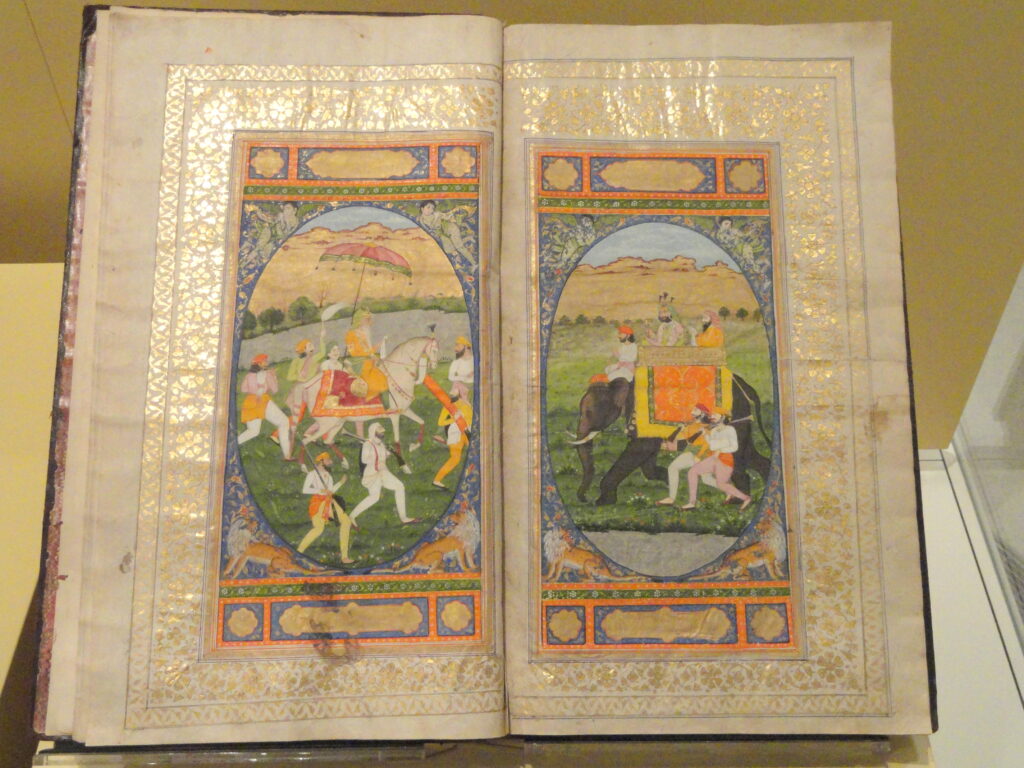
Ain-i-Akbari
![]() These works did not generally make any noteworthy deviations from positions adopted in respect of the supremacy of the Brahmans and the caste-rules as defined by the earlier Smritis. If anything, they repeated and elaborated the restrictions imposed on the lower castes and women. Raghunandana went so far as to declare that the Brahmanas were the only ‘twice-born’ left, since, according to him, the Kshatriyas and Vaishyas had by now fallen among the ranks of the Shudras!
These works did not generally make any noteworthy deviations from positions adopted in respect of the supremacy of the Brahmans and the caste-rules as defined by the earlier Smritis. If anything, they repeated and elaborated the restrictions imposed on the lower castes and women. Raghunandana went so far as to declare that the Brahmanas were the only ‘twice-born’ left, since, according to him, the Kshatriyas and Vaishyas had by now fallen among the ranks of the Shudras!
In Vedanta, the Shankaracharya tradition was influential enough to produce a number of texts. It is clear from various statements in the Dabistan that the pantheism of Shankaracharya had by the mid-seventeenth century permeated a large number of sects and schools. Sadananda in his Vedantasära (c.1500) exhibits an admixture of Samkhya principles. On the other hand, Vijñänabhikshu (c.1650), author of the Samkhyasara, admitted the truth of Vedanta, professing to see the Samkhya Duality as no more than one aspect of the Truth. A similar reconciliation of Vedanta with Shaivite beliefs seems to have been developed by Appayya Dikshita (1520-92) of Vellore, a prolific writer on many subjects. A Shaivite theologian of the south of a later phase was Shivananar (fl.1785).
Commensurate with the widespread currency of Tantrik beliefs and practices reported by the Dabistan, Tantrik literature received considerable additions during this period. Mahidhara of Varanasi wrote the Mantra-mahodadhi in 1589. In Bengal Pürnända (fl. 1571) wrote treatises on philosophy and magical rites; in the next century Krishnänanda Agamavägisha of Navadvip wrote the authoritative textbook, Tantrasara.
Bhakti Sects
The sixteenth and seventeenth centuries were, however, essentially the centuries of Vaishnavism. In the Northern India the Rama cult had its greatest propagator in Tulsidas who in his Ramcharitmanas, written in the Awadhi dialect, gave a popular garb to the original Rāmāyaṇa. Tulsidas was a firm believer in the dharmashastra, and he regarded the popular monotheistic cults, with their Shudra leaders, as signs of the degradation of the present age (kalijug). Yet this was not the main message of his work. In his fervent verses of devotion and portrayal of a just Rama, the incarnated deity became God, in full control of destiny.
The sixteenth and seventeenth centuries were, however, essentially the centuries of Vaishnavism.
The expression was still more emotional when the object of bhakti (devotion) was Krishna, another incarnation of Vishnu. Chaitanya (1485-1533), a Brahman priest of Navadvip (Bengal) initiated a cult of Krishna and his female lover Radhā, in which the devotee, repeating the deity’s name, pictured himself as a companion of Krishna at Vrindaban, re-enacting in his mind His “manifest” sports (lilas). These mental visions were the means of a communion with the Lord, in which Krishna too relished the devotee’s love. While Chaitanya had his followers mainly in Bengal, he left very active successors, the gosvamins, at Vrindaban near Mathura, who in a series of Sanskrit works gave a philosophical basis to the cult and outlined its ritual. To his followers Chaitanya himself appeared as a joint incarnation of Krishna and Radha. Though in their life as householders, the devotees followed the caste ritual, the right of worship was not denied to the lower classes; and the Sahajiya sect (eighteenth century) rejected life as ordained by the smritis and introduced shaktik and tantrik practices. In Assam, a Vaishnava sect paralleling that of Chaitanya was founded by a junior contemporary of his, Shankaradeva (d.1568), who however avoided image-worship and emphasized an Absolute, Personal God, to Whom all devotion directed in the form of love for Krishna.
Vallabhacharya (d.1531) and his son Vitthalnath (d.1576) propagated a religion of grace (pushtimarga); and Surdās, owing allegiance to this sect, wrote Sur-saravali (1545) in the local language, Braj, in which the sports of Krishna with Radhā and others were described as manifestations of the Lord’s supreme powers. The sect obtained some popularity in Gujarat and Rajasthan; there developed an excessive adoration of the descendants of Vallabhacharya (now regarded as an incarnation of Krishna), who obtained the designation ‘Mahārāj’, and relied on the following of a rich mercantile community. The Rädha vallabhis owed their foundation to Hita Harivamsha (d.1553) and assigned to Radha the more crucial position in the Duality of Divinity.
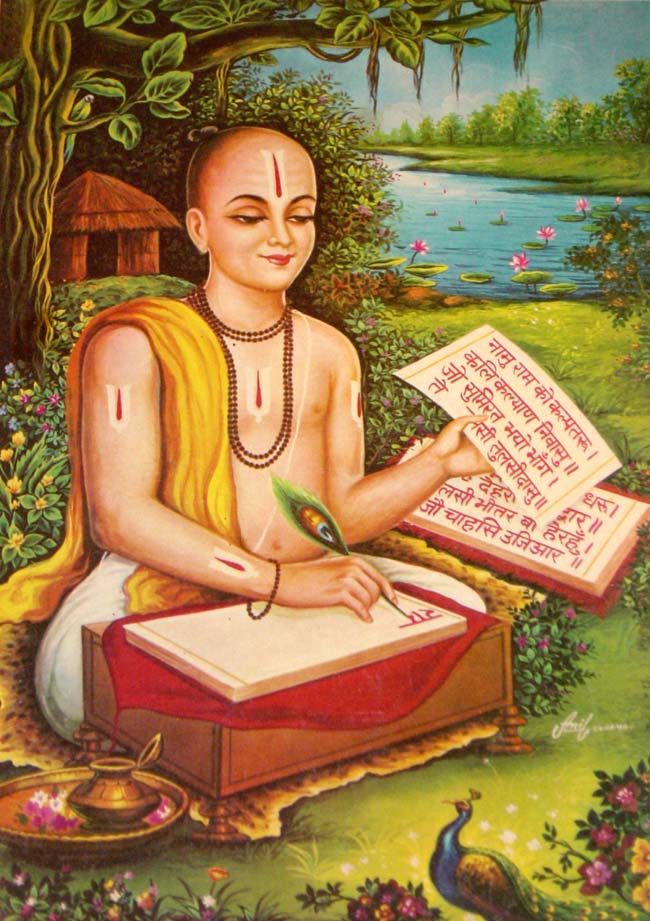
Tulsidas composing his famous Avadhi Ramcharitmanas (Wikipedia Commons)
The Vaishnavite movement in Maharashtra contained both Unitarian and conservative elements. Eknath (d.1599), a Brahman, expounded the principle of bhakti and allowed all castes as well as women to assemble and praise the Lord and join in the ecstasy of devotional chants (kirtan). He also tended to discount mere ritual. Tukārām, (d.1649), a Shūdra peasant, might possibly have been influenced by the Chaitanya sect yet while addressing himself to Vithoba, the Lord of Pandhari, his God (Vitthal) tends to be closer to the Ram of the monotheist Kabir than to the Krishna of Chaintaya. He sings of the possibility of recourse to God by a devotee, howsoever lowly in status, and does not hesitate to use the word Allah for his God. Quite different in approach was his junior contemporary, Rāmdās (d.1681), who combined the propagation of the worship of Rama as God with the upholding of the dharma (“the Maharashtra Dharma”), i.e. maintenance of “the holiness of the Brahmans and deities”. He organized maths or centres of ascetics, and was patronized by Shivaji, the Maratha ruler (d.1680),
In Karnataka, the Dāsakūta movement seems formally to have belonged to Madhvächärya’s system. It originated with Shripadaraya (d.1492), but was mainly spread by his disciple Vyasaraya (d.1539). The songs of the sect in Kannada show attachment to Viththala, the deity of Pandharpur, and yet revel in an ecstasy of devotion which recalls Chaitanya. A disciple of Vyasaraya, Kanakadas was a shepherd (Kurub) and in his popular compositions insisted on the lowly to the Lord.
Other Sects; Jainism
Logic and dialectics (nyaya and tarka) continued to attract attention through the compilation of commentaries and text-books. The Navadvip schools produced Raghunātha Siromani’s commentary (c.1500) on Gañgesha; and on this commentary Gadhādara (c.1700) in turn commented. Shañkara Mishra in Upaskära (c.1600) commented on the Nyāya-sütra. Among textbooks, Annam Bhațța wrote Tarkasamgraha (c.1585) and Jagadisha, the Tarkamyita (c.1700). A.B. Keith comments unfavorably on the obscurity and scholasticism of this literature; he also notes that all the schools were now “fully theistic”.
The survival of the materialist ideas of the Chārvākas, described in the Dabistān as constituting the ninth tradition within Hinduism, is of considerable interest. The Chārvākas believed that only the world perceived by the senses was real; “whether one becomes high or low results from the nature of the world”, and not from divine direction. The existence of a Creator or of gods was denied, and so also the truth of the Vedas. A number of specific criticisms by them of the beliefs in the miraculous and divine are quoted; possibly these circulated by word of mouth or are derived from the texts of opponents, for our author does not name any text or votary of the sect for his source.
The main area of strength of Jainism during this period was Gujarat, though Jain communities were found elsewhere too. Jain religious literature was composed in Gujarati, Sanskrit, Präkrit, Braj, Kannada and other languages, but much of it is described as repetitive or hagiological. The Jain version of dialectics was set out by Yashovijayaji in Jaina tarka-bhāshā, c.1670; he was the author of other religious books as well. Both the sects of the Jains, the Shvetāmbara and Digambara, flourished in the Vijayanagara empire. Jain priests also claimed exceptional proximity to Akbar and his court. The Jain laity was increasingly confined to “the Banya and Bohra castes of tradesmen, most of them selling foodgrains and some taking to service” (Dabistān).
Kabir and the Monotheistic Movement
A change of substantive proportions in the Indian mode of religious thought was marked by the preaching of the weaver Kabir (d., c. 1518) of Varanasi. One could, on the other hand, see in his compositions a distilling of Vaishnavite, Nath-yogic, even Tantric beliefs to obtain a rigorous monotheism, parallel to the Islamic; or see, alternatively, a rigorous acceptance of the logic of the monotheism of Islam, while rejecting its theology, with the exposition necessarily offered in a language that those outside the culture of Islam could understand. Strong arguments can be urged in favor of both views; but in whatever manner Kabir came to espouse the views he proclaimed, his contemporaries were deeply struck by their boldness and vigor.
A change of substantive proportions in the Indian mode of religious thought was marked by the preaching of the weaver Kabir (d., c. 1518) of Varanasi. One could, on the other hand, see in his compositions a distilling of Vaishnavite, Nath-yogic, even Tantric beliefs to obtain a rigorous monotheism, parallel to the Islamic; or see, alternatively, a rigorous acceptance of the logic of the monotheism of Islam, while rejecting its theology, with the exposition necessarily offered in a language that those outside the culture of Islam could understand. Strong arguments can be urged in favor of both views; but in whatever manner Kabir came to espouse the views he proclaimed, his contemporaries were deeply struck by their boldness and vigor.
Kabir propounded an absolute monotheism that countenanced no image-worship and no ritual. Servitude to God rather than offer of love to Him is the true means of salvation – love, though not absent, is clearly a subordinate element. This weakens any argument that Kabir derived his thought from either Vaishnav bhakti or Islamic Sufism. It was by one’s faith in God and work in this life one would be judged by God, for –
Kabir, the capital belongs to the Sah (Principal Merchant/Usurer)
And you waste it all.
There would be great difficulty for you
At the time of rendering of accounts.
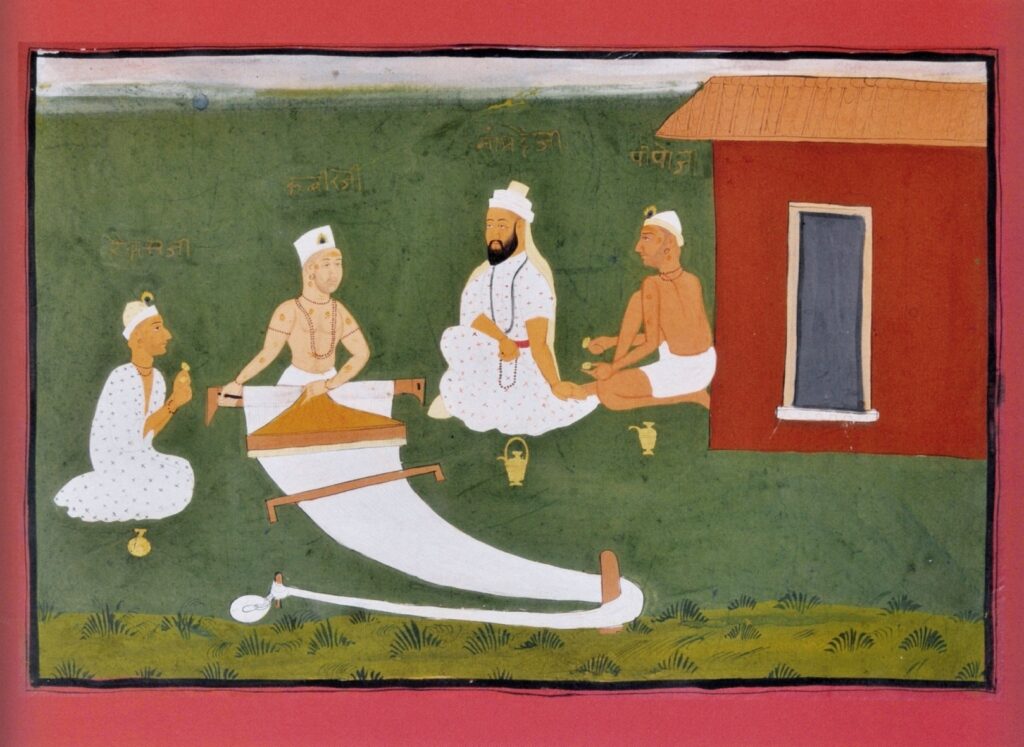
Kabir with Namadeva, Raidas and Pipaji. Jaipur, early 19th century
The Islamic influence in this concept of exact measurement of one’s thought and deed at the Day of Judgement is manifest; at the same time, the vision of God as a usurer certainly reflects not the traditional Muslim, but the impoverished artisan’s natural view of the Master. But if Kabir warns of punishment, he does not look forward to a heaven where one’s desires would be fulfilled this marks another departure from Islamic theology:
As long as man desires to go to heaven,
So long he shall find no dwelling at God’s feet.
Kabir’s rejection of the concepts of ritual purity and pollution, the laws of the smritis and the caste system is uncompromising in its completeness. As a late-sixteenth century summary of his teaching tells us, Kabir refused to acknowledge caste distinctions or to recognize the authority of the six schools of Hindu philosophy; nor did he set any store by the four divisions of life (ashrams) prescribed by the Brahmans.
As for the two contending religions, Kabir says scornfully: The Hindu dies crying “Rām”, the Muslim, “O Khudā (God).”
Says Kabir: He who lives, shall not go amongst either.
And then the triumphant revelation:
Ka’ba has once more become Kāsi, Rām has become Rahim!
Moth (a coarse pulse) has become fine flour; so sits down Kabir to enjoy it.
To a region, now torn in the struggle between temple and mosque, this teaching still retains a living and vibrant message.
Kabir’s audience was the common man, the artisan, the peasant, the village headman; his similes and metaphors came from their life and travels; and his language was the tongue that they spoke. Different regional dialects have left their imprint on his original Awadhi, as he or his verses traveled about. True, he is also influenced by some of the prejudices in his environment (chiefly poor and male) against women. Still, he had found a new dignity for the poor and the downtrodden in the world of his Lord. So came now a procession of his peers, lowly like him, seeking God in this land of Homo Hierarchicus. No one can, perhaps, improve upon how in 1604 Arjan, the fifth gurū of the Sikhs, saw this dramatic movement and made Dhannā, a Jāt peasant, sing of it.
To a region, now torn in the struggle between temple and mosque, this teaching still retains a living and vibrant message.
The evidence of their compositions show that Ravidās (or Räidās), the worker in hides, and Sain, the barber, both belonging to the sixteenth century, regarded Kabir as their precursor. A similar position with regard to Kabir was adopted by Dadū, the cotton-carder (d.1603), who obtained a considerable following in Rajasthan. A little later (1657) there appeared in Haryana the Satnāmi sect, again owing explicit allegiance to Kabir, and counting among its followers “peasants and tradesmen with small capital”. The sects of the follower of these teachers were called panth; in time, in spite of preserving the anti-ritualistic compositions of their founders, these tended to develop rituals of their own and to introduce notions and institutions taken from traditional religion, notably the ascription of avatār status to their original preceptor, and a caste-like status to the monotheistic community itself. Even a Brahman parentage came to be sought for Kabir, the weaver. Such a reshaping of the original message of the masters, is a testimony to the strong roots of ritual and the caste-order in those times; and our own times are, perhaps, no different.
Sikhism
The sixteenth century saw the rise of Sikhism, now one of the recognized religions of the world. It began as a sect (panth) of the followers of Gurū Nanak (1469-1538), a Khatrī (an accountant and mercantile caste) of the Panjab, more or less on the pattern of other sects of the contemporary popular monotheistic movement. The Gurü Granth Sahib, the scripture of the Sikhs, compiled by Gurū Arjan in 1604, includes, besides compositions of Nānak and the succeeding Gurus, those of the Muslim saint Shaikh Farid, and of Nāmdev, Kabir and Ravidās and other bhagats (saints), in the same manner as such compositions are included in the compilations of the Dādū panthis, viz., the Panchvānīs and the Sarbangī of Rajjabdās. This suggests that, at least till the beginning of the seventeenth century, there was a strong sense among Gurū Nānak’s followers that they belonged to a general monotheistic movement, with only some differences of both nuance and substance separating its different components.
Gurū Nanak believed in One God, and saw an intensely personal relationship between Him and the devotee, who would humbly serve and love Him and obtain His grace in return. At the same time God was formless and omnipresent and could not be represented in a physical form. Image worship and ritual were thus condemned. Nānak strongly emphasized ethical conduct, especially kindness to fellow human beings. He condemned arrogance of birth, the cult of ritual pollution and differences of caste. The salvation to be aimed at was nirvān or sach khand, the true abode, when man at last realizes God.
The Gurü Granth Sahib, the scripture of the Sikhs, compiled by Gurū Arjan in 1604, includes, besides compositions of Nānak and the succeeding Gurus, those of the Muslim saint Shaikh Farid, and of Nāmdev, Kabir and Ravidās and other bhagats (saints), in the same manner as such compositions are included in the compilations of the Dādū panthis, viz., the Panchvānīs and the Sarbangī of Rajjabdās. This suggests that, at least till the beginning of the seventeenth century, there was a strong sense among Gurū Nānak’s followers that they belonged to a general monotheistic movement, with only some differences of both nuance and substance separating its different components.
It is not clear to what extent Gurū Nānak gave an organizational form to his sect, nor whether the word gurū used in his compositions, e.g. in Japjī, means God or spiritual guide. But two processes appeared soon enough. First, a line of Gurūs or spiritual successors to Nānak was established. Their status came to be exalted to incarnations of the same perfect spirit (each gurū being known as the mahalla from Arabic mahall, or station); and total obedience to the Gurū was expected from each disciple, the Sikh-Gurū, whence the abbreviated name Sikh.” The second was the expansion of the sect among the Jatts or peasants of the Panjab: the Gurus were all Khatris, but their principal lieutenants, the masands, were already mostly Jatts in the seventeenth century.
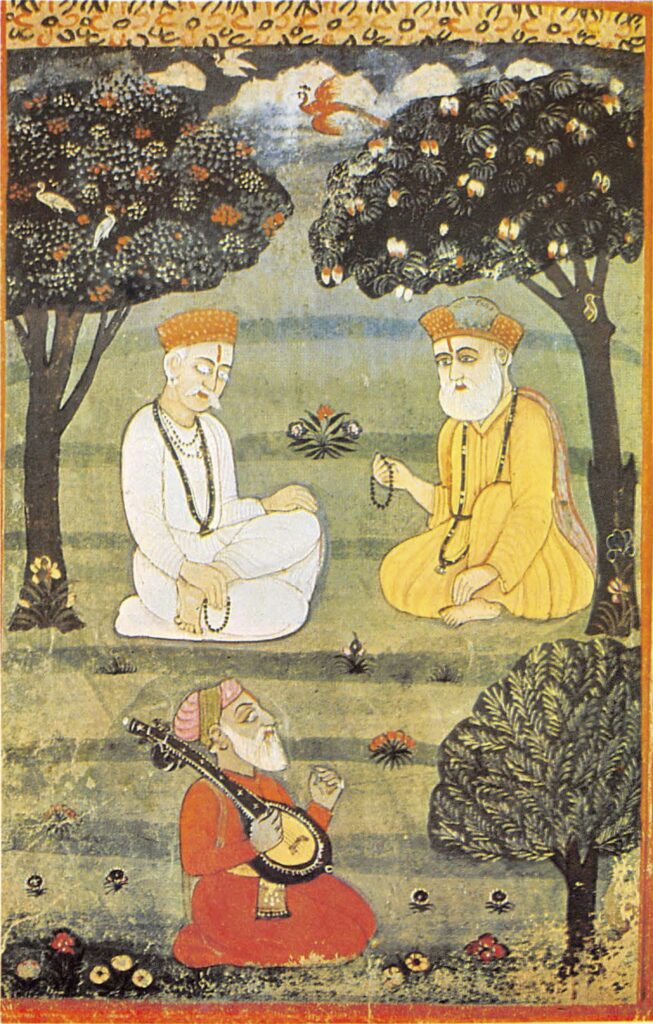
Nanak (right) and Mardana (foreground) with Bhagat Kabir (left). This painting is found in the B-40 Janamsakhi, written and painted in 1733. The painting was made by Alam Chand Raj
These two developments provided ground for a third, the acquisition of armed power. After the martyrdom of Gurū Arjan (1606), a conflict with the Mughal authorities could not be long avoided. The military power of the Gurüs reached its apex under the tenth and last Gurū, Gobind Singh (1666-1708). In 1699 he sought to weld his followers into a militant community (Khālsa’) by prescribing a common baptism for men of all castes and appointing the items everyone had to carry, including the dagger or sword (kirpān), which was part of the public bearing of a professional soldier of the time.
Immediately after Gurū Gobind Singh’s death at Nander in the Deccan (1708), his disciple Banda Bahādur returned to the North and raised a massive plebeian rebellion, in which Sikhs, including many fresh converts, joined along with discontented zamindars. He operated over large portions of the Panjab and Haryana plains, retiring to the hills for some time. The rebellion was ultimately suppressed, and Banda was executed in 1716. A period of demoralization and division followed, but recovery began as Mughal power collapsed under the impact of Nādir Shāh’s invasion (1739) and the repeated invasions of Ahmad Shah, the Afghan ruler (1747-73). From the 1750s onwards, the Sikh dals and misals (groups) became more and more powerful, led by individual chiefs (sardārs), who organized troops of increasingly professional mounted musketeers. Many of the chiefs came from peasant or artisan stock, like one of their foremost leaders at this time, Jassa Singh, reputed to be originally a carpenter. A semblance of unity was sought to be maintained by the tradition of an annual ‘sarbat Khālsa‘ at Chak Gurū (Amritsar); but dissensions grew apace, and each chief tended to carve out a separate territory for himself. The process was at last checked by Ranjit Singh (1780-1839), who established a traditional kingdom in the Punjab, ostensibly in the name of the Khālsa.
Islam: Sixteenth Century
Islam in India remained ideologically so closely linked to the main currents of Islamic thought transmitted through Arabic and Persian that it may not perhaps be wholly correct to speak of “Indian Islam” as an isolated compartment within the larger world of Islam. Such specificities in customs and beliefs as existed here were partly linked to the fact that India had much greater association with Iran and Central Asia than with the Arab countries. The continued co-existence with Hinduism brought into focus, in course of time, the problem of assessing non-Muslim faiths and beliefs. Sufism or Muslim mysticism, whose ‘chains’ (silsilahs) came from Iran and Central Asia, found a congenial soil in India. By the sixteenth century Sufism had been accepted by most orthodox theologians as a permissible discipline so long as the formal requirements of Sharīa, the law and ritual of Islam, were met. But the comfortable arrangement was seriously disturbed when mysticism opened the doors to the pantheistic doctrines and speculations of ibn al-‘Arabi (d. Damascus, 1240).
It may be justly held that ibn al-‘Arabi’s views were a bold but logical elaboration of the sufic concept of communion with God (fana). With him Separation, from being unnatural, became illusory, and the communion, from being the ultimate object, became the only eternal Reality. His doctrine of Wahdat al-Wujüd (Unity of Existence) had, by the latter half of the fourteenth century, begun to influence sufic circles in India and, despite opposition, had steadily gained adherents. For a country like India, where Islam’s co-existence with the totally different religious tradition of Hinduism could not but lead to inner questioning, ibn al- Arabi’s doctrines seemed to offer a persuasive explanation of diversity that belonged only to the sphere of illusion. Alongside this, there was the proposition of the Perfect Man (insān al-kāmil), in which ibn al-‘Arabi idealized the mystic guide (shaikh) as ‘a microcosm in whom the One is manifested to Himself. This vision inevitably supplemented or reinforced the concept of mahdi, the reformer and redeemer coming in advance of the Day of Judgement, the expectation of whose arrival was part of popular Muslim beliefs. The two concepts could influence each other, and as the close of the first millennium of Islam drew near (AH 1000 = AD 1592), they produced a millenary wave.
The Mahdawi movement was the first indication of the new intellectual turbulence. Saiyid Muhammad of Jaunpur (d.1505), a well-traveled scholar, proclaimed himself Mahdi. Apparently, the hope for redemption by following the Mahdi’s message and his call for ethical conduct, continued to win followers for his sect, who began to establish their communities (da ‘iras) at various places. Theologians tirelessly denounced them; but the sect survived.
In the last quarter of the sixteenth century in the Kabul province of the Mughal Empire there arose another sect with similar millenary tendencies, except that its founder Bāyazid (Miyän Raushan) (d.1585) claimed that he was a Prophet (nabi), and not a Mahdī. Believing in a pantheistic mysticism, he envisioned the state of sukunat, where the self merged with God. His refusal to countenance anyone who refused to accept his message helped forge the Raushaniyas into a militant sect among the Afghans, in whose language (Pashtu) his book Khairu i Bayān was composed. The Raushaniya militancy led to a long war with the Mughals, during which the sect was suppressed.
Akbar: A Supra-religious Sovereignty
The great upheaval in thought that was to come under Akbar (emperor, 1556-1605) had its origins partly at least in the same two intellectual impulses of Pantheism and the Messiah-cult, which we have just discussed. Akbar’s religious interests initially lay within traditional Islam. His splendid city of Fatehpur Sikri, dominated by the great mosque, was built early in the 1570’s in honour of Shaikh Salim Chishti (d.1572), the sūfi saint. But in the 1570’s Shaikh Taju’ddin, a protagonist of ibn al-’Arabi, introduced his principal concepts at the Court. Shaikh Mubārak (d.1593) gained in influence, and not only had he read ibn al- Arabi and the Iluminationist (Ishrāqi) doctrines of Shihäbu’ddin Maqtūül (twelfth century), but had also been suspected of Mahdawi inclinations. The popular belief in the need of renewal at the end of the first millennium of Islam, and of a reformer for the purpose, lay partly behind Akbar’s direction in 1582 for the compilation of the Tarīkh-i Alafi, a history of the millennium beginning with the death of the Prophet. Akbar himself could be seen as such a reformer, while being identified as the Perfect Man in the ibn al-’Arabi tradition. An early limited application of this concept was attempted in the mahzar of 1579. This was a statement signed by leading Muslim theologians at the court, declaring that Akbar, in his position as a Just Sultan, was entitled to exercise limited powers of interpretation and elaboration of Muslim law, which was to be binding on all Muslims.
Akbar’s religious interests initially lay within traditional Islam. His splendid city of Fatehpur Sikri, dominated by the great mosque, was built early in the 1570’s in honour of Shaikh Salim Chishti (d.1572), the sūfi saint. But in the 1570’s Shaikh Taju’ddin, a protagonist of ibn al-’Arabi, introduced his principal concepts at the Court.
The growing influence of pantheism, however, soon took matters beyond the rather modest and sectarian position assigned to the Emperor in the mahzar. Discussions had taken place in the presence of Akbar, among representatives of Sunni Muslim scholars, at a special building, the “ibadatkhana (house of prayer), at Fatehpur Sikri. These discussions and debates were now extended to involve Muslim divines, Sunni and Shi’a, şūfis and rational scholars (hakims), and, subsequently, Brahman scholars, other Hindu recluses, Jains, Parsis and Christians (Jesuits), whose first mission reached the court in1580. These discussions convinced Akbar that no single interpretation of Islam was correct or even forthcoming, and further that no single religion could be true, but that all drew, but only in part, upon the same Truth. It was for him, as the chosen man of God, to assist in the realization of a consciousness of Absolute Peace (Sulh-i Kul) in order to prevent idle strife between the votaries of different religions and factions. It was held that both “religion (din) and the, secular world (duniya)” were patterns drawn by “the cloud of duality,” that is, by consciousness of an existence separate from God. This being so, all religions were to be tolerated, but did not need to be followed.
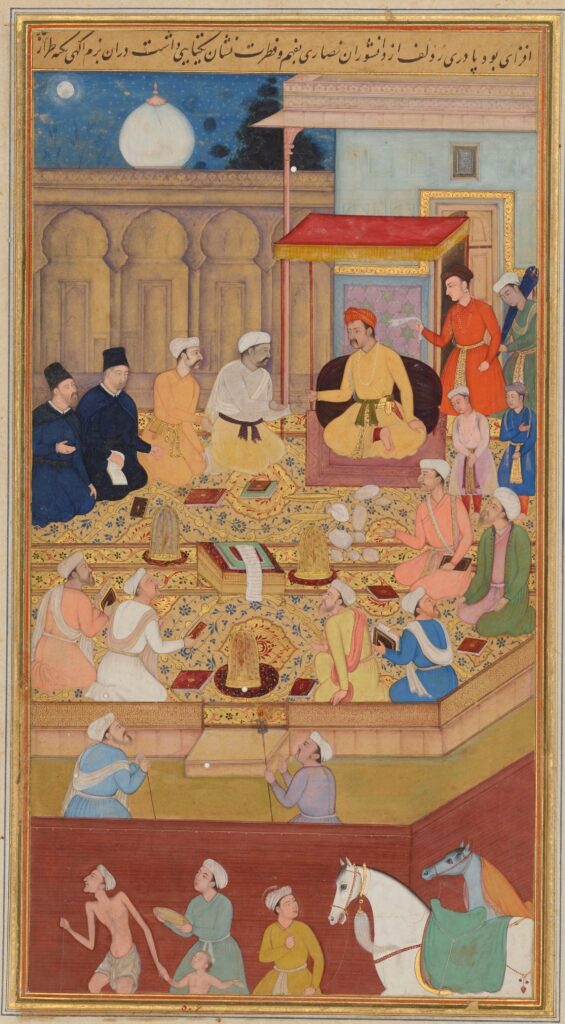
Jesuits at Akbar’s court
For an elite corps of disciples (irādat-gazinān), there was prescribed by Akbar a total submission to the imperial preceptor and certain principles and code of conduct, which his son Jahangir summed up as follows:
Let the disciples not blacken and spoil their time by engaging in hostility with any religious community and let them follow in their relations with members of all religious communities the path of Absolute Peace (Sulh-i Kul). Let them not kill any animal by their own hand, nor wear weapons except in battle or chase… Respect must be shown to the Sun and the Moon, which exhibit the Light of God, according to the degrees of each. God must be conceived as the true Creator and Cause in all times and circumstances, and one should so meditate on this that, whether in seclusion or in company, one’s thought should not be away from God for a single moment.
It may be mentioned that there is no sanction for the belief that Akbar wished to institute any new religion or that it was called Din-i llāhī.
The growing influence of pantheism, however, soon took matters beyond the rather modest and sectarian position assigned to the Emperor in the mahzar. Discussions had taken place in the presence of Akbar, among representatives of Sunni Muslim scholars, at a special building, the “ibadatkhana (house of prayer), at Fatehpur Sikri. These discussions and debates were now extended to involve Muslim divines, Sunni and Shi’a, şūfis and rational scholars (hakims), and, subsequently, Brahman scholars, other Hindu recluses, Jains, Parsis and Christians (Jesuits), whose first mission reached the court in1580.
The policy of equal treatment of all religions (as distinct from a simple policy of tolerance) that Akbar enforced, permitting full freedom of religious expression, conversion and construction of places of worship to all, was consistent with his views as they came to be formulated by the early 1580’s. It was, perhaps, a policy for which it was not easy to find a parallel in the contemporary world – a fact underlined with great pride by his son. It is, however, more likely that Akbar’s own views took direction, because a policy of tolerance was politically very useful and had, indeed, been adopted much before his philosophical views took the form they did in the last twenty- five years of his life. His minister Abu’l Fazl declared that sovereignty is itself in the nature of farr-i izadi, God’s light, and the sovereign, like God, was parent to all mankind; it was therefore his function to ensure that “out of differences of religion, there does not arise the dust of antipathy.” This declaration, it will be seen, draws not on any philosophical or religious tradition, but on a simple assertion of the Sovereign’s absolute power, and the obligation that such absoluteness imposed on him, to keep all his subjects contented.
It is, however, more likely that Akbar’s own views took direction, because a policy of tolerance was politically very useful and had, indeed, been adopted much before his philosophical views took the form they did in the last twenty- five years of his life.
Inter-Religious Investigation
Akbar’s proclamation of belief in pantheism and șulh-i kul, in its turn, had some significant ideological consequences, in that it suddenly threw open orthodox beliefs to criticism ôn the most delicate issues of ethics and theology. Internally, it created within Islam, a recognized niche for the Shi’ite trend in spite of considerable polemics existing between Sunnis and Shi’as. It provoked restatements of orthodox position, while it also generated a fresh interest in reason and science. Finally, a most interesting movement was fostered among Muslims towards a study of Brahmanical texts and of Vedānta, with a view to obtaining a knowledge of “truth” as perceived by Hindus. Akbar initiated a series of translations of Sanskrit works, among which the religious literature included the Atharva-veda, the Mahābhārata, and the Rāmāyana, while the Yogavasishtha was translated for Akbar’s eldest son Salim (the later Jahāngir). In the Ai’n-i Akbarī, Abūl Fazl was able to give a fairly cogent and accurate description of the various Hindu schools of philosophy, theology, beliefs and laws, based on a fresh scrutiny of the texts through translations made “after much difficulty”. Such scrutiny exhibited much common ground between Islam and Hinduism, since “though in some of the purposes and arguments there is room for dispute, it became established that the Hindus believe in the worship of God and in monotheism” (Abū’l Fazl). There is a greater appreciation of the logic of the Karma doctrine; and later, with Jahāngir, came the recognition that Vedānta “is the knowledge of taşawwuf (mysticism)”, presumably because it was pantheistic.
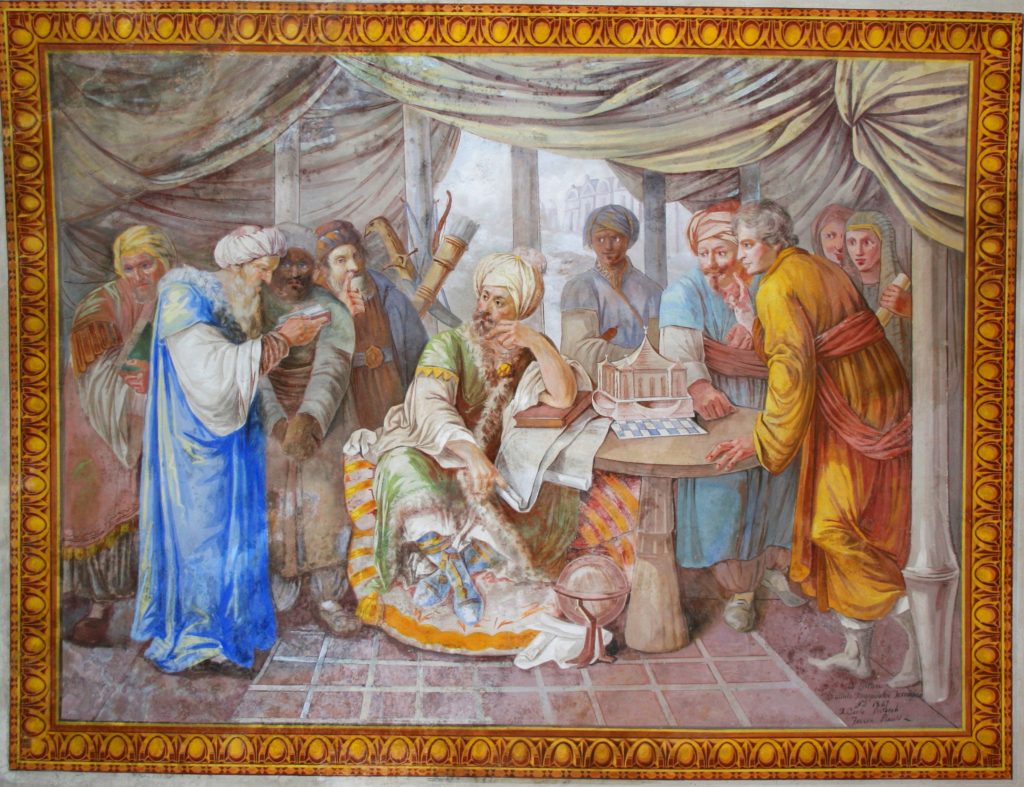
A painting depicting the scenes of the Ibādat Khāna. (Wikipedia Commons)
Islam’s recognition of Hinduism reached its culmination in Dara Shukoh (1615-59), the eldest son of Emperor Shähjahān. Därā began his intellectual career with an immersion in Muslim mysticism through attachment to the Qadiriya order of Mian Mir (d.1635) and Mulla Shah Badakhshi (d.1661); and his early writings were on Muslim mystics. But interest in monotheism and mystic practice led him to the composition of the Majma ‘u-l Bahrain (‘the mingling of two oceans’) in 1654-55. In this tract he explains the major terms and concepts used in Hindu spiritual discourse, and sees an identity between the Hindu and Muslim seekers of God, in all things except language. In 1657 came what was, from the philosophical point of view, the most important effort: a translation of fifty-two Upanishads, under the title Sirru’l Asrar, the Great Secret, a faithful rendering of very difficult texts.
Islam’s recognition of Hinduism reached its culmination in Dara Shukoh (1615-59), the eldest son of Emperor Shähjahān.
This was in some respects a momentous event, since it was this translation which, from its being rendered into Latin by Anquetil Duperron (1801-02), led ultimately to a world-wide recognition of the philosophical richness of these ancient texts. In 1655-56 at Dara Shukoh’s instance Habibullah made a fresh translation of Yogavasishtha.
Indicative of the spirit of the times is a work already referred to, the Dabistān (‘School), written in 1653 by an author who does not divulge his name or religion, but incidentally gives many facts about himself, which suggest he was the member of a Parsi sect, with the pen-name ‘Mobid’. He set out to write in Persian a work giving a truthful, unbiased account of all religions, and so deals in his work with the Parsis, Hindus, Buddhists (Tibetan), Jews, Christians and Muslims, along with different sects within each religious tradition. Most of the information was gathered by the author himself by his reading of the writings of the votaries of each sect or by his conversations with them. His linguistic equipment appears to have been considerable; and it is doubtful whether a work of this kind existed in any other language at this time. Clearly, even if the author was not a Muslim, but a leading light of a Parsi sect, his readership, given the language in which he wrote, consisted largely of Muslims. That the interest it evoked among them was widespread is shown by the large number of manuscripts of the work that have survived.
Islam: Major Currents after Akbar
The freedom of religious discussion accorded to all under Akbar assisted in the transformation of Shi’ism from a ‘heresy’ into a recognized variant of Islam in India. Qāzi Nūrullah Shustarī (1549-1610) was the first isnā- ‘asharī Shi’a theologian in India to have left important writings. Disdaining taqiyya (or permitted dissimulation), expressly on account of the freedom accorded under Akbar, he openly defended Shi’ite position against Sunni criticisms. He died in 1610 as a result of physical punishment inflicted on him at Jahāngir’s orders and is considered a Shi’a martyr. Though the details of the incident are obscure, it was apparently not a part of any general persecution of the Shi’as. Immigrants from Iran, who were mostly Shi’as, held high offices in the Mughal empire; and Shī’a observances were publicly held. Haidarabad in the Deccan in the seventeenth century and Lucknow and Faizabad in Awadh in the eighteenth, became important centres of Shi’ite learning.
Muslim or Sunni orthodoxy responded in various ways to challenges from the free airing of views hitherto thought to be unacceptably heterodox. How complex the responses could be is shown by the ideas of Shaikh Ahmad Sirhindi (1564-1624). His first surviving work, a rather slight tract, is devoted to a refutation of Shi’a beliefs (Risāla dar radd-i rawāfiz). His strong attachment to the Shari’a was displayed in his hostility to Akbar’s policies of tolerance and in his bitter opposition to Hindus and Hindu beliefs that he gives expression to in his letters soon after Akbar’s death. But he had in the meantime (1600) become a disciple of the Naqshbandi mystic Bãqi Billāh (d.1603); and from this point onwards he became increasingly concerned with Ibn al-‘Arabi’s theories of Unity of Existence (wahdat al-wujud) and the Perfect Man. His acceptance of the first idea was only partial. The seeker, he asserted, must transcend this notion in order to grasp separateness, the unity being for him now, only the unity of all that he sees, for in the final stage he looks only at God and none else (wahdat ash- shuhud). A rigorous conformity with the Sharī’a was to him as much a requisite for the mystic as for anyone else; and he condemned all innovations. Ibn al-‘Arabi’s theory of the Perfect Man was, on the other hand, incorporated in Sirhindi’s own concept of the qaiyum (‘the maintainer ‘). The possessor of gnosis (ãrif). by being the Perfect Man, is chosen as the qaiyüm, or God’s vizier or vicegerent, and thus attains a function assigned previously to prophets. This function is identified with yet another- that of the renovator (mujaddid) of Islam in its second millennium (alf-i șān). It was clear that to him and his followers both the offices of qaiyüm and mujaddid were united in Shaikh Ahmad himself.
In Mughal India Shaikh Ahmad’s seems to have been the last major statement of a claim to be the Chosen Man within the framework of Islamic theology. Predictably, it invited criticism, notably from ‘Abdu’l Haqq Muhaddiş; and Emperor Jahāngir had Sirhindi briefly imprisoned (1619).
There was, by the side of Shaikh Ahmad’s mystical revivalism, a restatement of the orthodox position in terms of what might be called the Islam of Ghazāli’s conception, a combination of Law (Sharı’a) and Mysticism (Tariqa). The restatement was, by definition unoriginal, though much learning and care often went into it. ‘Abdu’l Haqq Muhaddis (1551 1642), already mentioned, was a prolific writer on Muslim law and a recognized authority on hadīş, or sayings of the Prophet. Yet he fully accepted the sufic tradition, being the author of a volume of biographies of Indian mysties; and he inherited from his father a belief in wahdat al-wujüd. He could also sympathetically refer to the radical monotheist Kabir, while recognizing him to be neither Muslim nor Hindu.
Emperor Aurangzeb (reigned, 1659-1707), despite his patronage of the descendants of Shaikh Ahmad Sirhindi, could not accept the latter’s extreme spiritual claims, and generally supported traditional and legal Islam. This was particularly shown by his commissioning of the massive work Fatāwā-i ‘Alamgiri, prepared in Arabic by Shaikh Nizām with the assistance of many scholars and designed to be a comprehensive compendium of jurists’ opinions on diverse matters, systematically arranged.
The Mughal Empire in its decline brought forth the important Muslim thinker and jurist, Shäh Walilullah (1702- 1762). He was exceptional in reflecting on the oppression of peasants and craftsmen as factors behind the decline of the Empire; an oppression he ascribed to growth of love of luxury among the ruling classes. He sometimes linked the enforcement of the various elements of the Shari’a to particular social needs, though these were rather naively formulated. Thus usury is prohibited, because if it is practiced, people would tend to abandon agriculture and crafts altogether in pursuit of usurious gain. On other matters, such as concerning Shi’as, he took an orthodox Sunni position, and translated Sirhindis polemical anti-Shi’a tract into Arabic. He was fairly harsh on non-Muslims who were to be the hewers of wood and drawers of water under an ideal Sharī’a regime. Shäh Waliullah largely accepted the sufic heritage of Islam. Claiming to be a spiritual guide (murshid) himself, he propounded an ‘inspired’ (not reasoned) reconciliation of wahdat al-wuyjüd with Sirhindī’s theory of wahdat ash-shuhūd. Hereafter the element of pantheism in Indian Islamic thought seems to have increasingly receded into the background.
Emperor Aurangzeb (reigned, 1659-1707), despite his patronage of the descendants of Shaikh Ahmad Sirhindi, could not accept the latter’s extreme spiritual claims, and generally supported traditional and legal Islam. This was particularly shown by his commissioning of the massive work Fatāwā-i ‘Alamgiri, prepared in Arabic by Shaikh Nizām with the assistance of many scholars and designed to be a comprehensive compendium of jurists’ opinions on diverse matters, systematically arranged.
Christianity
Syrian Christian and Jewish communities had long lived on the Kerala coast, the Red Sea trade keeping alive their contacts with easternm Christendom and Judaism. With the arrival of the Portuguese, Catholic Christianity also arrived: Francis Xavier (1506-52) was the great pioneer of Catholic missionary activity. Another Jesuit, the Italian Robert de Nobili (1577- 1656), tried the innovation of presenting Christianity in Indian garb, incorporating the caste system by having separate churches for the upper and the untouchable castes. Much use was made by the Jesuits of the printing press to produce literature on Christianity in Indian languages. Goa became an archdiocese in 1557. The decline of Portuguese power, however, affected Catholic activity, and in 1653 a number of Syrian Christian communities in Kerala, which had been previously pressed or persuaded into accepting Papal authority, shifted to their older allegiance to Antioch. In 1759 Portugal itself suppressed the Jesuit order (‘Society of Jesus’). But Catholicism long remained the only version of Christianity that Indians could more easily become familiar with. The Dabistān, in its chapter on Christianity, provides a fairly accurate statement of Catholic beliefs, but the author seems entirely unaware of the Protestant Reformation.
The direct effect of Christianity on the mainstreams of Indian religious thought, whether Hindu or Islamic, was as yet limited; the impact became significant only in the first half of the nineteenth century.
The first Lutheran missionaries under Danish patronage, arrived in 1706 at Tranquebar (Tamilnadu), and one of them, Ziegenbalg, translated the four Gospels into Tamil in 1714. The direct effect of Christianity on the mainstreams of Indian religious thought, whether Hindu or Islamic, was as yet limited; the impact became significant only in the first half of the nineteenth century.
ARCHIVE
My Future Visit to America, 1883
— Anandibai Joshi
. . . Our subject to-day is, “My future visit to America, and public inquiries regarding it.” I am asked hundreds of questions about my going to America. I take this opportunity to answer some of them. . .

Anandibai Joshi
Why do I go to America? I go to America because I wish to study medicine. I now address the ladies present here, who will be the better judges of the importance of female medical assistance in India. I never consider this subject without being surprised that none of those societies so laudably established in India for the promotion of sciences and female education have ever thought of sending one of their female members into the most civilized parts of the world to procure thorough medical knowledge, in order to open here a College for the instruction of women in medicine. There is probably no country that would not disclose all her wants and try to stand on her own feet. The want of female doctors in India is keenly felt in every quarter. Ladies both European and Native are naturally averse to expose themselves in cases of emergency to treatment by doctors of the other sex. There are some female doctors in India from Europe and America, who, being foreigners and different in manners, customs and language, have not been of such use to our women as they might. As it is very natural that Hindu ladies who love their country and people should not feel at home with the natives of other countries, we Indian women absolutely derive no benefit from these foreign ladies. They indeed have the appearance of supplying our need, but the appearance is delusive. In my humble opinion there is a growing need for Hindu lady doctors in India, and I volunteer to qualify myself for one.
There is one College at Madras, and midwifery classes are opened in all the Presidencies; but the education imparted is defective and not sufficient, as the instructors who teach the classes are conservative, and to some extent jealous. I do not find fault with them. That is the characteristic of the male sex.
Are there no means to study in India? No. I do not mean to say there are no means, but the difficulties are many and great. There is one College at Madras, and midwifery classes are opened in all the Presidencies; but the education imparted is defective and not sufficient, as the instructors who teach the classes are conservative, and to some extent jealous. I do not find fault with them. That is the characteristic of the male sex. We must put up with this inconvenience until we have a class of educated ladies to relieve these men.
I am neither a Christian nor a Brahmo. To continue to live as a Hindu and to go to school in any part of India is very difficult. A convert who wears an English dress is not so much stared at. Native Christian ladies are free from the opposition or public scandal which Hindu ladies like myself have to meet within and without the zenana. If I go alone by train or in the street some people come near to stare and ask impertinent questions to annoy me. Example is better than precept. Some few years ago, when I was in Bombay, I used to go to school. When people saw me going with my books in my hands, they had the goodness to put their heads out of the window just to have a look at me. Some stopped their carriages for the purpose. Others walking in the streets stood laughing and crying out so that I could hear:—
“What is this? Who is this lady who is going to school with boots and stockings on?”
“Does not this show that the Kali Yuga has stamped its character on the minds of the people?”
Ladies and gentlemen, you can easily imagine what effect questions like these would have on your minds if you had been in my place!
Once it so happened that I was obliged to stay in school for some time, and go twice a day for my meals to the house of a relation. Passers-by, whenever they saw me going, gathered round me. Some of them made fun, and were convulsed with laughter. Others, sitting respectably in their verandahs, made ridiculous remarks, and did not feel ashamed to throw pebbles at me. The shopkeepers and venders spit at the sight of me, and made gestures too indecent to describe. I leave it to you to imagine what was my condition at such a time, and how I could gladly have burst through the crowd to make my home nearer!
If I go to take a walk on the Strand, Englishmen are not so bold as to look at me. Even the soldiers are never troublesome; but the Babus lay bare their levity by making fun of everything. “Who are you?” “What caste do you belong to?” “Whence do you come,” “Where do you go?” are, in my opinion, questions that should not be asked by strangers.
Yet the boldness of my Bengali brethren cannot be exceeded, and it is still more serious to contemplate than the instances I have given from Bombay. Surely it deserves pity! If I go to take a walk on the Strand, Englishmen are not so bold as to look at me. Even the soldiers are never troublesome; but the Babus lay bare their levity by making fun of everything. “Who are you?” “What caste do you belong to?” “Whence do you come,” “Where do you go?” are, in my opinion, questions that should not be asked by strangers. There are some educated native Christians here in Serampore who are suspicious; they are still wondering whether I am married or a widow; a woman of bad character or ex-communicated! Dear audience, does it become my native and Christian brethren to be so uncharitable? Certainly not. I place these unpleasant things before you, that those whom they concern most may rectify them, and those who have never thought of the difficulties may see that I am not going to America through any whim or caprice.
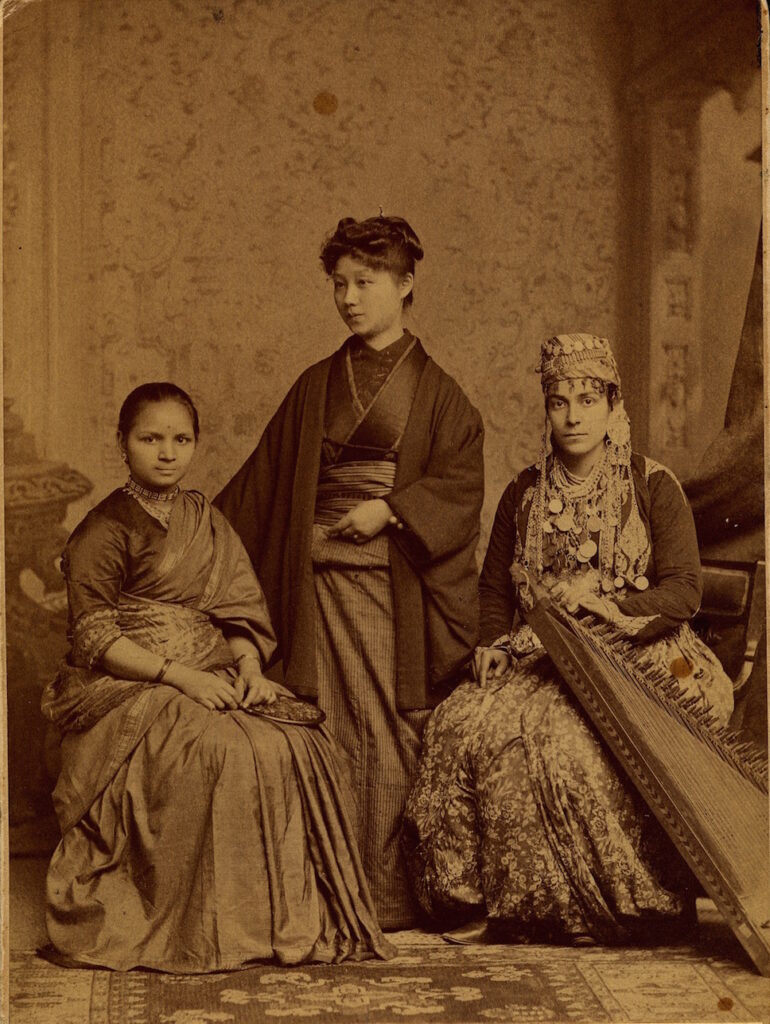
Anandibai Joshee graduated from Woman’s Medical College of Pennsylvania (WMCP) in 1886. Seen here with Kei Okami (center) and Sabat Islambooly (right). All three completed their medical studies and each of them was among the first women from their respective countries to obtain a degree in Western medicine.
Why do I go alone? It was at first the intention of my husband and myself to go together, but we were forced to abandon this thought. We have not sufficient funds; but that is not the only reason. There are others still more important and convincing. My husband has his aged parents and younger brothers and sisters to support. You will see that his departure would throw those dependent upon him into the arena of life, penniless and alone. How cruel and inhuman it would be for him to take care of one soul and reduce so many to starvation! Therefore I go alone.
Shall I not be excommunicated when I return to India? Do you think I should be filled with consternation at this threat? I do not fear it in the least. Why should I be cast out, when I have determined to live there exactly as I do here? I propose to myself to make no change in my customs and manners, food or dress. I will go as a Hindu, and come back here to live here as a Hindu. I will not increase my wants, but be as plain and simple as my forefathers, and as I am now. If my countrymen wish to excommunicate me, why do they not do it now? They are at liberty to do so. I have come to Bengal and to a place where there is not a single Maharashtrian. Nobody here knows whether I behave according to my customs and manners, or not. Let us therefore cease to consider what may never happen, and what, when it may happen, will defy human speculation.
Shall I not be excommunicated when I return to India? Do you think I should be filled with consternation at this threat? I do not fear it in the least. Why should I be cast out, when I have determined to live there exactly as I do here? I propose to myself to make no change in my customs and manners, food or dress. I will go as a Hindu, and come back here to live here as a Hindu.
What will I do if misfortune befall me? Some persons fall into the error of exaggerated declamation, by producing in their talk examples of national calamities and scenes of extensive misery which are found in books rather than in the world, and which, as they are horrid, are ordained to be rare. A man or a woman who wishes to act does not look at that dark side which others easily foresee. On necessary and inevitable evils which crush him or her to dust, all dispute is vain. When they happen they must be endured, but it is evident they are oftener dreaded than experienced. Whether perpetual happiness can be obtained in any way, this world will never give us an opportunity to decide. But this we may say, we do not always find visible happiness in proportion to visible means. It is not a thing which may be divided among a certain number of men. It depends upon feeling. If death be only miserable, why should some rejoice at it, while others lament? On the other hand, death and misery come alike to good and bad, virtuous and vicious, rich and poor, travelers and housekeepers; all are confounded in the misery of famine and not greatly distinguished in the fury of faction. No man is able to prevent any catastrophe. Misery and death are always near, and should be expected. When the result of any hazardous work is good, we praise the enterprise which undertook it; when it is evil, we blame the imprudence. The world is always ready to call enterprise imprudence when fortune changes.
Some say that those who stay at home are happy, but where does their happiness lie? Happiness is not a readymade thing to be enjoyed because one desires it. Some minds are so fond of variety that pleasure if permanent would be insupportable, and they solicit happiness by courting distress. To go to foreign countries is not bad, but in some respects better than to stay in one place. [The knowledge of history as well as other places is not to be neglected. The present state of things is the consequence of the former, and it is natural to enquire what were the sources of the good that we enjoy or the evils we suffer. To neglect the study of sciences is not prudent; it is not just if we are entrusted with the care of others. Ignorance when voluntary is criminal, and one may perfectly be charged with evils who refused to learn how he might prevent it. When the eyes and imagination are struck with any uncommon work, the next transition of an active mind is to the means by which it was performed. Here begins the true use of seeing other countries. We enlarge our comprehension by new ideas and perhaps recover some arts lost by us, or learn what is imperfectly known in our country. So I hope my going to America will not be disadvantageous.]
[I have seriously considered our manners and future prospects and find that we have mistaken our interests.] Everyone must do what he thinks right. Every man has owed much to others. His effort ought to be to repay what he has received. [This world is like a vast sea, mankind like a vessel sailing on its tempestuous bosom. Our prudence is its sails; the sciences serve us for oars; good or bad fortunes are the favorable or contrary winds and judgement is the rudder; without this last the vessel is tossed by every billow and will find ship-wreck in every breeze.] Let us follow the advice of Goldsmith who says: “Learn to pursue virtue of a man who is blind, who never takes a step without first examining the ground with his staff.” I take my Almighty Father for my staff, who will examine the path before He leads me further. I can find no better staff than He.
I ask my Christian friends, “Do you think you would have been saved from your sins, if Jesus Christ, according to your notions, had not sacrificed his life for you all?” Did he shrink at the extreme penalty that he bore while doing good? No, I am sure you will never admit that he shrank! Neither did our ancient kings Shibi and Mayurdhwaj. To desist from duty because we fear failure or suffering is not just. We must try. Never mind whether we are victors or victims. Manu has divided people into three classes.
And last you ask me, why I should do what is not done by any of my sex? [To this I cannot but say that we are bound by the rights of society to the labours of individuals. Everyone has his duty and he must perform it in the best way he can; otherwise his fear and backwardness are supposed to be a desertion of duty. It is very difficult to decide the duties of individuals. It is enough that the good of the whole is the same with the good of an individual. If anything seems best for mankind, it must evidently be best for an individual and that duty is to try one’s best, according to his sentiments to do good to the society.] According to Manu, the desertion of duty is an unpardonable sin. So I am surprised to hear that I should not do this, because it has not been done by others. [I cannot help asking them in return “who should stand the first if all will say so?”] Our ancestors whose names have become immortal had no such notions in their heads. I ask my Christian friends, “Do you think you would have been saved from your sins, if Jesus Christ, according to your notions, had not sacrificed his life for you all?” Did he shrink at the extreme penalty that he bore while doing good? No, I am sure you will never admit that he shrank! Neither did our ancient kings Shibi and Mayurdhwaj. To desist from duty because we fear failure or suffering is not just. We must try. Never mind whether we are victors or victims. Manu has divided people into three classes. [Those who do not begin for fear of failure, are reckoned among the meanest; those who begin but give it up through obstacles belong to the middle class; and those who begin but [do] not give it up till they attain success, through repeated difficulties, are the best. Let us not therefore be guilty of the very crime we absolutely hate. The more the difficulties, the greater must be the attempt. Let it be our boast never to desist from anything begun. Sufferance should be our badge.]
The Hindu Sea Voyage Movement in Bengal, 1894
— Standing Committee on the Hindu Sea-Voyage Question
. . . Hindoo young men, in appreciable numbers, proceed to England to receive education in the universities, to qualify for the Bar, to compete for the Indian Civil Service, for the Medical Service, and in various other ways to equip themselves for the practical work of life. The number is on the increase, of gentlemen, who, if all restrictions were removed, would like to proceed to Europe for purposes of travel, and all the pleasures and profits it brings. There is a growing desire also in some quarters to make excursions to the West for commercial purposes. It cannot be a matter of indifference to the Hindoo community if the gentlemen who come back from Europe after perfecting their education and enlarging their experience are to be received back into society or excluded from it. It cannot be a matter of indifference also whether adventurous gentlemen should have free scope given to them in the matter of travel, or they should have their ambition curbed by social restrictions. The welfare of a country is the welfare of its individuals, and no subject can be of greater national importance than the discussion of the limits which custom may have prescribed to the liberty of movement of the men who compose the nation.
On economic grounds alone the question of sea-voyages is of great practical importance. People may feel themselves driven by sheer necessity to try their fortune in remote countries, to seek new careers, learn the arts of foreign nations, and come back home with added qualification and augmented resources. If these poor, adventurous souls should be denied the opportunities they sought, it is not they alone that would be sufferers, but the country as well. Social restrictions, however, are likely to prove an effectual barrier to most of them, and the legitimacy of those restrictions therefore deserves serious consideration. The possibility of natives of India marching out in quest of occupation to distant lands may now appear to be too remote, and as a dream. But there are reasons to believe that if the restrictions were repealed or relaxed, opportunities of adventure would often be utilized.
Hindoo society is governed by rules which have their basis in the Hindoo religion. That religion is enshrined in the shastras, of which the recognised, authoritative interpreters are the Pandits. The Pandits give their vyavasthas or ordinances founded upon the texts. These are accepted by the leaders of the different castes which make up society, and they thus come to regulate usage. On the subject of sea-voyage, therefore, the first thing necessary was to obtain the opinions of the Pandits. That step has already been taken. It was not of course to be expected that the opinion of every single Pandit in Bengal should be obtained, but many of the leading Pandits have been consulted. . . . The next step that was taken was to refer the subject to some of the leading members of Hindoo society, all of the higher castes, and their opinions have also been recorded. Attention may be specially called to the opinion of so distinguished an apostle of Hinduism as Bankim Chandra Chatterjee. Lastly, a large body of public opinion from various sources, which had been elicited by the discussion, has been set forth in its proper place. It includes the opinions as well of eminent Englishmen as of newspapers, Hindoo and English. These opinions have a value which must not be overlooked. Pandits interpret the shastras; social leaders judge practicability; but an intelligent public have also a right to be heard, for, unfettered by considerations of authority and custom, they are able to utter the voice of abstract reason. Mere reasonableness is not an excuse for an innovation, but it will hardly be denied that a practice which is manifestly contrary to reason cannot long remain unmodified, and that so long as it does exist it will work mischief. The opinions, therefore, of intelligent and educated men who are even outsiders to our society have an importance that should not be underrated. . . .
For a full appreciation of the issues involved in the sea-voyage question it is necessary to bear in mind a few well-known facts which may be thus stated:
- For a long time past the practice of eating things condemned by Hindoo rules or custom has been pretty common in Hindoo society, but the gentlemen who have indulged in such practices have not been put out of caste. Their number is growing. They include not merely schoolboys or wild young men, not merely a few insignificant people who might be regarded as the waifs and strays of society, but also and mainly, elderly, respectable, influential gentlemen, some of whom have been recognised as social leaders. In their own private residences or those of their friends, European or Native, in garden houses, in hotels kept by Europeans or Mohammedans, on steamers, in railway refreshment rooms, numbers of Hindoo gentlemen dine in the European style, and the orthodox members of society find it convenient to connive at these practices. Demand creates supply. Hence it is we find that restaurants where European dishes are offered, are multiplying. They are set upon largely frequented streets, and near offices and theatres. Year after year, in every town in which the Indian National Congress is held, it is found necessary by the organizers to make special arrangements for those delegates and visitors who are to live in the European style. In a word, the rules as regards orthodox living are every day trampled underfoot, and the violations are in no way punished.
- There was a time when it was considered an un-Hindoo practice to drink pipe-water. Not only is pipe-water drunk today by Hindus of unquestioned orthodoxy, but aerated waters, European wines and spirits, and medicines prepared by Europeans, are habitually consumed by large numbers of them. Bread, biscuits and confectionery of European or Mahomedan manufacture are also largely indulged in.
- Hindu society has not been able consistently to keep out of its pale all those who have made voyages to Europe. Some of them received recognition in society, at any rate among their friends and relations; and after their death, their sons and other relations have had no difficulty in being accepted as members of society, though no prayaschitta [penance] had ever been performed by them.
- Some of those that have made voyages to Europe have, on their return to this country, lived, permanently or for a time, with their relations. Many of their friends and relations have also dined with them on many occasions. Orthodox society has never ceased to recognise these friends and relations.
- Either for purposes of business or on pleasure trips, several Hindoos have made voyages to Rangoon, to Madras, to Ceylon. Nobody dreams of excommunicating them.
- Esteemed Hindoo gentlemen have on some occasions taken part, as host or guest, in entertainments, almost of a public character, conducted in the European style. The names of those who dined on the occasions have sometimes been reported in the newspapers, but orthodox society has never cared to take any notice of their errors.
- Hindoo Society has exhibited nothing like consistency, observed no definite principle, in dealing with those of its members who have made voyages to Europe. The same men that recognise them on one occasion do not recognise them on another. They dine with them today and decline to dine with them tomorrow. If they are to be excommunicated, those who have dined with them, or otherwise mixed with them in formal social intercourse on ceremonial occasions, should be excommunicated also. But the utmost that the ultra-orthodox members of the community seek to do is to omit to recognise only the travelled men, while they permit themselves to mix freely with men who have been tainted by association with the chief offenders.
What is the inference to be drawn from these facts? Obviously this, that it would not be fair or consistent to exclude from society men who had made only a voyage by sea without transgressing Hindoo rules of living. Surely it cannot be contended that a mere crossing of the sea is a grosser offence than living in a non-Hindu style, or even as gross as that. When open, or, at any rate, well-known violations of Hindoo rules of eating and drinking are connived at and excused, neither reason nor orthodoxy demands the exclusion of men who living as Hindoos had merely travelled to the West. . . That a voyage by sea as such, does not militate against Hinduism seems to be tacitly admitted by Hindoo society by the manner in which it has been treating Swami Vivekananda’s visit to America. The Swami, so far from being regarded as an apostate by reason of his visit, is being looked up to as a prince of Hindoos and the pride of Hinduism. It is inconceivable, therefore, that the sea-voyage movement should be opposed on grounds either of religion or logic. If there could be any objection to it, it would be its conservative rather than its revolutionary character. . .
Letter regarding the Movement, 1894
— Bankim Chandra Chatterjee
. . . The questions which you wish me to answer are such as are best answered by professors of the Dharma Sastras. I do not profess the Dharma Sastras, nor am I prepared to undertake the office of expounding them. But I have no objection to offer a few observations regarding the present agitation about sea-voyages by Hindus.
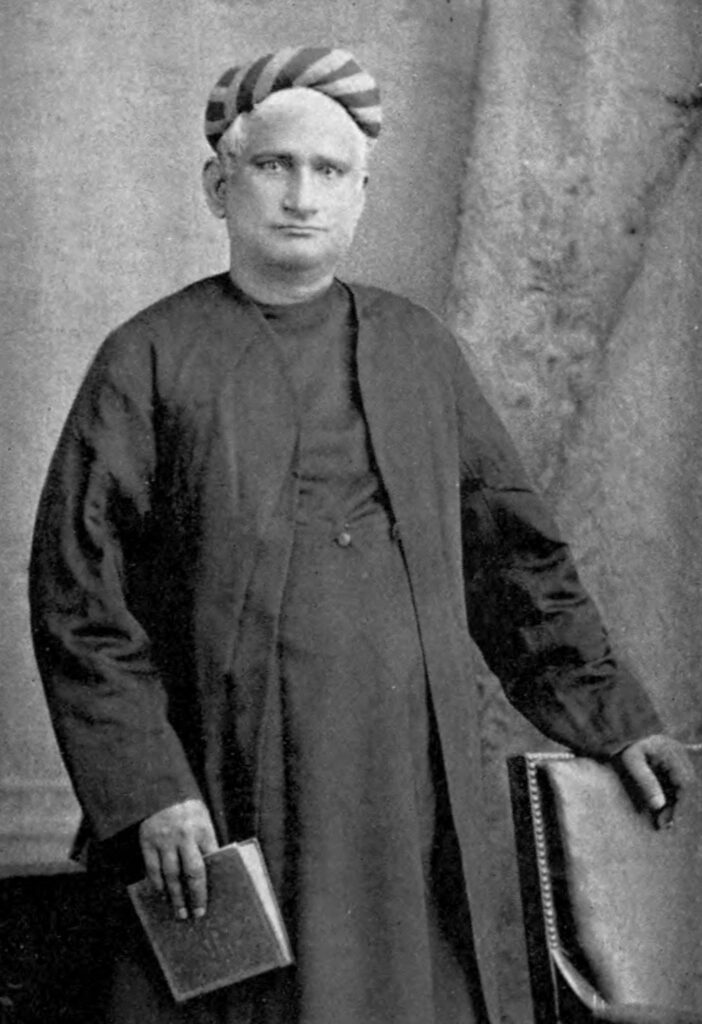
Bankim Chattapadhyay
In the first place, I do not believe that it is either possible or desirable to promote social reforms by invoking the authority of the Sastras. I had to object on the same ground to the late lamented Ishwar Chandra Vidyasagar’s proposals to suppress polygamy with the aid of the Sastras; and I have seen no ground since then to change my opinion. This opinion I hold on two grounds. The first is, that Bengali society is governed not by the Sastras but by custom. It is true, that very often custom follows the Sastras; but as often again custom conflicts with the Sastras. When there is such a conflict custom carries the day.
You seek to collect the behests of the Sastras, regarding sea-voyages, and to induce society to follow them;—are you prepared to induce society to be guided by the Sastras on all other matters as well? One of the precepts of the Dharma Sastras is, that it is the duty of the Shudras to perform menial offices for the Brahmins and other superior castes;—do the Shudras of Bengal follow the precept?
The second reason for my opinion is that if society were everywhere governed by the Sastras, it is doubtful whether the result will be social welfare. You seek to collect the behests of the Sastras, regarding sea-voyages, and to induce society to follow them;—are you prepared to induce society to be guided by the Sastras on all other matters as well? One of the precepts of the Dharma Sastras is, that it is the duty of the Shudras to perform menial offices for the Brahmins and other superior castes;—do the Shudras of Bengal follow the precept? The Sastras are not a guide here. Are any of you prepared to enforce this precept? Do you think that any endeavours to enforce it will succeed? Will a Sudra Judge of the High Court leave the bench, or will the prosperous Shudra zamindar leave the zamindar’s seat, to respectfully tend the feet of the Brahmin manufacturer of eatables? By no means. Bengali society obeys a portion of the Dharma Sastras according to its necessities. The rest it has cast off because of its necessities. The same feeling of necessity may induce it to cast off what still remains. What good then there is in seeking to ascertain the commands of the Dharma Sastras?
My own conviction is that it is impossible to carry out social reformation regarding any particular practice merely on the strength of the Sastras without religious and moral regeneration along the whole line. This I have tried to explain at length in my work on Krishna Charitra. I have already stated that society here is governed by custom, not by the Sastras. Reforms in custom can be achieved only when there is an advance in religion and morals along the whole line. The present agitation is the outcome of the advance that has already taken place. As society advances gradually in religion and morals, the objections against sea-voyages will disappear, or if any opposition should still continue to exist, it would be powerless. But so long as the full measure of advance is not attained, so long it will be impossible to make sea-voyages acceptable to society.
But it has also to be observed that none of us are aware of the exact measure of opposition which exists in Bengali society towards sea-voyages. I see that whoever commands the necessary means and is otherwise favorably circumstanced, does proceed to Europe when willing to do so. I have not come across a single instance in which the journey to Europe was abandoned out of respect to the authority of the Sastras. But I am also bound to admit that most of those who return from Europe remain outside the pale of Hindu society. It is a question whether the fault lies with them, or with Hindu society. On their return to this country they voluntarily keep away from Bengali society by adopting European habits and customs. They separate themselves from us by adopting foreign costumes, foreign habits of living, and foreign usages. Those who on their return from Europe did not adopt this course have in many instances been re-admitted into Hindu society. If gentlemen returning from Europe did generally resume habits and usages conformable to Hindu society, it is impossible to say that they would be as a body left outside its precincts.
I have not come across a single instance in which the journey to Europe was abandoned out of respect to the authority of the Sastras. But I am also bound to admit that most of those who return from Europe remain outside the pale of Hindu society. It is a question whether the fault lies with them, or with Hindu society.
Lastly, I have to point out that before deciding the question as to whether sea-voyages are in conformity to the Dharma Sastras of the Hindus, it is necessary to decide whether it is not in conformity to Dharma (religion) itself. Must we reject that which is conformable to religion but opposed to the Dharma Sastras, merely because it is opposed to the Dharma Sastras? Many will say that alone which is conformable to the Hindu Dharma Sastras is religion; and that which is not conformable to them is irreligion. I am not prepared to admit this. None of the older sacred books of Hindus say so. Krishna in the Mahabharata says— “Dharma is so called because it holds all. Know that for certain to be Dharma, which contributes to the general welfare.” If the Mahabharata is not guilty of a falsehood, if he whom the Hindus worship as the Divine Incarnation is not guilty of falsehood, then that which is for the general welfare is religious. Now, are sea-voyages for the general welfare or not? If they are, why should they be opposed because they do not happen to be encouraged by the Smritis? . . . Sea-voyages are conformable to religion because they tend to the general good. Therefore, whatever the Dharma Sastras may say, sea-voyages are conformable to the Hindu religion.
These excerpts have been carried courtesy the permission of Rahul Sagar and Juggernaut. You can buy To Raise a Fallen People, here.
ARCHIVE
New Leaders and Their Different Ideologies
After the failure of the non-cooperation movement, the Indian people had lost hope. Communal conflict between Hindus and Muslims wiped out the little resolve that still remained. But once a sense of awakening has come upon a nation, it cannot remain asleep for long. In just a few days, the public is back on its feet and ready for battle. Today, India is full of life and vigour again; it is awake. We may not see clear signs of a great mass movement, but the ground is certainly being prepared for it. Many new leaders with a modern sensibility are emerging. Young leaders are at the forefront this time, and youth movements are proliferating. Only young leaders are commanding the attention of patriotic-minded Indians. Even the tallest veteran leaders are being left behind.
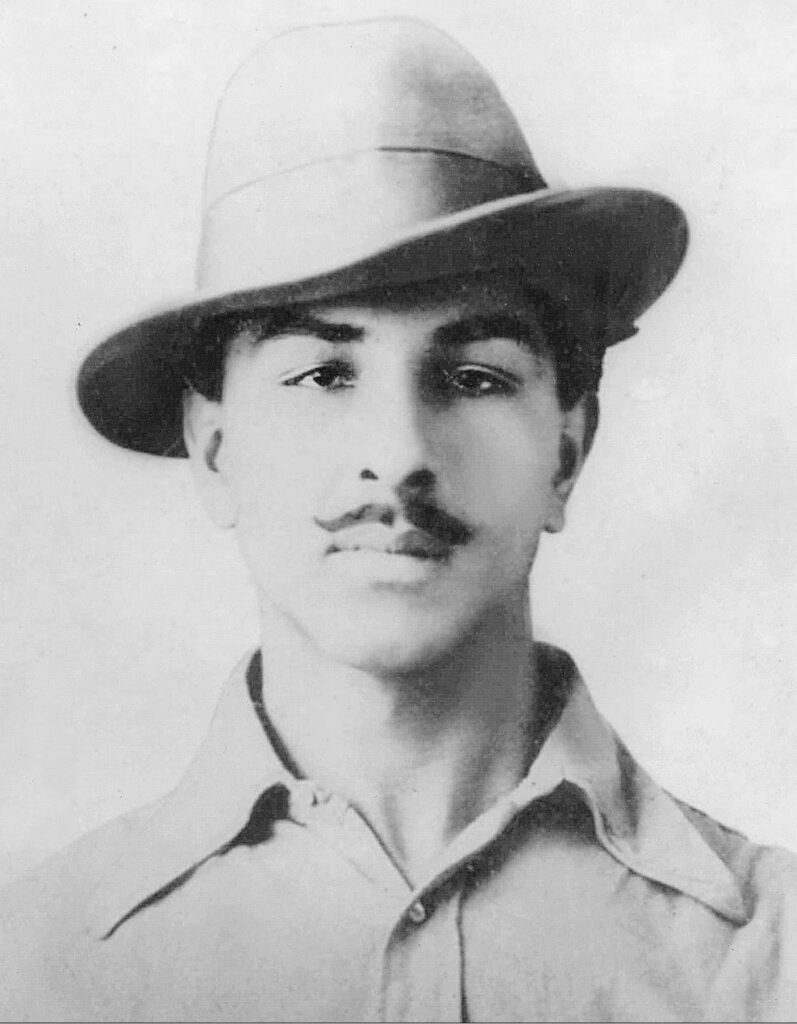
Bhagat Singh
Many new leaders with a modern sensibility are emerging. Young leaders are at the forefront this time, and youth movements are proliferating. Only young leaders are commanding the attention of patriotic-minded Indians.
The leaders who have gained prominence this time are the venerable Subhash Chandra Bose of Bengal and the eminent Pandit Jawaharlal Nehru. These are the two leaders who appear to be rising above all others in India and involving themselves in youth movements in particular. They are both uncompromising champions of Indian independence; both intelligent and genuine patriots. And yet, their ideologies are as different as night and day. One is believed to be a devotee and proponent of India’s ancient culture and the other a committed follower of western civilization. If one is regarded as tender-hearted and sensitive, the other is spoken of as a quintessential revolutionary. Our attempt in this essay will be to present their respective ideologies before the public, so that people understand the difference between the two and make up their own minds.
But before we examine the ideas of these two leaders, it is important to mention another who is a champion of independence just as they are, and is also a prominent figure in certain youth movements. Sadhu Vaswani may not be as well known as the leading lights of the Congress, he may not occupy a special place in the country’s political arena, yet his influence is apparent among the youth, who will shape the country’s future. The organization Sadhu Vaswani founded — Bharat Yuva Sangh — has a particular hold on young Indians. Vaswani’s ideology can be summed up in a single phrase: back to the Vedas. This call was first given by the Arya Samaj. It is based on the belief that the Almighty has poured all the knowledge of the world into the Vedas. No progress is possible beyond them. Therefore, the world has not and cannot achieve anything greater than the wonders our very own India had achieved in the ancient past! So that is the entire faith of people like Vaswani. Which why he says:
“Up until now, our politics has either considered Mazzini and Voltaire as its ideals, or it has sought inspiration from Lenin and Tolstoy. This, when they should know that they have far greater ideals in our ancient rishis…”
Vaswani is convinced that once upon a time, our country had reached the final summit of development and today there is no reason for us to move forward at all; we only need to go back to the past.
Vaswani is a poet. Everything about his ideology is poetic. He is also a great practitioner of religious dharma. He wants to establish ‘Shakti-dharma’. He says, ‘At this time we need shakti — power — more than ever. He does not use the word ‘shakti’ only for India. He sees the word as the path and means to a kind of Devi, a special godhead. Like a very emotional poet he tells us:
‘For in solitude have I communicated with her, our admired Bharat Mata and my aching head has heard voices saying — “The day of freedom is not far off.” Sometimes indeed a strange feeling visits me and I say to myself: Holy, holy is Hindustan. For still is she under the protection of her mighty Rishis and their beauty is around us, but we behold it not.’
It must be the poet’s lament that makes him declare, over and over like a man deranged or distracted: ‘Our mother is the greatest. She is the mightiest. No one alive can vanquish her!’ In this fashion, driven purely by emotion, he ends up saying things like this: ‘Our national movement must become a purifying mass movement, if it is to fulfill its destiny without falling into class war one of the dangers of Bolshevism.’
He believes that all one needs to do is to say — ‘Go among the poor, go to the villages, give them free medicines’ — and our mission is accomplished. He’s a romantic poet. His poetry can offer no special purpose, it can only excite the heart a little. In fact, he has no vision to offer, except great noise about our ancient civilisation. He gives nothing to young minds. His only aim is to fill every heart with plain emotion. He has obvious influence among the youth, and it is growing. His ideas are regressive and patchy, as we’ve seen above. Such ideas have no direct connection with politics, and yet they have a significant effect. Mainly because it is the youth who are the future, and it is among them that such ideas are being propagated.
The leaders who have gained prominence this time are the venerable Subhash Chandra Bose of Bengal and the eminent Pandit Jawaharlal Nehru. These are the two leaders who appear to be rising above all others in India and involving themselves in youth movements in particular. They are both uncompromising champions of Indian independence; both intelligent and genuine patriots. And yet, their ideologies are as different as night and day.
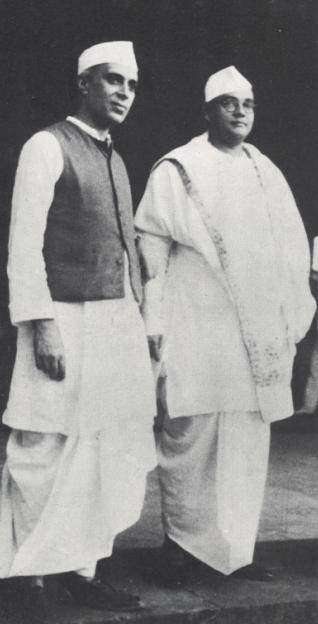
Jawaharlal Nehru with Subhas Chandra Bose
Let us now return to Subhash Chandra Bose and Jawaharlal Nehru. During the last three months, they have both chaired many conferences and put their thoughts and ideas before people. The government considers Subhash Babu a member of the group that is committed to overthrowing it, for which reason it had charged and imprisoned him under the Bengal Act. Upon his release, he was chosen as the leader of the Extremist group [of the Congress]. He espouses Purna Swaraj [complete independence], and argued for this in his presidential address at the Maharashtra session [of the Congress].
Pandit Jawaharlal Nehru is the son of the Swaraj Party leader Motilal Nehru. He is a barrister, and a very learned man. He has travelled to Russia and other countries. He is also a leader of the Extremist group, and it was due to his efforts, and those of his fellow leaders, that the resolution for Purna Swaraj was passed and adopted at the Madras session. Before this, he had spoken emphatically in favour of Purna Swaraj at the Amritsar session.
And yet, the two leaders are poles apart in their thinking. Reading the transcripts of their speeches at the Amritsar and Maharashtra sessions, this difference was apparent to us. But the difference became clear as daylight after a speech delivered in Bombay. Pandit Nehru was chairing the conference and Subhash Bose made a speech. He is a very emotional Bengali. He began his address with the statement that India has a special message for the world. It has a lesson in spirituality for humanity. And then he launched into his speech like a man in the grip of disorienting emotion — ‘Behold the Taj Mahal on a moonlit night and think of the vision of that heart that imagined it. Recall that a Bengali novelist has written that “our flowing tears hardened into stone within us”. Bose also declares that we should return to the Vedas. In his Poona [Congress session] address, he had expounded on ‘nationalism’ and said that internationalists criticize nationalism as narrow, chauvinistic ideology, but that this is a mistake. Indian nationalist thought, according to him, is nothing of the kind. It is not chauvinistic. It is not born of self-interest, and it is not oppressive, because at its root is the philosophy of Satyam Shivam Sundaram — Truth is bountiful and beautiful.
The same old romanticism. Pure emotionalism. And [like Vaswani], Bose too has great faith in his ancient past. He sees only greatness in this ancient era. In his thinking, there’s nothing new in the system of panchayati raj, or the rule of the people, which he says is very old in India. He goes so far as to say that Communism isn’t new to India either. Anyway, that day in Bombay, he went on long and hard about India’s special message for the world.
Pandit Jawaharlal Nehru, like many others, holds an entirely different view: ‘Every country thinks it has a special message for the world. England has arrogated to itself the right to teach the world culture. I don’t see anything special that belongs to my country alone. But Subhash Babu has great belief in such things!’ Nehru also says, ‘Every youth must rebel. Not only in the political sphere, but in social, economic and religious spheres also. I have not much use for any man who comes and tells me that such and such thing is said in the Koran. Everything unreasonable must be discarded, even if they find authority for it in the Vedas and the Koran.’
One man thinks our old systems are very superior; the other man believes we should rebel against these systems. Yet the latter is called emotional, sensitive, and the former a transformative revolutionary!
These are the thoughts of a true revolutionary, while Subhash Chandra’s are the thoughts of someone who wants to replace one regime with another. One man thinks our old systems are very superior; the other man believes we should rebel against these systems. Yet the latter is called emotional, sensitive, and the former a transformative revolutionary! At one point Pandit Nehru says:
“To those who still fondly cherish old ideas and are starving to bring back the conditions which prevailed in Arabia 1300 years ago or in the vedic age in India, I say that it is inconceivable that you can bring back the hoary past. The world of reality will not retrace its steps, the world of imagination may remain stationary.”
This is why it feels necessary to revolt.
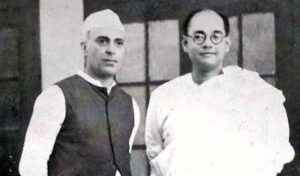
Jawaharlal Nehru and Subhash Chandra Bose
Subhash Babu supports Purna Swaraj, complete independence, because the British are people of the West and we are of the East. Pandit Ji’s position is that we need to establish our own rule so that we can change the entire social structure. This is why we must have complete and absolute independence.
Subhash Babu is in sympathy with labour, the working class, and wants to improve their condition. Pandit ji wants to bring in revolution and change the existing system altogether. Subhash Chandra is emotional and romantic — he is giving the young food for their hearts, and only their hearts. The other man is an epochal change — maker who is fuelling not just the heart but also the mind:
“They should aim at Swaraj for the masses based on Socialism. That was a revolutionary change which they could not bring about without revolutionary methods… Mere reform or gradual repairing of the existing machinery could not achieve the real, proper Swaraj for the general masses.”
Subhash Babu feels the need to focus on national politics only as long as it is necessary to safeguard and promote India’s position in world politics. But Pandit ji has freed himself of the narrow confines of plain nationalism and emerged into an open field.
Subhash Babu feels the need to focus on national politics only as long as it is necessary to safeguard and promote India’s position in world politics. But Pandit ji has freed himself of the narrow confines of plain nationalism and emerged into an open field.
Now the ideas of the [two] leaders are before us. Which way should we incline? One Punjabi newspaper has heaped praise upon Subhash Chandra and said of Pandit ji and others that such rebels destroy themselves beating their heads against stone. We must of course remember that Punjab has always been a rather emotional province. People’s passions here rise very quickly and just as quickly subside, like foam.
Subhash Chandra doesn’t appear to be providing any intellectual nourishment, only food for the heart. The need of the hour now is for the youth of Punjab to understand and strengthen revolutionary ideas. At this time, Punjab needs food for the mind, does not mean we should become his blind followers. But as far as ideas are concerned, the young people of Punjab should align themselves with him, so that they can know the true meaning of revolution, realize the need for a revolution in India, understand the significance of revolution in the world at large, and so on Through serious thought and analysis, the youth should bring clarity and conviction to their ideas, so that even in times of very little hope, times of disillusionment and defeat, they should not lose direction, stand tall and strong against a hostile world and not give up. This is how the public will achieve the goal of revolution.
— Bhagat Singh
This is a translation of Bhagat Singh’s ‘Naye Netaaon ke Alag Alag Vichar’ in the July 1928 issue of the journal Kirti. This translated version has been carried courtesy the permission of Purushottam Agrawal.
You can buy Who is Bharat Mata? On History, Culture and the Idea of India: Writings by and On Jawaharlal Nehru here.
ARCHIVE
Silsilahs: The Mystic Orders
The paths
are many
The Destination
is one
Do you not see?
There are many paths
to the Ka’ba.
– Mevlana Jalaluddin Rumi
I am standing in the courtyard of Dewa Sharif, in Uttar Pradesh, surrounded by a sea of yellow as I wait for the urs ceremony to start. A first-time visitor may not know that the Warsis of Dewa Sharif wear this distinctive shade of yellow or about its significance.
Haji Syed Waris Ali Shah (1817-1905), the founder of this silsilah, not only wore yellow in his daily life, he also performed his hajj in an abram (unstitched robe worn by pilgrims) of the same colour. Was it because yellow symbolizes paleness? The lover is pale and anguished, longing for his Beloved Divine, and he suffers till he becomes ‘golden’, like metal, in the crucible of love.
Is yellow associated with Sufism? Or do followers of a certain saint wear it? To understand this one must understand what a silsilah or Sufi order is.
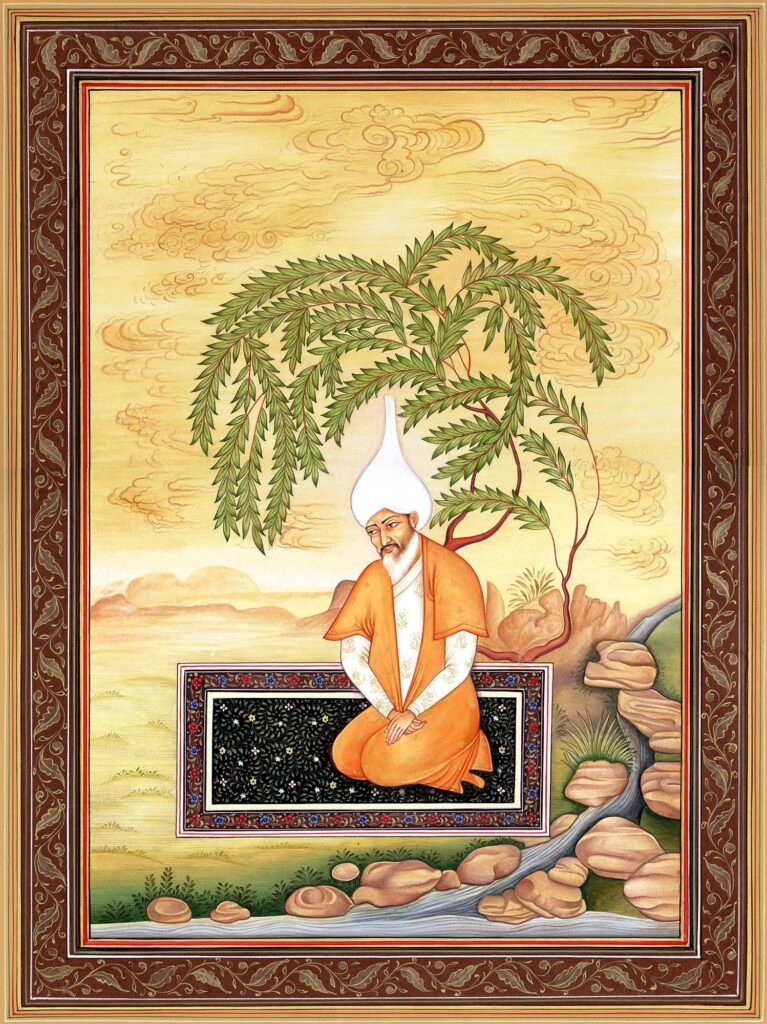
The Sufi
When the uninitiated think of Sufism in India, it is the very popular dargahs of Khwaja Garib Nawaz and Hazrat Nizamuddin Auliya that come to mind. Most people probably don’t know that they belong to the Chishti silsilah, or indeed what silsilahs are, and how they helped in the spread of Sufism.
The Arabic word ‘silsilah’ literally means chain, and in Sufism it refers to the formal chain of spiritual descent. The chain runs across centuries but starts with the master who passes on their mystic wisdom to disciples, who in turn pass it on to theirs and so on.
The Arabic word ‘silsilah’ literally means chain, and in Sufism it refers to the formal chain of spiritual descent. The chain runs across centuries but starts with the master who passes on their mystic wisdom to disciples, who in turn pass it on to theirs and so on.
In the previous chapter, we have seen how the first Sufis came to the Indian subcontinent in the eighth and ninth centuries. But it was only with the establishment of the Sufi silsilahs (orders) in the twelfth century that Sufism became popular. Many graves of pir babas (saints) from the early period are revered even today. They are scattered across various parts of the subcontinent. Although they often have a strong localized following, not much is known about them.
For instance, Haji Rozbih, the first Sufi saint to reach Delhi, lies buried just outside the walls of the Chauhan Fort, Lal Kot, Mehrauli in Delhi. Next to his simple open air grave in the forest is the grave of another devotee, said to be his female disciple from the Chauhan clan and a daughter of Prithviraj Chauhan. This claim maybe far-fetched, especially because Prithviraj Chauhan never came to Delhi. Besides, we don’t know enough about the saint, so we can’t be certain he had disciples at all. Chishti saint Qutub Sahib, too, is in Mehrauli; he holds sway over the hearts of not just the locals but people the world over. In his case, because the Chishti silsilah is well documented, we know of his history and karamat and disciples.
With the consolidation of the Delhi Sultanate came the establishment of khanqahs (Sufi hospices), and state patronage of saints, with the new conducive atmosphere, the Sufi orders were able to establish themselves firmly in the Indian subcontinent. The urs (death anniversary) celebrations of Sufis slowly began to attract thousands from across the globe, and it continues to do so even now. The most popular urs ceremony in India is that of the Chishti saint of Ajmer, Khwaja Muinuddin Chishti, known popularly as Khwaja Garib Nawaz.
In this and the subsequent chapters, I delve into the formation of silsilahs, as their emergence is very important to understand Sufism.
From the tenth century onwards we see the popularity of Sufism spread across Central Asia. The establishment of the Delhi Sultanate (1192) coincided with unrest in Central Asia due to the Mongol invasions, leading to the large scale exodus of immigrants into India. Many Sufi saints, too, thus arrived in India during this period and set up their khanqahs.
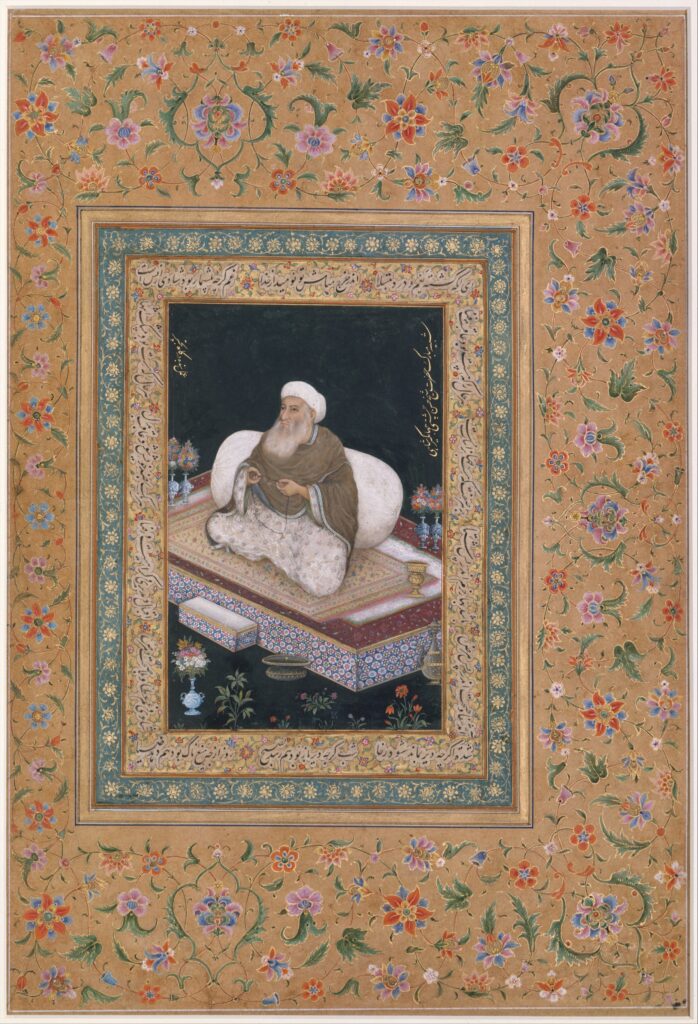
“Portrait of Shaikh Mu’in al-Din Hasan Chishti”, Folio from the Shah Jahan Album
This led to the emergence of many new traditions and according to Raziuddin Aquil, an academic, the ‘interactions between various strands of Islam and diverse Indic religious traditions led to the emergence of new forms of religiosity, cults and sects, the most prominent being Sufism, Bhakti and Sikhism’. Aquil then proceeds to elaborate on this succinctly:
“Sufis were able to evolve an acceptable language and common grounds, which the self-styled guardians of Islam, the ulama, could not. Low-caste Bhakti saints could speak against social inequities, the Brahmin pandits could not. Some of the exalted gurus did speak of social harmony, but their ill-trained chelas [disciples] did not. For some, bigotry was the guiding principle of life; for others, justice and humanity were the ideals to adhere to.”
“Sufis were able to evolve an acceptable language and common grounds, which the self-styled guardians of Islam, the ulama, could not. Low-caste Bhakti saints could speak against social inequities, the Brahmin pandits could not. Some of the exalted gurus did speak of social harmony, but their ill-trained chelas [disciples] did not. For some, bigotry was the guiding principle of life; for others, justice and humanity were the ideals to adhere to.”
Raziuddin Aquil
As the number of Sufis began to increase, they began to feel the need to formalize and legitimize their spiritual training. This led to the rise of mystical orders or silsilahs from the twelfth century. Silsilahs gave the followers a spiritual hierarchy and a place within it, along with ‘greater respectability and a stronger base of defence against the onslaught of the orthodox’.
The earliest stage of the formation of such orders was marked by the presence of ascetic Sufis who renounced worldly pleasures, and lived in constant remembrance of Allah, and in solitude. They were mainly based in the cities of Basra and Kufa in Iraq. This was in adherence to Prophet Muhammad’s example.
A very popular hadith given in Sahih Muslim (no. 1479) describes the time when the second caliph of Islam, Umar ibn al-Khattab, found the Prophet lying on a straw mat with only a handful of barley in the corner of the cell. The imprint of the Prophet’s bare upper body was still on the mat. On seeing the extremely austere life the Holy Prophet was leading, Umar ibn al-Khattab started weeping. When the Prophet asked him why he was crying, he replied that he was saddened by the realization that the Caesars and Khusraus of the world (kings) lived a life of luxury, while the Messenger of God was living in such poverty. The Prophet said that he was satisfied with the prosperity of the hereafter – meaning he didn’t hanker after worldly pleasures, which were temporary.
Aquil summarizes the spread of Sufism, ‘Beginning with the influential mystic circles of Baghdad, Sufi networks were established in lower Iraq, Iberia, Egypt, north-eastern Iran and Central Asia between the ninth and twelfth centuries.’ The rise of silsilahs was a natural progression when Sufi saints became more organized.
To understand Sufism and its impact in India, it is essential to understand the various silsilahs that flourished here and their important saints, for it was these saints who attracted people to their khanqahs in the early stages. The major saints of each order sent their disciples to various parts of the subcontinent to establish their mission. These were called vilayats (spiritual territories). Today the teachings, legacy, and the karamat (miracles) attributed to these disciples draw people seeking their intercession to the shrines.
To understand Sufism and its impact in India, it is essential to understand the various silsilahs that flourished here and their important saints, for it was these saints who attracted people to their khanqahs in the early stages. The major saints of each order sent their disciples to various parts of the subcontinent to establish their mission. These were called vilayats (spiritual territories). Today the teachings, legacy, and the karamat (miracles) attributed to these disciples draw people seeking their intercession to the shrines.
Though there were many female Sufi saints, they did not establish silsilahs which remained a male privilege.
The silsilahs began to develop in the tariqah stage, discussed in the previous chapter. They were built around a particular saint and his teachings, and the rules of khilafat (succession) were formed. The relationship between the pir and murid became very clear.
The initial silsilahs were formed and named after their masters. Take the example of the first group to organize itself as an order, the Qadriya silsilah; it was named after Sheikh Abdul Qadir Jilani. There was also the Muhasibi silsilah named after Abu Abdullah al Harith Ibn Asad al Anazi al Muhasibi (781-857), and the Junaydi Order named after Junaydi Baghdadi (830-910).
As the Sufi silsilahs developed, they split into a number of branches. Today, there are innumerable silsilahs in the world, but I will limit myself to the major Indian silsilahs.
As these silsilahs formalized their teachings, they also imbibed many other regional influences, which they adapted within the Islamic framework. So while Sufism didn’t grow out of these, as its main source is the Quran, and the life of the Prophet, the monastic traditions of Buddhism and Christianity, and the philosophies of the Vedas, the Upanishads, and Neo Platonism were all absorbed into its discourse.
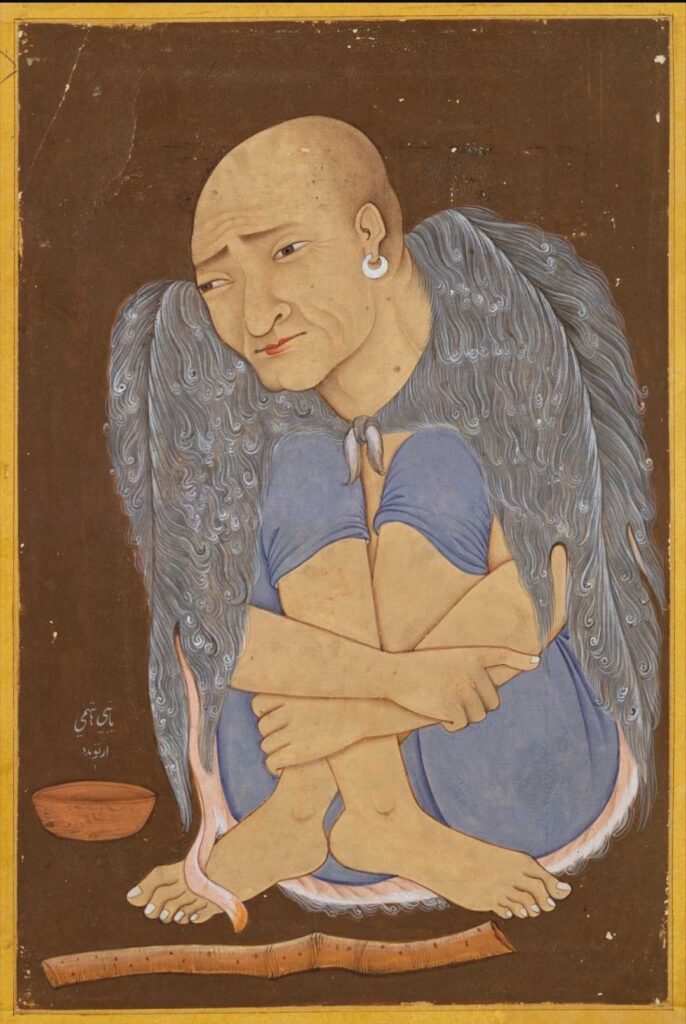
Portrait of a Sufi
Every silsilah had its own particular methods, rituals, and techniques. There is, for instance, a difference in the method of zikr (remembrance of Allah) in each order. While the Naqshbandi order lays emphasis on silent zikr, with breath control and meditation, the Chishti order does it aloud — almost always through the medium of sama mehfils (musical assemblies) to create momentum to lead to a state of trance. The Chishti silsilah today is the main promoter of the tradition of qawwali; you will always find qawwalls being sung in their dargahs. Scholar and author Omar Khalidi writes about this:
“Of the four Sufi orders popular in India the Chishtis alone sought ecstatic inspiration in music. The Suhrawardis were generally indifferent to it and recommended instead the chanting of the Quran: the Qadiris were opposed to music generally, and to instrumental music in particular. The Naqshbandi attitude to music was even more hostile.”
The silsilahs are of two types: those that adhere strictly to shariah and are called ba-shara, and the non-conformist ones referred to as be-shara. According to Aquil, the terms and the ‘distinction smacks of fatwa-baazi [Islamic rulings] in Islam. If at all one needs to identify and judge some people such as the madaris or qalandars, they may be referred to for being non-conformist, and even somewhat deviant.’
The silsilahs are of two types: those that adhere strictly to shariah and are called ba-shara, and the non-conformist ones referred to as be-shara. According to Aquil, the terms and the ‘distinction smacks of fatwa-baazi [Islamic rulings] in Islam. If at all one needs to identify and judge some people such as the madaris or qalandars, they may be referred to for being non-conformist, and even somewhat deviant.’
Therefore, the term used in this book is non-conformist.
The non-conformists called qalandari or mazjub (intoxicated) do not belong to any one silsilah and spend their time wandering from one place to another. They believed in rejecting the material world, according to scholar Ute Falasch, ‘opting for celibacy, itinerancy, poverty, and mendicancy instead.’
“The deviance from social and moral norms in the attitude towards plety is often presented to the community by peculiar dress and paraphernalia, or the lack of appropriate clothing, as well as a provocative behaviour that is regarded as offensive. Not only the neglect of social standards may characterize this piety, but also that of religious normativity, which is why they are labelled antinomian. It may be expressed in different ways, such as ecstatic states that revolve around music and dance or the experimentation with drugs, mostly hashish, as well as a disregard for religious duties, such as fasting and praying. Because of these aspects, these groups always have been an object of criticism. Movements such as the Qalandariyyah, which spread in the thirteenth and fourteenth centuries across the Muslim world up to India, have been looked down upon by the intellectual elite of the society, regarding them as false Sufis who lack religious sentiments or imposters that misuse the sensitivities of the people.”
This is not to say that these fakirs or qalandars were rejected by Muslim society. They found a space for themselves in society and dargahs. Though they did not follow the widespread social norms, there is nothing to suggest that they rejected normative Islamic practices.
Many Sufi silsilahs have flourished in India over time. Abul Fazl lists fourteen orders that were functioning in sixteenth-century India. Of these, the four most prominent ba-shara silsilahs are the Chishti, Suhrawardi, Qadriya, and Naqshbandi. Among the non-conformist silsilahs, the dewangan section of the Madari silsilah and the Rasul-Shahis are two prominent ones in India.
Many Sufi silsilahs have flourished in India over time. Abul Fazl lists fourteen orders that were functioning in sixteenth-century India. Of these, the four most prominent ba-shara silsilahs are the Chishti, Suhrawardi, Qadriya, and Naqshbandi. Among the non-conformist silsilahs, the dewangan section of the Madari silsilah and the Rasul-Shahis are two prominent ones in India.
While mystic centres had been established in many areas by Muslim saints long before the establishment of Turkish rule, the establishment of the Delhi Sultanate saw the emergence of Sufi saints and systematic organization of silsilahs in India. Two of the most important mystic orders — the Chishti and the Suhrawardi — were also introduced in north India during the Delhi Sultanate years. These silsilahs often played an important role in society of the times, as will be discussed later.
The Suhrawardi and the Chishti silsilahs were and are on friendly terms with each other, and the latter even rely on the works of the saints from the former silsilah, like Sheikh Shihabuddin Suhrawardi and Sheikh Hamiduddin Nagauri. The goal of both the orders is to surrender their souls to God’s will and achieve union with the Divine.
Yet, despite all these similarities, there are also differences. The rituals and ceremonies of the two orders reflect their contrasting attitudes towards society and politics. While the Suhrawardis emphasize salat (prayers) and zikr, fasting only in the month of Ramzan, the devotion of the Chishtis leads them not just to offer prayers but indulge in difficult ascetic practices and fast almost continuously. The former believe in eating all that is pure, and in acting righteously, while the latter focus on self-mortification, penance, and meditation.
Their contact with yogis has led the Chishtis to practice zikr with strenuous coordination of limb movements and postures associated with exhalation and inhalation.
The sama mehfils of the Chishtis are attended by the Suhrawardi saints of Delhi but not encouraged by the Multani Suhrawardis.
The Naqshbandis felt it essential to connect and interact with the powers that be, as the life of the rulers had a deep impact on the life of the people. The Suhrawardis mixed with the kings, and ‘gave moral support to them but did not attempt any reorientation of their thought’.
The Chishtis, on the other hand, didn’t seek active involvement but they didn’t shun the rulers totally either, accepting grants and land from them. The well-known Chishti Hazrat Nizamuddin Auliya did seek to stay away from rulers, though, and there is a famous incident pertaining to the time when Sultan Jalaluddin Khilji wanted to visit him. Hearing of the ruler’s desire, he is said to have famously quipped that a Sufi khanqah has two doors and if the sultan entered by one, he’d use the other to leave. However, his with Alauddin Khilji were cordial — with the sultan seeking ‘Nizam-ud-Din’s spiritual assistance for knowing the fate of his campaign in southern India — the Sufi master had predicted its victory’.
A very famous story described in Fawaid al-Fuad is of a Sufi saint named Shaikh Ali. The saint was sitting with outstretched legs repairing his tattered cloak when the ruler and his wazir (prime minister) visited him. The wazir asked him to fold his legs, but he remained still and unperturbed. When the ruler drew closer, he showed his fists and said that he has closed his hands instead!
This should not be taken to mean that these saints did not influence the rulers — only that they did it indirectly by narrating stories and parables, or quoting from the hadiths and the life of the Prophet, to show rulers that their tyranny was wrong.
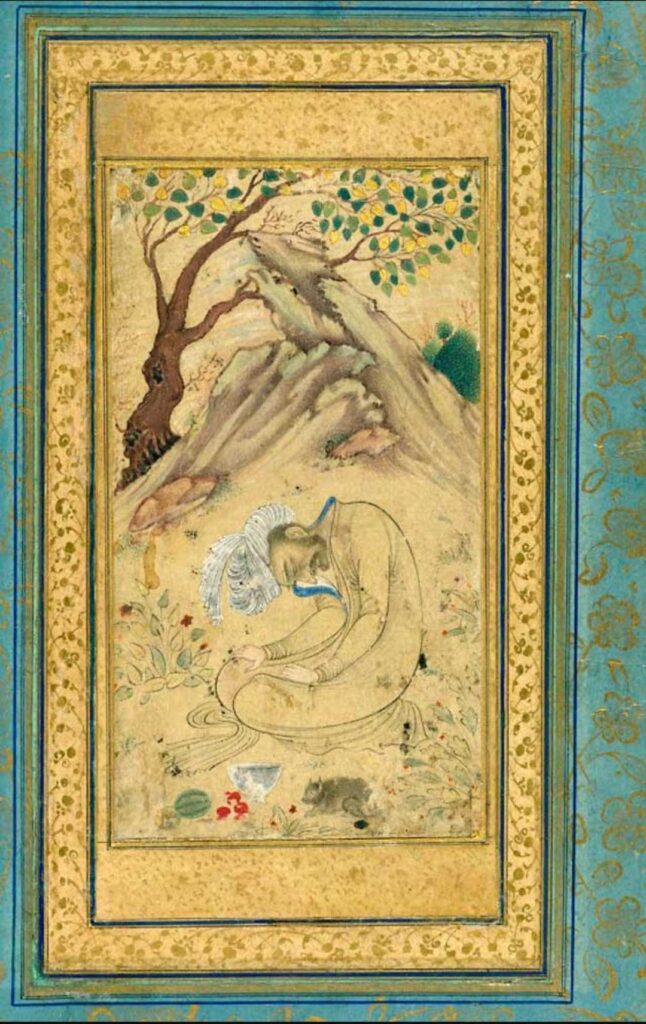
Sufi in a Landscape, Iran, Isfahan, Circa 1650–1660. Los Angeles Museum of County Art.
The Naqshbandi order was the last of the major silsilahs to find its way into India via Khwaja Nasiruddin Ubaidullah Ahrar’s descendants, Khwaja Abdul Shahid, and Khwaja Kalan. The two men came to the Mughal court on Babur’s invitation but didn’t stay long. This silsilah attained popularity later via Khwaja Muhammad Baqi, also known as Baqi Billah Berang.
Apart from the four main silsilahs, there were many offshoots and independent silsilhas, such as the Sabri, Firdausi, Shattari, Kubravi, Warsi, and Kazmiya Qalandari.
Throughout the lands where the khanqahs and dargahs established were governed by the local rulers, the Sufi saints were considered the spiritual rulers. According to historian Sunil Kumar, the political ruler with his army ‘were the intrusive and sometimes violent and usually coercive element that appeared in South Asian history with the establishment of the Sultanate (c. 1200+).’ Further, he says:
“Conversely, as proponents of a mystical Islam, Sufis have been regarded as the ecumenical face of Islam, preaching to the commoners, often using the vernacular, and communicating complex aspects of Islam and Sufi philosophy through pithy maxims derived from the quotidian experiences of the common people and not just the elites. As an extension of this idea, since Sufis were not involved in the mundane temporal world but with abstract, spiritual praxis, historiographical narratives often placed them outside the realm of history and the vicissitudes of change.”
The role of the Sufi was multi-layered and thus they played a very important role in shaping the religious outlook of the rulers, thereby shaping history. Sheikh Abdul Quddus Gangohi, the Chishti Sabri saint, in a letter to Babur sets forth his views in regard to the functions and duties of a Muslim king. He expressed his faith in Babur’s firm conviction in Islam and Hanafi law, and his devotion to the ulema and the Mashaikh, whom he entreated for the theologians, mystics, weak, and the depressed to be maintained and subsidized by the state. In M. Zameer Uddin Siddiqi’s words:
“It was specially stressed that the obligation of deep gratitude to God demanded that [the] all-pervading Justice of the King cast its shadow on the people and that no one should subject another to torture and tyranny and that all the people and soldiers hold fast to all that has been ordained by shara and abstain from all that is forbidden.
Since each silsilah had its own dynamics with the rulers and the people of the subcontinent, I will examine each one separately in the subsequent chapters.
This excerpt has been carried courtesy the permission of Rana Safvi and Hachette India. You can buy In Search of the Divine: Living Histories of Sufism in India, here.
ARCHIVE
The Diary of Mahadev Desai
March 10, 1932
I had not the faintest idea that such a day as this would dawn for me. But I did once dream in Nasik prison that I was all of a sudden taken to Bapu in Yeravda prison and that I fell at his feet, crying all the while and unable to check my tears.
Roche came to me in the morning and said, “You are being transferred from here; you get ready in one hour.” I asked him, “Where will they take me?” He replied, “You will be happy and thankful when you know it but I must not say a word.” I asked to meet Dr. Chandulal Desai but my request was turned down. We left Nasik at nine. The policemen who escorted me were the same as had a few days ago accompanied Vitthalbhai here. One of them turned out to be an old acquaintance of the days when Bapu saw Lord Reading. He remembered the date correctly — June 17, 1921. He was then a bearer to Sir Charles Innes. He had subsequently served elsewhere and was now in the police.
When Akbar Ali embraced me with tearful eyes and told me from his closed cell about his prayerful wish that I should be kept with Gandhiji, I said, “You may pray for me, but can I be so lucky as that?” He replied, “True, but I can only hope and pray.” What stories had I heard about Akbar Ali! But he showered his affection on me, and his prayers bore fruit. Pyarelal used to tell everybody at Nasik that they had fixed this up with Martin. This was also true though I regarded it as a mere joke.
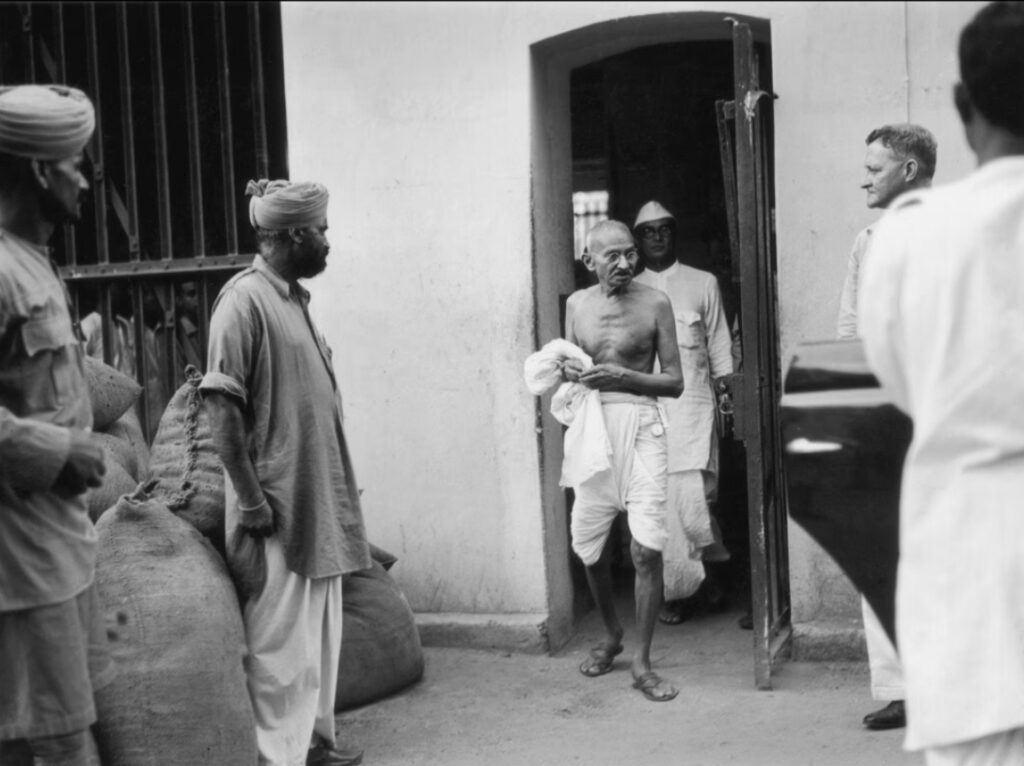
Gandhi in jail
I was received rather coldly at Yeravda prison and I feared they just wanted to get rid of me at Nasik, without keeping me in Bapu’s company here. Then came Kateli, smiling, and asked me to go with him. He was informed at four in the morning that I was to be kept with Gandhiji. Bapu too was surprised when I placed my head at his feet. He patted me on the back, the head and the cheeks more fondly than ever before. I felt deeply grateful but was overwhelmed by a sense of my unworthiness. Later I learnt from Bapu and the Sardar that Shri Purushottamdas also had a hand in bringing me to Yeravda. Last time Dahyabhai did say that — had done the needful.
Bapu too was surprised when I placed my head at his feet. He patted me on the back, the head and the cheeks more fondly than ever before. I felt deeply grateful but was overwhelmed by a sense of my unworthiness.
After some rambling talk, Bapu said, “You have come at the right moment, for Vallabhbhai is at his wit’s end. Did he tell you about it?” Vallabhbhai suggested that I should eat something before we started our discussions. He brought me food — bread, butter, curds and boiled sweet potatoes. He and Bapu had already finished their meals. When I finished, Bapu gave me his letter to Sir Samuel Hoare and asked me what I thought of it.
I said, “I find the reasoning sound. I have often felt about the repression that one need not be surprised if some day it leads Bapu thus to voice his indignation. Why does Vallabhbhai object? Is it because as President of Congress, he finds himself unable to endorse this step of yours?”
Bapu said, “No, he is not worried on that account. He doubts if he can give his consent as a co-worker. But I have never imagined Vallabhbhai looking at things from a religious viewpoint. It is only to be expected that he should look at this from the political angle. My relations with Vallabhbhai are not on a religious basis, as they are with you. Vallabhbhai is afraid that I shall lay myself open to misinterpretation. The Government will say: ‘Gandhi has always been a man of this type. He has gone mad; Let him alone with his madness.’ And Vallabhbhai also thinks the people will be shocked, and then again there is the grave danger of such fasts being imitated in the wrong spirit. But that does not matter. What if I am taken for a mad man and die? That would be the end of my mahatmaship, if it is false and undeserved. Friends like Remain Rolland will understand my standpoint. But even if they don’t, I should be concerned only with my duty as a man of religion.”
I said, “The world can understand fast as a protest against repression but not perhaps on the question of Harijan representation. The British will try to mislead the world into believing that most if not all Harijans favour separate electorates. I should also suggest you make it clearer how the separate electorates are intended to strike a blow at the body politic. I am pretty sure, however, that even honest Britons will fail to see how.”
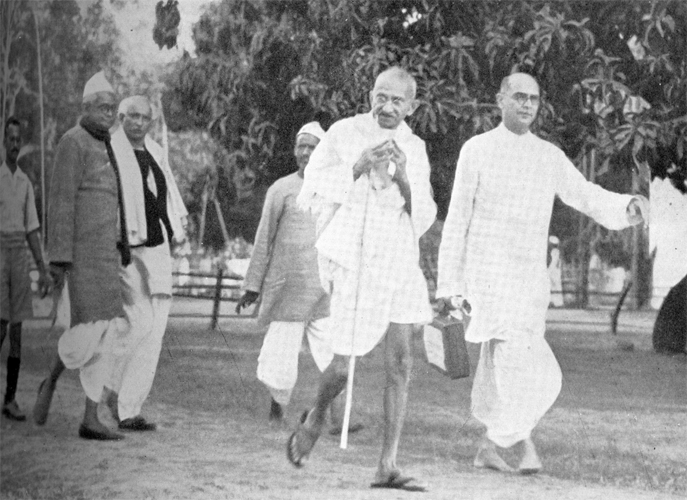
Gandhi with Mahadev Desai
Bapu said, “If we tried to make this clearer, we would have to describe the Muslims’ share in this sordid business. And that would increase Hindu-Muslim tension. This would be very much like what happened in connection with the earlier twenty-one days’ fast when Mahomed Ali got a few sentences in my statement scored out.”
I said, “Some will ask if this really was a sin more heinous than that committed by the Hindus so that you felt yourself compelled to undertake a fast.”
“Some will ask if this really was a sin more heinous than that committed by the Hindus so that you felt yourself compelled to undertake a fast.”
Bapu said, “We have been trying to make Hindu society repent of its sin. But the separate electorates are meant to perpetuate the sin or to make it impossible for the Hindus to repent. They will end in nothing but a civil war between the caste Hindus and Harijans, and between Hindus and Muslims.”
Vallabhbhai said, “I am unconvinced of the rightness of your move, but now you are free to do what you think is right.”
Bapu corrected the letter and went to bed. But I did not sleep till after midnight.
We got up at a quarter to four for the morning prayers. We had a wash and as we gathered together, Bapu gave the programme: “Vallabhbhai recites the shlokas (stanzas). He has little knowledge of Sanskrit and his pronunciation is bad. So I thought this was the only way it could be improved. You will find that he has made considerable progress. I sing the hymn, but not from memory. So we read one hymn after another from the Ashram hymnal. We thought we would start with the Marathi section today. But now that you are here, you will lead us in singing the hymn and in “Ramadhun”. I requested Bapu to lead us in Ramadhun. This discussion we had had at night. My first hymn was Prabhu mere etc., ‘O God, do not mind my heavy load of sin.’ What else could I have sung?
March 30, 1932
This morning we happened to talk about a certain Muslim leader. Vallabhbhai said, “He too took a narrow communal view in time of crisis and asked for a separate relief fund for Muslims and a separate appeal for it.” Bapu said, “He is not at fault on that score. What is he to do if we create such an environment for him? What amenities do we offer Muslims? They are mostly treated like untouchables. If I wished to send Amtul Salam to Devlali, could I ask — to put her up? The fact is that we should not go to the Bhatia sanatorium or for that matter any other place which excludes Amtul or any one else. Indeed it is up to the Hindus to take a step forward. As it is, the bitterness is increasing. It can be mitigated only if the Hindus wake up and break down the barriers they have erected. Perhaps the barriers were needed at a certain time, but now there is no earthly use for them.” Vallabhbhai said, “But the manners and customs of Muslims are different. They take meat while we are vegetarians. How are we to live with them in the same place?” Bapu replied, “No, sir. Hindus as a body are nowhere vegetarians except in Gujarat. Almost every Hindu takes meat in the Punjab, Uttar Pradesh and Sindh. . . . All at present are on their trial. Let us wait and see, with faith that all will be well in the end.”
What is he to do if we create such an environment for him? What amenities do we offer Muslims? They are mostly treated like untouchables.
The Civil Surgeon examined Bapu, and placing the stethoscope on his chest said, “I would be proud to possess a heart like that.” So saying he passed on to other prisoners. Bapu did not tell him about the pain in his fingers. He examined my leg but had no treatment to suggest. It seemed as if he wanted to finish an unpleasant task somehow or other. No other Civil Surgeon went away like this without wanting to have a word with Bapu. This one is capable of amazing self-restraint.
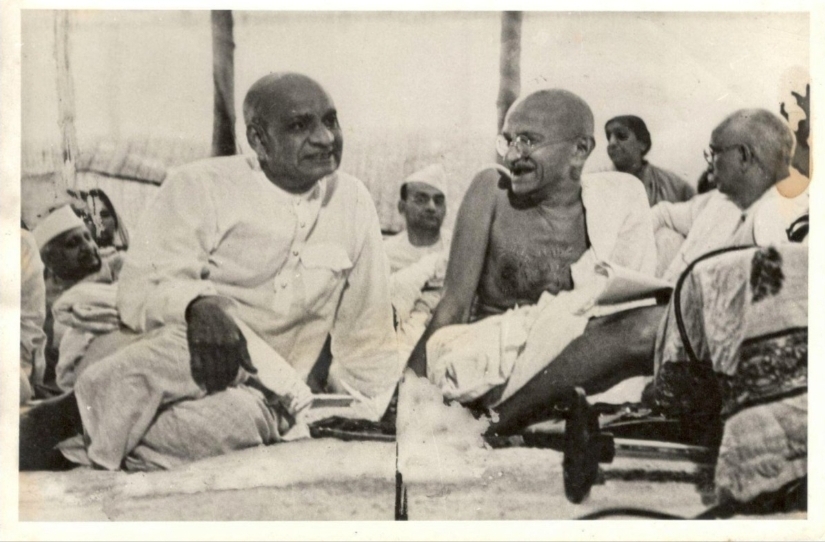
Gandhi and Patel
Sir John Anderson has come with testimonials from all. I showed to Bapu Laski’s remarks about him. Bapu said, “Perhaps that is true. If so he will capture Bengali hearts, win over Subhas Bose and Sengupta and disregard Congress. The same fate is perhaps in store for the Punjab. I do not think there will be peace in all parts of India at the same time. I imagine they will pacify one province after another.”
Bapu compelled me to sleep in the open from today and asked the Major for a cot for me.
The Major said, “Thirty or forty women prisoners all want to write to you. What shall I do about it? Would it not do if they just sent you their signatures ?” Bapu replied, “If you wish, I will ask them to be satisfied with writing only a couple of lines each. Why deprive them of this satisfaction? They are all so gentle.”
April 1, 1932
… We happened to talk about Ambedkar. Bapu said, “Till I went to England, I did not know that he was a Harijan. I thought he was some Brahman who took deep interest in Harijans and therefore talked intemperately.” Vallabhbhai said he knew he was a Harijan, as he had made his acquaintance when the Harijan leader toured Gujarat with Thakkar. Then we turned to Thakkar Bapa and the Servants of India Society’s attitude to Harijans.
“Till I went to England, I did not know that he was a Harijan. I thought he was some Brahman who took deep interest in Harijans and therefore talked intemperately.”
Bapu said, “Their attitude is responsible for the shape that question has assumed nowadays. I noticed this when I lived in the Poona home of the Society in 1915 after the death of Gokhale. I asked Devadhar for a brief note on their activities, so that I would see what I could do. This note advised that we should deliver speeches before Harijan meetings, and create in them a consciousness of the injustice done to them by Hindu society. I said to Devadhar, ‘Here you give me a stone when I asked you for bread. We cannot serve Harijans in this fashion. It is not service, but patronage pure and simple. Who are we to uplift Harijans? We can only atone for our sin against them or discharge the debt we owe to them, and this we can do only by adopting them as equal members of society, and not by haranguing them.’ At this Sastri was taken aback and said, ‘ We did not expect that you would speak in such a magisterial tone.’ And Hari Narayan Apte was very angry. I said to him, ‘I am afraid you will make Harijans rise in rebellion against society.’ Apte replied, ‘Yes, let there be a rebellion. That is just what I want.’ In this way there was a lot of discussion, so that the next day I said to Sastri, Devadhar, Apte and others that I had no idea I would cause them pain. This apology left a good impression on their minds. And afterwards we pulled on well together.” Vallabhbhai said, “You can work in harmony with everybody. It does not cost you any effort. Vaniks (merchants) do not mind humbling themselves.”
Who are we to uplift Harijans? We can only atone for our sin against them or discharge the debt we owe to them, and this we can do only by adopting them as equal members of society, and not by haranguing them.
August 17, 1932
The communal decision was published today. Bapu went about his work till the evening as if nothing had happened. He asked me to prepare a hajra cake and ate it with relish. Almond butter was made with the help of the machine. As we were taking the usual evening walk, he read Horniman’s article and liked it. In the course of conversation in the morning he said: ‘The decision only confirms the minorities’ pact. Everything has gone according to the plan in Benthall’s letter.’
I said the new constitution was worse than the Montagu-Chelmsford reforms. “Certainly,” replied Bapu. “Those reforms were based on the Lucknow agreement between Congress and the Muslim League. But this constitution seeks to create such divisions in the country that it can never again stand up on its own legs.” Just before the evening prayer he said to me, “Well, you and the Sardar think over the situation and tell me whatever you feel like saying. The letter to Samuel Hoare details the steps I should take in order to deal with the present situation. I have therefore to serve the British Government with a notice.” I was taken aback and said nothing. The Sardar also had a similar feeling. I sang Surdas’s hymn and began to read the Ashram post.
The letters which had to be written were written at once, and then Bapu began to write the letter to MacDonald.
August 18, 1932
After finishing it in the morning Bapu said, “You stop spinning for a while and go through this letter so that it may be sent at once.” The Sardar and I read it. Then he said, ‘There is no reference in the letter to other parts of the decision. May not this be misinterpreted to mean that they are approved by you?” “No,” replied Bapu. “My views are well-known. Still if you wish, I will insert one paragraph, although I would then have to enter into argument. In this letter I propose to leave out all argument, this having been included in the letter to Samuel Hoare.” I suggested that Bapu should only say his soul rebelled against the decision as a whole, but part of it was so vicious that he would lay down his life in the attempt to get it annulled. “No,” said Bapu. “No such comparison may fairly be instituted. If it were, they would say that I wanted to get the decision annulled in its entirety and had seized upon a certain part of it as a pretext. I do want the whole decision to go. But at night I thought for a moment over the question whether other points should be included and decided against their inclusion.”
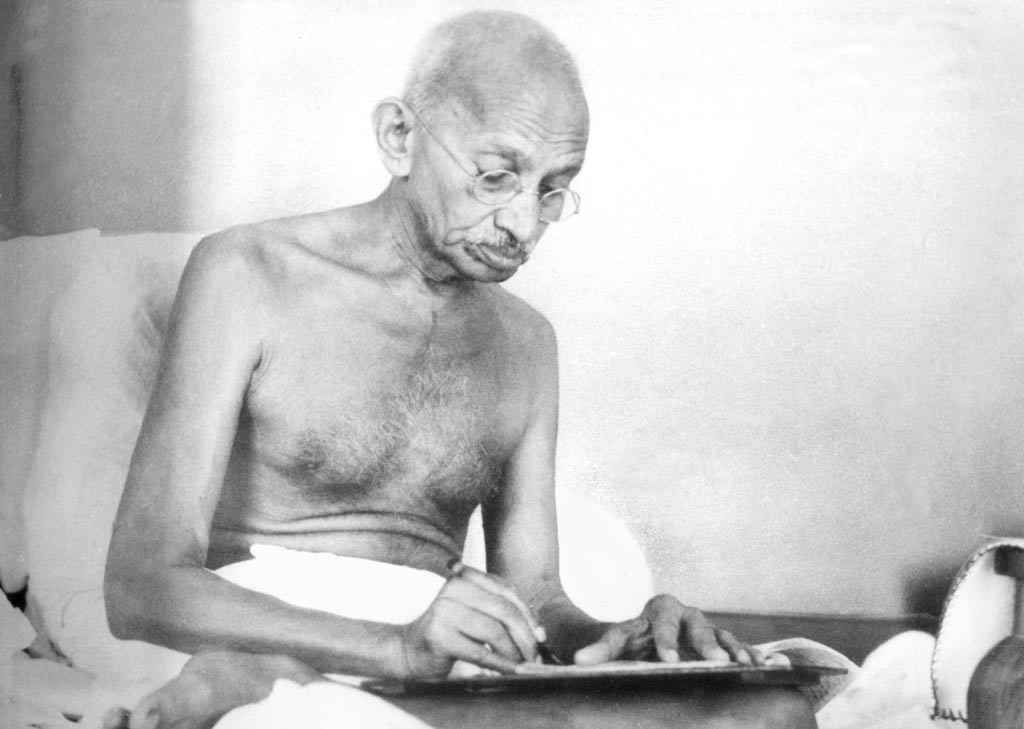
Gandhi writing a letter
The same subject was discussed in the evening. Bapu observed, “I cannot put in other things at all, for that would be tantamount to mixing politics with religion. The two questions are in fact distinct from each other.” He then continued, “I have rehearsed everything in my own mind. Everything you have suggested was considered by me before I reached the decision. Separate electorates for the Muslims and the rest are fraught with danger. They will combine with the British to suppress the Hindus. But I can think of methods by which the combination can be dealt with. When once the outsider who foments quarrels is gone, we can tackle our problems with success. But as regards the so-called untouchables I have no other remedy. How possibly am I to explain things to these poor fellows? To draw suffering on oneself when misfortune dogs one’s footsteps is no novelty. How did Sudhanva fall into the pan full of hot oil and how did Prahlad embrace a pillar of red-hot iron? There will be many Satyagraha movements even after the attainment of Swaraj. I have often had the idea that after the establishment of Swaraj I should go to Calcutta and try to stop animal sacrifice offered in the name of religion. The goats at Kalighat are worse off even than untouchables. They cannot attack men with their horns. They can never throw up an Ambedkar from their midst. My blood boils when I think of such violence. Why do they not offer tigers instead of goats?”
“Separate electorates for the Muslims and the rest are fraught with danger. They will combine with the British to suppress the Hindus. But I can think of methods by which the combination can be dealt with. When once the outsider who foments quarrels is gone, we can tackle our problems with success. But as regards the so-called untouchables I have no other remedy.”
In the morning we discussed the possible repercussions of Bapu’s step. I said, “It will be misinterpreted in a variety of ways. Here in India there will be senseless imitation of it while in America they will say Gandhi obtained his release by his fast.” “I know,” replied Bapu. “In America they will swallow anything, and there are British agents ready to help them to do so. Many will even say that I am now a bankrupt, that my spirituality is not paying dividends; therefore, I committed suicide like cunning insolvents. And in this country there will be blind imitation, and misinterpretation. The Government will perhaps release me and let me die outside prison, or perhaps they will let me die in jail, as in the case of MacSwiney. Our own men will be critical. Jawaharlal will not like it at all. He will say we have had enough of such religion. But that does not matter. When I am going to wield a most powerful weapon in my spiritual armoury, misinterpretation and the like may never act as a check.”
ARCHIVE
At Benares Hindu University (Benares, February, 1916)
MOHANDAS KARAMCHAND GANDHI
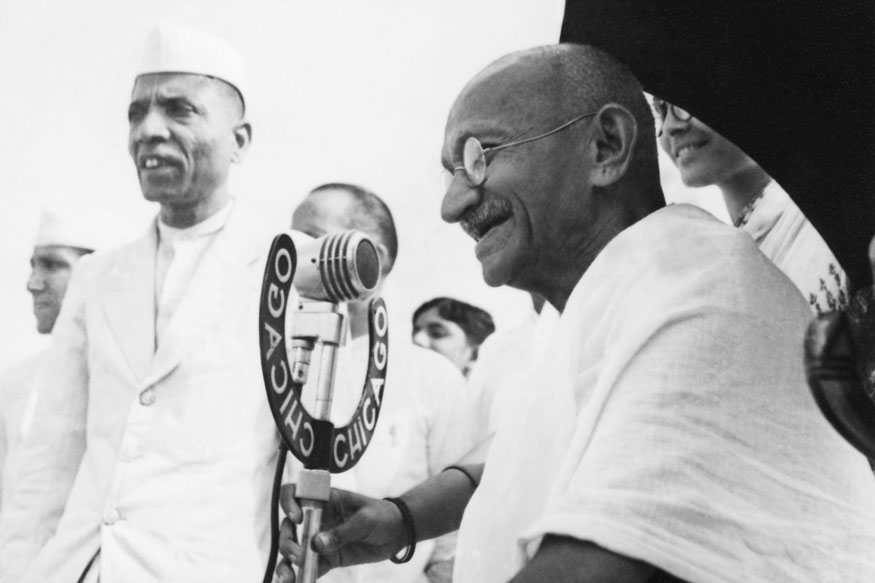
Mahatma Gandhi
I wish to tender my humble apology for the long delay that took place before I was able to reach this place. And you will readily accept the apology when I tell you that I am not responsible for the delay nor is any human agency responsible for it. The fact is that I am like an animal on show, and my keepers in their over kindness always manage to neglect a necessary chapter in this life, and, that is, pure accident. In this case, they did not provide for the series of accidents that happened to us—to me, keepers, and my carriers. Hence this delay.
Friends, under the influence of the matchless eloquence of Mrs Besant who has just sat down, pray, do not believe that our University has become a finished product, and that all the young men who are to come to the University, that has yet to rise and come into existence, have also come and returned from it finished citizens of a great empire. Do not go away with any such impression, and if you, the student world to which my remarks are supposed to be addressed this evening, consider for one moment that the spiritual life, for which this country is noted and for which this country has no rival, can be transmitted through the lip, pray, believe me, you are wrong. You will never be able merely through the lip, to give the message that India, I hope, will one day deliver to the world. I myself have been fed up with speeches and lectures. I accept the lectures that have been delivered here during the last two days from this category, because they are necessary. But I do venture to suggest to you that we have now reached almost the end of our resources in speech-making; it is not enough that our ears are feasted, that our eyes are feasted, but it is necessary that our hearts have got to be touched and that our hands and feet have got to be moved.
We have been told during the last two days how necessary it is, if we are to retain our hold upon the simplicity of Indian character, that our hands and feet should move in unison with our hearts. But this is only by way of preface. I wanted to say it is a matter of deep humiliation and shame for us that I am compelled this evening under the shadow of this great college, in this sacred city, to address my countrymen in a language that is foreign to me. I know that if I was appointed an examiner, to examine all those who have been attending during these two days this series of lectures, most of those who might be examined upon these lectures would fail. And why? Because they have not been touched.
I wanted to say it is a matter of deep humiliation and shame for us that I am compelled this evening under the shadow of this great college, in this sacred city, to address my countrymen in a language that is foreign to me. I know that if I was appointed an examiner, to examine all those who have been attending during these two days this series of lectures, most of those who might be examined upon these lectures would fail. And why? Because they have not been touched.
I was present at the sessions of the great Congress in the month of December. There was a much vaster audience, and will you believe me when I tell you that the only speeches that touched the huge audience in Bombay were the speeches that were delivered in Hindustani? In Bombay, mind you, not in Benaras where everybody speaks Hindi. But between the vernaculars of the Bombay Presidency on the one hand and Hindi on the other, no such great dividing line exists as there does between English and the sister language of India; and the Congress audience was better able to follow the speakers in Hindi. I am hoping that this University will see to it that the youths who come to it will receive their instruction through the medium of their vernaculars. Our languages are the reflection of ourselves, and if you tell me that our languages are too poor to express the best thought, then say that the sooner we are wiped out of existence the better for us. Is there a man who dreams that English can ever become the national language of India? Why this handicap on the nation? Just consider for one moment what an equal race our lads have to run with every English lad.
I had the privilege of a close conversation with some Poona professors. They assured me that every Indian youth, because he reached his knowledge through the English language, lost at least six precious years of life. Multiply that by the numbers of students turned out by our schools and colleges, and find out for yourselves how many thousand years have been lost to the nation. The charge against us is that we have no initiative. How can we have any, if we are to devote the precious years of our life to the mastery of a foreign tongue? We fail in this attempt also. Was it possible for any speaker yesterday and today to impress his audience as was possible for Mr Higginbotham? It was not the fault of the previous speakers that they could not engage the audience. They had more than substance enough for us in their addresses. But their addresses could not go home to us. I have heard it said that after all it is English educated India which is leading and which is doing all the things for the nation. It would be monstrous if it were otherwise. The only education we receive is English education. Surely we must show something for it. But suppose that we had been receiving during the past fifty years’ education through our vernaculars, what should we have today? We should have today a free India, we should have our educated men, not as if they were foreigners in their own land but speaking to the heart of the nation; they would be working amongst the poorest of the poor, and whatever they would have gained during these fifty years would be a heritage for the nation. Today even our wives are not the sharers in our best thought. Look at Professor Bose and Professor Ray and their brilliant researches. Is it not a shame that their researches are not the common property of the masses?
I have heard it said that after all it is English educated India which is leading and which is doing all the things for the nation. It would be monstrous if it were otherwise. The only education we receive is English education. Surely we must show something for it. But suppose that we had been receiving during the past fifty years’ education through our vernaculars, what should we have today? We should have today a free India, we should have our educated men, not as if they were foreigners in their own land but speaking to the heart of the nation; they would be working amongst the poorest of the poor, and whatever they would have gained during these fifty years would be a heritage for the nation.
Let us now turn to another subject.
The Congress has passed a resolution about self-government, and I have no doubt that the All-India Congress Committee and the Muslim League will do their duty and come forward with some tangible suggestions. But I, for one, must frankly confess that I am not so much interested in what they will be able to produce as I am interested in anything that the student world is going to produce or the masses are going to produce. No paper contribution will ever give us self-government. No amount of speeches will ever make us fit for self-government. It is only our conduct that will make us fit for it. And how are we trying to govern ourselves?
I want to think audibly this evening. I do not want to make a speech and if you find me this evening speaking without reserve, pray, consider that you are only sharing the thoughts of a man who allows himself to think audibly, and if you think that I seem to transgress the limits that courtesy imposes upon me, pardon me for the liberty I may be taking. I visited the Vishwanath temple last evening, and as I was walking through those lanes, these were the thoughts that touched me. If a stranger dropped from above on to this great temple, and he had to consider what we as Hindus were, would he not be justified in condemning us? Is not this great temple a reflection of our own character? I speak feelingly, as a Hindu. Is it right that the lanes of our sacred temple should be as dirty as they are? The houses round about are built anyhow. The lanes are tortuous and narrow. If even our temples are not models of roominess and cleanliness, what can our self-government be? Shall our temples be abodes of holiness, cleanliness and peace as soon as the English have retired from India, either of their own pleasure or by compulsion, bag and baggage?
I entirely agree with the President of the Congress that before we think of self-government, we shall have to do the necessary plodding. In every city there are two divisions, the cantonment and the city proper. The city mostly is a stinking den. But we are a people unused to city life. But if we want city life, we cannot reproduce the easy-going hamlet life. It is not comforting to think that people walk about the streets of Indian Bombay under the perpetual fear of dwellers in the storeyed building spitting upon them. I do a great deal of railway travelling. I observe the difficulty of third-class passengers. But the railway administration is by no means to blame for all their hard lot.
We do not know the elementary laws of cleanliness. We spit anywhere on the carriage floor, irrespective of the thoughts that it is often used as sleeping space. We do not trouble ourselves as to how we use it; the result is indescribable filth in the compartment. The so-called better class passengers overawe their less fortunate brethren. Among them I have seen the student world also; sometimes they behave no better. They can speak English and they have worn Norfolk jackets and, therefore, claim the right to force their way in and command seating accommodation.
We do not know the elementary laws of cleanliness. We spit anywhere on the carriage floor, irrespective of the thoughts that it is often used as sleeping space. We do not trouble ourselves as to how we use it; the result is indescribable filth in the compartment. The so-called better class passengers overawe their less fortunate brethren.
I have turned the searchlight all over, and as you have given me the privilege of speaking to you, I am laying my heart bare. Surely we must set these things right in our progress towards self-government. I now introduce you to another scene. His Highness the Maharaja who presided yesterday over our deliberations spoke about the poverty of India. Other speakers laid great stress upon it. But what did we witness in the great pandal in which the foundation ceremony was performed by the Viceroy? Certainly a most gorgeous show, an exhibition of jewellery, which made a splendid feast for the eyes of the greatest jeweler who chose to come from Paris. I compare with the richly bedecked noble men the millions of the poor. And I feel like saying to these noble men, ‘There is no salvation for India unless you strip yourselves of this jewellery and hold it in trust for your countrymen in India.’ I am sure it is not the desire of the King-Emperor or Lord Hardinge that in order to show the truest loyalty to our King-Emperor, it is necessary for us to ransack our jewellery boxes and to appear bedecked from top to toe. I would undertake, at the peril of my life, to bring to you a message from King George himself that he accepts nothing of the kind.
Sir, whenever I hear of a great palace rising in any great city of India, be it in British India or be it in India which is ruled by our great chiefs, I become jealous at once, and say, ‘Oh, it is the money that has come from the agriculturists.’ Over seventy-five percent of the population are agriculturists and Mr Higginbotham told us last night in his own felicitous language, that they are the men who grow two blades of grass in the place of one. But there cannot be much spirit of self-government about us, if we take away or allow others to take away from them almost the whole of the results of their labour. Our salvation can only come through the farmer. Neither the lawyers, nor the doctors, nor the rich landlords are going to secure it.
Now, last but not the least, it is my bounden duty to refer to what agitated our minds during these two or three days. All of us have had many anxious moments while the Viceroy was going through the streets of Benares. There were detectives stationed in many places. We were horrified. We asked ourselves, ‘Why this distrust?’ Is it not better that even Lord Hardinge should die than live a living death? But a representative of a mighty sovereign may not. He might find it necessary to impose these detectives on us? We may foam, we may fret, we may resent, but let us not forget that India of today in her impatience has produced an army of anarchists. I myself am an anarchist, but of another type. But there is a class of anarchists amongst us, and if I was able to reach this class, I would say to them that their anarchism has no room in India, if India is to conquer the conqueror. It is a sign of fear. If we trust and fear God, we shall have to fear no one, not the maharajas, not the viceroys, not the detectives, not even King George.
I myself am an anarchist, but of another type. But there is a class of anarchists amongst us, and if I was able to reach this class, I would say to them that their anarchism has no room in India, if India is to conquer the conqueror. It is a sign of fear. If we trust and fear God, we shall have to fear no one, not the maharajas, not the viceroys, not the detectives, not even King George.
I honour the anarchist for his love of the country. I honour him for his bravery in being willing to die for his country; but I ask him— is killing honourable? Is the dagger of an assassin a fit precursor of an honourable death? I deny it. There is no warrant for such methods in any scriptures. If I found it necessary for the salvation of India that the English should retire, that they should be driven out, I would not hesitate to declare that they would have to go, and I hope I would be prepared to die in defense of that belief. That would, in my opinion, be an honourable death. The bombthrower creates secret plots, is afraid to come out into the open, and when caught pays the penalty of misdirected zeal.
I have been told, ‘Had we not done this, had some people not thrown bombs, we should never have gained what we have got with reference to the partition movement.’ (Mrs Besant: ‘Please stop it.’) This was what I said in Bengal when Mr Lyon presided at the meeting. I think what I am saying is necessary. If I am told to stop I shall obey. (Turning to the Chairman) I await your orders. If you consider that by my speaking as I am, I am not serving the country and the empire I shall certainly stop. (Cries of ‘Go on.’) (The Chairman: ‘Please, explain your object.’) I am simply… (another interruption). My friends, please do not resent this interruption. If Mrs Besant this evening suggests that I should stop, she does so because she loves India so well, and she considers that I am erring in thinking audibly before you young men. But even so, I simply say this, that I want to purge India of this atmosphere of suspicion on either side, if we are to reach our goal; we should have an empire which is to be based upon mutual love and mutual trust. Is it not better that we talk under the shadow of this college than that we should be talking irresponsibly in our homes? I consider that it is much better that we talk these things openly. I have done so with excellent results before now. I know that there is nothing that the students do not know. I am, therefore, turning the searchlight towards ourselves. I hold the name of my country so dear to me that I exchange these thoughts with you, and submit to you that there is no room for anarchism in India. Let us frankly and openly say whatever we want to say our rulers, and face the consequences if what we have to say does not please them. But let us not abuse.
I was talking the other day to a member of the much-abused Civil Service. I have not very much in common with the members of that Service, but I could not help admiring the manner in which he was speaking to me. He said: ‘Mr Gandhi, do you for one moment suppose that all we, Civil Servants, are a bad lot, that we want to oppress the people whom we have come to govern?’ ‘No,’ I said. ‘Then if you get an opportunity put in a word for the much-abused Civil Service.’ And I am here to put in that word. Yes, many members of the Indian Civil Service are most decidedly overbearing; they are tyrannical, at times thoughtless. Many other adjectives may be used. I grant all these things and I grant also that after having lived in India for a certain number of years some of them become somewhat degraded. But what does that signify? They were gentlemen before they came here, and if they have lost some of the moral fibre, it is a reflection upon ourselves.
Just think out for yourselves, if a man who was good yesterday has become bad after having come in contact with me, is he responsible that he has deteriorated or am I? The atmosphere of sycophancy and falsity that surrounds them on their coming to India demoralizes them, as it would many of us. It is well to take the blame sometimes. If we are to receive self-government, we shall have to take it. We shall never be granted self-government. Look at the history of the British Empire and the British nation; freedom loving as it is, it will not be a party to give freedom to a people who will not take it themselves. Learn your lesson if you wish to from the Boer War. Those who were enemies of that empire only a few years ago have now become friends…
If we are to receive self-government, we shall have to take it. We shall never be granted self-government. Look at the history of the British Empire and the British nation; freedom loving as it is, it will not be a party to give freedom to a people who will not take it themselves. Learn your lesson if you wish to from the Boer War. Those who were enemies of that empire only a few years ago have now become friends…
(At this point there was an interruption and a movement on the platform to leave. The speech, therefore, ended here abruptly).
Election Speech (December, 1926)
KAMALADEVI CHATTOPADHYAY
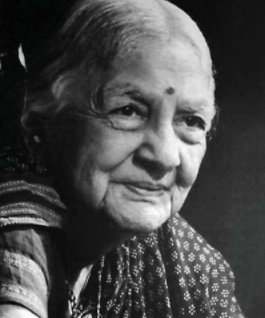
Kamaladevi Chattopadhyay
If you peep into the dim unknown history of India, the history of which is written not on palm leaves or papers, but is alive in the hearts of everyone of us, you will find that the position of women was indeed an enviable one. Never in the history of any country, at any time, has woman been so honoured as she has been in this country. Though apparently she seems to have lost her voice, she has always been the vital element in the evolution of the country and the nation. When I was travelling abroad, I was often asked how the suffragist movement in India was progressing. I could only tell them that there was no suffragist movement in India. In fact, there was no need for such a movement. The last few years have proved this. As soon as the new reforms came in the franchise was granted, and closely following upon its heels came the removal of the ban on sex-disqualification. The time has now come when women should come forward and share the responsibilities equally with men. All over the world women are now taking a keen and an active part in all departments of life.
The time has now come when women should come forward and share the responsibilities equally with men. All over the world women are now taking a keen and an active part in all departments of life.
I stand now as an Independent. I stand for no party or community. I stand as a representative of women. I am not a Swarajist candidate and I am not a member of the Swarajya Party. I do not believe in the policy of obstruction and walk-out. What the Swarajya programme for this year is, I do not know. Whether it is going to accept office or not, does not concern me. That temptation does not come in my way.
People have been questioning me what my political precedents are. I have been interested in politics for several years now. When the great Non-Co-operation Movement was started, my husband and I were pursuing studies in England. The great message came to us over the waters. Our hearts throbbed to the cries of the great nation. Gandhi’s message of love thrilled us, and we felt that we should not be led away by the glamor of foreign degrees. A golden opportunity had been offered to us to do our bit for our country. By the time we had completed our tour and landed in India, Mahatamaji had been imprisoned for some time. When we landed in India we were met by Mrs. [Sarojini] Naidu. The first question we asked her was: What was the condition of the country? She said there was no condition at all. Death had already set in. Our burning spirits were as defeated with this reply. We enlisted ourselves as Congress members and and tried to do our bit, but a good many difficulties arose in our way.
We soon found much of our precious time getting scattered. We then decided to do the same work through the arts and achieve the same end. So at the Belgaum Congress, we consulted Mahatmaji. He gladly assented to our plans and with his blessings we started upon our work. We have been trying to wake up the political consciousness of the country through poetry, through music and through drama. It was just a month ago that we met Mahatma Gandhi in Bombay and he said: “Though I am pressed with heavy work, I have found time to watch with pleasure your progress. Though I cannot be with you in person, let me admire you from a distance. When you have a little leisure come to my Ashram and show my boys the beauties of your art.” Even on the day I was leaving for Mangalore we received two wires asking us to go to him. It was indeed a great temptation I had to resist. All these three years, though I have not been active in the political field, all the time I have been in close touch with politics.
If women in other countries have proved competent enough to handle these problems I do not think an Indian woman will prove an exception. For years you have been sending men to the councils. Some of them have done something for this district. Others have done nothing. So even if a woman fails to fulfill your expectations you have not much to regret.
As to what work I shall do in the council, though no doubt I shall try to tackle problems that are intimately connected with women and children, I feel confident that with time and study I shall be in a position to handle general questions as well. During the course of my tour I have been observing and studying the local grievances. I have been trying to get first-hand information as to the Forest and Land Act. Some of the main problems agitating the public mind just now are the abolition of the old Rent Recovery Act without the introduction of any new compensating one and the Revenue Settlement Act. I have enough of leisure at my disposal to devote it to this work. I appeal to you to give me a chance. If women in other countries have proved competent enough to handle these problems I do not think an Indian woman will prove an exception. For years you have been sending men to the councils. Some of them have done something for this district. Others have done nothing. So even if a woman fails to fulfill your expectations you have not much to regret. Some of you may have some conscientious objections in supporting my candidature either on the ground of sex or otherwise. I appeal to them in that case, at least, to remain neutral as far as possible.
For, remember, when you work against me, you insult all womankind, you work against your own mothers, your sisters, your daughters.
When you lend me your support, it is not merely a personal favour you do to me, but you pay your homage to womankind. If the first Indian woman who has come forward in spite of all difficulties and obstacles is not helped, it will greatly discourage the women who in the future might stand for elections. So the privilege granted to women will be hardly of any service.
When you lend me your support, it is not merely a personal favour you do to me, but you pay your homage to womankind. If the first Indian woman who has come forward in spite of all difficulties and obstacles is not helped, it will greatly discourage the women who in the future might stand for elections. So the privilege granted to women will be hardly of any service. I am not concerned very much with the result. I shall do my best. I wish to prove to the world that a woman can fight and fight well in spite of everything. Woman in India has always stood for strength and not weakness. She is the Divine Shakti. Whether it is a mere sentiment or a living flame, will be proved by the elections.
Speech at Mahad (Mahad, December 1927)
BHIMRAO RAMJI AMBEDKAR
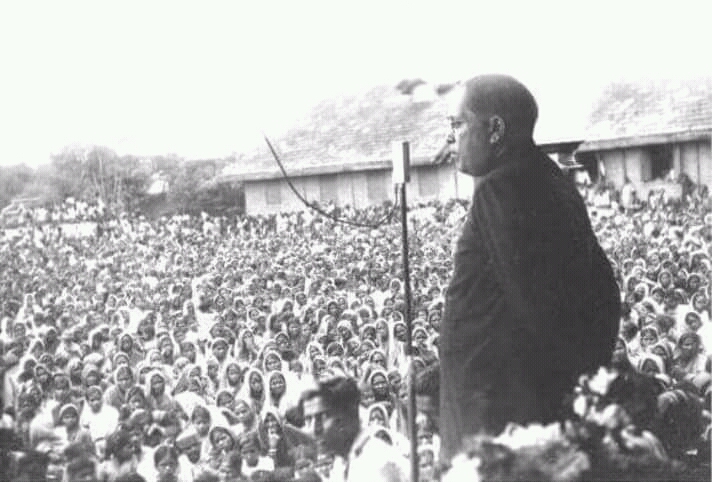
B.R. Ambedkar
Gentlemen, you have gathered here today in response to the invitation of the Satyagraha Committee. As the Chairman of that Committee, I gratefully welcome you all.
Many of you will remember that on the 19th of last March all of us came to the Chavadar Lake here. The caste Hindus of Mahad had laid no prohibition on us; but they showed they had objections to our going there by the attack they made. The fight brought results that one might have expected. The aggressive caste Hindus were sentenced to four months’ rigorous imprisonment, and are now in jail. If we had not been hindered on 19th March, it would have been proved that the caste Hindus acknowledge our right to draw water from the lake, and we should have had no need to begin our present undertaking.
Unfortunately we were thus hindered, and we have been obliged to call this meeting today. This lake at Mahad is public property. The caste Hindus of Mahad are so reasonable that they not only draw water from the lake themselves but freely permit people of any religion to draw water from it, and accordingly people of other religions such as the Islamic do make use of this permission. Nor do the caste Hindus prevent members of species considered lower than the human, such as birds and beasts, from drinking at the lake. Moreover, they freely permit beasts kept by untouchables to drink at the lake.
Caste Hindus are the very founts of compassion. They practise no hinsa and harass no one. They are not of the class of miserly and selfish folk who would grudge even a crow some grains of the food they are eating. The proliferation of sanyasis and mendicants is a living testimony to their charitable temperament. They regard altruism as religious merit and injury to another as a sin.
Even further, they have imbibed the principle that injury done by another must not be repaid but patiently endured, and so, they not only treat the harmless cow with kindness, but spare harmful creatures such as snakes. That one Atman or Spiritual Self dwells in all creatures has become a settled principle of their conduct. Such are the caste Hindus who forbid some human beings of their own religion to draw water from the Same Chavadar Lake! One cannot help asking the question, why do they forbid us alone?
Such are the caste Hindus who forbid some human beings of their own religion to draw water from the Same Chavadar Lake! One cannot help asking the question, why do they forbid us alone?
It is essential that all should understand thoroughly the answer to this question. Unless you do, I feel, you will not grasp completely the importance of today’s meeting. The Hindus are divided, according to sacred tradition, into four castes; but according to custom, into five: Brahmins, Kshatriyas, Vaishyas, Shudras and Atishudras. The caste system is the first of the governing rules of the Hindu religion. The second is that the castes are of unequal rank. They are ordered in a descending series of each meaner than the one before.
Not only are their ranks permanently fixed by the rule, but each is assigned boundaries it must not transgress, so that each one may at once be recognized as belonging to its particular rank. There is a general belief that the prohibitions in the Hindu religion against intermarriage, interdining, inter drinking and social intercourse are bounds set to degrees of association with one another. But this is an incomplete idea. These prohibitions are indeed limits to degrees of association; but they have been set to show people of unequal rank what the rank of each is. That is, these bounds are symbols of inequality.
Just as the crown on a man’s head shows he is a king, and the bow in his hand shows him to be a Kshatriya, the class to which none of the prohibitions applies is considered the highest of all and the one to which they all apply is reckoned the lowest in rank. The strenuous efforts made to maintain the prohibitions are for the reason that, if they are relaxed, the inequality settled by religion will break down and equality will take its place.
The caste Hindus of Mahad prevent the untouchables from drinking the water of the Chavadar Lake not because they suppose that the touch of the untouchables will pollute the water or that it will evaporate and vanish. Their reason for preventing the untouchables from drinking it is that they do not wish to acknowledge by such a permission that castes declared inferior by sacred tradition are in fact their equals.
Gentlemen! you will understand from this the significance of the struggle we have begun. Do not let yourselves suppose that the Satyagraha Committee has invited you to Mahad merely to drink the water of the Chavadar Lake of Mahad.
It is not as if drinking the water of the Chavadar Lake will make us immortal. We have survived well enough all these days without drinking it. We are not going to the Chavadar Lake merely to drink its water. We are going to the Lake to assert that we too are human beings like others. It must be clear that this meeting has been called to set up the norm of equality.
It is not as if drinking the water of the Chavadar Lake will make us immortal. We have survived well enough all these days without drinking it. We are not going to the Chavadar Lake merely to drink its water. We are going to the Lake to assert that we too are human beings like others. It must be clear that this meeting has been called to set up the norm of equality.
I am certain that no one who thinks of this meeting in this light will doubt that it is unprecedented. I feel that no parallel to it can be found in the history of India. If we seek for another meeting in the past to equal this, we shall have to go to the history of France on the continent of Europe. A hundred and thirty-eight years ago, on 24 January 1789, King Louis XVI had convened, by royal command, an assembly of deputies to represent the people of the kingdom. His French National Assembly has been much vilified by historians. The Assembly sent the King and the Queen of France to the guillotine; persecuted and massacred the aristocrats; and drove their survivors into exile. It confiscated the estates of the rich and plunged Europe into war for fifteen years. Such are the accusations leveled against the Assembly by the historians. In my view, the criticism is misplaced; further, the historians of this school have not understood the gist of the achievement of the French National Assembly. That achievement served the welfare not only of France but of the entire European continent. If European nations enjoy peace and prosperity today, it is for one reason: the revolutionary French National Assembly convened in 1789 set new principles for the organization of society before the disorganized and decadent French nation of its time, and the same principles have been accepted and followed by Europe.
To appreciate the importance of the French National Assembly and the greatness of its principles, we must keep in mind the suite of French society at the time. You are all aware that our Hindu society is based on the system of castes. A rather similar system of classes existed in the France of 1789: the difference was that it was a society of three castes. Like the Hindu society, the French had a class of Brahmins and another of Kshatriyas. But instead of three different castes of Vaishya, Shudra, and Atishudra, there was one class that comprehended these. This is a minor difference. The important thing is that the caste or class system was similar. The similarity to be noted is not only in the differentiation between classes: the inequality of our caste system was also to be found in the French social system. The nature of the inequality in the French society was different: it was economic in nature. It was, however, equally intense. The thing to bear in mind is there is a great similarity between the French National Assembly that met on 5 May 1789 at Versailles and our meeting today. The similarity is not only in the circumstances in which the two meetings took place but also in their ideals.
That Assembly of the French people was convened to reorganize French society. Our meeting today too has been convened to reorganize Hindu society. Hence, before discussing on what principles our society should be reorganized, we should all pay heed to the principles on which the French Assembly relied and the policy it adopted. The scope of the French Assembly was far wider than that of our present meeting. It had to carry out the threefold organization of the French political, social and religious systems. We must confine ourselves to how social and religious reorganization can be brought about. Since we are not, for the present, concerned with political reorganization, let us see what the French Assembly did in the matter of the religious and social reorganization of their nation. The policy adopted by the French National Assembly in this area can be seen plainly by anyone from three important proclamations issued by that Assembly. The first was issued on 17 June 1789. This was a proclamation about the class systems in France. As said before, French society was divided into three classes. The proclamation abolished the three classes and blended them into one. Further, it abolished the seats reserved separately for the three classes (or estates) in the political assembly. The second proclamation was about the priests. By ancient custom, to appoint or remove these priests was outside the power of the nation, that being the monopoly of a foreign religious potentate, the Pope. Anyone appointed by the Pope was a priest, whether or not he was fit to be one in the eyes of those to whom he was to preach. The proclamation abolished the autonomy of the religious orders and assigned to the French nation the authority to decide who might follow this vocation, who was fit for it and who was not, whether he was to be paid for preaching or not, and so on. The third proclamation was not about the political, economic or religious systems. It was of a general nature and laid down the principles on which all social arrangements ought to rest. From that point of view, the third proclamation is the most important of the three; it might be called the king of these proclamations. It is renowned the world over as the declaration of human birthrights. It is not only unprecedented in the history of France; more than that, it is unique in the history of civilized nations. For every European nation has followed the French Assembly in giving it a place in its own constitution. So one may say that it brought about a revolution not only in France but the whole world. This proclamation has seventeen clauses, of which the following are important:
Any person is free to act according to his birthright. Any limit placed upon this freedom must be only to the extent necessary to permit other persons to enjoy their birthrights. Such limits must be laid down by law: they cannot be set on the grounds of the religion or on any other basis than the law of the land.
1) All human beings are equal by birth; and they shall remain equal till death. They may be distinguished in status only in the public interest. Otherwise, their equal status must be maintained.
2) The ultimate object of politics is to maintain these human birthrights.
3) The entire nation is the mother-source of sovereignty. The rights of any individual, group or special class, unless they are given by the nation, cannot be acknowledged as valid on any other ground, be it political or religious.
4) Any person is free to act according to his birthright. Any limit placed upon this freedom must be only to the extent necessary to permit other persons to enjoy their birthrights. Such limits must be laid down by law: they cannot be set on the grounds of the religion or on any other basis than the law of the land.
5) The law will forbid only such actions as are injurious to society. All must be free to do what has not been forbidden by law. Nor can anyone be compelled to do what the law has not laid down as a duty.
6) The law is not in the nature of bounds set by any particular class. The right to decide what the law shall be rests with the people or their representatives. Whether such a law is protective or punitive, it must be the same for all. Since justice requires that all social arrangements be based on the equality of all, all individuals are equally eligible for any kind of honour, power and profession. Any distinction in such matters must be owing to differences of individual merit; it must not be based on birth.
I feel our meeting today should keep the image of this French National Assembly before the mind. The road it marked out for the development of the French nation, the road that all progressed nations have followed, ought to be the road adopted for the development of Hindu society by this meeting. We need to pull away the nails which hold the framework of caste-bound Hindu society together, such as those of the prohibition of intermarriage down to the prohibition of social intercourse so that Hindu society becomes all of one caste. Otherwise untouchability cannot be removed nor can equality be established.
To raise men, aspiration is needed as much as outward efforts. Indeed it is to be doubted whether efforts are possible without aspiration. Hence, if a great effort is to be made, a great aspiration must be nursed. In adopting an aspiration one need not be abashed or deterred by doubts about one’s power to satisfy it. One should be ashamed only of mean aspirations; not of failure that may result because one’s aspiration is high. If untouchability alone is removed, we may change from Atishudras to Shurdas; but can we say that this radically removes untouchability? If such puny reforms as the removal of restrictions on social intercourse etc. were enough for the eradication of untouchability I would not have suggested that the caste system itself must go.
Some of you may feel that since we are untouchables, it is enough if we are set free from the prohibitions of interdrinking and social intercourse. That we need not concern ourselves with the caste system; how does it matter if it remains? In my opinion, this is a total error. If we leave the caste system alone and adopt only the removal of untouchability as our policy, people will say that we have chosen a low aim. To raise men, aspiration is needed as much as outward efforts. Indeed it is to be doubted whether efforts are possible without aspiration. Hence, if a great effort is to be made, a great aspiration must be nursed. In adopting an aspiration one need not be abashed or deterred by doubts about one’s power to satisfy it. One should be ashamed only of mean aspirations; not of failure that may result because one’s aspiration is high. If untouchability alone is removed, we may change from Atishudras to Shurdas; but can we say that this radically removes untouchability? If such puny reforms as the removal of restrictions on social intercourse etc. were enough for the eradication of untouchability I would not have suggested that the caste system itself must go. Gentlemen! You all know that if a snake is to be killed it is not enough to strike at its tail – its head must be crushed. If any harm is to be removed, one must seek out its root and strike at it. An attack must be based on the knowledge of the enemy’s vital weakness. Duryodhana was killed because Bheema struck at his thigh with his mace. If the mace had hit Durydhana’s head he would not have died; for his thigh was his vulnerable spot. One finds many instances of a physician’s efforts to remove a malady proving fruitless because he has not perceived fully what will get rid of the disease; similar instances of failure to root out a social disease when it is not fully diagnosed are rarely recorded in history; and so one does not often become aware of them. But let me acquaint you with one such instance that I have come across in my reading. In the ancient European nation of Rome, the patricians were considered upper class, and the plebians, lower class. All power was in the hands of, the patricians, and they used it to ill-treat the plebians. To free themselves from this harassment, the plebians, on the strength of their unity, insisted that laws should be written down for the facilitation of justice and for the information of all. Their patrician opponents agreed to this; and a charter of twelve laws was written down. But this did not rid the oppressed plebians of their woes. For the officers who enforced the laws were all of the patrician class; moreover, the chief officer, called the tribune, was also a patrician. Hence, though the laws were uniform, there was partiality in their enforcement. The plebians then demanded that instead of the administration being in the hands of one tribune there should be two tribunes, of whom one should be elected by the plebians and the other by the patricians. The patricians yielded to this too, and the plebians rejoiced, supposing they would now be free of their miseries. But their rejoicing was short-lived. The Roman people had a tradition that nothing was to be done without the favourable verdict of the oracle at Delphi. Accordingly, even the election of a duly elected tribune – if the oracle did not approve of him – had to be treated as annulled, and another had to be elected, of whom the oracle approved. The priest who put the question to the oracle was required, by sacred religious custom, to be one born of parents married in the mode the Romans called conferatio and this mode of marriage prevailed only among the patricians; so that the priest of Delphi was always a patrician.
The wily priest always saw to it that if the plebians elected a man really devoted to their cause, the oracle went against him. Only if the man elected by the plebians to the position of tribune was amenable to the patricians, would the oracle favour him and give him the opportunity of actually assuming office. What did the plebians gain by their right to elect a tribune? The answer must be, nothing in reality. Their efforts proved meaningless because they did not trace the malady to its source. If they had, they would, at the same time that they demanded a tribune of their election, have also settled the question of who should be the priest at Delphi. The disease could not be eradicated by demanding a tribune; it needed control of the priestly office; which the plebians failed to perceive. We too, while we seek a way to remove untouchability, must inquire closely into what will eradicate the disease; otherwise we too may miss our aim. Do not be foolish enough to believe that removal of the restrictions on social intercourse or interdrinking will remove untouchability.
Remember that if the prohibitions on social intercourse and interdrinking go, the roots of untouchability are not removed. Release from these two restrictions will, at the most, remove untouchability as it appears outside the home; but it will leave untouchability in the home untouched. If we want to remove untouchability in the home as well as outside, we must break down the prohibition against intermarriage. Nothing else will serve. From another point of view, we see that breaking down the bar against intermarriage is the way to establish real equality. Anyone must confess that when the root division is dissolved, incidental points of separateness will disappear by themselves. The interdictions on interdining, interdrinking and social intercourse have all sprung from the one interdiction against intermarriage. Remove the last and no special efforts are needed to move the rest. They will disappear of their own accord. In my view the removal of untouchability consists in breaking down the ban on intermarriage and doing so will establish real equality. If we wish to cut out untouchability, we must recognize that the root of untouchability is in the ban on intermarriage. Even if our attack today is on the ban against interdrinking, we must press it home against the ban on intermarriage; otherwise untouchability cannot be removed by the roots. Who can accomplish this task? It is no secret that the Brahmin class cannot do it.
If we wish to cut out untouchability, we must recognize that the root of untouchability is in the ban on intermarriage. Even if our attack today is on the ban against interdrinking, we must press it home against the ban on intermarriage; otherwise untouchability cannot be removed by the roots. Who can accomplish this task? It is no secret that the Brahmin class cannot do it.
While the caste system lasts, the Brahmin caste has its supremacy. No one, of his own will, surrenders power which is in his hands. The Brahmins have exercised their sovereignty over all other castes for centuries. It is not likely that they will be willing to give it up and treat the rest as equals. The Brahmins do not have the patriotism of the Samurais of Japan. It is useless to hope that they will sacrifice their privileges as the Samurai class did, for the sake of national unity based on a new equality. Nor does it appear likely that the task will be carried out by other caste Hindus. These others, such as the class comprising the Marathas and other similar castes, are a class between the privileged and those without any rights.
A privileged class, at the cost of a little self-sacrifice, can show some generosity. A class without any privileges has ideals and aspirations; for, at least as a matter of self-interest, it wishes to bring about a social reform. As a result it develops an attachment to principles rather than to self-interest. The class of caste Hindus, other than Brahmins, lies in between: it cannot practise the generosity possible to the class above and it does not develop the attachment to principles that develops in the class below. This is why this class is seen to be concerned not so much about attaining equality with the Brahmins as about maintaining its status above the untouchables.
For the purposes of the social reform required, the class of caste Hindus other than Brahmins is feeble. If we are to await its help, we should fall into the difficulties that the farmer faced, who depended on his neighbour’s help for his harvesting, as in the story of the mother lark and her chicks found in many textbooks.
The task of removing untouchability and establishing equality that we have undertaken, we must carry out ourselves. Others will not do it. Our life will gain its true meaning if we consider that we are born to carry out this task and set to work in earnest. Let us receive this merit which is awaiting us.
The task of removing untouchability and establishing equality that we have undertaken, we must carry out ourselves. Others will not do it. Our life will gain its true meaning if we consider that we are born to carry out this task and set to work in earnest. Let us receive this merit which is awaiting us.
This is a struggle in order to raise ourselves; hence we are bound to undertake it, so as to remove the obstacles to our progress. We all know how at every turn, untouchability muddies and soils our whole existence. We know that at one time our people were recruited in large numbers into the troops. It was a kind of occupation socially assigned to us and few of us needed to be anxious about earning our bread. Other classes of our level have found their way into the troops, the police, the courts and the offices, to earn their bread. But in the same areas of employment you will no longer find the untouchables.
It is not that the law debars us from these jobs. Everything is permissible as far the law is concerned. But the Government finds itself powerless because other Hindus consider us untouchables and look down upon us, and it acquiesces in our being kept out of Government jobs. Nor can we take up any decent trade. It is true, partly, that we lack money to start business, but the real difficulty is that people regard us as untouchables and no one will accept goods from our hands.
To sum up, untouchability is not a simple matter; it is the mother of all our poverty and lowliness and it has brought us to the abject state we are in today. If we want to raise ourselves out of it, we must undertake this task. We cannot be saved in any other way. It is a task not for our benefit alone; it is also for the benefit of the nation.
Untouchability is not a simple matter; it is the mother of all our poverty and lowliness and it has brought us to the abject state we are in today. If we want to raise ourselves out of it, we must undertake this task. We cannot be saved in any other way. It is a task not for our benefit alone; it is also for the benefit of the nation.
Hindu society must sink unless the untouchability that has become a part of the four-castes system is eradicated. Among the resources that any society needs in the struggle for life, a great resource is the moral order of that society. And everyone must admit that a society in which the existing moral order upholds things that disrupt the society and condemns those that would unite the members of the society, must find itself defeated in any struggle for life with other societies. A society which has the opposite moral order, one in which things that unite are considered laudable and things that divide are condemned, is sure to succeed in any such struggle.
This principle must be applied to Hindu society. Is it any wonder that it meets defeat at every turn when it upholds a social order that fragments its members, though it is plain to anyone who sees it that the four-castes system is such a divisive force and that a single caste for all, would unite society? If we wish to escape these disastrous conditions, we must break down the framework of the four-castes system and replace it by a single caste system.
Even this will not be enough. The inequality inherent in the four-castes system must be rooted out. Many people mock at the principles of equality. Naturally, no man is another’s equal. One has an impressive physique; another is slow-witted. The mockers think that, in view of these inequalities that men are born with, the egalitarians are absurd in telling us to regard them as equals. One is forced to say that these mockers have not understood fully the principle of equality.
If the principle of equality means that privilege should depend, not on birth, wealth, or anything else, but solely on the merits of each man, then how can it be demanded that a man without merit, and who is dirty and vicious, should be treated on a level with a man who has merit and is clean and virtuous? Such is a counter-question sometimes posed. It is essential to define equality as giving equal privileges to men of equal merit.
But before people have had an opportunity to develop their inherent qualities and to merit privileges, it is just to treat them all equally. In sociology, the social order is itself the most important factor in the full development of qualities that any person may possess at birth. If slaves are constantly treated unequally, they will develop no qualities other than those appropriate to slaves, and they will never become fit for any higher status. If the clean man always repulses the unclean man and refuses to have anything to do with him, the unclean man will never develop the aspiration to become clean. If the criminal or immoral castes are given no refuge by the virtuous castes, the criminal castes will never learn virtue.
The examples given above show that, although an equal treatment may not create good qualities in one who does not have them at all, even such qualities where they exist need equal treatment for their development; also, developed good qualities are wasted and frustrated without equal treatment.
On the one hand, the inequality in Hindu society stuns the progress of individuals and in consequence stunts society. On the other hand, the same inequality prevents society from bringing into use powers stored in individuals. In both ways, this inequality is weakening Hindu society, which is in disarray because of the four-castes system.
Hence, if Hindu society is to be strengthened, we must uproot the four-castes system and untouchability, and set the society on the foundations of the two principles of one caste only and of equality. The way to abolish untouchability is not any other than the way to invigorate Hindu society. Therefore I say that our work is beyond doubt as much for the benefit of the nation as it is in our own interest.
If Hindu society is to be strengthened, we must uproot the four-castes system and untouchability, and set the society on the foundations of the two principles of one caste only and of equality. The way to abolish untouchability is not any other than the way to invigorate Hindu society. Therefore I say that our work is beyond doubt as much for the benefit of the nation as it is in our own interest.
Our work has been begun to bring about a real social revolution. Let no one deceive himself by supposing that it is a diversion to quieten minds entranced with sweet words. The work is sustained by strong feeling, which is the power that drives the movement. No one can now arrest it. I pray to God that the social revolution which begins here today may fulfill itself by peaceful means.
None can doubt that the responsibility of letting the revolution take place peacefully rests more heavily on our opponents than on us. Whether this social revolution will work peacefully or violently will depend wholly on the conduct of the caste Hindus. People who blame the French National Assembly of 1789 for atrocities forget one point. That is, if the rulers of France had not been treacherous to the Assembly, if the upper classes had not resisted it, had not committed the crime of trying to suppress it with foreign help, it would have had no need to use violence in the work of the revolution and the whole social transformation would have been accomplished peacefully.
We say to our opponents too: please do not oppose us. Put away the orthodox scriptures. Follow justice. And we assure you that we shall carry out our programme peacefully.
Purna Swaraj (Lahore, December 1929)
JAWAHARLAL NEHRU
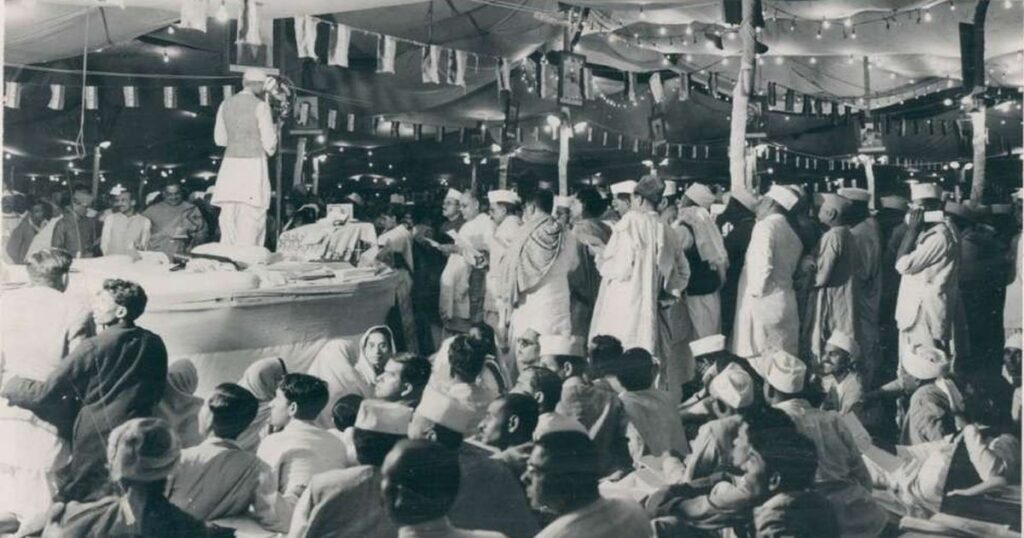
Pledge for Purna Swaraj, Jawaharlal Nehru
Comrades— for four and forty years this National Congress has laboured for the freedom of India. During this period it has somewhat slowly, but surely, awakened national consciousness from its long stupor and built up the national movement. If, today we are gathered here at a crisis of our destiny, conscious of our strength as well as of our weakness, and looking with hope and apprehension to the future, it is well that we give first thought to those who have gone before us and who spent out their lives with little hope of reward, so that those that followed them may have the joy of achievement. Many of the giants of old are not with us and we of a later day, standing on an eminence of their creation, may often decry their efforts. That is the way of the world. But none of you can forget them or the great work they did in laying the foundations of a free India. And none of us can ever forget that glorious band of men and women who, without tacking the consequences, have laid down their young lives or spent their bright youth in suffering and torment in utter protest against a foreign domination.
Many of their names even are not known to us. They laboured and suffered in silence without any expectation of public applause, and by their heart’s blood they nursed the tender plant of India’s freedom. While many of us temporized and compromised, they stood up and proclaimed a people’s right to freedom and declared to the world that India, even in her degradation, had the spark of life in her, because she refused to submit to tyranny and serfdom. Brick by brick has our national movement been built up, and often on the prostrate bodies of her martyred sons has India advanced. The giants of old may not be with us, but the courage of old is with us still and India can yet produce martyrs like Jatin Das and Wizaya. This is the glorious heritage that we have inherited and you wish to put me in charge of it. I know well that I occupy this honoured place by chance more than by your deliberate design. Your desire was to choose another — one who towers above all others in this present day world of ours — and there could have been no wiser choice. But fate and he conspired together and thrust me against your will and mine into this terrible seat of responsibility. Should I express my gratitude to you for having placed me in this dilemma? But I am grateful indeed for your confidence in one who strangely lacks it himself.
Brick by brick has our national movement been built up, and often on the prostrate bodies of her martyred sons has India advanced. The giants of old may not be with us, but the courage of old is with us still and India can yet produce martyrs like Jatin Das and Wizaya. This is the glorious heritage that we have inherited and you wish to put me in charge of it.
You will discuss many vital national problems that face us today and your decisions may change the course of Indian history. But you are not the only people that are faced with problems. The whole world today is one vast question-mark and every country and every people is in the melting pot. The age of faith, with the comfort and stability it brings, is past and there is questioning about everything, however permanent or sacred it might have appeared to our forefathers. Everywhere, there is doubt and restlessness and the foundations of the state and society are in process of transformation. Old established ideas of liberty, justice, property, and even the family are being attacked and the outcome hangs in the balance. We appear to be in a dissolving period of history when the world is in labour and out of her travail will give birth to a new order.
The future lies with America and Asia. Owing to false and incomplete history many of us have been led to think that Europe has always dominated over the rest of the world, and Asia has always let the legions of the West thunder past and plunged in thought again. We have forgotten that for millennia the legions of Asia overran Europe and modern Europe itself largely consists of the descendants of these invaders from Asia. We have forgotten that it was India that finally broke the military power of Alexander.
No one can say what the future will bring, but we may assert with some confidence that Asia and even India, will play a determining part in future world policy. The brief day of European domination is already approaching its end. Europe has ceased to be the centre of activity and interest. The future lies with America and Asia. Owing to false and incomplete history many of us have been led to think that Europe has always dominated over the rest of the world, and Asia has always let the legions of the West thunder past and plunged in thought again. We have forgotten that for millennia the legions of Asia overran Europe and modern Europe itself largely consists of the descendants of these invaders from Asia. We have forgotten that it was India that finally broke the military power of Alexander.
Thought has undoubtedly been the glory of Asia and specially of India, but in the field of action the record of Asia has been equally great. But none of us desires that the legions of Asia or Europe should overrun the continents again. We have all had enough of them.
India today is a part of a world movement. Not only China, Turkey, Persia, and Egypt but also Russia and the countries of the West are taking part in this movement, and India cannot isolate herself from it. We have our own problems — difficult and intricate — and we cannot run away from them and take shelter in the wider problems that affect the world. But if we ignore the world, we do so at our peril. Civilization today, such as it is, is not the creation or monopoly of one people or nation. It is a composite fabric to which all countries have contributed and then have adapted to suit their particular needs. And if India has a message to give to the world as I hope she has, she has also to receive and learn much from the messages of other peoples.
Few things in history are more amazing than the wonderful stability of the social structure in India, which withstood the impact of numerous alien influences and thousands of years of change and conflict. It withstood them because it always sought to absorb them and tolerate them. Its aim was not to exterminate, but to establish an equilibrium between different cultures. Aryans and non-Aryans settled down together recognizing each other’s right to their culture, and outsiders who came, like the Parsis, found a welcome and a place in the social order. With the coming of the Muslims, the equilibrium was disturbed, but India sought to restore it, and largely succeeded. Unhappily for us before we could adjust our differences, the political structure broke down, the British came and we fell.
When everything is changing it is well to remember the long course of Indian history. Few things in history are more amazing than the wonderful stability of the social structure in India, which withstood the impact of numerous alien influences and thousands of years of change and conflict. It withstood them because it always sought to absorb them and tolerate them. Its aim was not to exterminate, but to establish an equilibrium between different cultures. Aryans and non-Aryans settled down together recognizing each other’s right to their culture, and outsiders who came, like the Parsis, found a welcome and a place in the social order. With the coming of the Muslims, the equilibrium was disturbed, but India sought to restore it, and largely succeeded. Unhappily for us before we could adjust our differences, the political structure broke down, the British came and we fell.
Great as was the success of India in evolving a stable society, she failed and in a vital particular, and because she failed in this, she fell and remains fallen. No solution was found for the problem of equality. India deliberately ignored this and built up her social structure on inequality, and we have the tragic consequences of this policy in the millions of our people who till yesterday were suppressed and had little opportunity for growth.
And yet when Europe fought her wars of religion and Christians massacred each other in the name of their saviour, India was tolerant, although alas, there is little of this toleration today. Having attained some measure of religious liberty, Europe sought after political liberty, and political and legal equality. Having attained these also, she finds that they mean very little without economic liberty and equality. And so today politics have ceased to have much meaning and the most vital question is that of social and economic equality.
India also will have to find a solution to this problem and until she does so, her political and social structure cannot have stability. That solution need not necessarily follow the example of any other country. It must, if it has to endure, be based on the genius of her people and be an outcome of her thought and culture. And when it is found, the unhappy differences between various communities, which trouble us today and keep back our freedom, will automatically disappear.
What shall we gain for ourselves or for our community, if all of us are slaves in a slave country? And what can we lose if once we remove the shackles from India and can breathe the air of freedom again? Do we want outsiders who are not of us and who have kept us in bondage, to be the protectors of our little rights and privileges, when they deny us the very right to freedom? No majority can crush a determined minority and no minority can be protected by a little addition to its seats in a legislature. Let us remember that in the world today, almost everywhere a very small minority holds wealth and power and dominates over the great majority.
Indeed, the real differences have already largely gone, but fear of each other and distrust and suspicion remain and sow seeds of discord. The problem is how to remove fear and suspicion and, being intangible, they are hard to get at. An earnest attempt was made to do so last year by the All Parties’ Committee and much progress was made towards the goal. But we must admit with sorrow that success has not wholly crowned its efforts. Many of our Muslim and Sikh friends have strenuously opposed the solutions suggested and passions have been roused over mathematical figures and percentages. Logic and cold reasons are poor weapons to fight fear and distrust. Only faith and generosity can overcome them. I can only hope that the leaders of various communities will have this faith and generosity in ample measure. What shall we gain for ourselves or for our community, if all of us are slaves in a slave country? And what can we lose if once we remove the shackles from India and can breathe the air of freedom again? Do we want outsiders who are not of us and who have kept us in bondage, to be the protectors of our little rights and privileges, when they deny us the very right to freedom? No majority can crush a determined minority and no minority can be protected by a little addition to its seats in a legislature. Let us remember that in the world today, almost everywhere a very small minority holds wealth and power and dominates over the great majority.
I have no love for bigotry and dogmatism in religion and I am glad that they are weakening. Nor do I love communalism in any shape or form. I find it difficult to appreciate why political or economic rights should depend on the membership of a religious group or community. I can fully understand the right to freedom in a religion and the right to one’s culture, and in India specially, which has always acknowledged and granted these rights, it should be no difficult matter to ensure their continuance We have only to find out some way whereby we may root out the fear and distrust that darken our horizon today. The politics of a subject race are largely based on fear and hatred, and we have been too long under subjection to get rid of them easily.
The politics of a subject race are largely based on fear and hatred, and we have been too long under subjection to get rid of them easily.
I was born a Hindu but I do not know how far I am justified in calling myself one or in speaking on behalf of Hindus. But birth still counts in this country and by right of birth I shall venture to submit to the leaders of the Hindus that it should be their privilege to take the lead in generosity. Generosity is not only good morals, but is often good politics and sound expediency. And it is inconceivable to me that in a free India, the Hindus can ever be powerless. So far as I am concerned, I would gladly ask our Muslim and Sikh friends to take what they will without protest and argument from me. I know that the time is coming soon when these labels and appellations will have little meaning and when our struggle will be on an economic basis. Meanwhile, it matters little what our mutual arrangements are, provided only that we do not build up barriers which will come in the way of our future progress.
The time has indeed already come when the All Parties’ Report has to be put aside and we march forward unfettered to our goal. You will remember that the resolution of the last Congress fixed a year of grace for the adoption of the All-Parties scheme. That year is nearly over and the natural issue of that decision is for this Congress to declare in favour of independence and devise sanctions to achieve it.
Recently, there has been a seeming offer of peace. The Viceroy has stated on behalf of the British Government that the leaders of Indian opinion will be invited to confer with the government on the subject of India’s future Constitution. The Viceroy meant well and his language was the language of peace. But even a Viceroy’s goodwill and courteous phrases are poor substitutes for the hard facts that confront us. We have sufficient experience of the devious ways of British diplomacy to beware of it. The offer which the British Government made was vague and there was no commitment or promise of performance. Only by the greatest stretch of imagination could it be interpreted as a possible response to the Calcutta resolution. Many leaders of various political parties met together soon after and considered it. They gave it the most favourable interpretation, for they desired peace and were willing to go half-way to meet it. But in courteous language they made it clear what the vital conditions for its acceptance were.
Many of us who believed in independence and were convinced that the offer was only a device to lead us astray and create division in our ranks, suffered bitter anguish and were torn with doubt. Were we justified in precipitating a terrible national struggle with all its inevitable consequences of suffering for many, when there was even an outside chance of honourable peace? With much searching of heart we signed that manifesto and I know not today if we did right or wrong. Later came the explanations and amplifications in the British Parliament and elsewhere and all doubt, if doubt there was, was removed as to the true significance of the offer. Even so your Working Committee chose to keep open the door of negotiation and left it to this Congress to take the final decision.
During the last few days there has been another discussion of this subject in the British House of Commons and the Secretary of State for India has endeavoured to point out that successive governments have tried to prove, not only by words but by deeds also, the sincerity of their faith in regard to India. We must recognize Mr Wedgwood Benn’s desire to do something for India and his anxiety to secure the goodwill of the Indian people. But his speech and other speeches made in Parliament carry us no further. ‘Dominion Status in action’, to which he has drawn attention has been a snare for us and has certainly not reduced the exploitation of India.
The burdens on the Indian masses are even greater today, because of this ‘Dominion Status in action’ and the so-called constitutional reforms of ten years ago. High Commissioners in London and representatives of the League of Nations, and the purchase of stores, and Indian Governors and high officials are no parts of our demand. We want to put an end to the exploitation of India’s poor and to get the reality of power and not merely the livery of office. Mr Wedgwood Benn has given us a record of the achievements of the past decade. He could have added to it by referring to Martial Law in the Punjab and the Jallianwala Bagh shooting and the repression and exploitation that have gone on continually during this period of ‘Dominion Status in action.’ He has given us some insight into what more of Dominion Status may mean for us. It will mean the shadow of authority to a handful of Indians and more repression and exploitation of the masses.
What will this Congress do? The conditions for cooperation remain unfulfilled. Can we cooperate so long as there is no guarantee that real freedom will come to us? Can we cooperate when our comrades lie in prison and repression continues? Can we cooperate until we are assured that real peace is sought after and not merely a tactical advantage over us? Peace cannot come at the point of the bayonet, and if we are to continue to be dominated over by an alien people, let us at least be no consenting parties to it.
What will this Congress do? The conditions for cooperation remain unfulfilled. Can we cooperate so long as there is no guarantee that real freedom will come to us? Can we cooperate when our comrades lie in prison and repression continues? Can we cooperate until we are assured that real peace is sought after and not merely a tactical advantage over us? Peace cannot come at the point of the bayonet, and if we are to continue to be dominated over by an alien people, let us at least be no consenting parties to it.
If the Calcutta resolution holds, we have but one goal today, that of independence. Independence is not a happy word in the world today; for it means exclusiveness and isolation. Civilization has had enough of narrow nationalism and gropes towards a wider cooperation and inter-dependence. And if we use the word ‘independence’, we do so in no sense hostile to the larger ideal. Independence for us means complete freedom from British domination and British imperialism. Having attained our freedom, I have no doubt that India will welcome all attempts at world-cooperation and federation, and will even agree to give up part of her own independence to a larger group of which she is an equal member.
Independence is not a happy word in the world today; for it means exclusiveness and isolation. Civilization has had enough of narrow nationalism and gropes towards a wider cooperation and inter-dependence. And if we use the word ‘independence’, we do so in no sense hostile to the larger ideal. Independence for us means complete freedom from British domination and British imperialism. Having attained our freedom, I have no doubt that India will welcome all attempts at world-cooperation and federation, and will even agree to give up part of her own independence to a larger group of which she is an equal member.
The British Empire today is not such a group and cannot be so long as it dominates over millions of people and holds large areas of the world’s surface despite the will of their inhabitants. It cannot be a true commonwealth so long as imperialism is its basis and the exploitation of other races its chief means of sustenance. The British Empire today is indeed gradually undergoing a process of political dissolution. It is in a state of unstable equilibrium. The Union of South Africa is not a happy member of the family, nor is the Irish Free State, a willing one. Egypt drifts away. India could never be an equal member of the Commonwealth unless imperialism and all it implies is discarded. So long as this is not done, India’s position in the empire must be one of subservience and her exploitation will continue.
There is talk of world-peace and pacts have been signed by the nations of the world. But despite pacts, armaments grow and beautiful language is the only homage that is paid to the goddess of peace. Peace can only come when the causes of war are removed. So long as there is the domination of one country over another, or the exploitation of one class by another, there will always be attempts to subvert the existing order and no stable equilibrium can endure. Out of imperialism and capitalism peace can never come. And it is because the British Empire stands for these and bases itself on the exploitation of the masses that we can find no willing place in it. No gain that may come to us is worth anything unless it helps in removing the grievous burdens on our masses. The weight of a great empire is heavy to carry and long our people have endured it. Their backs are bent down and their spirit has almost broken. How will they share in the Commonwealth partnership if the burden of exploitation continues? Many of the problems we have to face are the problems of vested interests mostly created or encouraged by the British Government. The interests of the Rulers of Indian States, of British officials and British capital and Indian capital and of the owners of big zamindaris are ever thrust before us, and they clamour for protection. The unhappy millions who really need protection are almost voiceless and have few advocates.
We have had much controversy about independence and Dominion Status and we have quarrelled about words. But the real thing is the conquest of power by whatever name it may be called. I do not think that any form of Dominion Status applicable to India will give us real power. A test of this power would be the entire withdrawal of the alien army of occupation and economic control. Let us, therefore, concentrate on these and the rest will follow easily.
We stand therefore today, for the fullest freedom of India. This Congress has not acknowledged and will not acknowledge the right of the British Parliament to dictate to us in any way. To it we make no appeal. But we do appeal to the Parliament and the conscience of the world, and to them we shall declare, I hope, that India submits no longer to any foreign domination. Today or tomorrow, we may not be strong enough to assert our will. We are very conscious of our weakness, and there is no boasting in us or pride of strength. But let no one, least of all England, mistake or underrate the meaning or strength of our resolve. Solemnly, with full knowledge of consequences, I hope, we shall take it and there will be no turning back. A great nation cannot be thwarted for long when once its mind is clear and resolved. If today we fail and tomorrow brings no success, the day after will follow and bring achievement.
We stand therefore today, for the fullest freedom of India. This Congress has not acknowledged and will not acknowledge the right of the British Parliament to dictate to us in any way. To it we make no appeal. But we do appeal to the Parliament and the conscience of the world, and to them we shall declare, I hope, that India submits no longer to any foreign domination. Today or tomorrow, we may not be strong enough to assert our will. We are very conscious of our weakness, and there is no boasting in us or pride of strength. But let no one, least of all England, mistake or underrate the meaning or strength of our resolve. Solemnly, with full knowledge of consequences, I hope, we shall take it and there will be no turning back. A great nation cannot be thwarted for long when once its mind is clear and resolved. If today we fail and tomorrow brings no success, the day after will follow and bring achievement.
We are weary of strife and hunger for peace and opportunity to work constructively for our country. Do we enjoy the breaking up of our homes and the sight of our brave young men going to prison or facing the halter? Does the worker like going on strike to lose even his miserable pittance and starve? He does so by sheer compulsion when there is no other way for him. And we who take this perilous path of national strife do so because there is no other way to an honourable peace. But we long for peace, and the hand of fellowship will always be stretched out to all who may care to grasp it. But behind the hand will be a body which will not bend to injustice and a mind that will not surrender on any vital point.
With the struggle before us, the time for determining our future Constitution is not yet. For two years or more we have drawn up constitutions and finally the All-Parties’ Committee put a crown to these efforts by drawing up a scheme of its own which the Congress adopted for a year. The labour that went to the making of this scheme was not wasted and India has profited by it. But the year is past and we have to face new circumstances which require action rather than constitution-making. Yet we cannot ignore the problems that beset us and that will make or mar our struggle and our future constitution. We have to aim at social adjustment and equilibrium and to overcome the forces of disruption that have been the bane of India.
I must frankly confess that I am a socialist and a republican and am no believer in kings and princes, or in the order which produces the modern kings of industry, who have greater power over the lives and fortunes of men than even kings of old, and whose methods are as predatory as those of the old feudal aristocracy. I recognize, however, that it may not be possible for a body constituted as in this National Congress and in the present circumstances of the country to adopt a full socialistic programme. But we must realize that the philosophy of socialism has gradually permeated the entire structure of society the world over and almost the only points in dispute are the pace and methods of advance to its full realization. India will have to go that way too if she seeks to end her poverty and inequality, though she may evolve her own methods and may adapt the ideal to the genuine of her race.
We have three major problems, the minorities, the Indian states, and labour and peasantry. I have dealt already with the question of minorities. I shall only repeat that we must give the fullest assurance by our words and our deeds that their culture and traditions will be safe.
The Indian states cannot live apart from the rest of India and their rulers must, unless they accept their inevitable limitations, go the way of others who thought like them. And the only people who have a right to determine the future of the states must be the people of these states, including the rulers. This Congress which claims self-determination cannot deny it to the people of the states. Meanwhile, the Congress is perfectly willing to confer with such rulers as are prepared to do so and to devise means whereby the transition may not be too sudden. But in no event can the people of the states be ignored.
Our third major problem is the biggest of all. For India means the peasantry and labour and to the extent that we raise them and satisfy their wants will we succeed in our task. And the measure of the strength of our national movement will be the measure of their adherence to it. We can only gain them to our side by our espousing their cause which is really the country’s cause. The Congress has often expressed its goodwill towards them; but beyond that it has not gone. The Congress, it is said, must hold the balance fairly between capital and labour and zamindar and tenant.
But the balance has been and is terribly weighed on one side, and to maintain the status quo is to maintain injustice and exploitation. The only way to right it is to do away with the domination of any one class over another. The All-India Congress Committee accepted this ideal of social and economic change in a resolution it passed some months ago in Bombay. I hope the Congress will also set its seal on it and will further draw up a programme of such changes as can be immediately put in operation.
In this programme perhaps the Congress as a whole cannot go very far today. But it must keep the ultimate ideal in view and work for it. The question is not one merely of wages and charity doled out by an employer or landlord. Paternalism in industry or in the land is but a form of charity with all its sting and its utter incapacity to root out the evil. The new theory of trusteeship, which some advocate, is equally barren. For trusteeship means that the power for good or evil remains with the self-appointed trustee and he may exercise it as he will. The sole trusteeship that can be fair is the trusteeship of the nation and not of one individual or a group. Many Englishmen honestly consider themselves the trustees for India, and yet to what a condition they have reduced our country.
We must decide for whose benefit industry must be run and the land produce food. Today the abundance that the land produces is not for the peasant or the labourer who works on it; and industry’s chief function is supposed to be to produce millionaires. However golden the harvest and heavy the dividends, the mud-huts and hovels and nakedness of our people testify to the glory of the British Empire and of our present social system.
Our economic programme must therefore be based on a human outlook and must not sacrifice man to money. If an industry cannot be run without starving its workers, then the industry must be closed down. If the workers on the land have not enough to eat then the intermediaries who deprive them of their full share must go. The least that every worker in the field or factory is entitled to is a minimum wage which will enable him to live in moderate comfort, and human hours of labour which do not break his strength and spirit.
Our economic programme must therefore be based on a human outlook and must not sacrifice man to money. If an industry cannot be run without starving its workers, then the industry must be closed down. If the workers on the land have not enough to eat then the intermediaries who deprive them of their full share must go. The least that every worker in the field or factory is entitled to is a minimum wage which will enable him to live in moderate comfort, and human hours of labour which do not break his strength and spirit. The All-Parties’ Committee accepted the principle and included it in their recommendations. I hope the Congress will also do so and will in addition be prepared to accept its natural consequences. Further that, it will adopt the well known demands of labour for a better life, and will give every assistance to organize itself and prepare itself for the day when it can control industry on a cooperative basis.
But industrial labour is only a small part of India, although it is rapidly becoming a force that cannot be ignored. It is the peasantry that cry loudly and piteously for relief and our programme must deal with their present condition. Real relief can only come by a great change in the land-laws and the basis of the present system of land tenure. We have among us many big landowners and we welcome them. But they must realize that the ownership of large estates by individuals, which is the outcome of a state resembling the old feudalism of Europe, is a rapidly disappearing phenomenon all over the world. Even in countries which are the strongholds of capitalism, the large estates are being split up and given to the peasantry who work on them. In India also we have large areas where the system of peasant proprietorship prevails and we shall have to extend this all over the country. I hope that in doing so, we may have the cooperation of some, atleast of the big landowners.
It is not possible for this Congress at its annual session to draw up any detailed economic programme. It can only lay down some general principles and call upon the All India Congress Committee to fill in the details in cooperation with the representatives of the Trade Union Congress and other organizations which are vitally interested in this matter. Indeed, I hope that the cooperation between this Congress and the Trade Union Congress will grow and the two organizations will fight side by side in future struggles.
All these are pious hopes till we gain power, and the real problem therefore before us is the conquest of power. We shall not do so by subtle reasoning or argument or lawyers’ quibbles, but by the forging of sanction to enforce the nation’s will. To that end, this Congress must address itself.
The past year has been one of preparation for us and we have made every effort to reorganize and strengthen the Congress Organization. The results have been considerable and our organization is in a better state today than at any time since the reaction which followed the non-cooperation movement. But our weaknesses are many and are apparent enough. Mutual strife, even within Congress Committees, is unhappily too common and election squabbles drain all our strength and energy. How can we fight a great fight if we cannot get over this ancient weakness of ours and rise above our petty selves? I earnestly hope that with a strong programme of action before the country, our perspective will improve and we will not tolerate this barren and demoralizing strife.
What can this programme be? Our choice is limited, not by our own constitution, which we can change at our will but by facts and circumstances. Article one of our constitution lays down that our methods must be legitimate and peaceful. Legitimate I hope they will always be, for we must not sully the great cause for which we stand, by any deed that will bring dishonour to it and that we may ourselves regret later. Peaceful I should like them to be, for the methods of peace are more desirable and more enduring than those of violence. Violence too often brings reaction and demoralization in its train, and in our country especially it may lead to disruption. It is perfectly true that organized violence rules the world today and it may be that we could profit by its use. But we have not the material or the training for organized violence and individual or sporadic violence is a confession of despair. The great majority of us, I take it, judge the issue not on moral but on practical grounds, and if we reject the way of violence it is because it promises no substantial results.
Any great movement for liberation today must necessarily be a mass movement and mass movement must essentially be peaceful, except in times of organized revolt. Whether we have the non-cooperation of a decade ago or the modern industrial weapon of the general strike, the basis is peaceful organization and peaceful action. And if the principal movement is a peaceful one, contemporaneous attempts at sporadic violence can only distract attention and weaken it.
Any great movement for liberation today must necessarily be a mass movement and mass movement must essentially be peaceful, except in times of organized revolt. Whether we have the non-cooperation of a decade ago or the modern industrial weapon of the general strike, the basis is peaceful organization and peaceful action. And if the principal movement is a peaceful one, contemporaneous attempts at sporadic violence can only distract attention and weaken it. It is not possible to carry on at one and the same time the two movements, side by side. We have to choose and strictly to abide by our choice. What the choice of this Congress is likely to be I have no doubt. It can only choose a peaceful mass movement.
Should we repeat the programme and tactics of the non-cooperation movement? Not necessarily, but the basic idea must remain. Programmes and tactics must be made to fit in with circumstances and it is neither easy nor desirable for this Congress at this stage to determine them in detail. That should be the work of its executive, the All-India Congress Committee. But the principles have to be fixed.
The old programme was one of the three boycotts—Councils, law courts and schools—leading up to refusal of service in the army and non-payment of taxes. When the national struggle is at its height, I fail to see how it will be possible for any person engaged in it to continue in the courts or the schools. But still I think that it will be unwise to declare a boycott of the courts and schools at this stage.
The boycott of the Legislative Councils has led to much heated debate in the past and this Congress itself has been rent in twain over it. We need not revive that controversy, for the circumstances today are entirely different. I feel that the step the Congress took some years ago to permit Congressmen to enter the Councils was an inevitable step and I am not prepared to say that some good has not resulted from it. But we have exhausted that good and there is no middle course left today between boycott and noncooperation. All of us know the demoralization that these sham legislatures have brought in our ranks and how many of our good men, their committees and commissions lured away. Our workers are limited in number and we can have no mass movement unless they concentrate on it and turn their backs to the palatial Council Chambers of our Legislatures. And if we declare for independence, how can we enter the Councils, and carry on our humdrum and profitless activities there? No programme or policy can be laid down for ever, nor can this Congress bind the country or even itself to pursue one line of action indefinitely. But today I would respectfully urge the Congress that the only policy in regard to the Council is a complete boycott of them. The All-India Congress Committee recommended this course in July last and the time has come to give effect to it.
This boycott will only be a means to an end. It will release energy and divert attention to the real struggle which must take the shape of the nonpayment of taxes, where possible, with the cooperation of the labour movement, general strikes. But nonpayment of taxes must be well organized in specific areas, and for this purpose the Congress should authorize the All India Congress Committee to take the necessary action, wherever and whenever it considers desirable.
I have not so far referred to the constructive programme of the Congress. This should certainly continue but the experience of the last few years shows us that by itself it does not carry us swiftly enough. It prepares the ground for future action and ten years’ silent work is bearing fruit today. In particular we shall, I hope, continue our boycott of foreign cloth and the boycott of British goods.
Our programme must, therefore, be one of political and economic boycott. It is not possible for us, so long as we are actually independent, and even then completely, to boycott another country wholly or to sever all connection with it. But our endeavour must be to reduce all points of contact with the British Government and to rely on ourselves. We must also make it clear that India will not accept responsibility for all the debts that England has piled on her. The Gaya Congress repudiated liability to pay those debts and we must repeat this repudiation and stand by it. Such of India’s public debt as has been used for purposes beneficial to India we are prepared to admit and pay back. But we wholly deny all liability to pay back the vast sums which have been raised, so that India may be held in subjection and her burdens may be increased. In particular the poverty stricken people of India cannot agree to shoulder the burden of the wars fought by England to extend her domain and consolidate her position in India. Nor can they accept the many concessions lavishly bestowed without any proper compensation on foreign exploiters.
I have not referred so far to the Indians overseas and I do not propose to say much about them. This is not from any want of fellow-feeling with our brethren in East Africa or South Africa or Fiji or elsewhere, who are bravely struggling against great odds. But their fate will be decided in the plains of India and the struggle we are launching into is as much for them as for ourselves.
For this struggle, we want efficient machinery. Our Congress Constitution and organization have become too archaic and slow moving, and are illsuited to times of crisis. The times of great demonstrations are past. We want quiet and irresistible action now, and this can only be brought about by the strictest discipline in our ranks. Our resolutions must be passed in order to be acted upon. The Congress will gain in strength, however small its actual membership may become, if it acts in a disciplined way. Small, determined minorities have changed the fate of nations. Mobs and crowds can do little. Freedom itself involves restraint and discipline and each one of us will have to subordinate himself to the larger good.
The Congress represents no small minority in the country and though many may be too weak to join it or to work for it, they look to it with hope and longing to bring them deliverance. Ever since the Calcutta resolution, the country has waited with anxious expectation for this great day when this Congress meets. None of us can say what and when we can achieve. We cannot command success. But success often comes to those who dare and act; it seldom goes to the timid who are ever afraid of the consequences. We play for high stakes; and if we seek to achieve great things it can only be through great dangers. Whether we succeed soon or late, none but ourselves can stop us from high endeavour and from writing a noble page in our country’s long and splendid history.
Success often comes to those who dare and act; it seldom goes to the timid who are ever afraid of the consequences. We play for high stakes; and if we seek to achieve great things it can only be through great dangers. Whether we succeed soon or late, none but ourselves can stop us from high endeavour and from writing a noble page in our country’s long and splendid history.
We have conspiracy cases going on in various parts of the country. They are ever with us. But the time has gone for secret conspiracy. We have now an open conspiracy to free this country from foreign rule, and you comrades, and all our countrymen and countrywomen are invited to join it. But the rewards that are in store for you are suffering and prison and you will have done your little bit for India, the ancient, but ever young, and have helped a little in the liberation of humanity from its present bondage.
The death of God (Madras, December 1933)
MALAYAPURAM SINGARAVELU
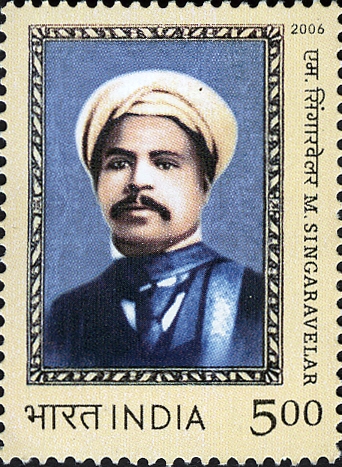
M. Singaravelu
I think this conference is the first of its kind in the whole of India. One can boldly assert that this conference will bring good to the country and people. Unfortunately some people, out of ignorance, have ridiculed this conference. As usual, theists indulge in slander. The bureaucrats try to indulge in repression under some pretext or other. But this is not a new occurrence. In the past all progressive movements have been persecuted and ridiculed.
Not content with ridiculing the progressive movement, this mad and ignorant world has always tried to stop the spread of scientific knowledge. Ingersol, the famous atheist of America was not taken note of during his lifetime and was even ridiculed. But now his birth anniversary is being celebrated in America. Bradlaugh, the British atheist, was put behind bars during his lifetime. Now what happens in Britain? Commemoration meetings in honour of Bradlaugh are being held in Britain. I am sure in due course still bigger conferences of this kind would be held in this country. It is quite likely that people may forget the names of the atheists but their ideas will remain forever in their minds.
Atheism is an ancient doctrine which originated and developed side by side with theism. When the concept of God was ushered in, alongside came the doctrine of ‘no-God’. Till the time man developed his faculty to speak, he was not aware of any God. Some of the primitive tribesmen have confessed their ignorance about God, and can aptly be called ‘primitive atheists’.
Atheism is an ancient doctrine which originated and developed side by side with theism. When the concept of God was ushered in, alongside came the doctrine of ‘no-God’. Till the time man developed his faculty to speak, he was not aware of any God. Some of the primitive tribesmen have confessed their ignorance about God, and can aptly be called ‘primitive atheists’.
In this connection it is really interesting to note the history of religion. Every religion had proclaimed that people belonging to the other religions were atheists. A non-Hindu is an atheist to a Hindu. To a Muslim any non- Muslim is an atheist. Likewise, many more people were termed as atheists. Hence, I would like to say one should really be proud to be an atheist as he is not only non-religious but also does not accept a belief in God.
As the word (God) was man’s own creation, he began to build houses (temples) for his God. Just as he respected his superiors and elders, he began to respect his God. What he did to entertain himself like music, dance, rituals, feasts, he offered to his God. Thus, God advanced as man advanced.
Some shrewd men of those days found an easy way to life and this paved the way for replacing the word with an idol. To make man live perpetually in fear of God, these men did everything possible and thus priesthood came into existence. These priests lived and thrived on the fear and ignorance of men. Thus around the single word ‘God’ the entire edifice of religious and philosophical system of rituals and prayers were built. In the course of history, many beliefs have become obsolete and I am sure that this belief, namely, theism too would become obsolete in due course.
The first and most dangerous affect of theism is that it saps the initiative of man. Ignorance take deep roots in him. People are prevented from acquiring scientific knowledge. Theism is not only a negative evil; it is positively harmful to the people.
The first and most dangerous affect of theism is that it saps the initiative of man. Ignorance take deep roots in him. People are prevented from acquiring scientific knowledge. Theism is not only a negative evil; it is positively harmful to the people. Whatever may be the future of God, we can never forget and forgive his past. It is only atheism that instills confidence in man. It is only atheism which proclaims that social and economic inequalities are only manmade. Hence, it goads man to seek out ways of removing obstacles in the way of progress. It is only atheism that proclaims to man: ‘Man, be a man. You alone can convert this earth into a paradise.’
Comrades, crucial battles are ahead of us. We cannot rest on our laurels now. Though it is put on defence, theism has not been completely routed. Power, money, propaganda, still side with theism. Further, a majority of people, out of ignorance still remain with theism and we have to redeem them. Theism alongwith power and money may over and again attempt to bar the growth and development of human initiative. A concrete example is the development of Hitlerism and fascism. Religious beliefs and other ageold obscurantist ideas are thrust down the throats of people. This is a dangerous trend. Take again some of the views expressed by Gandhiji. He is openly advocating theism. Further, he is crying to make some readjustment in the caste system, to reform it. In our view these are against the principles of atheism. The so-called removal of untouchability is a mere device to strengthen religious beliefs among the people. The untouchables numbering about six crores are economically poor and downtrodden. What they need is neither God or religion. They need a meal a day and an opportunity to earn a decent living.
Comrades, crucial battles are ahead of us. We cannot rest on our laurels now. Though it is put on defence, theism has not been completely routed. Power, money, propaganda, still side with theism. Further, a majority of people, out of ignorance still remain with theism and we have to redeem them. Theism alongwith power and money may over and again attempt to bar the growth and development of human initiative.
However, there is another danger ahead. The Hindu Mahasabha, the Sanatanis, Muslim communalists, etc., are still striving hard to capture the legislative assembly so that theism can be enthroned. These are the worst reactionaries in this unfortunate land. Beware comrades, not to lose this opportunity for contesting and capturing every seat in every village and panchayat, in every taluk and district board. Fearlessly expose the sham of casteism and oppression. Dethrone ignorance and theism. Please, enthrone atheism and socialism in its place.
The great Calcutta killings (Calcutta, September 1946)
SYAMA PRASAD MOOKERJEE
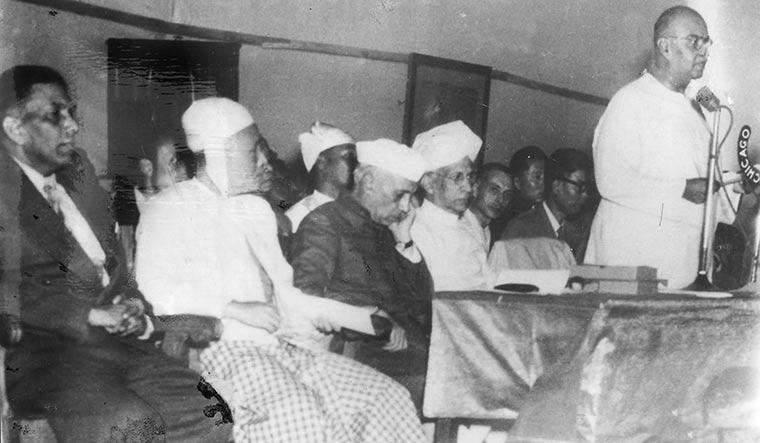
Syama Prasad Mookerjee
Sir, since yesterday we have been discussing the motions of no-confidence under circumstances, which perhaps have no parallel in the deliberations of any Legislature in any part of the civilized world. What happened in Calcutta is without a parallel in modern history. St Bartholomew’s Day of which history records some grim events of murder and butchery pales into insignificance compared to the brutalities that were committed in the streets, lanes and bye-lanes of this first city of British India. We have been discussing, Sir, as to the genesis of these disturbances. Time will not permit me to go through the detailed history and course of events during the last few years.
But let me say this that what has happened is not the result of a sudden explosion, but it is the culmination of an administration, inefficient, corrupt and communal, which has disfigured the life of this great Province. But so far as the immediate cause is concerned, rightly reference has been made by members belonging to the Muslim League and also to the Opposition that we have to look to the resolution that was passed at Bombay at the all-India session of the Council of the Muslim League. Now what happened there? It is said, on behalf of the Muslim League that the Cabinet Mission proved faithless to Muslim interests and thereby created a situation which had no parallel in the history of Anglo-Muslim relationship in this country. What did actually the Cabinet Mission do? The Muslim League, the spoilt and pampered child of the British imperialists for the last thirty years, was disowned for the first time by the British Labour Government…(loud noise from the government benches)…I know it that members when they hear the bitter truth, can hardly repress their feelings. Sir, the fact remains that the old policy of the British Government of no advancement without a Congress-Muslim League agreement was for the first time given up in I946…(loud cries from the government benches)…I have only stated the fact and I do not make any comment on it and still my friends become impatient immediately. Now, the fact remains that the Muslim League was bypassed and the Interim Government has been formed at the Centre. Supposing Mr Jinnah had been asked to form the Interim Government without the Congress, would my friends belonging to the Muslim League have then blamed the government for having betrayed the interests of the Hindu community?
But let me say this that what has happened is not the result of a sudden explosion, but it is the culmination of an administration, inefficient, corrupt and communal, which has disfigured the life of this great Province. But so far as the immediate cause is concerned, rightly reference has been made by members belonging to the Muslim League and also to the Opposition that we have to look to the resolution that was passed at Bombay at the all-India session of the Council of the Muslim League.
Sir, what happened after the Bombay resolution? I have before me a summary of the speeches delivered by distinguished spokesmen on behalf of the Muslim League in every part of India and although it was said that the Direct Action Day itself was not the day for commencing direct action, it was at the same time pointed out that the war had begun, the days of peace and compromise were over and now the jehad … (A member from the Government Benches: Against whom?) War against everyone who did not accept Pakistan. That has been made abundantly clear.
I would ask my friends not to misunderstand me. I am trying to put in brief their point of view as I would ask them also to appreciate our point of view. We are like poles asunder. You say you will plunge the country Pakistan by any means whatsoever. These two points of view are irreconcilable and what I am now telling the House is this that the members speaking on behalf of the Muslim League did not mince matters. Muslim leaders want Civil War. Only a pattern of civil war, according to Mr Jinnah, was witnessed in this very city of Calcutta, but whether civil war will ultimately help Muslims to get Pakistan or not is a matter that remains yet to be seen. It is said that British Imperialists are against the Muslim League. Why talk rot in this way? Who gave you separate electorate and communal award? Who is helping the Sind ministry to remain in power? Is not the Governor a British Governor? Are not the three European members of the Sind Assembly British members of that House? Are they not trying their level best somehow to keep the Muslim League in power and not allow the Congress to go to office although among the Indian members they are in a majority?
Now, Sir, I shall leave this aside. I shall not refer to the detailed speeches which have been delivered by the Muslim League leaders barring one or two illustrative remarks. When Mr Jinnah was confronted at a preconference in Bombay on the 31st July and was asked whether direct action involved violence or non-violence, his cryptic reply was ‘I am not going to discuss ethics’. (The Hon’ble Mr Muhammad Ali: Good.) But Khwajah Nazimuddin was not so good. He came out very bluntly in Bengal and he said that Muslims did not believe in non-violence at all, Muslims knew what direct action meant and there were one hundred and one ways in which this was made clear by responsible League leaders. One said in the Punjab that the zero hour had struck and that the war had begun. All this was followed by a series of articles and statements which appeared in the columns of newspapers— the Morning News, the Star of India, and the Azad. If you read those documents, particularly I would ask my friend Mr Ispahani if he reads those documents, I do not know whether he had learnt Bengali yet, if not, for his benefit a translation can be made of the Bengali article in Azad, he will be able to find out that there was nothing but open and direct incitement to violence. Hatred of Hindus and jehad on the Hindu were declared in highly charged language. That was the background. I am not going to quote the papers, for I have not the time. You have read them and the general Muslim public have acted according to the instructions.
Now, so far as the later events are concerned, what happened on the 16th of August. What were the preparations made? Mr Ispahani says that they were taken unaware. In the Morning News on the 16th there appeared an announcement on behalf of the ‘Pakistan’ Ambulance Corps and there full instructions were given as to how the Ambulance Corps was to act—mind you, Sir, this was done before the troubles started. This ‘Pakistan Ambulance Corps’ was to be utilized in different parts of the city; they were to go out in batches, cars and officers ‘would be available’ and from the 17th morning announcement was to be made every hour as regards the patients who were to be found in the different hospitals of Calcutta. This was announced before any trouble started in Calcutta and Mr Ispahani says there was no preparation. Of course it was sheer bad luck that you allowed this notice, among many kinds of preparations, to be published in the newspapers.
Now, Sir, what happened on the 16th? I shall not refer to the detailed speeches of other members. But I shall certainly hold responsible the Chief Minister of this province who lost his mental balance by saying in Bombay that he was going to declare Bengal to be an independent state. A minister who cannot control his British underling — the Commissioner of Police — is going to make Bengal an independent state! A minister who comes forward and says ‘I am helpless, I could not save the people of the city because the Commissioner of Police would not listen to me’ will declare Bengal an independent state! Now, that was Mr Suhrawardy. He said he was going to carry on a no-rent campaign in this province. He was going to disobey law and order. His speech before the Legislative Council goes to show that he knew fully well that troubles were ahead. If you analyse his speech it will appear that he knew that troubles were brewing and he said he wanted to be as careful as possible.
Now, Sir, what happened on the 16th? I shall not refer to the detailed speeches of other members. But I shall certainly hold responsible the Chief Minister of this province who lost his mental balance by saying in Bombay that he was going to declare Bengal to be an independent state. A minister who cannot control his British underling — the Commissioner of Police — is going to make Bengal an independent state!
I am not raising the question in this debate as to how many Hindus were butchered or how many Muslims were butchered in Bhawanipore, Taltolla, or Watgunge. That is not the issue. The question in issue today is, did government succeed in protecting life and property; not to which community that life and property belonged? Why did government allow so many Muslim lives to be butchered if you look upon Mr Suhrawardy as the great Muslim champion? Why did he allow the entire administration of law and order to collapse in the city? I shall say, Sir, it was a diabolical plan. I say Sir, there was a well-organized plan to make a lightning attack on the city that would take Hindus by surprise, properties were going to be looted and lives were going to be lost. Then Mr Suhrawardy found that he was caught in his own trap when he and others were hit back in their own coin. He could not regain his lost ground and failed to do what his Muslim brethren asked him to do in agony and distress.
I am not raising the question in this debate as to how many Hindus were butchered or how many Muslims were butchered in Bhawanipore, Taltolla, or Watgunge. That is not the issue. The question in issue today is, did government succeed in protecting life and property; not to which community that life and property belonged?
On the 16th, our case is that provocation came from the other side, their case is that provocation came from the Hindu side. That also I am not going to discuss today. Let us leave that for the time being, but let us proceed to the next stage. Mr Suhrawardy said by 12 noon he realized the situation was very bad. Was he not still the Chief Minister of Bengal? What did he do at that time? Why was not the military called out at that time? I have got here a circular issued by the military for the information of its officers and employees in which clear information is given that the military was ready to come out on Friday noon but it was not asked to do so. The civil police failed to protect the life and property as it was expected to do and whenever the military was asked to come out, it came out and it did whatever it could do. But, alas, thousands had been killed meanwhile and crores of rupees looted!
On Friday Mr Suhrawardy knew that trouble had broken out— no matter whether the Hindus were the aggressors or the Muslims were, why did he allow the whole city to be placed at the mercy of goondas, dacoits and murderers? Why did he allow the meeting at all to be held at the maidan in the afternoon over which he presided? He stands charged with the deliberate offence of having played havoc with the life and property of the citizens of this great city, no matter whether they were Hindus or they were Muslims. On Friday night he gave a message to the Associated Press that the condition in the city had improved. Does he remember it? It seems that the Associated Press went to the next day’s newspapers. I would ask my friends to forget for the time being that they belong to the Muslim League. If Mr Suhrawardy says ‘no’, here, Sir, is the statement of Mr H.S. Suhrawardy, Chief Minister of Bengal— I suppose that is the gentleman sitting over there (laughter) interviewed by the Associated Press of India to the effect that the situation was improving. (Uproar) (A voice from the government benches: What paper?) Every newspaper. (Renewed uproar.) I would ask my friends that they must observe the rules of the game and fairplay even in a discussion like this. Why don’t you ask the Chief Minister to explain this?
Mr Speaker, you can certainly look into it. I am not afraid of the truth. Yes, Sir, (Sent the paper to Mr Speaker.) I can produce it to anyone who wants to see it. Now, Sir, Section l44 is supposed to have been promulgated on Friday but was never enforced.
Then on Saturday the curfew order was inaugurated, but neither Section 144 nor the curfew order was enforced. How is it that in spite of Section 144 and the curfew order people were moving about committing loot and plunder, and murder even? How is it that within a stone’s throw, Mr Ispahani has pointed out, from Lalbazar police station shops were looted, people were murdered and all sorts of offences were committed without the Police moving an inch?
Of course, you are responsible. If you have got the guts to say that you are not responsible, let us know that. Now, Sir, that was on the 16th and 17th August. Later on what happened? Mr Suhrawardy knows it very well that he was telling a double-faced lie. On the 23rd he issued a broadcast message, a message of peace for the people of Bengal and within half an hour of that he sent out a special message for the foreign press through foreign correspondents and the things which are mentioned in that document are entirely different from the broadcast message which he issued to the people of Bengal. Can he deny that? (A voice from the Government Benches: That is obvious). He has stated that the Hindus have started the riot. (The Hon’ble Mr H.S. Suhrawardy: Certainly.) He has said that it is the Hindus, who are to blame. He said it was the British Government which was to blame. Say ‘certainly’ (laughter) and lastly, he said that he cannot yet tell what will happen in future if the Interim Government continues in office. Now, Sir, if that is the remark which he wanted to make on that day what was the use of his appealing to the people of Bengal for peace and harmony and saying ‘I have kept an open mind and I would like Hindus and Muslims to work together’. Can history give us a better example of a double-faced minister?
Sir, there are two matters here which may be mentioned. Mr Suhrawardy said that he could not control the Commissioner of Police because he was not under his orders. I shall give you, Sir, one instance out of many which are available from which it will appear how Mr Suhrawardy interfered with the administration of the police offices in a manner which was unworthy of any Home Minister of any Province. In the Park Street police station about seven goondas were taken by a European Inspector on Sunday evening. Sir, that is the remark which Mr Suhrawardy has made namely, ‘I am sorry you are a goonda then.’ I do not know who they are. These persons were found with looted properties. If Mr Suhrawardy says that Muslim gentlemen took away looted properties I shall bow down my head to him, but if he says that I am a goonda then I too can say that he is the best goonda that is available not only in this Province but throughout the world.
(Uproar)
Sir, I shall withdraw it as soon as Mr Suhrawardy withdraws what he has said about me. (Cries of ‘withdraw, withdraw’ from the government benches). Let him withdraw first, what he first has said about me.
Now I withdraw too. Now, Sir, let me pass on. So far as the Park Street incident is concerned, the important point is that goondas or gentlemen whoever they were, seven Muslims who were found in possession of looted properties were brought into Park Street police-station by a European Inspector. Within ten minutes Mr H.S. Suhrawardy appears on the scene. He gets these persons released. It is on record. Let him deny that. (The Hon’ble Mr H.S. Suhrawardy: Yes). (Cries of ‘shame, shame’ from Congress benches.) Then he comes back (Mr H.S. Suhrawardy: Oh! no). This is the way, Sir, in which Mr Suhrawardy has behaved. This is one instance I am giving. (Cries of ‘you have cooked it’ from government benches). No, I have not cooked it. He himself has admitted it.
Then, Sir, the Muslim League party wanted 500 gallons of petrol from the Bengal Government. That was not granted, but petrol coupons were issued in the name of individual ministers — general coupons — 100 gallons being issued in the name of the Chief Minister. Evidence is available that these coupons were used by lorries moving in the streets of Calcutta on those fateful days. That is how arrangements were being made under the very nose of the Home Department over which Mr Suhrawardy was presiding. Can Mr Suhrawardy deny that he himself went to Howrah accompanied by some Muslim League leaders, met local officers in authority there, and had chastized and taken them to task because Muslims were not protected there? Can he deny that? Did Mr Suhrawardy give in any place or at any time the same sort of protection to the suffering Hindus. (The Hon’ble Mr H.S. Suhrawardy: Certainly). Now, Sir, it is quite clear that at least I have said some home truths which have made my friends opposite angry and impatient.
Sir, they, these ministers, have taken oath of allegiance to the British Crown and they are responsible for the life and property of all alike. My friend, Mr Muhammad Ali, admitted this very candidly when the adjournment motion was not allowed to be taken up in this House. Mr Suhrawardy is a great Muslim League leader and he owes his allegiance to the Muslim League. The Muslim League rightly or wrongly ordered that if something does not happen to its liking, it was going to resort to direct action. One cannot serve two masters. Sir, it has been proved beyond doubt that Mr Suhrawardy and his other Ministers are unable to administer the affairs of this Province impartially and efficiently. They have failed hopelessly and wretchedly and on that ground alone they are not fit to occupy offices for a single moment (Interruptions).
Sir, it is not in Calcutta alone that atrocities were committed in a large scale, but we find that troubles are spreading now in the whole of Bengal. The information which is coming from different parts of Bengal would make one shudder to think as to what will happen to this province. These gentlemen, the ministers over there, should not remain in charge of the affairs of this province even a day longer.
Sir, it is not in Calcutta alone that atrocities were committed in a large scale, but we find that troubles are spreading now in the whole of Bengal. The information which is coming from different parts of Bengal would make one shudder to think as to what will happen to this province. These gentlemen, the ministers over there, should not remain in charge of the affairs of this province even a day longer. (Interruptions) If they remain in office the future would be darker still. (Interruptions) The Council of Action of the All-India Muslim League has ordered that preparations have to be made for giving effect to the Direct Action Program. Already Muslim League leaders from the Punjab, North-West Frontier Province and also Sind have openly declared that they are ready with their scheme which can be put into operation at 24 hours’ notice. Am I to believe that the Muslim League in Bengal which is a stronghold of Mr Jinnah’s Muslim League is not similarly prepared to give effect to the order of the Muslim League when the occasion demands it? In other words, my charge is that the present Ministry is utilizing the government machinery for the purpose of launching upon a Direct Action scheme. (The Hon’ble Mr H.S. Suhrawardy: No). Mr Suhrawardy is playing a dual role and this dual role of Mr Suhrawardy and those who are supporting him has got to be exposed and brought to an end in the interest of peace and tranquility.
Why does not the Chief Minister get the reports of the Commissioner of Police through the Criminal Investigation Department as regards some meetings which took place in the city? Mr Suhrawardy has perhaps got the proceedings confidentially of the meetings which were held in the cities where League leaders were invited to attend for the purpose of preparing scheme for direct action. If he has got any report about what happened on the 16th, he will find that even when the Calcutta maidan meeting was being held, over which Mr Suhrawardy presided, disturbances had broken out in several places. Now what happened in that meeting? Was there then any CID officer present taking down notes? Where are those notes?
Sir, it was an astonishing fact that a gun shop within 2 minutes walk from the Government House had been looted. Not a single policeman turned up in the streets to control the situation in any part of the city. It will not help merely making the Commissioner of Police a scapegoat, it is suggested that the city had been ablaze in so many places that the Commissioner of Police did not know how to act. But surely Mr Suhrawardy knew how and when to act. (The Hon’ble Mr H.S. Suhrawardy: Yes, yes). Mr Suhrawardy says that he knew and we also know when he acted. If he had failed without making any effort, then he is charged with criminal negligence and if he failed in spite of efforts, he is certainly inefficient and worthless, and he should not be kept in that position any longer. There is no place for him in the ministry.
Sir, there is one point which I would like to say with regard to the Britishers in this House. My friends are remaining neutral. I cannot understand this attitude at all. In a situation such as this they must decide if the ministry was right or the ministry was wrong. If the ministry was right, support them and if the ministry was wrong, you should say so boldly and not remain neutral merely sitting on the fence which shows signs of abject impotence (Laughter).
If a single Britisher, man or woman or a child, had been strong enough they would have thrown this ministry out of office without hesitation, but because no Britisher was touched so they can take an impartial and neutral view! Are they so sure they will be left untouched next time? There is no question of partiality or impartiality here. The present administration has failed and it must come to an end. Anyone who remains neutral is an aider and abettor.
My friend, Mr Gladding, said that luckily none of his people were injured. It is true, Sir, but that is a statement which makes me extremely sorry. If a single Britisher, man or woman or a child, had been strong enough they would have thrown this ministry out of office without hesitation, but because no Britisher was touched so they can take an impartial and neutral view! Are they so sure they will be left untouched next time? There is no question of partiality or impartiality here. The present administration has failed and it must come to an end. Anyone who remains neutral is an aider and abettor.
I would ask my friends, what about the future. Pakistan will not be accepted under any circumstance. (Mr Fazlur Rahman: It will be accepted). Mr Suhrawardy said in Bombay after the 16th of August, ‘When a nation fights against another nation I cannot guarantee civilized conduct.’ If you are a nation fighting against us, another nation, if that is the attitude of my friends on the other side, then they cannot remain in office any longer. (Cries of ‘Hear, hear’ from the Opposition Benches). Mr Suhrawardy must realize that his office is meant for the good of the entire people of Bengal irrespective of caste, creed and religion, and not for his own so-called ‘nation’. I would say, Sir, that is an abject treachery to the great responsibility that rests on Mr Suhrawardy, as Premier (Interruptions).
Apparently I said many good things, otherwise my friends would not be so jubilant. The Chief Minister was dancing the other day on the polished floor of a Delhi Hotel and I have made my friends dance on the floor of this House. I will now say a few words in connection with the future. What about the future? My friends, the Muslims, say that they constitute 25 percent of India’s population, and that is so big a minority that they will never agree to live under 75 percent Hindu domination. Now if that is their honest and genuine point of view how can they expect that 45 percent of the Hindu population of this Province will ever agree to live under a Constitution where that particular nation represented by Muslims, constituting only of 55 percent, will alone dominate? (The Hon’ble Mr Shamsuddin Ahmed: That is how the trouble began). I will not today enter into controversies as regards the real population of Bengal. I claim it that if a proper census is taken even today the Hindus will not be in a minority but that question cannot be settled by argument from one side or the other. My Muslim friends who are well-organized under the banner of the Muslim League have got to realize that if Bengal is to be ruled peacefully it can be done only with the willing cooperation of the two communities. I am not talking of all India politics for the time being. (The Hon’ble Mr Shamsuddin Ahmed: Why not? What has happened to all India politics?) I would make this appeal to my friends that a choice has to be made by the Hindus and the Muslims together. There is no way out of it because what we witnessed in Calcutta was not an ordinary communal riot: its motive was political, but things may become even far more serious and drastic in the days, weeks and months to come. Now, if the Muslims of Bengal under the leadership of the Muslim League feel that they can exterminate the Hindus, that is a fantastic idea which can never be given effect to: three and a half crores can never exterminate three crores nor can three crores exterminate three and a half crores.
Sir, if it is said that civil war will break out throughout India, will that help anyone, will that help, in particular, 25 percent. Muslims throughout India as against 75 percent of Hindus and other non-Muslims. It is not a question of threat at all; it is a question of facing a stern reality. Either we have to fight or we have to come to some settlement. The settlement cannot be reached so long as you say that one community will dominate over the other, but it can only be reached by a plan which will enable the vast majority of Hindus and Muslims to live under circumstances which will give freedom and peace to the common man.
Now, Sir, if it is said that civil war will break out throughout India, will that help anyone, will that help, in particular, 25 percent. Muslims throughout India as against 75 percent of Hindus and other non-Muslims. It is not a question of threat at all; it is a question of facing a stern reality. Either we have to fight or we have to come to some settlement. The settlement cannot be reached so long as you say that one community will dominate over the other, but it can only be reached by a plan which will enable the vast majority of Hindus and Muslims to live under circumstances which will give freedom and peace to the common man. After all, forget not who suffered most during the Calcutta Killing. It as mainly the poorer people, both amongst the Hindus and the Muslims. Ninety percent of them were poor and innocent and if the leaders lose their heads and go creating a situation which they cannot ultimately control, the time will soon come when the common man will turn round and crush the leaders instead of being themselves crushed. It is therefore vitally necessary that this false and foolish idea of Pakistan or Islamic rule has to be banished for ever from your head. In Bengal we have got to live together. We say as a condition precedent this ministry must go. Only then can we create a state of affairs which will make it possible to build a future Bengal which will be for the good of all, irrespective of any caste, creed, or community.
Opening address to the Constituent Assembly of Pakistan (Karachi, August 1947)
MUHAMMAD ALI JINNAH
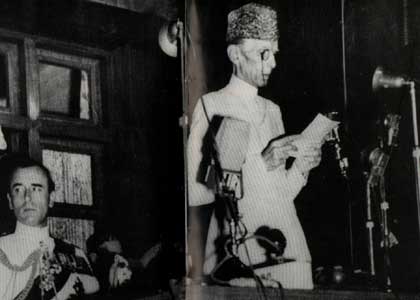
Jinnah speaking at the Constituent Assembly of Pakistan on 14 August 1947
Mr President, Ladies and Gentlemen!
I cordially thank you, with the utmost sincerity, for the honor you have conferred upon me — the greatest honour that is possible for this Sovereign Assembly to confer — by electing me as your first President. I also thank those leaders who have spoken in appreciation of my services and their personal references to me. I sincerely hope that with your support and your cooperation we shall make this Constituent Assembly an example to the world. The Constituent Assembly has got two main functions to perform. The first is the very onerous and responsible task of framing our future Constitution of Pakistan and the second is functioning as a full and complete sovereign body as the Federal Legislature of Pakistan. We have to do the best we can in adopting a provisional constitution for the Federal Legislature of Pakistan. You know really that not only we ourselves are wondering but, I think, the whole world is wondering at this unprecedented cyclonic revolution which has brought about the plan of creating and establishing two independent sovereign dominions in this subcontinent. As it is, it has been unprecedented; there is no parallel in the history of the world. This mighty subcontinent with all kinds of inhabitants has been brought under a plan which is titanic, unknown, unparalleled. And what is very important with regard to it is that we have achieved it peacefully and by means of an evolution of the greatest possible character.
Dealing with our first function in this Assembly, I cannot make any well considered pronouncement at this moment, but I shall say a few things as they occur to me. The first and the foremost thing that I would like to emphasize is this: Remember that you are now a sovereign legislative body and you have got all the powers. It, therefore, places on you the gravest responsibility as to how you should take your decisions. The first observation that I would like to make is this: You will no doubt agree with me that the first duty of a government is to maintain law and order, so that the life, property and religious beliefs of its subjects are fully protected by the state.
Remember that you are now a sovereign legislative body and you have got all the powers. It, therefore, places on you the gravest responsibility as to how you should take your decisions. The first observation that I would like to make is this: You will no doubt agree with me that the first duty of a government is to maintain law and order, so that the life, property and religious beliefs of its subjects are fully protected by the state.
The second thing that occurs to me is this: One of the biggest curses from which India is suffering — I do not say that other countries are free from it, but, I think, our condition is much worse — is bribery and corruption. That really is a poison. We must put that down with an iron hand and I hope that you will take adequate measures as soon as it is possible for this Assembly to do so.
Black-marketing is another curse. Well, I know that black-marketeers are frequently caught and punished. Judicial sentences are passed or sometimes fines only are imposed. Now you have to tackle this monster which today is a colossal crime against society, in our distressed conditions, when we constantly face shortage of food and other essential commodities of life. A citizen who does black-marketing commits, I think, a greater crime than the biggest and most grievous of crimes. These black-marketeers are really knowing, intelligent and ordinarily responsible people, and when they indulge in black-marketing, I think they ought to be very severely punished, because they undermine the entire system of control and regulation of foodstuffs and essential commodities, and cause wholesale starvation and want and even death.
The next thing that strikes me is this: Here again it is a legacy which has been passed on to us. Alongwith many other things, good and bad, has arrived this great evil—the evil of nepotism and jobbery. This evil must be crushed relentlessly. I want to make it quite clear that I shall never tolerate any kind of jobbery, nepotism or any influence directly or indirectly brought to bear upon me. Whenever I will find that such a practice is in vogue or is continuing anywhere, low or high, I shall certainly not countenance it.
Now, if we want to make this great State of Pakistan happy and prosperous we should wholly and solely concentrate on the well-being of the people, and especially of the masses and the poor. If you will work in cooperation, forgetting the past, burying the hatchet, you are bound to succeed. If you change your past and work together in a spirit that every one of you, no matter to what community he belongs, no matter what relations he had with you in the past, no matter what is his colour, caste or creed, is first, second and last a citizen of this state with equal rights, privileges and obligations, there will be no end to the progress you will make.
I know there are people who do not quite agree with the division of India and the partition of the Punjab and Bengal. Much has been said against it, but now that it has been accepted, it is the duty of every one of us to loyally abide by it and honourably act according to the agreement which is now final and binding on all. But you must remember, as I have said, that this mighty revolution that has taken place is unprecedented. One can quite understand the feeling that exists between the two communities wherever one community is in majority and the other is in minority. But the question is, whether it was possible or practicable to act otherwise than what has been done. A division had to take place. On both sides, in Hindustan and Pakistan, there are sections of people who may not agree with it, who may not like it, but in my judgment there was no other solution and I am sure future history will record its verdict in favour of it. And what is more, it will be proved by actual experience as we go on that it was the only solution of India’s constitutional problem. Any idea of a united India could never have worked and in my judgment it would have led us to terrific disaster. May be that view is correct; may be it is not; that remains to be seen. All the same, in this division it was impossible to avoid the question of minorities being in one dominion or the other. Now that was unavoidable. There is no other solution. Now what shall we do? Now, if we want to make this great State of Pakistan happy and prosperous we should wholly and solely concentrate on the well-being of the people, and especially of the masses and the poor. If you will work in cooperation, forgetting the past, burying the hatchet, you are bound to succeed. If you change your past and work together in a spirit that every one of you, no matter to what community he belongs, no matter what relations he had with you in the past, no matter what is his colour, caste or creed, is first, second and last a citizen of this state with equal rights, privileges and obligations, there will be no end to the progress you will make.
I cannot emphasize it too much. We should begin to work in that spirit and in course of time all these angularities of the majority and minority communities, the Hindu community and the Muslim community—because even as regards Muslims you have Pathans, Punjabis, Shias, Sunnis, and so on and among the Hindus you have Brahmins, Vaishnavas, Khatris, also Bengalees, Madrasis, and so on—will vanish. Indeed if you ask me this has been the biggest hindrance in the way of India to attain the freedom and independence and but for this we would have been free peoples long, long ago. No power can hold another nation, and specially a nation of 400 million souls in subjection; nobody could have conquered you, and even if it had happened, nobody could have continued its hold on you for any length of time but for this. Therefore, we must learn a lesson from this. You are free; you are free to go to your temples, you are free to go to your mosques or to any other place of worship in this State of Pakistan. You may belong to any religion or caste or creed—that has nothing to do with the business of the state. As you know, history shows that in England, conditions some time ago, were much worse than those prevailing in India today. The Roman Catholics and the Protestants persecuted each other. Even now there are some states in existence where there are discriminations made and bars imposed against a particular class. Thank God, we are not starting in those days. We are starting in the days when there is no discrimination, no distinction between one community and another, no discrimination between one caste or creed and another. We are starting with this fundamental principle that we are all citizens and equal citizens of one state. The people of England in course of time had to face the realities of the situation and had to discharge the responsibilities and burdens placed upon them by the government of their country and they went through that fire step by step. Today, you might say with justice that Roman Catholics and Protestants do not exist; what exists now is that every man is a citizen, an equal citizen of Great Britain and they are all members of the Nation.
Now, I think we should keep that in front of us as our ideal and you will find that in course of time Hindus would cease to be Hindus and Muslims would cease to be Muslims, not in the religious sense, because that is the personal faith of each individual, but in the political sense as citizens of the state. Well, gentlemen, I do not wish to take up any more of your time and thank you again for the honour you have done to me. I shall always be guided by the principles of justice and fairplay without any, as is put in the political language, prejudice or ill-will, in other words, partiality or favouritism. My guiding principle will be justice and complete impartiality, and I am sure that with your support and cooperation, I can look forward to Pakistan becoming one of the greatest nations of the world.
Now, I think we should keep that in front of us as our ideal and you will find that in course of time Hindus would cease to be Hindus and Muslims would cease to be Muslims, not in the religious sense, because that is the personal faith of each individual, but in the political sense as citizens of the state.
I have received a message from the United States of America addressed to me. It reads:
I have the honour to communicate to you, in Your Excellency’s capacity as President of the Constituent Assembly of Pakistan, the following message which I have just received from the Secretary of State of the United States:
On the occasion of the first meeting of the Constituent Assembly for Pakistan, I extend to you and to the members of the Assembly, the best wishes of the Government and the people of the United States for the successful conclusion of the great work you are about to undertake.
Jama Masjid Speech (Delhi, 1947)
MAULANA ABUL KALAM AZAD
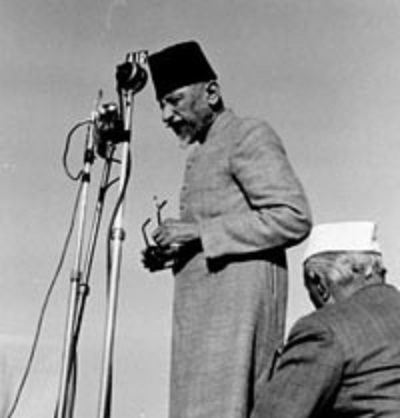
Maulana Abul Kalam Azad
My brethren,
You know what has brought me here today. This congregation at Shahjahan’s historic mosque is not an unfamiliar sight for me. Here, I have addressed you on several previous occasions. Since then we have seen many ups and downs. At that time, instead of weariness, your faces reflected serenity, and your hearts, instead of misgivings, exuded confidence. The uneasiness on your faces and the desolation in your hearts that I see today, reminds me of the events of the past few years.
Do you remember? I hailed you, you cut off my tongue; I picked my pen, you severed my hand; I wanted to move forward, you broke off my legs; I tried to run, and you injured my back. When the bitter political games of the last seven years were at their peak, I tried to wake you up at every danger signal. You not only ignored my call but revived all the past traditions of neglect and denial. As a result the same perils surround you today, whose onset had previously diverted you from the righteous path.
Today, mine is no more than an inert existence or a forlorn cry; I am an orphan in my own motherland. This does not mean that I feel trapped in the original choice that had made for myself, nor do I feel that there is no room left for my ashiana (nest). What it means is that my cloak is weary of your impudent grabbing hands. My sensitivities are injured, my heart is heavy. Think for one moment. What course did you adopt? Where have you reached, and where do you stand now? Haven’t your senses become torpid? Aren’t you living in a constant state of fear? This fear is your own creation, a fruit of your own deeds.
Today, mine is no more than an inert existence or a forlorn cry; I am an orphan in my own motherland. This does not mean that I feel trapped in the original choice that had made for myself, nor do I feel that there is no room left for my ashiana (nest). What it means is that my cloak is weary of your impudent grabbing hands. My sensitivities are injured, my heart is heavy.
It was not long ago when I warned you that the two-nation theory was death-knell to a meaningful, dignified life; forsake it. I told you that the pillars upon which you were leaning would inevitably crumble. To all this you turned a deaf ear. You did not realize that, my brothers! I have always attempted to keep politics apart from personalities, thus avoiding those thorny valleys. That is why some of my messages are often couched in allusions. The Partition of India was a fundamental mistake. The manner in which religious differences were incited, inevitably, led to the devastation that we have seen with our own eyes. Unfortunately, we are still seeing it at some places.
There is no use recounting the events of the past seven years, nor will it serve any good. Yet, it must be stated that the debacle of Indian Muslims is the result of the colossal blunders committed by the Muslim League’s misguided leadership. These consequences however, were no surprise to me; I had anticipated them from the very start.
Now that Indian politics has taken a new direction, there is no place in it for the Muslim League. Now the question is whether or not we are capable of constructive thinking. For this, I have invited the Muslim leaders of India to Delhi, during the second week of November.
The gloom cast upon your lives is momentary; I assure you we can be beaten by none save our own selves! I have always said, and I repeat it again today; eschew your indecisiveness, your mistrust, and stop your misdeeds. This unique triple-edged weapon is more lethal than the two-edged iron sword which inflicts fatal wounds, which I have heard of.
The gloom cast upon your lives is momentary; I assure you we can be beaten by none save our own selves! I have always said, and I repeat it again today; eschew your indecisiveness, your mistrust, and stop your misdeeds. This unique triple-edged weapon is more lethal than the two-edged iron sword which inflicts fatal wounds, which I have heard of.
Just think about the life of escapism that you have opted for, in the sacred name of Hejrat. Get into the habit of exercising your own brains, and strengthening your own hearts. If you do so, only then will you realize how immature your decisions were.
Where are you going and why? Raise your eyes. The minarets of Jama Masjid want to ask you a question. Where have you lost the glorious pages from your chronicles? Wasn’t it only yesterday that on the banks of the Jamuna, your caravans performed wazu? Today, you are afraid of living here. Remember, Delhi has been nurtured with your blood. Brothers, create a basic change in yourselves. Today, your fear is misplaced as your jubilation was yesterday.
The words coward and frenzy cannot be spoken in the same breath as the word Muslim. A true Muslim can be swayed neither by avarice nor apprehension. Don’t get scared because a few faces have disappeared. The only reason they had herded you in a single fold was to facilitate their own flight. Today, if they have jerked their hand free from yours, what does it matter? Make sure that they have not run away with your hearts. If your hearts are still in the right place, make them the abode of God. Some thirteen hundred years ago, through an Arab ummi, God proclaimed, “Those who place their faith in God and are firm in their belief, no fear for them nor any sorrow.” Winds blow in and blow out: tempests may gather but all this is short-lived. The period of trial is about to end. Change yourselves as if you had never been in such an abject condition.
I am not used to altercation. Faced with your general indifference, however, I will repeat that the third force has departed, and along with it, its trappings of vanity. Whatever had to happen has happened. If your hearts have still not changed and your minds still have reservations, it is a different matter. But, if you want a change, then take your cue from history, and cast yourself in the new mould. Having completed a revolutionary phase, there still remains a few blank pages in the history of India. You can make ourselves worthy of filling those pages, provided you are willing.
Brothers, keep up with the changes. Don’t say, “We are not ready for the change.” Get ready. Stars may have plummeted down but the sun is still shining. Borrow a few of its rays and sprinkle them in the dark caverns of your lives.
Brothers, keep up with the changes. Don’t say, “We are not ready for the change.” Get ready. Stars may have plummeted down but the sun is still shining. Borrow a few of its rays and sprinkle them in the dark caverns of your lives.
I do not ask you to seek certificates from the new echelons of power. I do not want you to lead a life of sycophancy as you did during the foreign rule. I want you to remind you that these bright etchings which you see all around you, are relics of processions of your forefathers. Do not forget them. Do not forsake them. Live like their worthy inheritors, and, rest assured, that if you do not wish to flee from this scene, nobody can make you flee. Come, today let us pledge that this country is ours, we belong to it and any fundamental decisions about its destiny will remain incomplete without our consent.
Today, you fear the earth’s tremors; once you were virtually the earthquake itself. Today, you fear the darkness; once your existence was the epicenter of radiance. Clouds have poured dirty waters and you have hitched up your trousers. Those were none but your forefathers who not only plunged headlong into the seas, but trampled the mountains, laughed at the bolts of lightning, turned away the tornadoes, challenged the tempests and made them alter their course. It is a sure sign of a dying faith that those who had once grabbed the collars of emperors, are today clutching their own throats. They have become oblivious of the existence of God as if they had never believed in Him.
Brothers, I do not have a new prescription for you. I have the same old prescription that was revealed to the greatest benefactor of mankind, the prescription of the Holy Quran: “Do not fear and do not grieve. If you possess true faith, you will gain the upper hand.”
Brothers, I do not have a new prescription for you. I have the same old prescription that was revealed to the greatest benefactor of mankind, the prescription of the Holy Quran: “Do not fear and do not grieve. If you possess true faith, you will gain the upper hand.”
The congregation is now at an end. What I had to say, I have said, briefly. Let me say once again, keep a grip on your senses. Learn to create your own surroundings, your own world. This is not a commodity that I can buy for you from the market-place. This can be bought only from the market-place of the heart, provided you can pay for it with the currency of good deeds.
May God’s grace be on you!
ARCHIVE
Instrument of Execution
“Before sunset, there is at times a mellow glow,” wrote Narendra, Raja of Sarila, wistfully. “Princely India in the 1930s and 1940s was bathed in such radiance …” The Princes of India were a fascinating study in eccentricity. They were hedonistic, imperious and flamboyant. Some ruled States the size of Germany, others lorded it over tiny specks the size of pocket-handkerchiefs. The last decade of the Raj was halcyon in their memories. Nearly every ruler remembers armies of retainers, solid gold plates at dinner, chukkas of polo, jewels by Cartier and coffers overflowing with diamonds, rubies, emeralds and gold. They had been, for the most part, willing vassals of the British.
However, one step out of line and a swift reprimand followed. Their choice of their heir was vetted. Going abroad was out of the question unless they applied—humiliatingly—for permission from the Viceroy. And yet, they positively delighted in their vassalage. The British had been quick to cotton on to the fact that many of these rulers were essentially overgrown children at heart. Foolish sops—such as elaborate coats of arms—were given to each royal house.
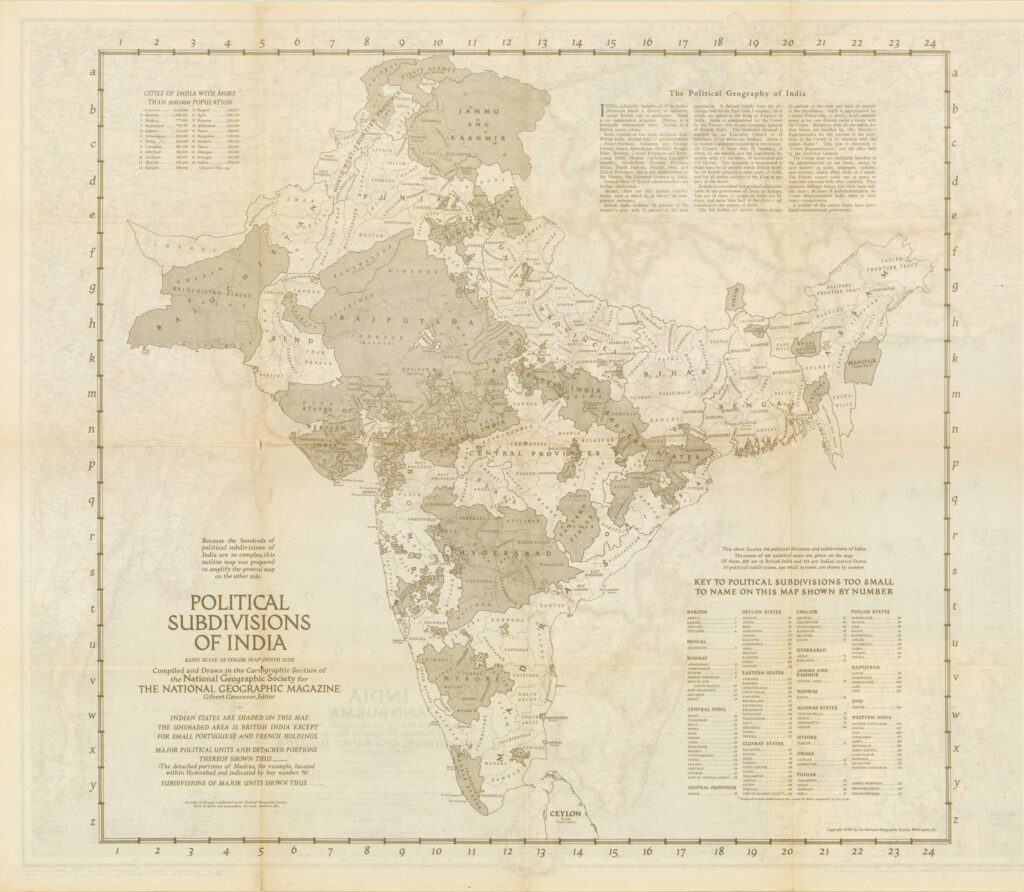
Political Subdivisions of India, 1946
Honorifics for good behaviour were doled out. Some were given the title of “Highness”, others were not. The Nizam of Hyderabad was rewarded for his financial generosity in coming to Britain’s aid with the highest honour of all. He was elevated from a mere “Highness” to “His Exalted Highness” and alone among the princes, his heir was given the independent title of Prince of Berar. Gun salutes were awarded according to the rank of princes—a stipulation that made grown men squabble like cats and dogs over who was of higher status. The rulers willingly accepted servitude in return. By the 1920s and 1930s, they had little other than their own pleasures to occupy them. And they took their pleasures very seriously indeed. A few—Baroda, Udaipur, Bikaner, Patiala and Bhopal—had some kind of vision for their States. Most had no vision at all. “He is a poor sort of moon-calf but quite biddable,” was an approving description of the Maharaja of Manipur. Obeying the Raj’s bidding was more than enough qualification, whether the prince was a fool, a knave or worse. “Some of them run their States very well and maintain a good level of administration but generally speaking, few men can overcome the handicaps to character of almost unlimited wealth, leisure and power,” commented Lord Wavell.
By the late 1940s, there was not a prince who did not own a Savile Row suit (or fifty) or a Rolls-Royce (or forty). Hedonists and morally corrupt though many were, they believed equally in leading their people on spiritual pilgrimages and in the signs foretold by the stars. Some of them, like Maharaja Vibhuti Narayan Singh of Benares, were deeply religious. When he visited the Nawab of Rampur, he insisted that the first object that met his gaze in the morning should be a cow. This put the Nawab—whose guest apartments were all on the first floor—in a quandary. The matter was resolved by borrowing a crane from a nearby sugar factory. Every morning, an astonished cow was hoisted up to the windows of the Maharaja’s suite, there to dangle until His Highness chose to wake up and settle his royal gaze upon the hapless cow. By the end of the Raj’s time in India, the princes had become a strange hybrid, superficially Western but essentially Eastern, both devoted to the Crown [the Maharajah of Dholpur took his devotion to an extreme, earning King George VI’s displeasure when he sent a message of congratulations to the former King, Edward VIII, on his marriage to Mrs Simpson. In his naivete, the Maharajah had forgotten Edward VIII had been forced to abdicate for having married a twice-divorced woman of ill-repute]. Whatever their shortcomings, the princes technically ruled over powerful swathes of land. At its peak, it spread over an acreage of half-a-million square miles. It was home to nearly a quarter of India’s 300 million population. Little wonder that V.P. Menon and Sardar Patel desired as many States as possible to join the Indian Union in 1947. However, the States Ministry did not have the faith and trust that the Raj assumed as a matter of right. It would have to be earned.
Whatever their shortcomings, the princes technically ruled over powerful swathes of land. At its peak, it spread over an acreage of half-a-million square miles. It was home to nearly a quarter of India’s 300 million population. Little wonder that V.P. Menon and Sardar Patel desired as many States as possible to join the Indian Union in 1947. However, the States Ministry did not have the faith and trust that the Raj assumed as a matter of right. It would have to be earned.
The story of the earning of that trust [and its subsequent betrayal by Nehru’s daughter, Indira Gandhi] is a convoluted one. There are several long-standing charges that V.P. Menon and Sardar Patel broke their promises to the Indian princes as embodied in the Instrument of Accession, which was drawn up and circulated that summer. They are accused of blackmail, coercion or its implied use, in compelling the more reluctant princes to accede to India. They are said to have known, long before they sat down to talk terms with Indian rulers, that this was all a charade. These are charges that have been levied by disgruntled princely loyalists: Corfield, Sir Arthur Lothian and Sir Edward Wakefield, as well as by disillusioned rulers and their consorts. Vijaya Raje Scindia, the Rajmata of Gwalior, gave VP the starring role in—what she called—“finishing off” the princely states. It is perfectly true that VP and Patel were not above—when neither their powers of persuasion or offers of empty honours worked—engaging in a judicious mix of arm-twisting and veiled threats. But they did not set out to betray the princes. Nor is there the slightest evidence to prove these charges.
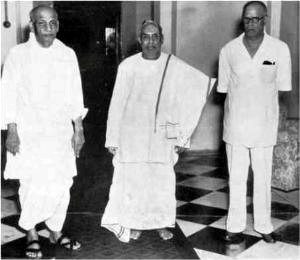
Sardar and Menon with Maharaja of Kochin
The Instrument of Accession was drawn up as a stopgap (and it might be remembered that VP’s official chapter on this in The Story of the Integration of the Indian States is titled “Stopping the Gap”) measure to ensure that some kind of orderly transition took place. Given the bloodcurdling events that were to follow independence and Partition, it is hardly likely that either Patel or VP hatched a long-term plot to hoodwink the princes. The fact was that the princes had been deeply suspicious since the Cabinet Mission’s botched attempts to safeguard their future. Since 1946, controversy had been raging over the meaning of sovereignty—apparently, the Diwans and their rulers understood it differently from India’s political leadership. In December 1946, N. Gopalaswamy Ayyangar and Jawaharlal Nehru both declared publicly that sovereignty within the States rested with the people, not with the rulers. This was, of course, a wholly tactless assertion. These were rulers who had, for centuries, claimed to trace their descent back to the Gods, and yet others to the sun and the moon. Over time, the rulers had come to almost believe this preposterous claim. Very few of them were ready to admit that their power came from a more earthly source: their subjects. Sir C.P. Ramaswami Aiyar, the brilliant, calculating Dewan of Travancore, for one, was incensed. “It is historically untrue to say that in Travancore, the sovereignty resides anywhere else than in the Ruler,” he declared sanctimoniously. “It was conquered and consolidated by a long line of rulers and the State was dedicated to the tutelary deity of the Monarch, as whose representative the Maharaja reigns.” From there, it was but a skip to refusing to join the Indian Union. “It is my painful but inescapable duty to declare that if the Constituent Assembly deliberately takes the line suggested in Sir N. Gopalaswamy Ayyangar’s speech as reported, my States, including Travancore … may find themselves unable to do so (cooperate with the Constituent Assembly). Deadlock was reached with an editorial in Hindustan Times, which warned ominously that the States would do well to be a little sensible. “If, through short-sightedness, any ruler should refuse to accept and prefer to stand outside the constitution, he will be reducing himself to the state of a feudatory to the Indian Republic … The States cannot be independent in any real sense. It is for them to choose whether they will be equal and honoured partners of the Indian Republic, or its subordinates.” Before VP was brought into the States Ministry, it was Ayyangar who led many of the initial discussions with princes across India.
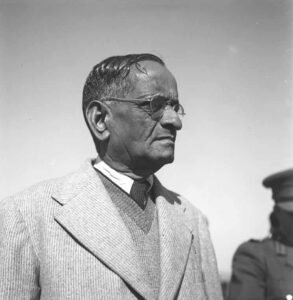
Gopalaswamy Ayyangar
The figure of Sir N. Gopalaswami Ayyangar has been allowed to lapse somewhat into shadow. Born on 31 March, 1882, in the Tanjore district of the Madras Presidency, Ayyangar was appointed Prime Minister of Jammu and Kashmir in 1937, a post which he would occupy until 1943. Ayyangar would go on to be elected to the Constituent Assembly of India, and then to the thirteen-member Drafting Committee that formulated the Indian Constitution. His was the hand that drafted Article 370, which continues to haunt India to this day. He would lead the delegation that represented India in the United Nations over the Kashmir dispute in 1948 and again in 1952. His private papers reveal a fine legal mind, a gently persuasive charm and disarming forthrightness in his dealings with Kashmir, India’s status in the Commonwealth and with crotchety Diwans across the country. VP and Sardar may have been at the forefront of shaping a cohesive Indian Union, but Gopalaswami Ayyangar was a vital man behind the scenes, in the early days of talks with the Indian States. These were the months before Attlee’s dramatic declaration of 20th February, and in the last days of Wavell’s Viceroyalty. From December 1946 to March 1947, it is Ayyangar’s voice that is important. To give his role context, it must be remembered that V.P. Menon—having reinvented himself at this stage as Sardar Patel’s unofficial personal aide—was destined to be somewhat eclipsed for a short period of time. He would only come back into the spotlight later that summer. Ayyangar was not yet close to VP, though that equation would reverse itself radically once VP involved himself more closely with the integration of the States. It would be on his legal expertise that VP would quite often later rely.
VP and Sardar may have been at the forefront of shaping a cohesive Indian Union, but Gopalaswami Ayyangar was a vital man behind the scenes, in the early days of talks with the Indian States. These were the months before Attlee’s dramatic declaration of 20th February, and in the last days of Wavell’s Viceroyalty. From December 1946 to March 1947, it is Ayyangar’s voice that is important.
Ayyangar was present at a dinner at Bikaner House on 30 January 1947, attended by Nehru and by representatives of nearly every major princely house from Baroda to Udaipur to Gwalior. The discussions, which lasted well into the night, were frank and open. Every prince present referred, either obliquely or directly, to their suspicions about their future and the intentions of the Indian Union. Nehru was pleasant, recorded Ayyangar, and very cordial. He assured the princes that it was all in their minds, and that nothing dangerous was likely to happen, and that the Centre had no intentions of intervening in internal affairs.
The talks were amicable, and attempts to build bridges with the other States continued throughout February and March. Attended by rulers and representatives of states ranging from Bhopal to Travancore, from Dungarpur to Nawanagar and from Bilaspur to Bikaner and Kashmir, meetings were held with Patel, Nehru, Azad and Ayyangar in attendance. They were crammed with legalese, and often rambled beyond the agendas that were set for each particular day. The princes were deeply worried about boundary issues, about territorial encroachment in the event of grouping, in the allocation of seats for the Constituent Assembly and over questions of sovereignty.
The proceedings were volatile, though markedly polite. Nehru tried his best to diffuse the situation on multiple occasions. It did not always work: a discussion on allocation of seats between Sir C.P. and himself ended in an exchange of words that stopped short of an argument, with Nehru insisting he was free to say that he thought the States were obsolete in modern India. Incensed, Sir C.P. retorted that by that yardstick, he was free to say that he thought some political parties in India were “totalitarian.” Sardar Patel, who had no patience for Nehru’s verbal gymnastics, rarely spoke. When he did, it was to issue a thinly veiled warning. India would have no intentions of forcing anyone to join her, he said, adding enigmatically, “Events may force them.” At another meeting, this time on 9 February, Patel told the outraged Nawab of Bhopal, “To the extent to which you hand over your burdens, there will be no desire to take over your burdens.” The upshot of this was that by early March, when the last meetings of the States Negotiating Committees were held, the princes were split sharply down the middle. Some of the bigger houses—led by Bikaner and Patiala—thought it was better to be safe than sorry and decided to go ahead and join the Constituent Assembly. Others were unconvinced. Bhopal was growing warier by the day of India’s intentions and when Nehru refused to agree that the Constituent Assembly would ratify the understanding of the States Negotiating Committees before any State decided to join, it was the last straw. Hamidullah Khan resigned his post that day, on 18 April 1947.
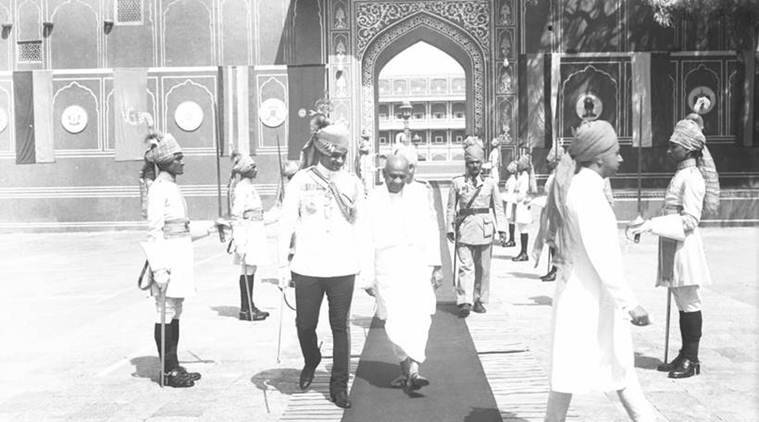
Sardar Patel with the Maharaja of Jaipur
Although a number of States acceded to the Constituent Assembly by the end of April, Sardar Patel was far from satisfied. He had not liked what he had seen or heard of the princes, but he decided, with his usual cool pragmatism, that he should start gently. In the first weeks of May 1947, while plans for the transfer of power were being thrashed out, a flurry of royal personages arrived at 1, Aurangzeb Road. There was lunch with the Maharaja of Jodhpur on 6 May; the Jam Sahib of Nawanagar arrived for lunch with his wife on 11 May, followed on 16 May by the Maharaja of Patiala. Patel’s wooing the Jam Sahib was, as Rajmohan Gandhi has pointed out, shrewd. He had suspected that not only was the Jam Sahib in league with Corfield and the Political Department in trying to stay independent, but he had been behind the disturbances in Rajkot in 1939, that came so close to endangering the Sardar’s own life. What is more, Nawanagar held a powerful position in Kathiawar, with many of the minor princes calling the Jam Sahib “uncle.” The Sardar—always perceptive—deployed a personal touch. He used the ruler’s brother, a Colonel in the Indian Army, to reach out to the Jam Sahib. By the end of the meal, the Jam Sahib promised solemnly to do his best to unite the princes with the rest of India, prompting Sir B.L. Mitter (then the Diwan of Baroda) to exclaim enviously, “You have converted the Jam Sahib!” It wasn’t quite so easy. Nawanagar would always be particularly tricky, as events of nearly two months later would show.
The upshot of all this personal diplomacy was that by the time the Sardar brought in VP, a solid foundation had already been laid. The last Viceroy’s recollections of how the process of integration began are typically conceited. “The interesting thing is that when I talked to Nehru about this (about integration), he said that it was a tremendous problem, but he would like me to talk to Patel who was specialising in this.” Mountbatten recalled, “This was before he (Patel) came to be the designate to head the States Ministry. Patel’s position was very clear. He raised his hands and said, ‘You haven’t got to worry about the princes, or the princely states … They will all be toppled. None of them will be left on their gaddis. They will be out. The people will take over the government. There will be no worry.’ I said, That’s what you think. Let me tell you something. I know the princes very well, because I was on the Prince of Wales’ staff in 1921-1922, and ten of them became personal friends … The Indian states have extremely efficient forces. Hyderabad has a division, Jaipur has a brigade, Kapurthala has a battalion, Faridkot has a company. Whatever the unit is, these have been trained now by the British to take part in the war. They’re equipped with the latest weapons … If you try and topple these Maharajas, they would call out their state forces … they will mow down all the unarmed Congress people with their machine-guns and if you try and call the army out to fight them, you will find that the thing won’t work and there will be a civil war … if that’s your solution of the states, then I’m not interested in staying out here. He then said, ‘What do you suggest?’ I said, ‘I will suggest one thing. It is this. You and I are going to sit down and work out a solution. I don’t know what it is yet, but I now know you realise you can’t use force.’ He said, ‘If that’s your solution, that is not all.’” This entire farrago is neither true nor accurate. Not only had Mountbatten, by his own admission, even thought of the States at this point, but this conversation was not likely to have taken place in May.
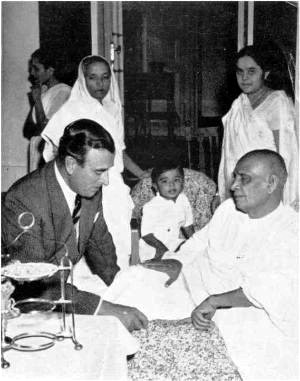
Mountbatten and Sardar Patel
Sardar Patel was well acquainted with the States, but in May 1947, he was not the Minister for States. His ongoing charm offensive meant that he was not, despite his enigmatic remarks during the meetings of the States Negotiation Committees, going to be so reckless as to speak of “toppling” any rulers. It would conflict with Nehru’s public stand that India would not intervene in any State, big or small. Mountbatten’s recollection of the moment has him then summoning VP, and insisting that the States acceded to India on the subjects of defence, external affairs and communication. “I talked to VP Menon, who was Reforms Commissioner, and gradually built up this idea of accession on three subjects: External Affairs, Communications and Defence. Now even there, many of the princes have told me that if it had not been for my relationship with the King, and my personal knowledge of the princes, they would not have trusted anybody else to negotiate this.” This statement is also untrue.
VP’s official narrative, published when Mountbatten was very much alive, [a narrative which Mountbatten was to laud], states quite clearly that he went back to his original plan for accession which he had handed to Linlithgow six years ago. Mountbatten’s calm assumption of ownership over the smooth integration of the princely states becomes understandable only when one conflates his enormous ego with Sardar Patel and V.P. Menon’s joint tactic of pandering to it. Both Patel and VP knew that any plan they had could only work if the Viceroy was not just on board, but was its ambassador. Patel, for example, knew the Nawab of Bhopal and knew that his friendship with Mountbatten would be invaluable in coaxing him from his high horse. This was a shrewd move. Records prove that Hamidullah Khan did, predictably, seek an assurance from the Viceroy that Patel and Menon would not renege on the Instrument they were offering. Mountbatten replied tartly that he would be in an “extremely strong position to expose them if they did not,” considering that he was going to remain in India until April 1948. But this was still in the future. For now, Patel and VP had to convince Mountbatten—no arduous task—that their plan was actually his plan. At different points that summer, then, the Viceroy was told deferentially that the only way history could move forward was if he played his part. It worked a little too well.
By the time the States Ministry was established, in June 1947, Travancore and Hyderabad had declared their intentions to stand aloof from both India and Pakistan. However, in an ominous warning, Sir C.P. had announced that Travancore would be appointing a “trade agent” to Pakistan. Several other States were having a hard time accepting a new intermediary between themselves and the Government. Gopalaswamy Ayyangar’s note on the prospects facing those States, which chose to remain independent, struck another chill into royal hearts. “From 15 August, there would be two Dominion Governments in the country. Barring a few States like Bahawalpur, Khairpur, Kalat and the tiny principalities in the Tribal Areas, the overwhelming majority of Indian States will be in India proper and not Pakistan.” Ayyangar wrote, “… Therefore, if things are not anticipated and suitable arrangements made in advance, the Indian States and their Governments will be left to fend for themselves … Some of them have claimed the right to be so independent as to have the freedom to enter into political, economic and other relations with foreign countries outside India, without any reference to the Government of India. It is not in their interests to do so.” The note loses no time in becoming more explicit, “Nor could the dominant power in India, namely the future Government of India, afford to look on while Indian States, most of which will be islands within the Union, attempt to establish political and other relations with foreign countries …” For all these reasons, Ayyangar concluded smoothly, a States Department was vital for the future of India. The only problem was—every ruler in the country knew that with Sardar Patel in charge, it was not going to be a neutral prospect. No one could say so outright, of course, but Ayyangar was the recipient of several agitated letters that summer. V.T. Krishnamachari, the clever Prime Minister of Jaipur, wrote to explain—at length—how disastrous a States Department would be. “I do not think it (the States Department) is good either in the interests of India as a whole or of the States,” K.M. Panikkar, Diwan of Bikaner, wrote too, to advocate for some kind of transitory administrative machinery to be put in place in the States while the transfer of power was being effected.
Gopalaswamy Ayyangar’s note on the prospects facing those States, which chose to remain independent, struck another chill into royal hearts. “From 15 August, there would be two Dominion Governments in the country. Barring a few States like Bahawalpur, Khairpur, Kalat and the tiny principalities in the Tribal Areas, the overwhelming majority of Indian States will be in India proper and not Pakistan.”
Of all these flutterings, Ayyangar took suave and kindly notice, promising that royal concerns would be looked into. In reality, of course, his ideas were very different. India’s geography, history, economics and political prospects required that Indian States needed to be compelled to stay within the Indian Union. There could be no question, as in the case of Travancore and Hyderabad, of their staying independent and demanding equality with the Government of India. Not only would it mean the effective “balkanisation” of India, but it would be contrary to every aim of the independence movement so far. It would, Ayyangar was convinced, lead to chaos and anarchy—which a newly independent country could do very well without. “India cannot permit this, and should either re-subjugate these bits of State territory in her midst or force them to make the choice between the Cabinet Mission’s two alternatives.” Significant, then, that the men who led the formation of the States Department all had the same views on the subject.
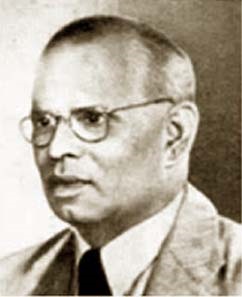
V P Menon
V.P. Menon assumed his post as Secretary of the States Ministry on 5 July 1947. He would also continue holding his post as Constitutional Advisor to the Viceroy. In effect then, the summer of 1947 saw him in charge of not only India’s transfer of power, but her integration as well. By this time, he had been fully briefed about the paranoia of the princes, and having read through Ayyangar’s notes and seen copies of his correspondence with Diwans across the country, he knew that the first thing to do was to calm royal fears. He prepared a statement for the Sardar to read out on 5 July to the press. It was a satisfactorily conciliatory one, which, as VP mentioned later with simple pride, took inspiration from Abraham Lincoln’s inaugural address.
V.P. Menon assumed his post as Secretary of the States Ministry on 5 July 1947. He would also continue holding his post as Constitutional Advisor to the Viceroy. In effect then, the summer of 1947 saw him in charge of not only India’s transfer of power, but her integration as well. By this time, he had been fully briefed about the paranoia of the princes, and having read through Ayyangar’s notes and seen copies of his correspondence with Diwans across the country, he knew that the first thing to do was to calm royal fears. He prepared a statement for the Sardar to read out on 5 July to the press. It was a satisfactorily conciliatory one, which, as VP mentioned later with simple pride, took inspiration from Abraham Lincoln’s inaugural address.
“We ask no more of the States,” declared Patel, “than their accession on these three subjects in which the common interests of the country are involved. In other matters, we would scrupulously respect their autonomous existence.” Patel’s statement soothed those of the princes who had agreed to join the Constituent Assembly in preparation for independence. The Maharaja of Bikaner spoke to the press on 8 July, “If I may say so, a more appropriately worded statement, breathing genuine friendliness and goodwill towards the States could hardly have been made at this momentous juncture …” The Maharaja of Alwar sent a personal cable to Sardar Patel, “Your recent statement regarding the States is most welcome at this juncture … There can be no manner of doubt that the hand of friendship and cooperation extended by you will be grasped firmly by the States.”
The stage was set.”
Endgame
The only problem was—there were no officials.
The Political Department had been shutting down all through April and May. By July, most senior officials had gone home on leave or had applied for their pensions. Only Sir Conrad Corfield clung on to office. Hurriedly, VP arranged for the transfer of C.C. Desai, from the Ministry of Supply. Desai had a long history in administration across the country and was available on short notice. He turned out to be a most able deputy, and together with two junior aides, formed VP’s own core team. These were the men who would put their heads together over the reordering of India’s political map. It wasn’t long before the States Ministry would become a juggernaut by itself. Under the leadership of Patel, with VP as his deputy, the Ministry began to weed out the men it believed were detrimental to the integration of India. The first to go was Corfield—who had probably known that his days in the service were numbered, after VP—long his bête noire—took over. The denouement came in consequence of the heated discussions between VP, Corfield and others over clauses regarding the States in the Indian Independence Bill. The issue at stake centred around, as did everything else when it came to the States, the lapse of paramountcy. VP had his eye on the undoubtedly strategically important agreements with Bahawalpur and Bikaner (struck in 1920) over the Sutlej Valley canals, and on British India’s agreement on salt with Jaipur and Jodhpur. It would be, quite obviously, to India’s immense advantage if she could inherit these agreements from Britain. This infuriated Corfield who saw in it a trap for the States in question, not without good reason. In this argument, VP lost—Pethick-Lawrence stepped in at the last moment and said that he really had no choice except to support the Political Department’s stand. But the enmity simmered.
Matters would not take long to come to a head. Knowing full well that Corfield was working unrelentingly to ensure that the princes stayed out of the independent Union of India, VP decided to begin meeting the princes himself. His first meeting was with the six-foot-four, impressively bearded, intelligent Maharaja of Patiala. Yadavindra Singh was nothing like his scandalous, hedonistic father. He was an intelligent man and VP decided to not insult his intelligence by feeding him with flattery and hollow promises. “I told him frankly that independent of us, you cannot exist.” VP’s decision to be blunt worked. The Maharajah may well have left the meeting with the uncomfortable knowledge that Patiala had been given no choice but to accede to India. What are we to make of VP’s statement that the Maharaja and he “parted as friends”? The fact is that, in late 1951, when VP had retired from government service, the Maharajah not only officiated at Angu’s civil wedding in Simla, as a witness, but housed the Menon family in Simla for the duration of their stay. Soon, nearly every major ruler, all of whom met the new Secretary to the Ministry of States, realised that here was a man who enjoyed the full backing of the government.
Knowing full well that Corfield was working unrelentingly to ensure that the princes stayed out of the independent Union of India, VP decided to begin meeting the princes himself. His first meeting was with the six-foot-four, impressively bearded, intelligent Maharaja of Patiala. Yadavindra Singh was nothing like his scandalous, hedonistic father. He was an intelligent man and VP decided to not insult his intelligence by feeding him with flattery and hollow promises. “I told him frankly that independent of us, you cannot exist.” VP’s decision to be blunt worked. The Maharajah may well have left the meeting with the uncomfortable knowledge that Patiala had been given no choice but to accede to India.
In July, the Maharaja of Jodhpur’s ADC, called upon VP. The ADC remains unnamed in VP’s personal recollection, but it was well-known that Jodhpur was wavering between joining India or Pakistan and that Jinnah was circling him like a vulture. “That ADC told me that Jodhpur had been to see Corfield many times. Sir Conrad had come often to see him too—long meetings, which sometimes went on into the night. I was so angry.” VP was even more livid when he discovered plans—laid carefully by Corfield—to encourage the Nawab of Bhopal to believe in the viability of deploying a “Third Force”, Bhopal’s own independent militia against the Union of India. It was the last straw. VP went straight to Lord Mountbatten and told him in no uncertain terms that keeping Corfield on in India was a catastrophic mistake. “I told him that either Corfield should go, or I would. The two of us could not be in Delhi any longer at the same time. I told Mountbatten that I did not need or want his advice and if he thought we could get along together, he was making a big mistake.” VP’s threat was all it took to persuade Mountbatten, no great admirer of Corfield himself. By the middle of July, Conrad Corfield departed the country he had always loved. It was a lonely, unsung exit, lent a touch of drama only by his orders to have great sheaves of official documents of the Government of India—all pertaining to the princes and their more scandalous activities and four tons in all—destroyed before he left. It was the final act of a vandal, who served the interests of the princes more than the interests of the government that employed him.
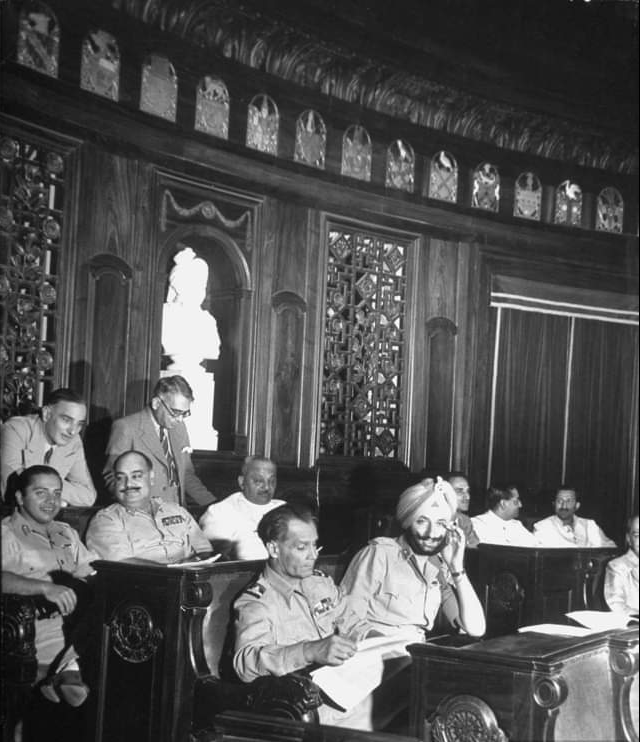
The Maharaja of Bikaner, the Maharaja of Gwalior, the Nawab of Bhopal & the Maharaja of Patiala in the Chamber of Princes comprised of native rulers who traditionally do Britain’s bidding
On 10 July, a bevy of senior princes—Patiala, Baroda, Bikaner and Gwalior—descended upon 1, Aurangzeb Road. It was not a formal conference, but one intended to break the ice and allow some of the major—and willing—princes to get to know the new Minister and his Secretary. The Sardar explained their terms of accession, and also explained the role of the States Ministry in the process. The rulers present agreed to the agenda set for the upcoming conference at the Chamber of Princes, scheduled to be held on 25 July. Pleased by the smoothness with which the meeting had gone, VP dashed off a formal agenda for accession (the draft of what would become the Instrument of Accession), which he handed to a junior official in the States Ministry, asking that it be delivered to Abdur Rab Nishtar. There was a predictable explosion from Jinnah. Jinnah, deeply suspicious of Indian intentions, began dangling promises to the princes of their guaranteed independence in Pakistan. But by this point, most of these distractions were just that—distractions. Sir C.P. Ramaswami Aiyar, the Diwan of Travancore sent Mountbatten a letter on 15 July, saying in effect, that since Travancore had chosen to be independent, there was no point in sending a representative for the meeting of the Chamber of Princes on 25 July. More dangerously, Travancore was threatening a campaign of direct action, to begin on 1 August 1947. Hastily Mountbatten summoned Sir C.P. to Delhi, where he was promptly closeted with VP. This time VP chose to deploy a different set of tactics to the ones he used with the Maharajah of Patiala. He spoke of the strategic advantages to Travancore after accession, appealing first to the Diwan’s intelligence. Sir C.P. was ready for him. Travancore was a maritime State, he pointed out. If, as the Instrument stated it must, it would hand over half its revenues from customs, and import-export duties, then it would be a “fifth-rate” State. Not at all, VP replied reassuringly. The Instrument put no weight on financial commitments. All Sir C.P. had to do was to accede on defence, external affairs and communications. Perhaps he might like to rethink matters? After all, independence would leave Travancore—a great and prosperous state—wholly open to all kinds of anarchy. Seeing Sir C.P.—whose pride in his State was unparalleled—soften a little, VP switched deftly to a more personal tack. “I assured him of my high regard for both his realistic attitude to affairs and for the part he had played in the past. It ought not to be said of him that at India’s critical hour, he had not made his contribution towards building a united India when he had it in his power to do so. It was a tack that had worked brilliantly on Mountbatten—and it would work its charm on Sir CP now. For the first time in months, the Diwan thawed a little, unbending enough in front of the Viceroy to say that he could “agree” on the three subjects, rather than “accede.” This wouldn’t do. VP was brought in again, and this time he changed his tactics again. There would be no talk of any “agreement”. Travancore had to sign on the dotted line. Nothing else would do. On 23 July 1947, the Diwan of Travancore returned to Thiruvananthapuram. In his bag, he carried the draft Instrument of Accession. On 24 July, another conference was held, this time with Patiala, Gwalior, Bikaner, Mysore, Nawanagar and Jodhpur. It was a hopeful sign. “It showed that we were making headway with our plan.” More importantly, it showed that Hamidullah Khan’s feverish, incessant machinations to keep his peers free from the clutches of a new Union of India were failing. However, it was the ceremonial pomp of the Chamber of Princes that would seal the deal, as far as the princes were concerned.
This was one of the last meetings of the Chamber, and there was not a prince present who did not feel a twinge of regret as they drove down the highways into the lush greenery of Lutyen’s Delhi. Some came, borne on flying-boats from their summer retreats in Cannes and the Riviera. Narendra of Sarila drove through the day for ten hours, arriving from Charkhari as dusk was dropping over Delhi, in his brother’s convertible Sunbeam Talbot. It was a sight to behold— and certainly one that would never be seen again. It was hardly a Chamber—a cramped room, built like a semi-circular amphitheatre, to house not more than 150 princes. Into this room filed the Maharajas who had chosen to attend. Kashmir, Hyderabad, Mysore and Travancore were notably absent. There were others who had chosen to deliberately stay away, persuaded by the Nawab of Bhopal. The 25-odd rulers who were present were all tanned and prosperous from their holidays on the Continent. They had come to listen to the Viceroy speak. Mountbatten strode in, and leaped nimbly up onto the dais. He was in full military uniform, the white of the cloth and the glittering medals standing out in sharp relief against the red carpeting. For a minute, he was caught in a blaze of flashbulbs. The press was present to document this occasion. Standing beside him was the Maharaja of Patiala. Mountbatten spoke fluently and well. He explained to the princes that India was moving towards a new chapter in her history. After 15 August 1947, he would no longer be in a position to help them as he could help them now. “He succeeded in creating the impression that he was a friend who was trying to help the princes,” recalled Narendra of Sarila. It was not a difficult impression to create. Mountbatten was on excellent terms with most rulers. He was a personal friend of Bikaner and Dholpur, he shot tigers in Gwalior and enjoyed fishing in Mysore. Most princes referred to him, quite simply and with great affection, as “Dickie.” Small wonder then, that they merely sat there, looking at him, “like plump, velvet, cattle, their large, sad, calm, brown eyes fixed trustingly on their herdsman—who was about to tell them the best way to the abattoir.
The meeting was thrown open subsequently for questions and answers. The range of questions that were asked showed that despite Sardar Patel and V.P. Menon’s best intervention, the rulers were either wilfully misunderstanding the terms of accession or were downright stupid. There were demands about exclusive rights to big-game hunting, about the number of gun salutes on ceremonial occasions, on the titles and honorifics they were allowed to keep. There were some princes who stayed silent through everything and merely left at the end of the session. There were yet others, like the Maharawal of Dungarpur who muttered something under his breath about an “Instrument of Execution.”
The meeting was thrown open subsequently for questions and answers. The range of questions that were asked showed that despite Sardar Patel and V.P. Menon’s best intervention, the rulers were either wilfully misunderstanding the terms of accession or were downright stupid. There were demands about exclusive rights to big-game hunting, about the number of gun salutes on ceremonial occasions, on the titles and honorifics they were allowed to keep. There were some princes who stayed silent through everything and merely left at the end of the session. There were yet others, like the Maharawal of Dungarpur who muttered something under his breath about an “Instrument of Execution.” The Diwan of Bhavnagar was caught off-guard by the realisation that he needed to give Mountbatten an answer pretty rapidly. He got up to say that since his ruler had left no instructions behind before leaving to go abroad he could not say whether or not his master would sign. “I do not know my Ruler’s mind,” he pleaded. Quick as a flash, the Viceroy picked up a heavy glass paperweight from the dais and pretended to consult it, “Let me look into my crystal ball,” he announced. There was a dramatic hush for several seconds while Mountbatten gazed deeply into the paperweight. Then he laid it down and smiled, “His Highness asks you to sign the Instrument of Accession.” The Chamber echoed with laughter for several minutes. It is a sad little anecdote in retrospect and shines an uncomfortable light on just what the Viceroy really thought of his devoted audience.
This excerpt has been carried courtesy the permission of Narayani Basu and Simon & Schuster. You can buy V.P. Menon: The Unsung Architect of Modern India here.
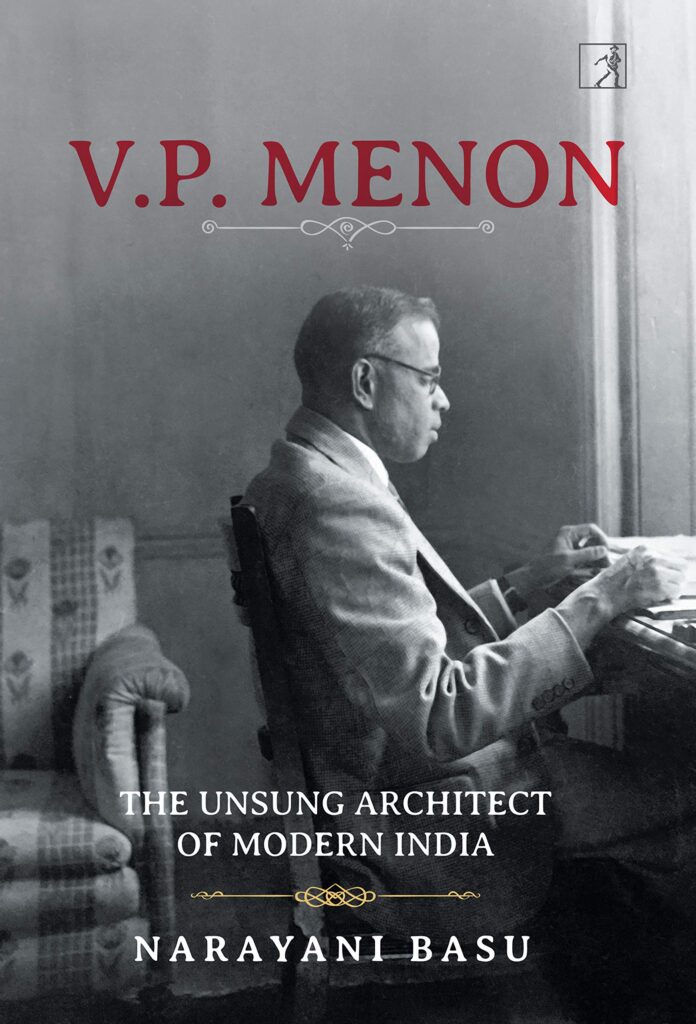
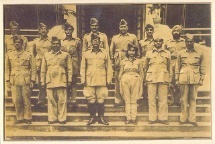
An excerpt from the book My Memories of I.N.A. and Its Netaji by Major General Shahnawaz Khan, where he documents how Bose formed the INA, inspired disillusioned Indian soldiers to revolt, and challenged British rule with Axis support.
Major General Shahnawaz Khan
__
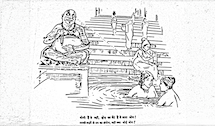
In the colonial period, the threat of the lecherous male gaze was used by the new patriarchy to restrict access to employment and public space for women, maintaining a patriarchal division of labour. Read how this process unfolded in our newest excerpt.
Saurav Kumar Rai
__
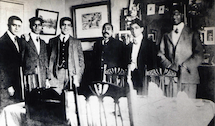
Was Lala Lajpat Rai's Hindu nationalism congruent with the principles of secularism? Explore our latest excerpt from Vanya Vaidehi Bhargav's fresh off-the-press book - Being Hindu, Being Indian: Lala Lajpat Rai's Ideas of Nation for more.
Vanya Vaidehi Bhargav
__
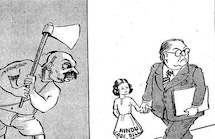
Popularly, we think that political cartoons question the powerful but what if this was not the case? What if political cartoons, replicated structures of the socially dominant? Read how in our new excerpt on political cartoons featuring Dr. Ambedkar.
Unnamati Syama Sundar
__

On Martyrs' day 2024, read the poet Sarojini Naidu's tribute to Gandhi given over All India Radio two days after his assassination.
Sarojini Naidu
__
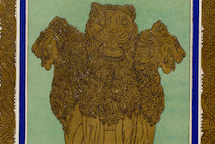
On Republic Day, the Indian History Collective presents you, twenty-two illustrations from the first illustrated manuscript (1954) of our Constitution.
Indian History Collective
__
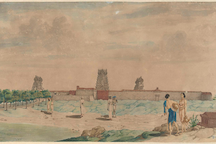
One of the key petitioners in the Ayodhya title dispute was Bhagwan Sri Ram Virajman. This petitioner was no mortal, but God Ram himself. How did Ram find his way from heaven to the Supreme Court of India to plead his case? Read further to find out.
Richard H Davis
__
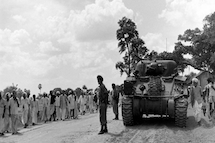
Labelled "one of the shortest, happiest wars ever seen", the integration of the princely state of Hyderabad in 1948 was anything but that. Read about the truth behind the creation of an Indian Union, the fault lines left behind, and what they signify
Afsar Mohammad
__
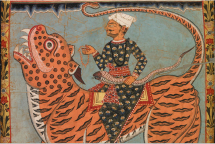
How did Bengal get a large Muslim population? Was it conversion by ruling elites was there something deeper at play? Read Dr. Eaton's classic essay to find out.
Richard Eaton
__
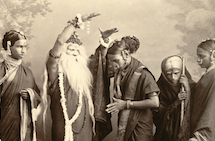
An excerpt from Shailaija Paik's new book 'Vulgarity of Caste' that documents the pivotal role Tamasha (the popular art form) has played in reinforcing and producing caste dynamics in Marathi society.
Shailaja Paik
__
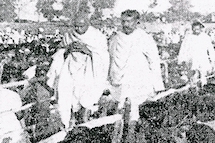
In 1942, two sub-districts in Bengal declared independence and set up a parallel government. The second part of our story brings you archival papers in the form of letters, newspaper reports, and judicial records documenting this remarkable movement.
Indian History Collective
__
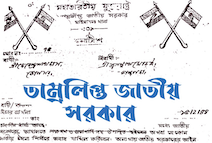
In 1942, five years before India was independent, two sub-divisions in Bengal not only declared their independence— they also instituted a parallel government. The first in a new series.
Indian History Collective
__
TIMELINE
-
2500 BC - Present 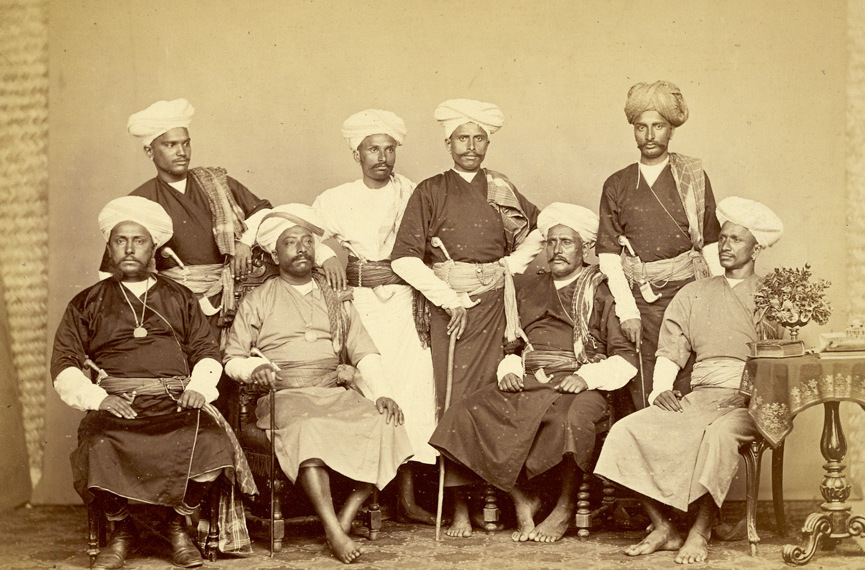
2500 BC - Present Tribal History: Looking for the Origins of the Kodavas -
2200 BC to 600 AD 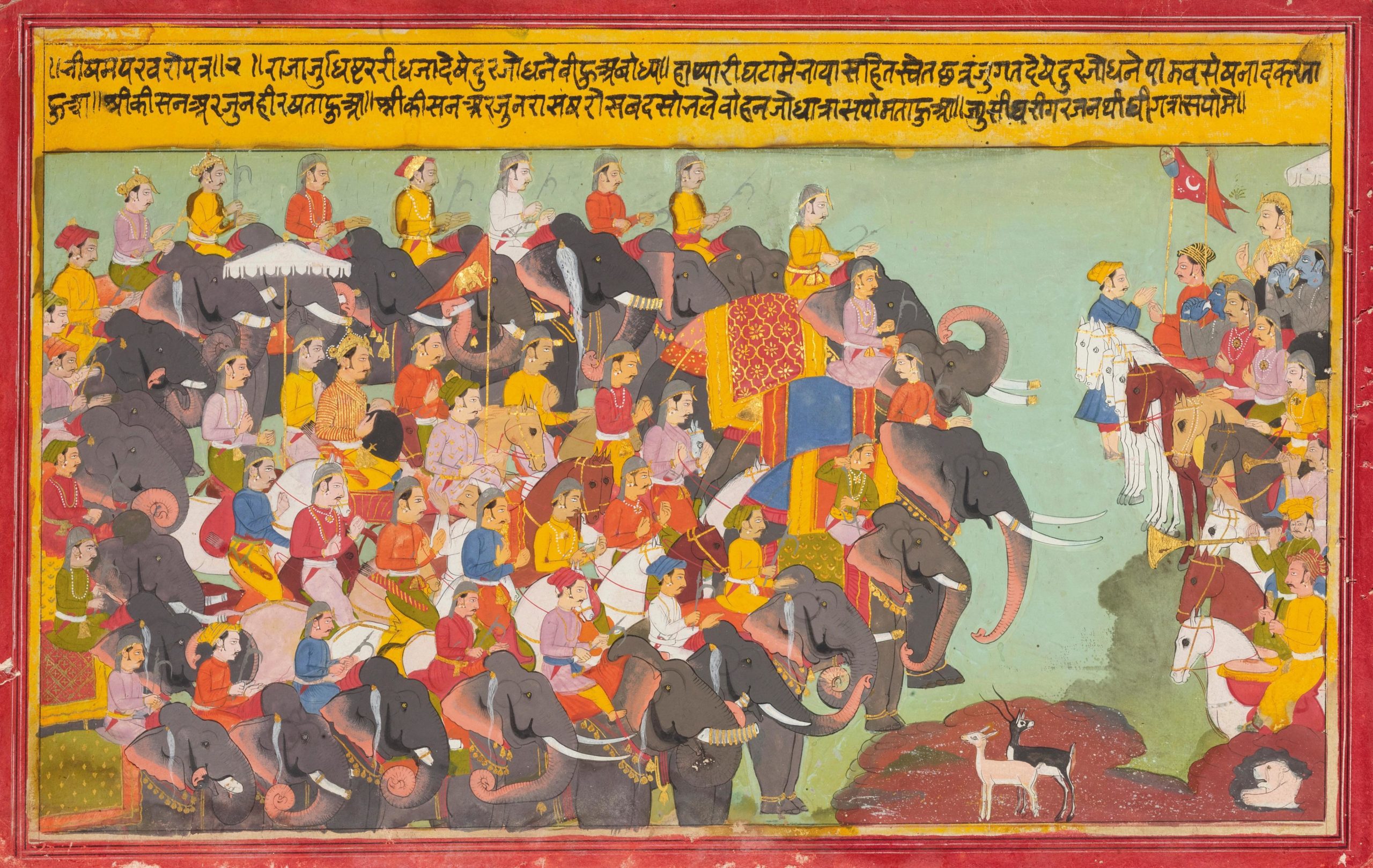
2200 BC to 600 AD War, Political Violence and Rebellion in Ancient India -
400 BC to 1001 AD 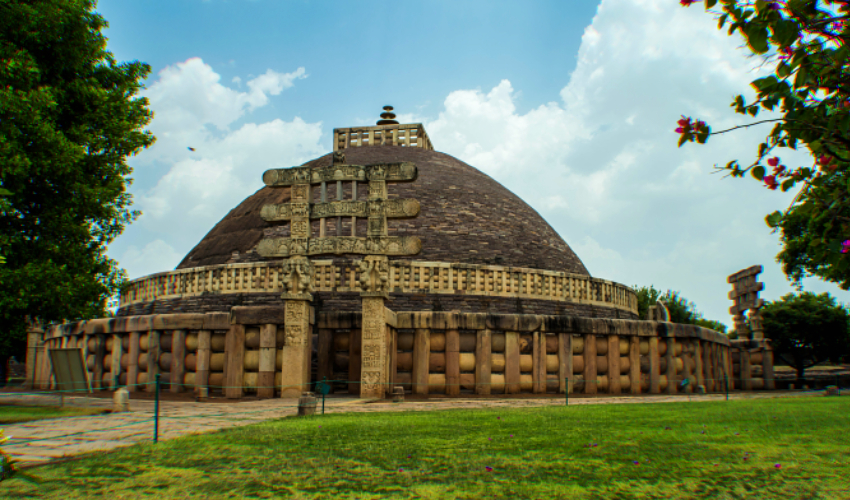
400 BC to 1001 AD The Dissent of the ‘Nastika’ in Early India -
600CE-1200CE 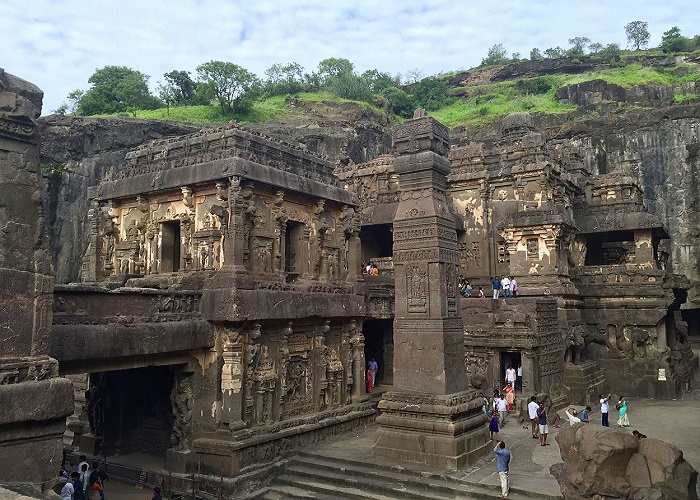
600CE-1200CE The Other Side of the Vindhyas: An Alternative History of Power -
c. 700 - 1400 AD 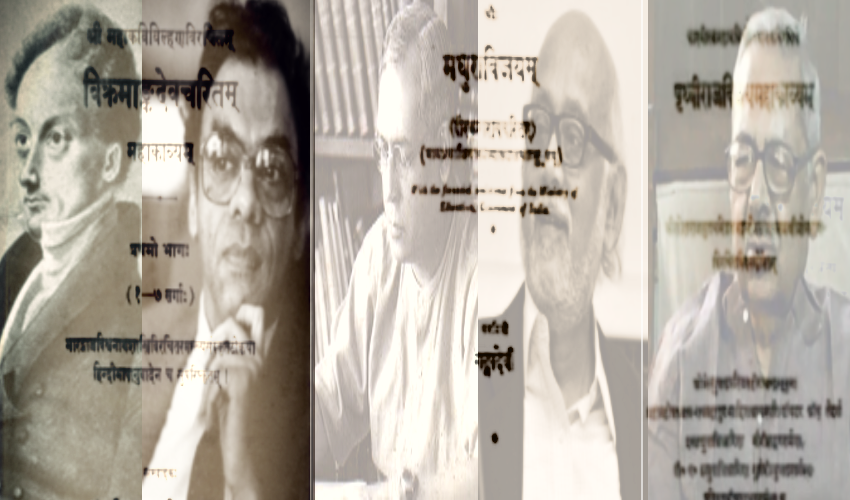
c. 700 - 1400 AD A Historian Recommends: Representing the ‘Other’ in Indian History -
c. 800 - 900 CE 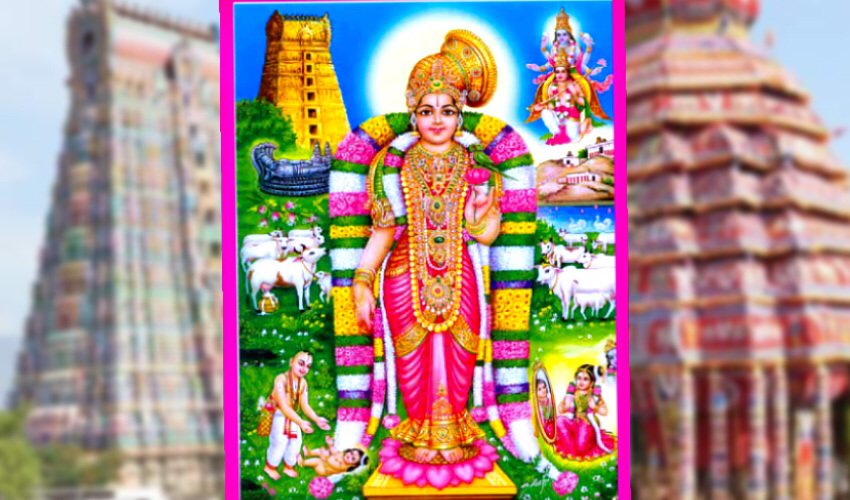
c. 800 - 900 CE ‘Drape me in his scent’: Female Sexuality and Devotion in Andal, the Goddess -
1192 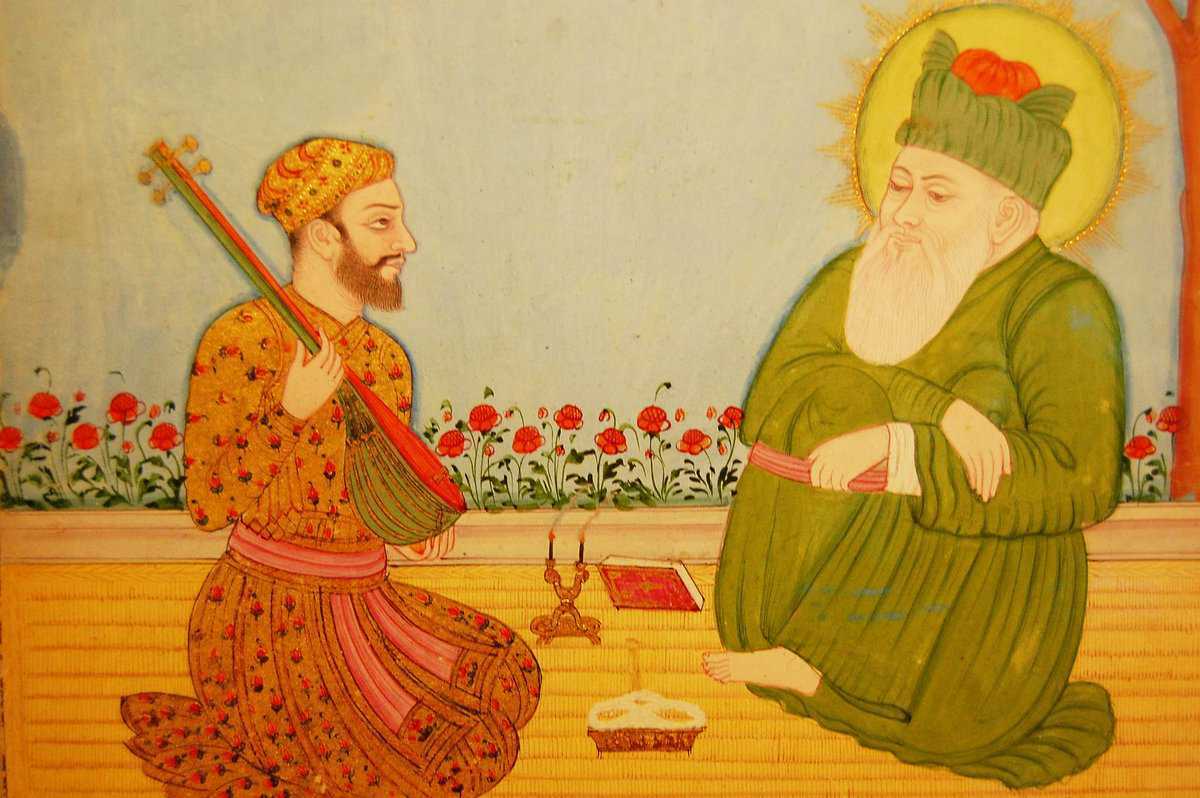
1192 Sufi Silsilahs: The Mystic Orders in India -
1200 - 1850 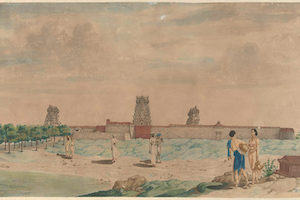
1200 - 1850 Temples, deities, and the law. -
c. 1500 - 1600 AD 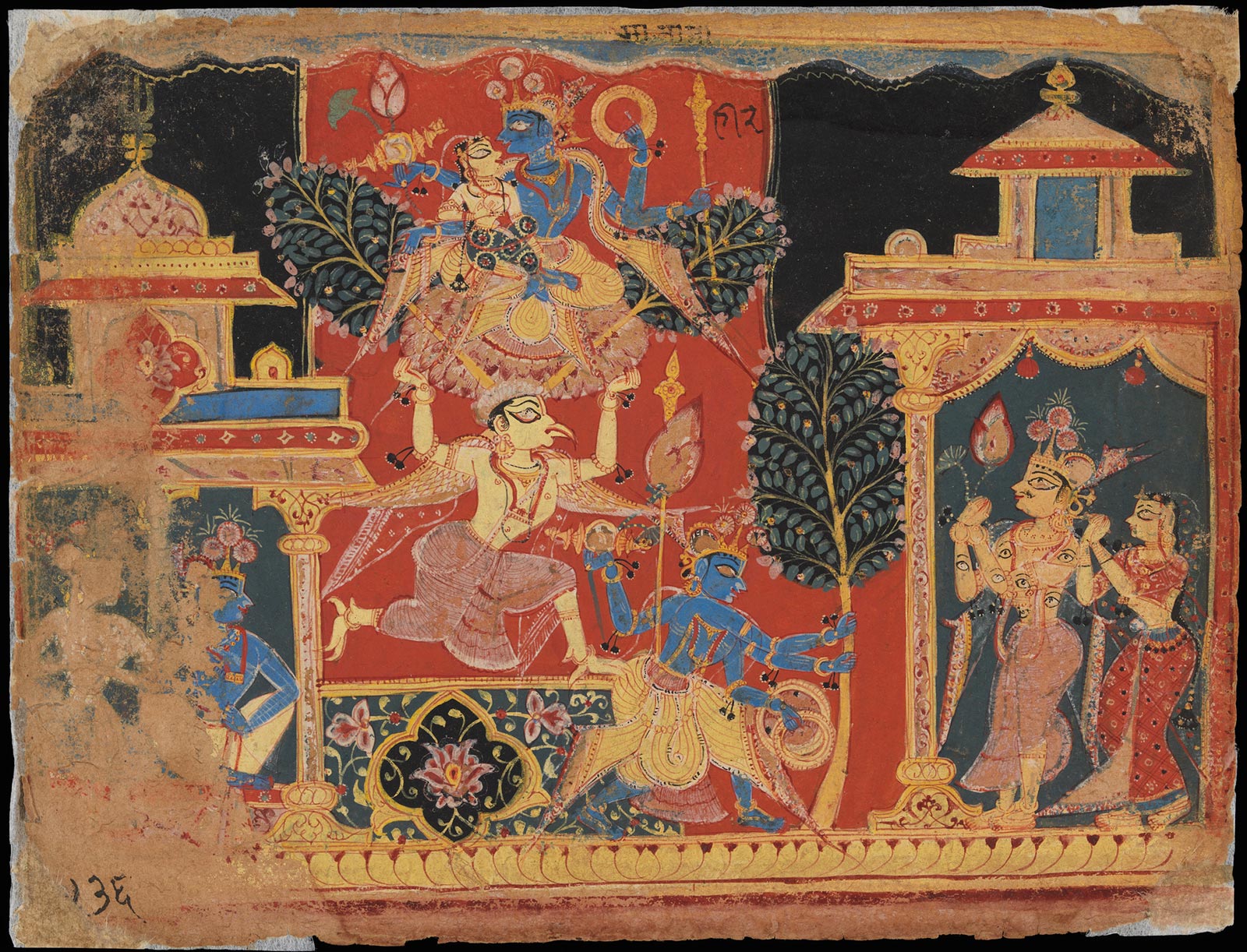
c. 1500 - 1600 AD A Historian Recommends: Religion in Mughal India -
1200-2020 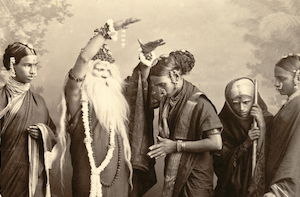
1200-2020 Policing Untouchables and Producing Tamasha in Maharashtra -
1530-1858 
1530-1858 Rajputs, Mughals and the Handguns of Hindustan -
1575 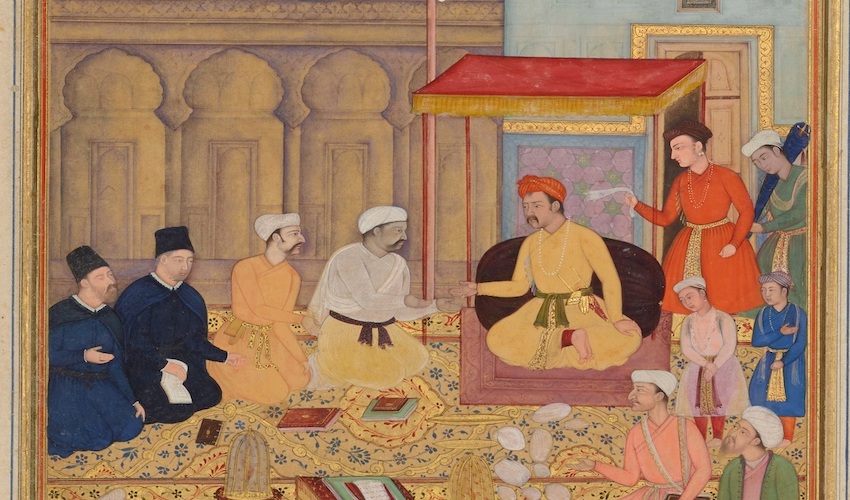
1575 Abdul Qadir Badauni & Abul Fazl: Two Mughal Intellectuals in King Akbar‘s Court -
1579 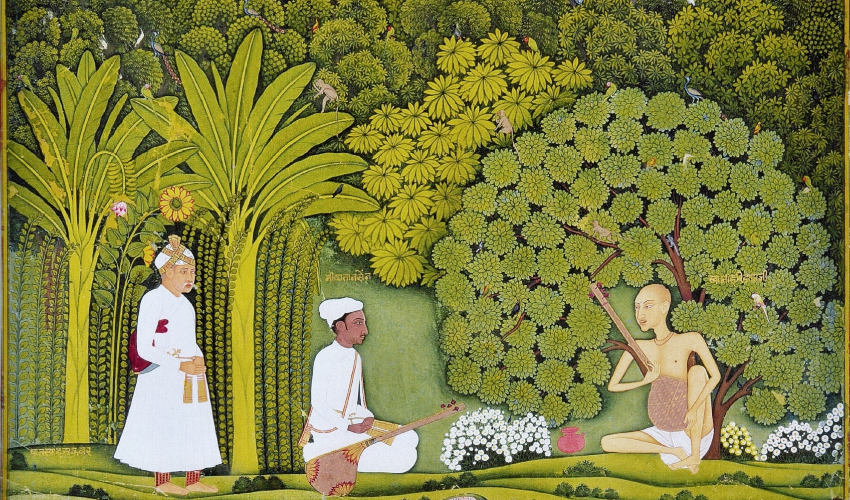
1579 Padshah-i Islam -
1550-1800 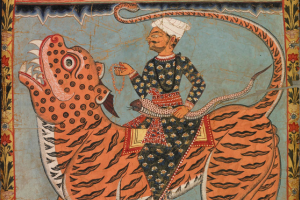
1550-1800 Who are the Bengal Muslims? : Conversion and Islamisation in Bengal -
c. 1600 CE-1900 CE 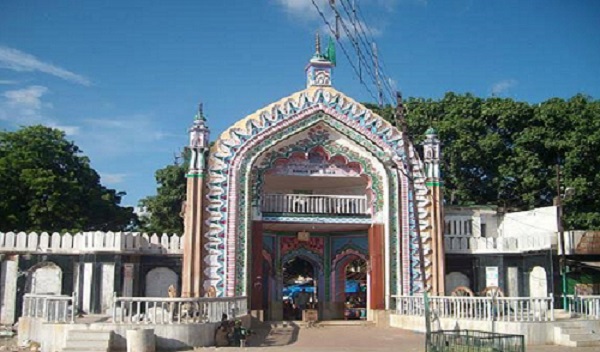
c. 1600 CE-1900 CE The Birth of a Community: UP’s Ghazi Miyan and Narratives of ‘Conquest’ -
1553 - 1900 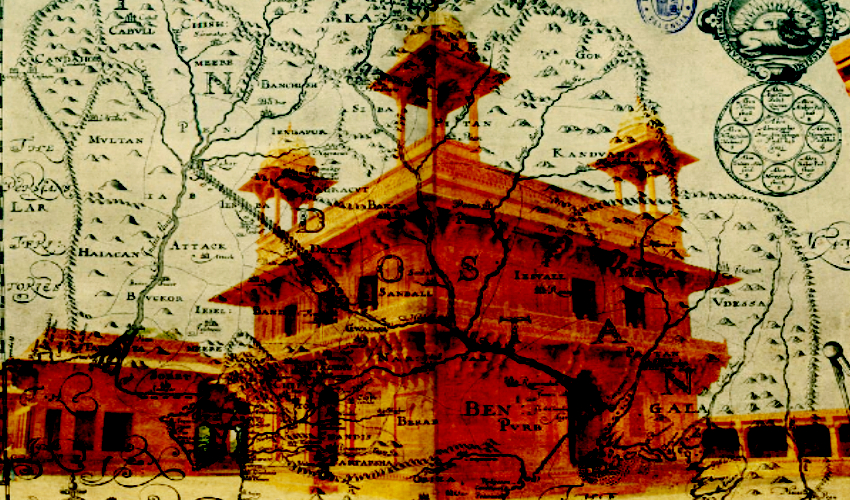
1553 - 1900 What Happened to ‘Hindustan’? -
1630-1680 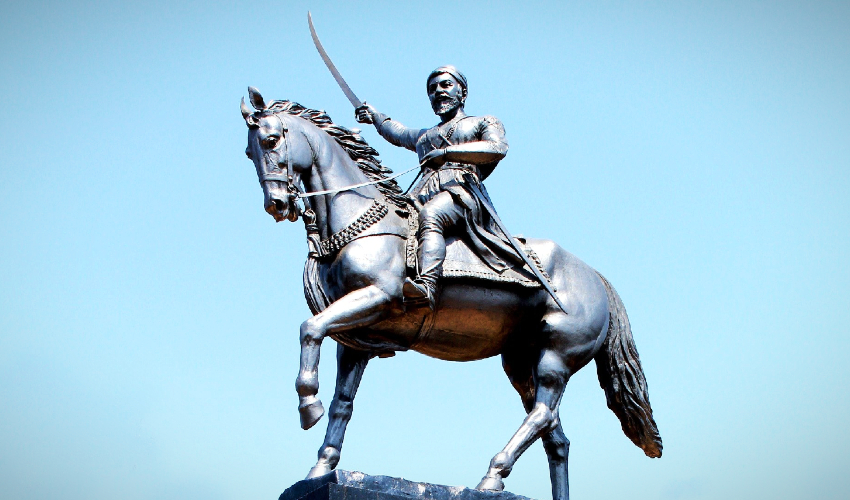
1630-1680 Shivaji: Hindutva Icon or Secular Nationalist? -
1630 -1680 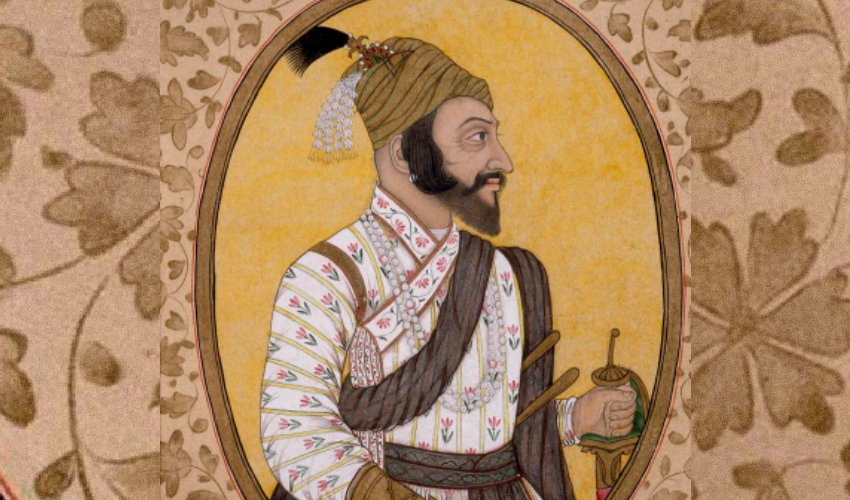
1630 -1680 Shivaji: His Legacy & His Times -
c. 1724 – 1857 A.D. 
c. 1724 – 1857 A.D. Bahu Begum and the Gendered Struggle for Power -
1818 - Present 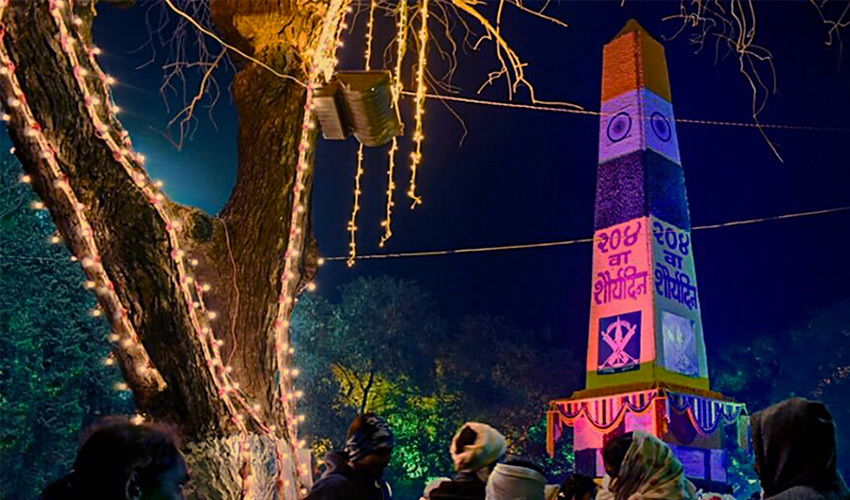
1818 - Present The Contesting Memories of Bhima-Koregaon -
1831 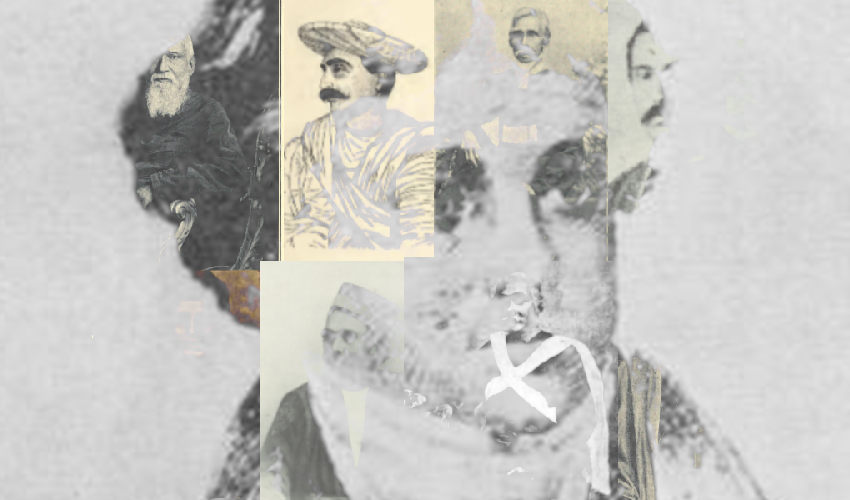
1831 The Derozians’ India -
1855 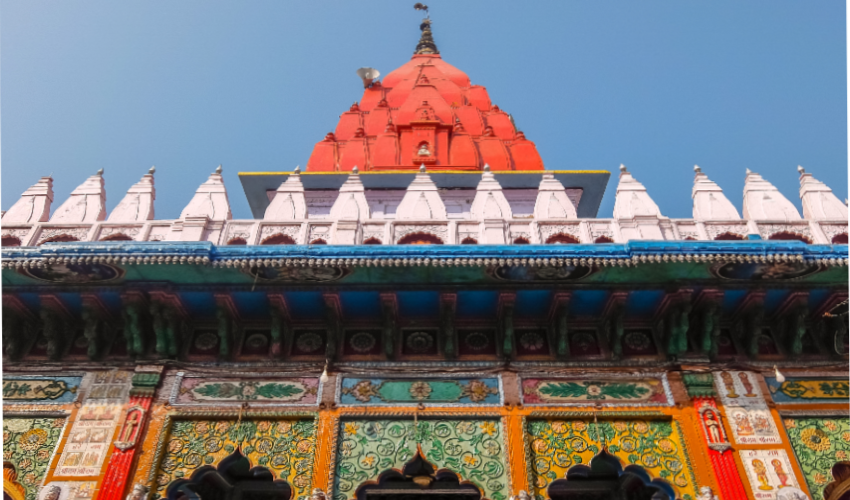
1855 Ayodhya 1855 -
1856 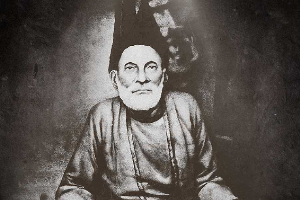
1856 “Worshipping the dead is not an auspicious thing” — Ghalib -
1857 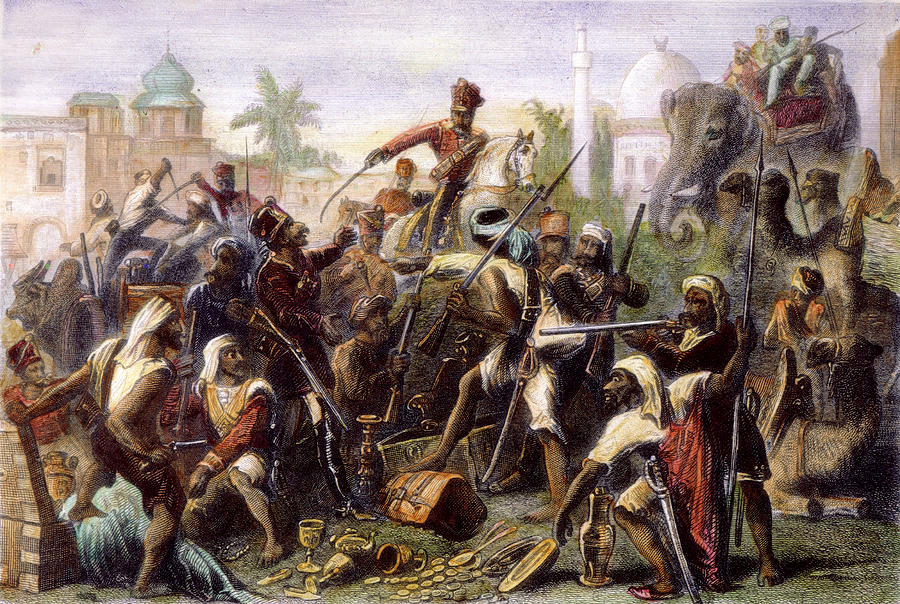
1857 A Subaltern speaks: Dalit women’s counter-history of 1857 -
1858 - 1976 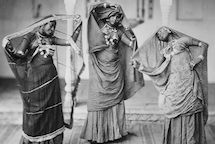
1858 - 1976 Lifestyle as Resistance: The Curious Case of the Courtesans of Lucknow -
1883 - 1894 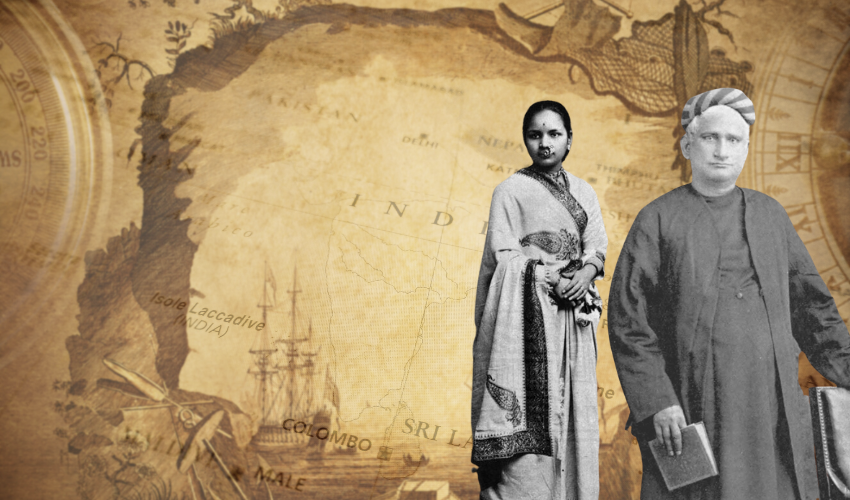
1883 - 1894 The Sea Voyage Question: A Nineteenth century Debate -
1887 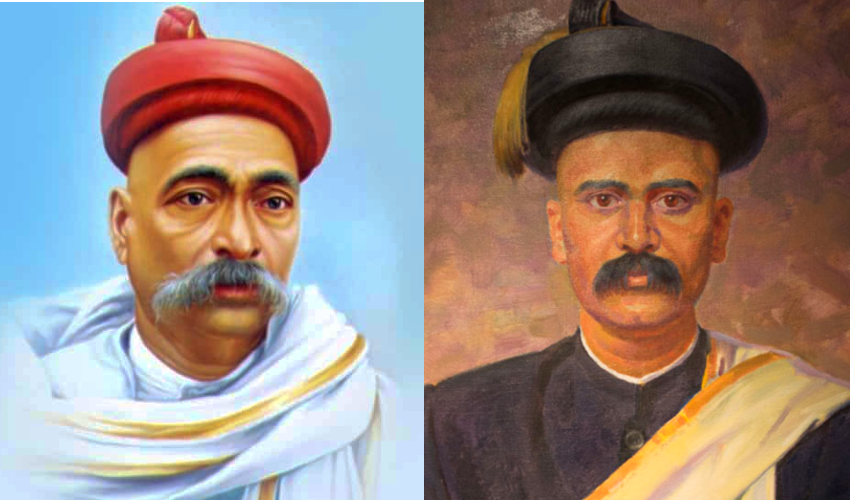
1887 The Great Debaters: Tilak Vs. Agarkar -
1893-1946 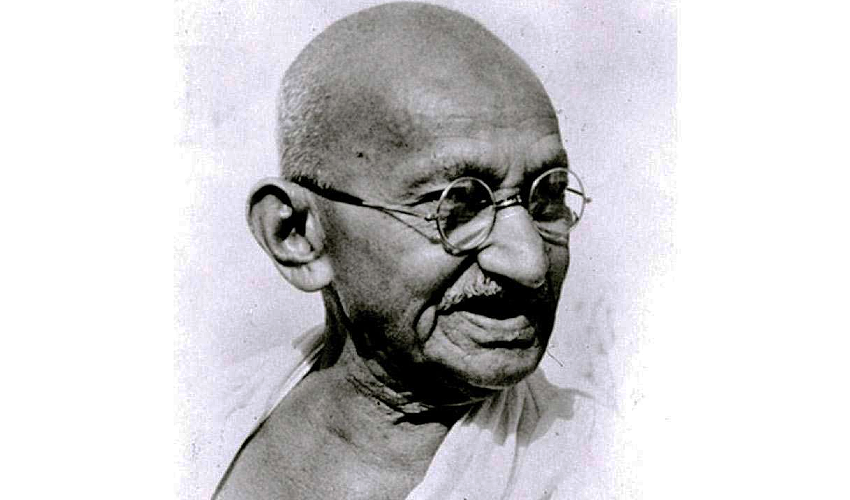
1893-1946 A Historian Recommends: Gandhi Vs. Caste -
1897 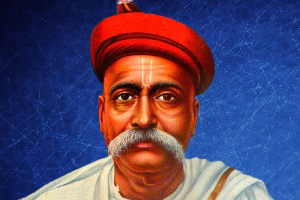
1897 Queen Empress vs. Bal Gangadhar Tilak: An Autopsy -
1913 - 1916 Modern Review 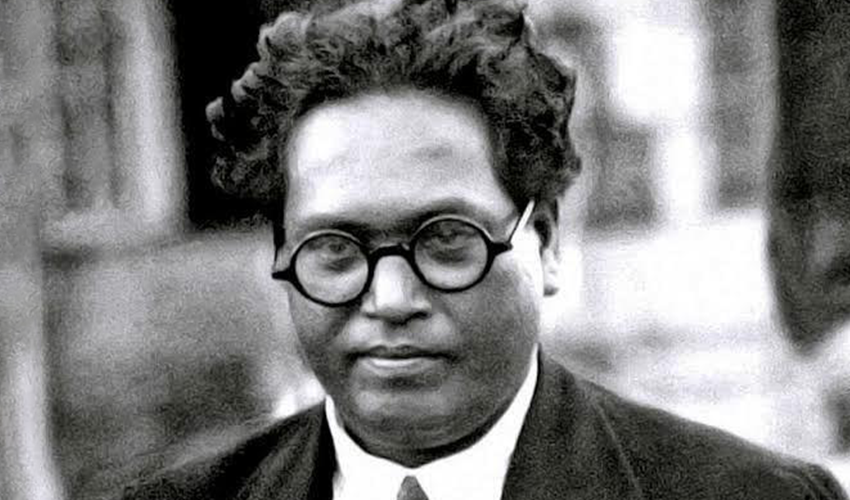
1913 - 1916 A Young Ambedkar in New York -
1916 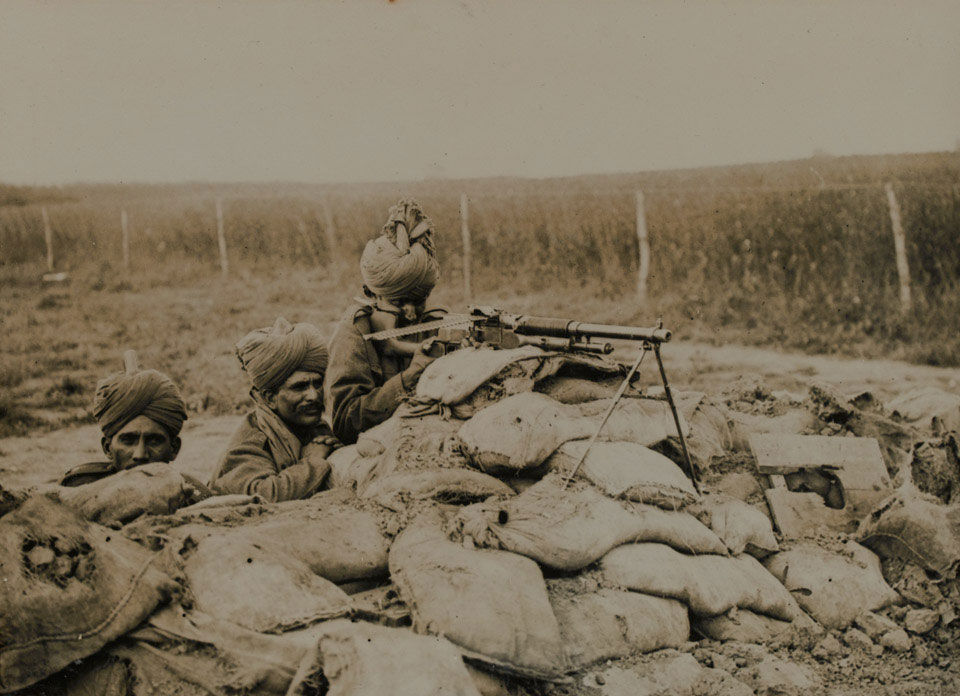
1916 A Rare Account of World War I by an Indian Soldier -
1917 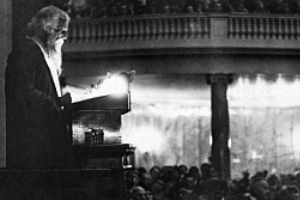
1917 On Nationalism, by Tagore -
1918 - 1919 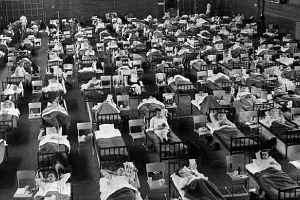
1918 - 1919 What Happened to the Virus That Caused the World’s Deadliest Pandemic? -
1920 - 1947 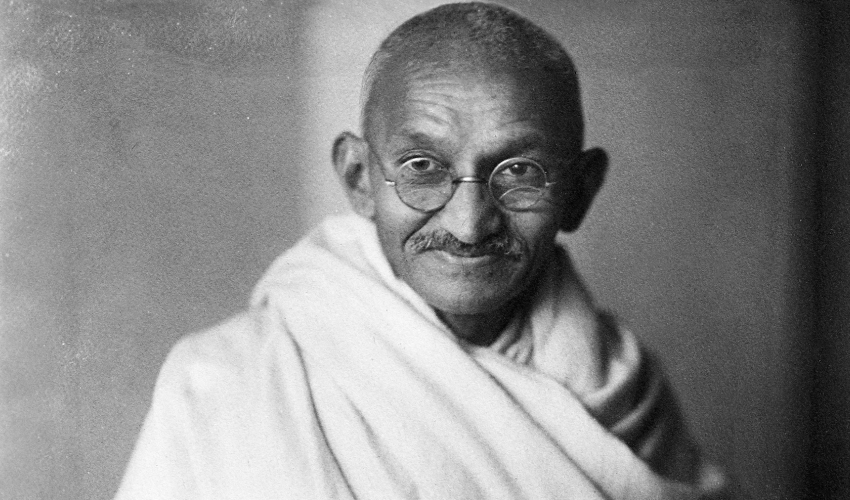
1920 - 1947 How One Should Celebrate Diwali, According to Gandhi -
1921 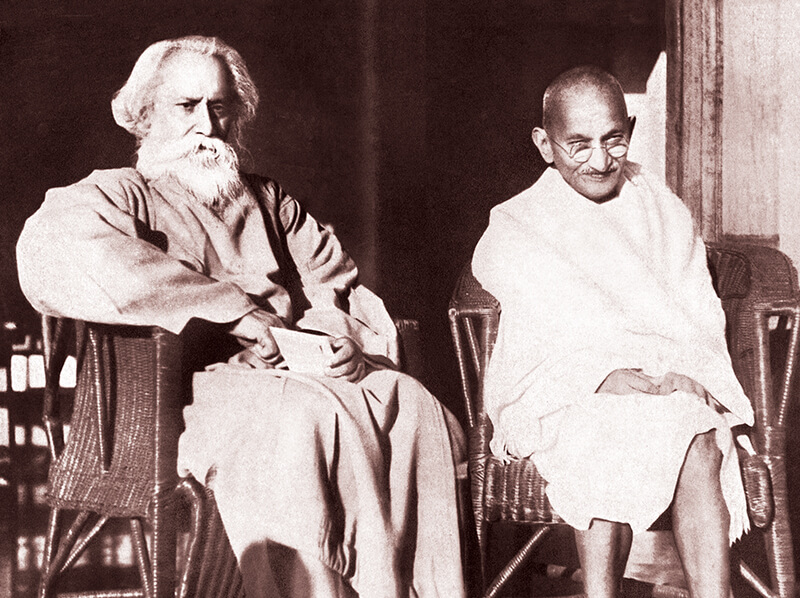
1921 Great Debates: Tagore Vs. Gandhi (1921) -
1921 - 2015 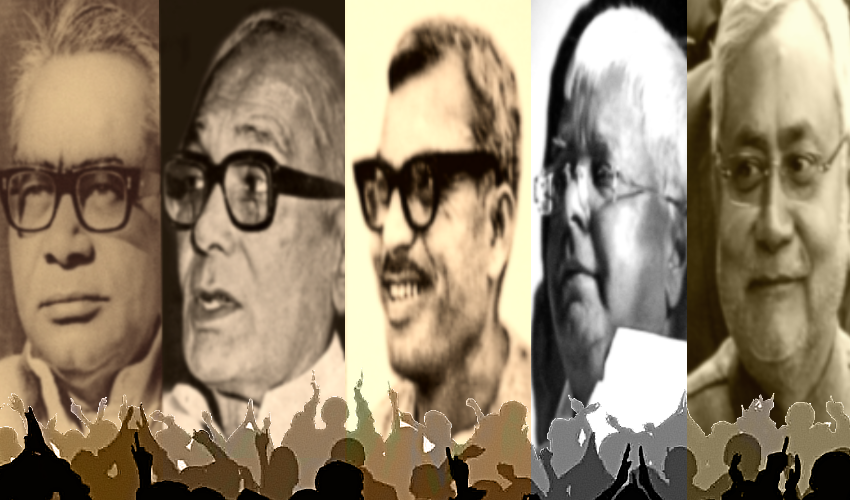
1921 - 2015 A History of Caste Politics and Elections in Bihar -
1915-1921 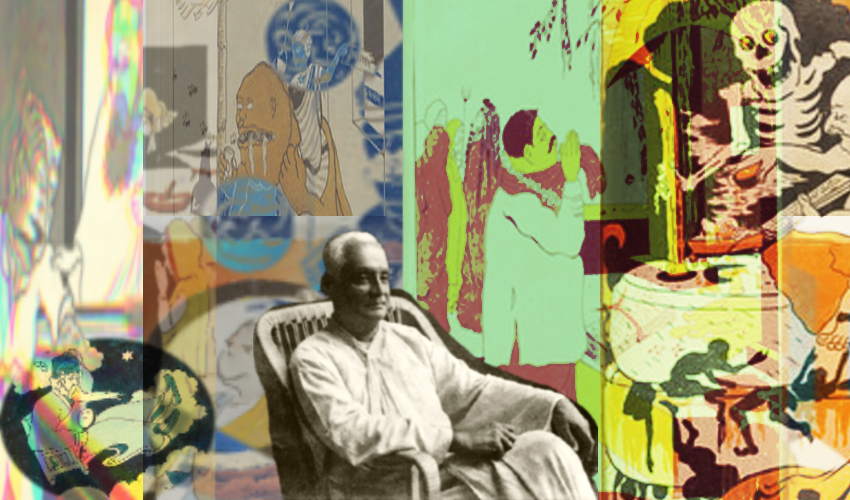
1915-1921 The Satirical Genius of Gaganendranath Tagore -
1924-1937 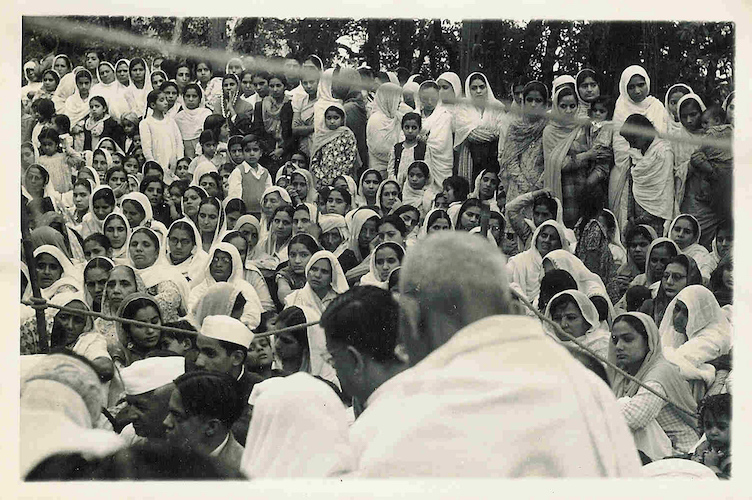
1924-1937 What were Gandhi’s Views on Religious Conversion? -
1900-1950 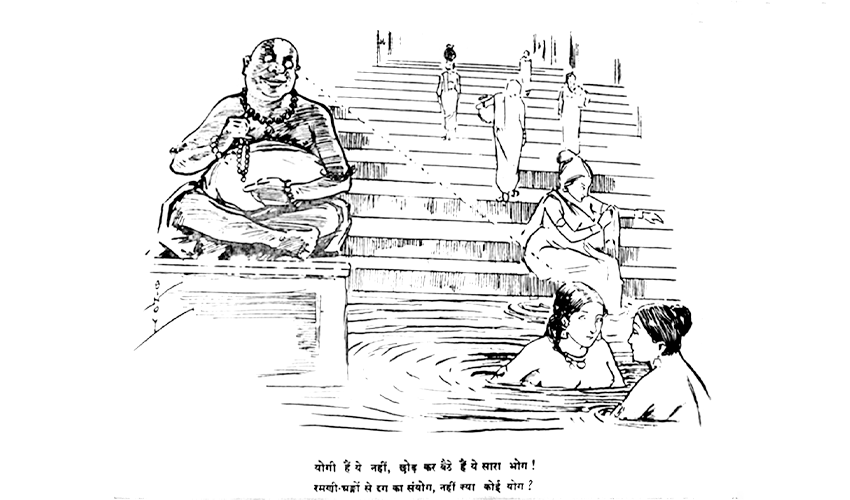
1900-1950 Gazing at the Woman’s Body: Historicising Lust and Lechery in a Patriarchal Society -
1925, 1926 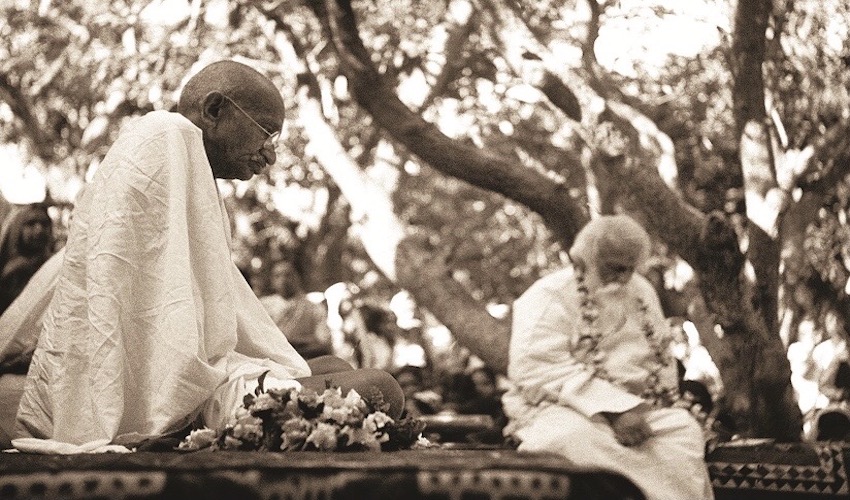
1925, 1926 Great Debates: Tagore vs Gandhi (1925-1926) -
1928 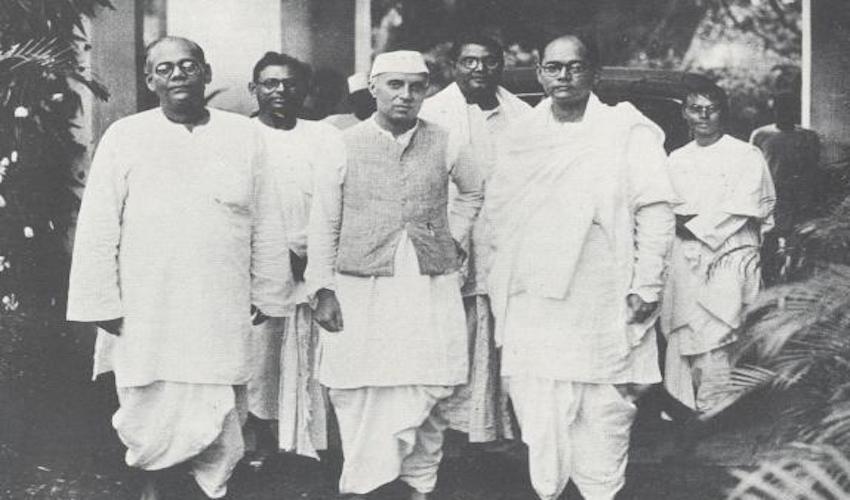
1928 Bhagat Singh’s dilemma: Nehru or Bose? -
1930 Modern Review 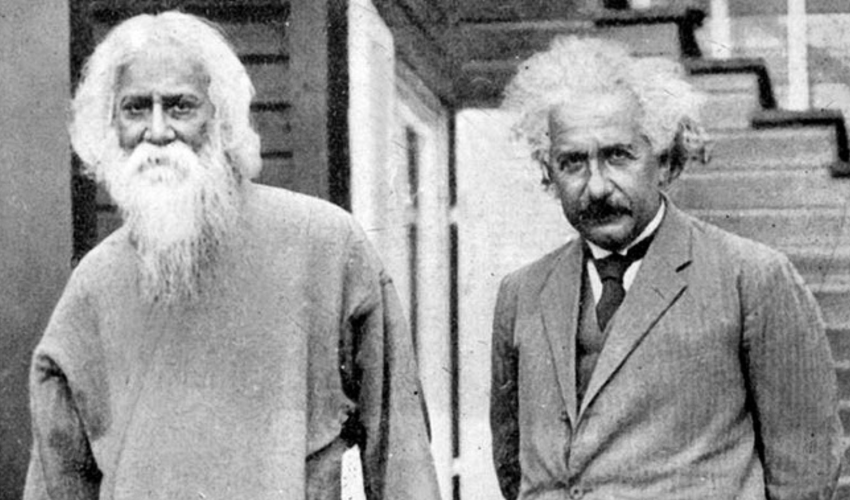
1930 The Modern Review Special: On the Nature of Reality -
1932 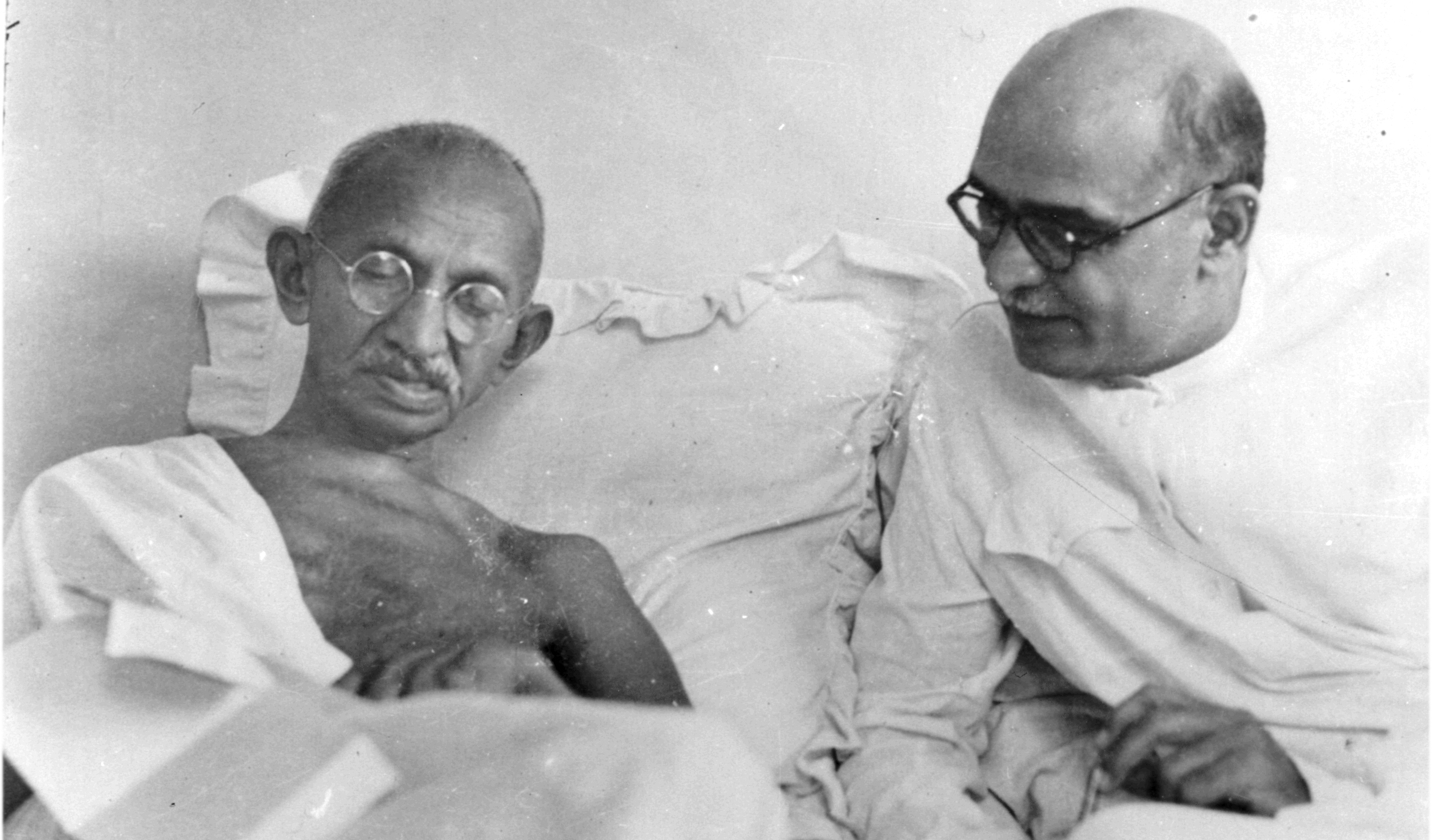
1932 Caste, Gandhi and the Man Beside Gandhi -
1933 - 1991 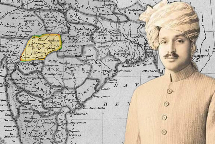
1933 - 1991 Raghubir Sinh: The Prince Who Would Be Historian -
1935 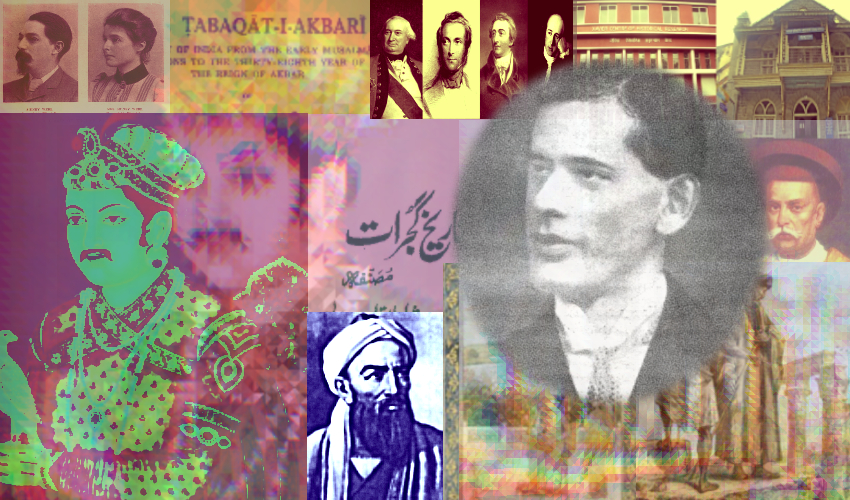
1935 A Historian Recommends: SA Khan’s Timeless Presidential Address -
1865-1928 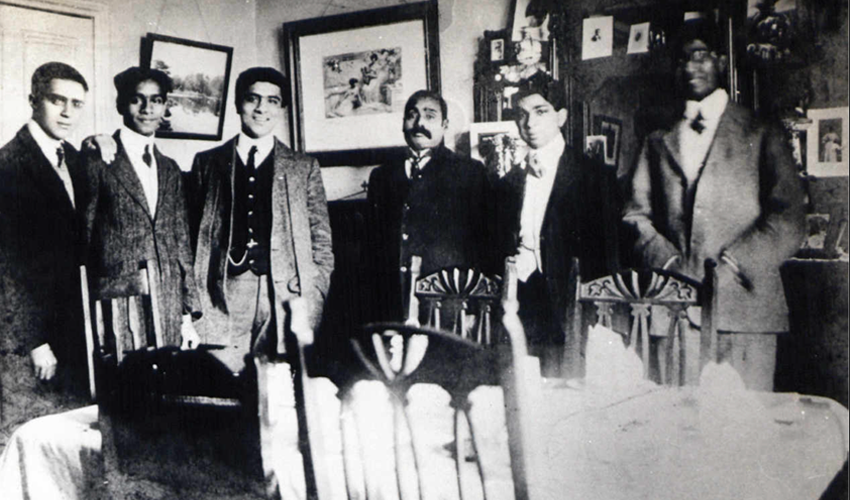
1865-1928 Understanding Lajpat Rai’s Hindu Politics and Secularism -
1935 Modern Review 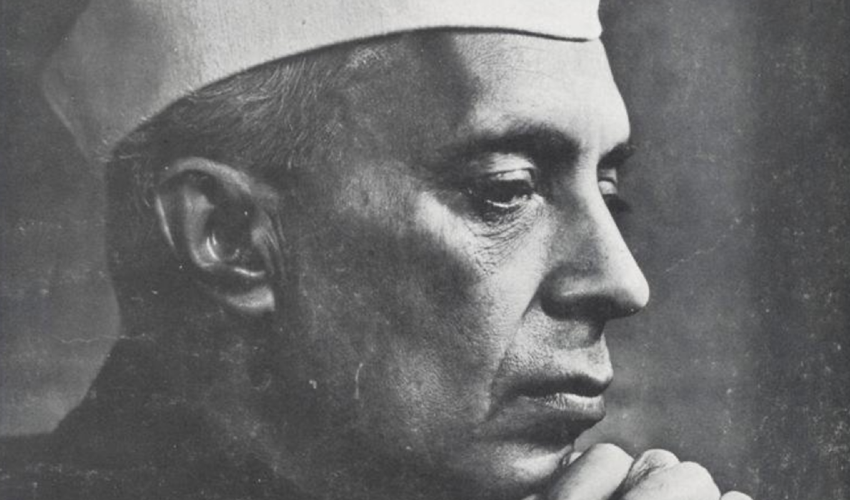
1935 The Modern Review Special: The Mind of a Judge -
1936 Modern Review 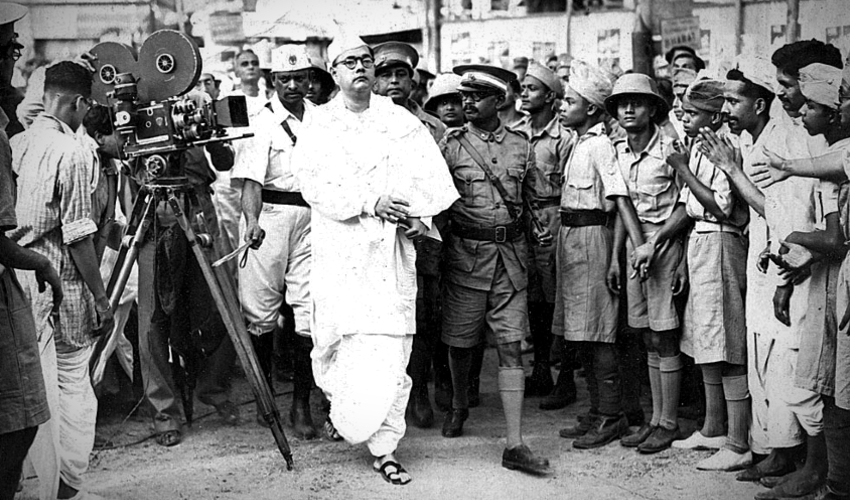
1936 The Modern Review Special: When Netaji Subhas Bose Was Wrongfully Detained for ‘Terrorism’ -
1936 
1936 Annihilation of Caste: Part 1 -
1936 Modern Review 
1936 The Modern Review Special: An Indian MP in the British Parliament -
1936 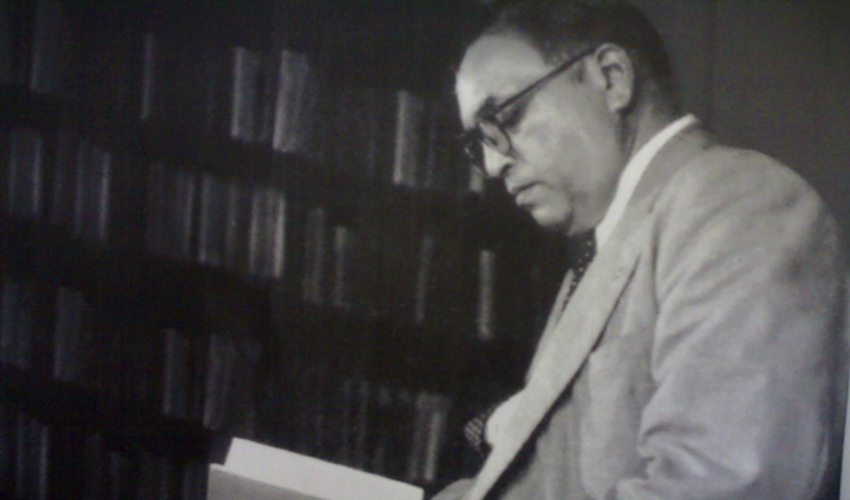
1936 Annihilation of Caste: Part 2 -
1936 
1936 A Reflection of His Age: Munshi Premchand on the True Purpose of Literature -
1936 Modern Review 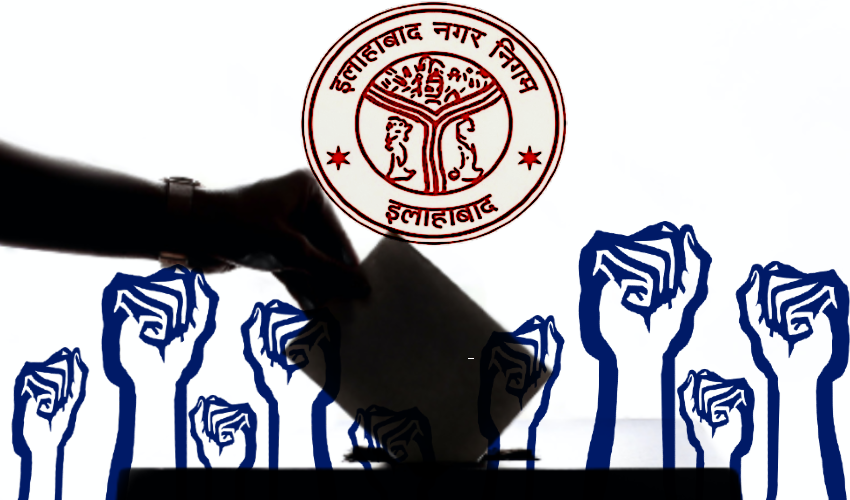
1936 The Modern Review Special: The Defeat of a Dalit Candidate in a 1936 Municipal Election -
1937 Modern Review 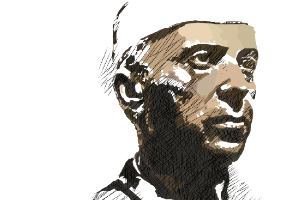
1937 The Modern Review Special: Rashtrapati -
1938 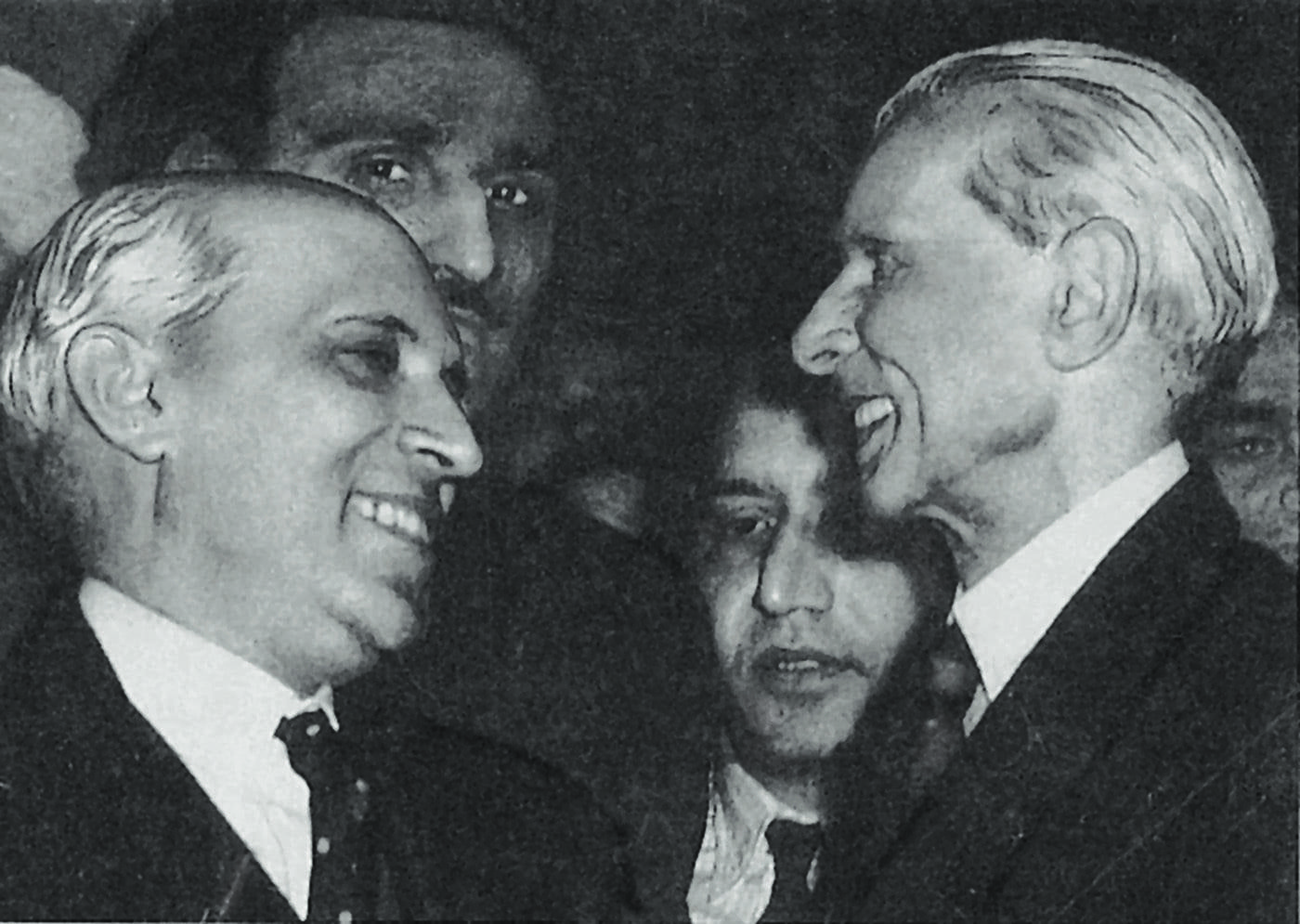
1938 Great Debates: Nehru Vs. Jinnah (1938) -
1942 Modern Review 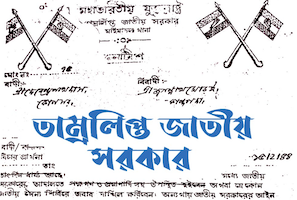
1942 IHC Uncovers: A Parallel Government In British India (Part 1) -
1943-1945 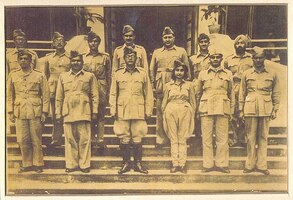
1943-1945 Origin Of The Azad Hind Fauj -
1942-1945 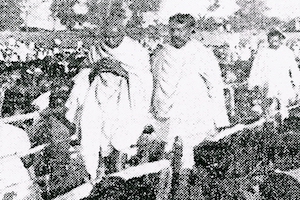
1942-1945 IHC Uncovers: A Parallel Government in British India (Part 2) -
1946 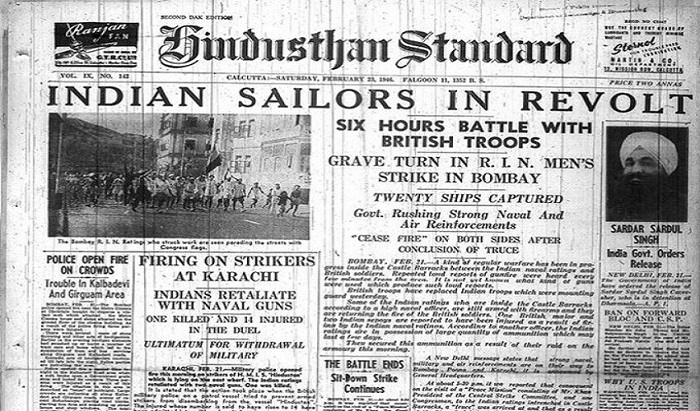
1946 Our Last War of Independence: The Royal Indian Navy Mutiny of 1946 -
1946 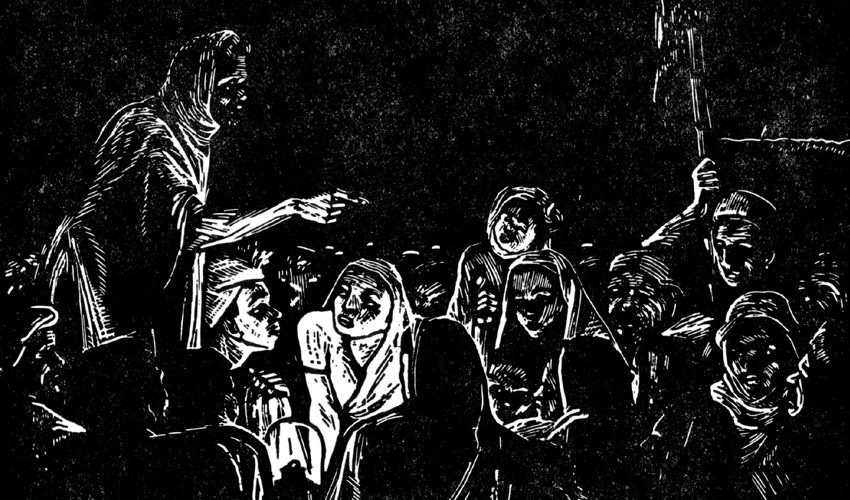
1946 An Artist’s Account of the Tebhaga Movement in Pictures And Prose -
1946 – 1947 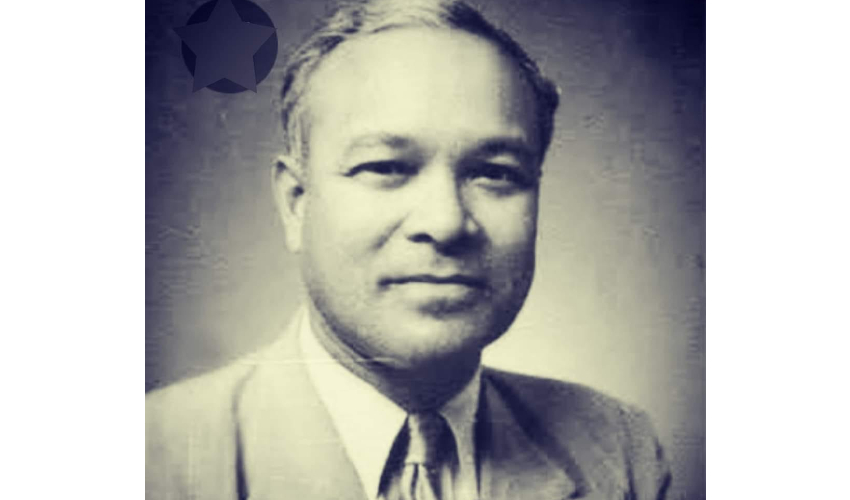
1946 – 1947 “The Most Democratic People on Earth” : An Adivasi Voice in the Constituent Assembly -
1946-1947 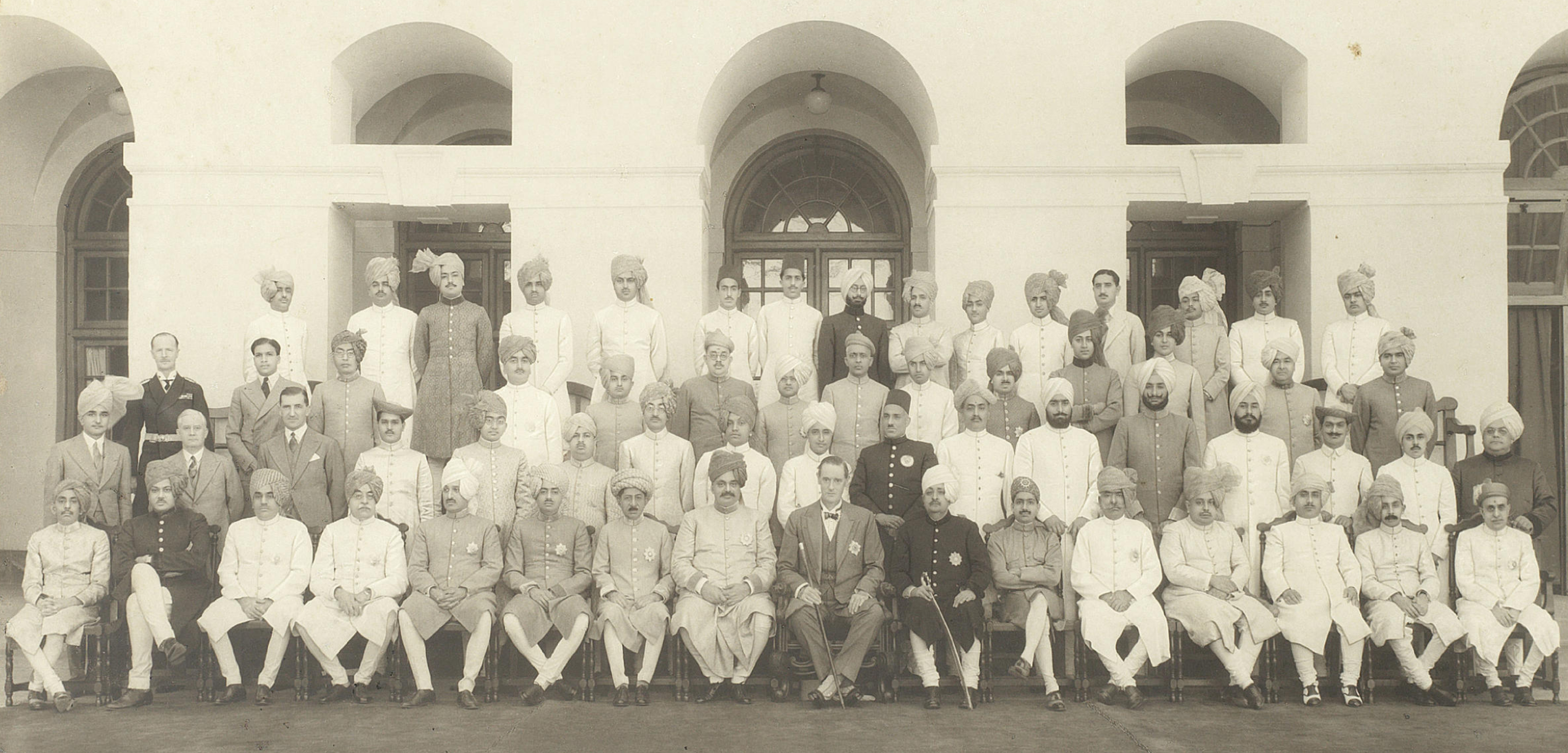
1946-1947 VP Menon and the Birth of Independent India -
1916 - 1947 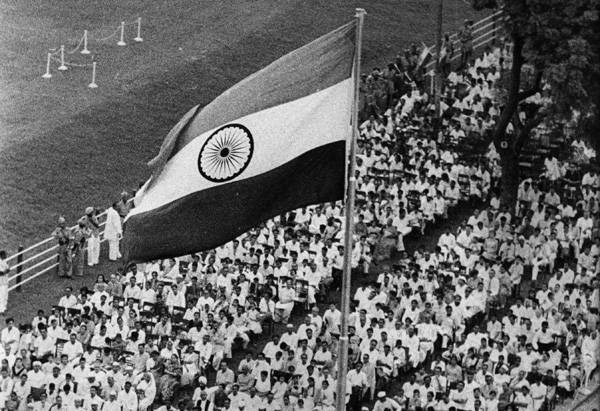
1916 - 1947 8 @ 75: 8 Speeches Independent Indians Must Read -
1947-1951 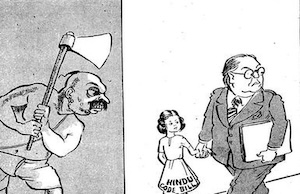
1947-1951 Ambedkar Cartoons: The Joke’s On Us -
1948 
1948 “My Father, Do Not Rest” -
1940-1960 
1940-1960 Integration Myth: A Silenced History of Hyderabad -
1948 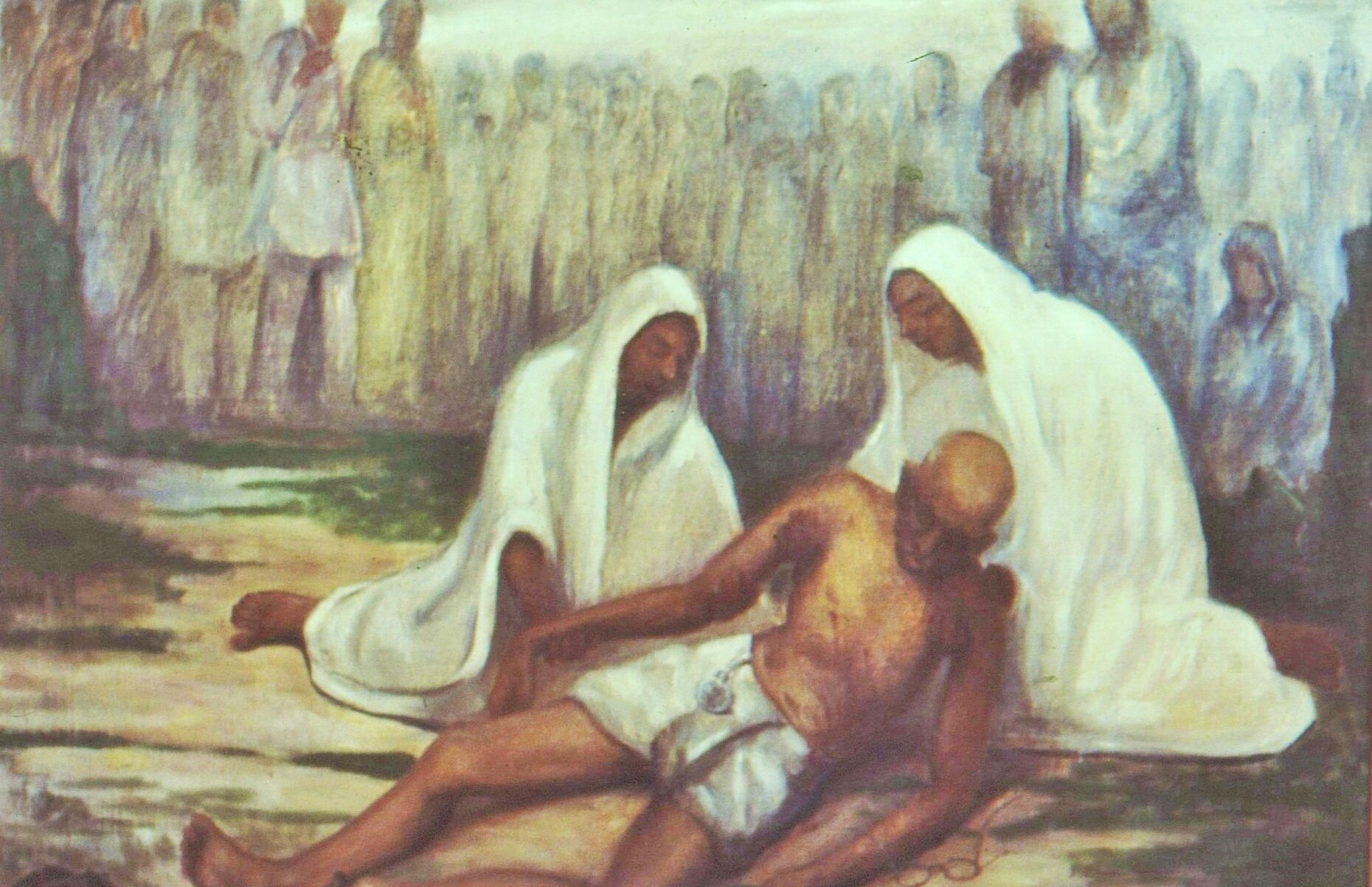
1948 The Assassination of a Mahatma, the Princely States and the ‘Hindu’ Nation -
1949 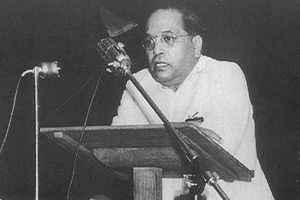
1949 Ambedkar warns against India becoming a ‘Democracy in Form, Dictatorship in Fact’ -
1950 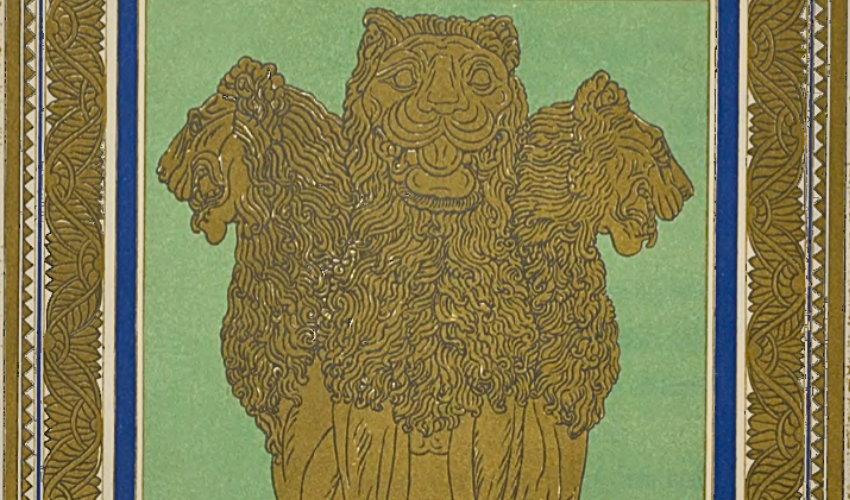
1950 Illustrations from the constitution -
1951 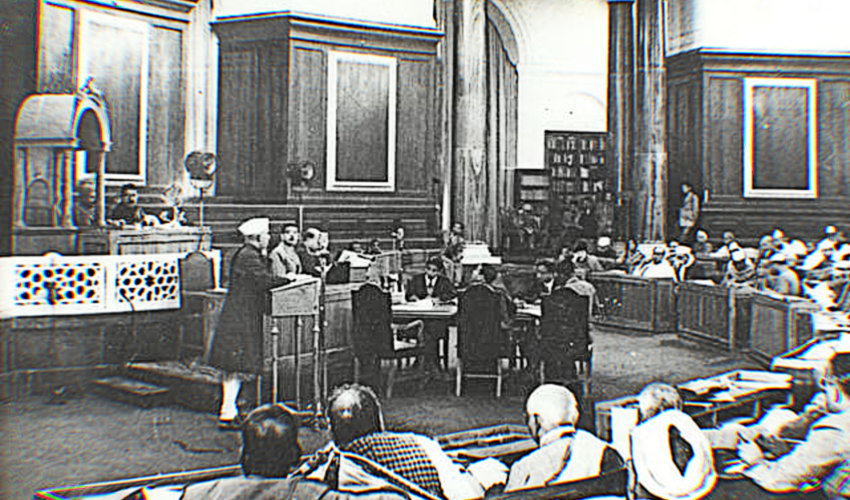
1951 How the First Amendment to the Indian Constitution Circumscribed Our Freedoms & How it was Passed -
1967 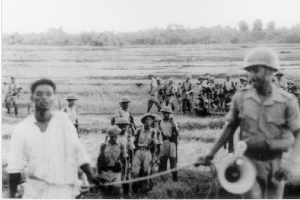
1967 Once Upon A Time In Naxalbari -
1970 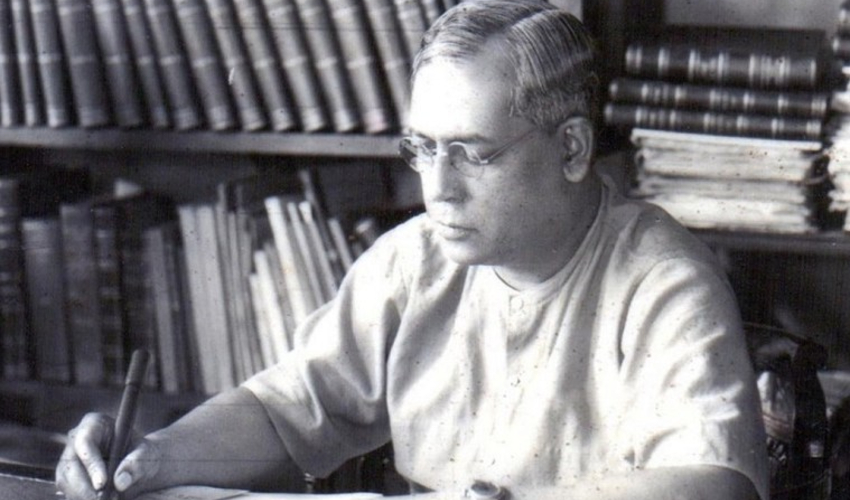
1970 R.C. Majumdar on Shortcomings in Indian Historiography -
1973 - 1993 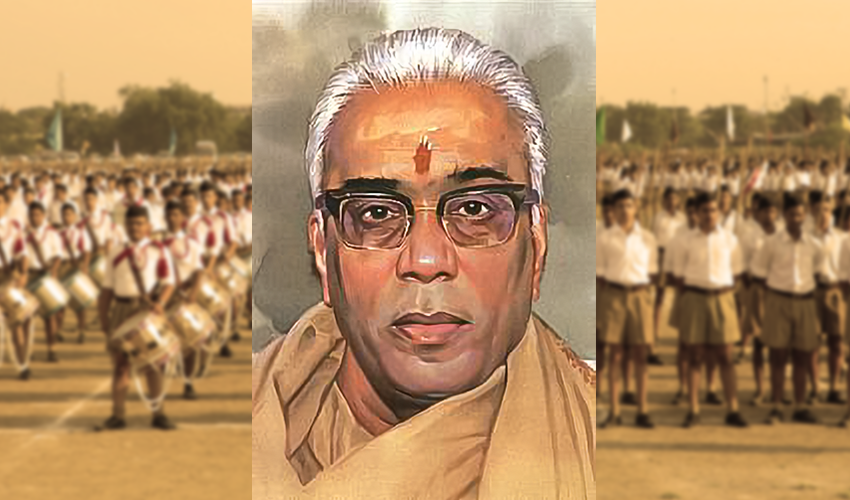
1973 - 1993 Balasaheb Deoras: Kingmaker of the Sangh -
1975 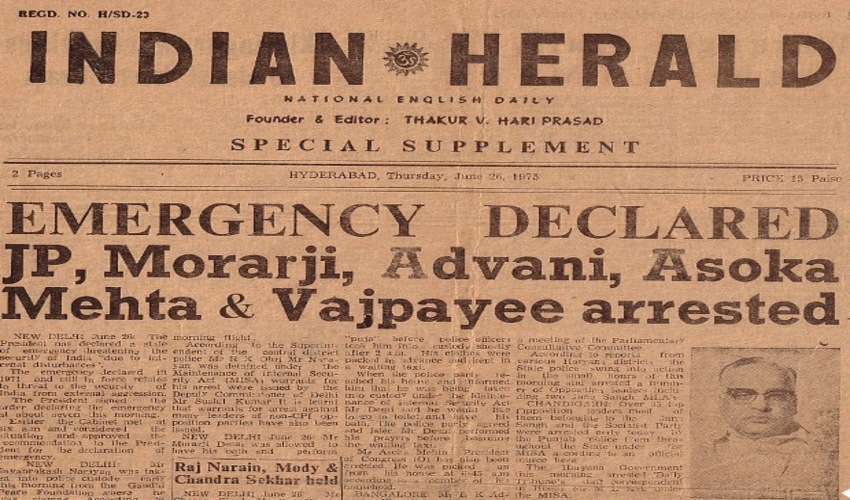
1975 The Emergency Package: Shadow Power -
1975 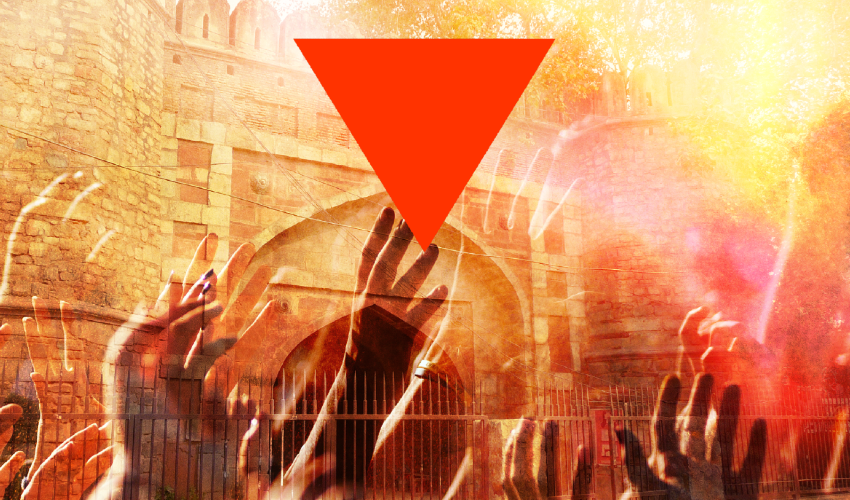
1975 The Emergency Package: The Prehistory of Turkman Gate – Population Control -
1977 – 2011 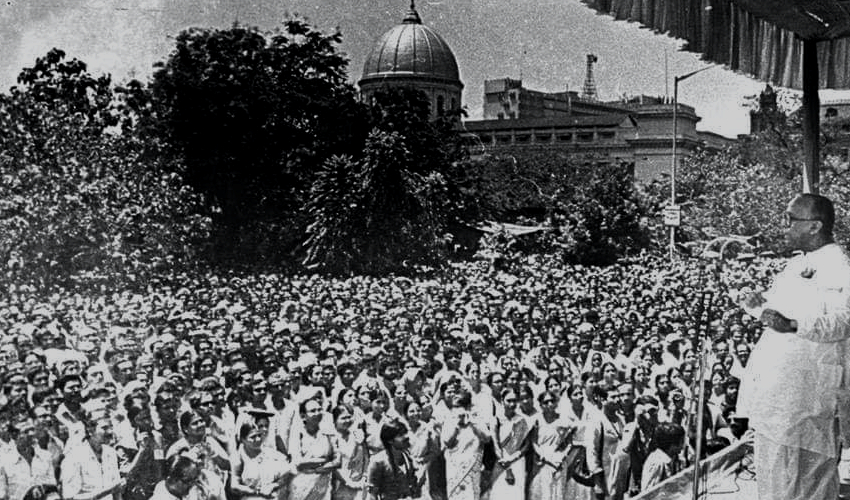
1977 – 2011 Power is an Unforgiving Mistress: Lessons from the Decline of the Left in Bengal -
1984 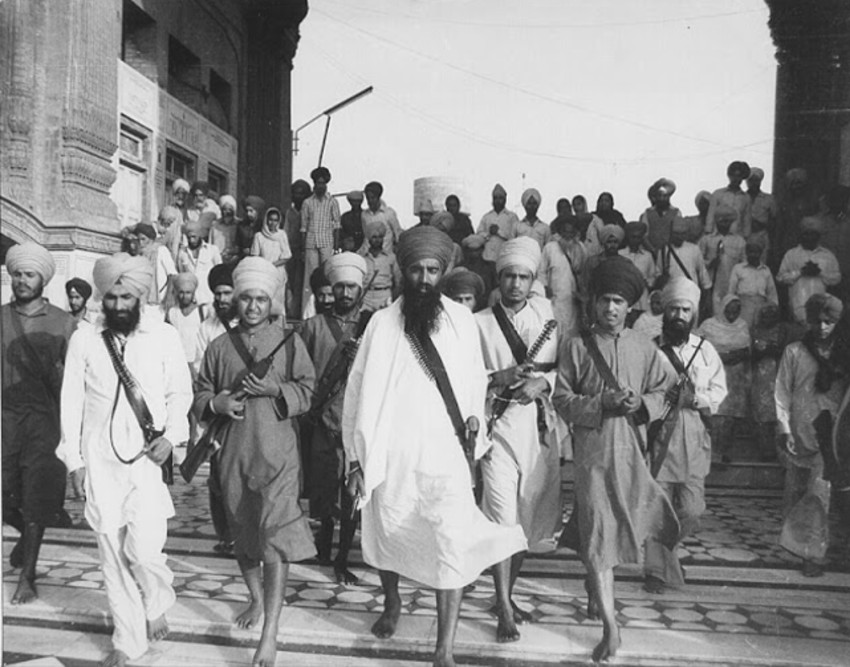
1984 Mrs Gandhi’s Final Folly: Operation Blue Star -
1916-2004 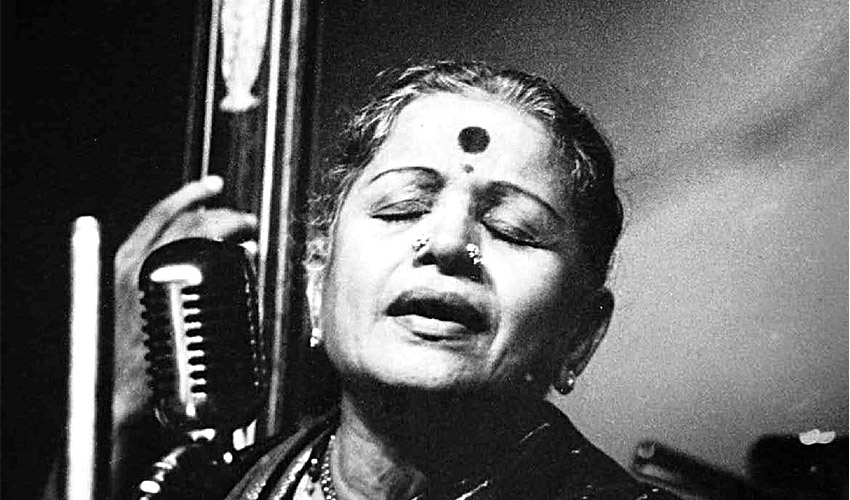
1916-2004 Amjad Ali Khan on M.S. Subbulakshmi: “A Glorious Chapter for Indian Classical Music” -
2008 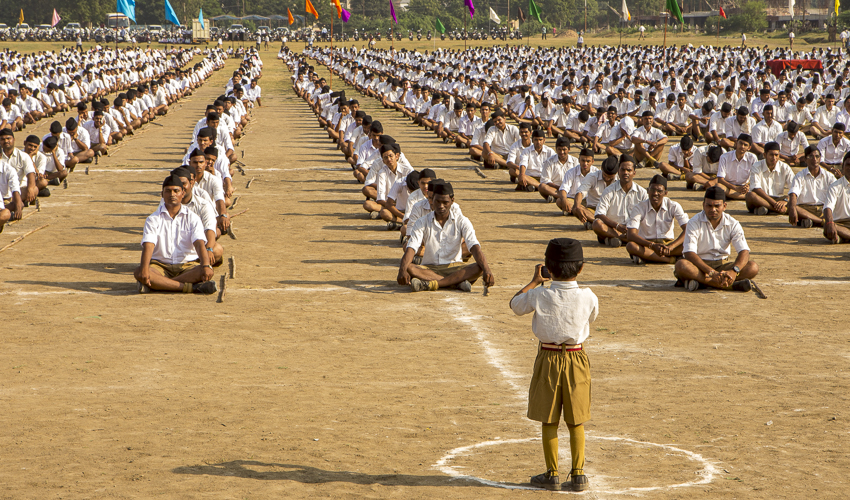
2008 Whose History Textbook Is It Anyway? -
2006 - 2009 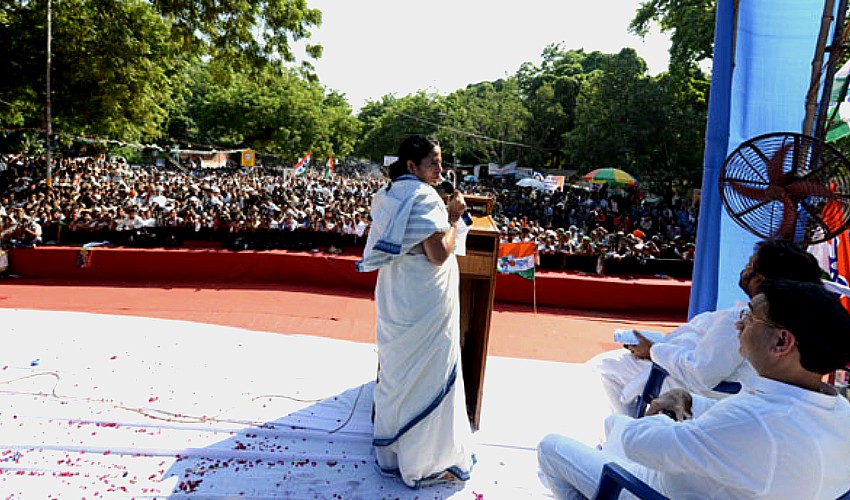
2006 - 2009 Singur-Nandigram-Lalgarh: Movements that Remade Mamata Banerjee -
2020 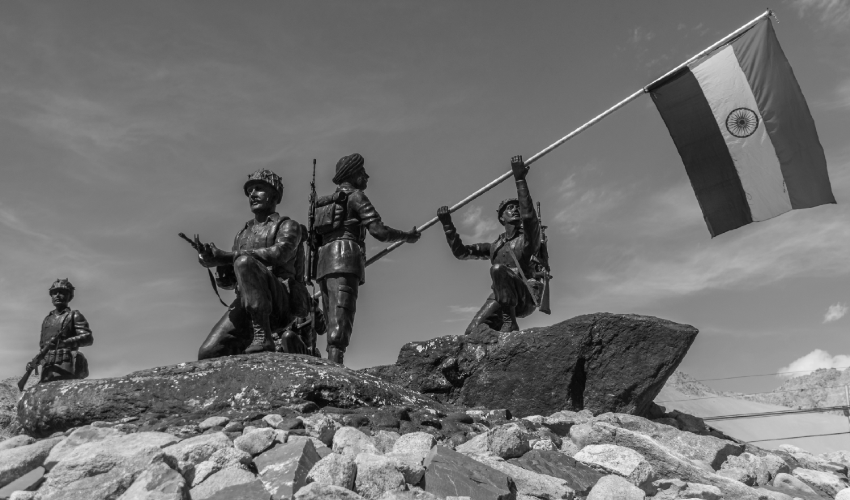
2020 The Indo-China Conflict: 10 Books We Need To Read -
2021 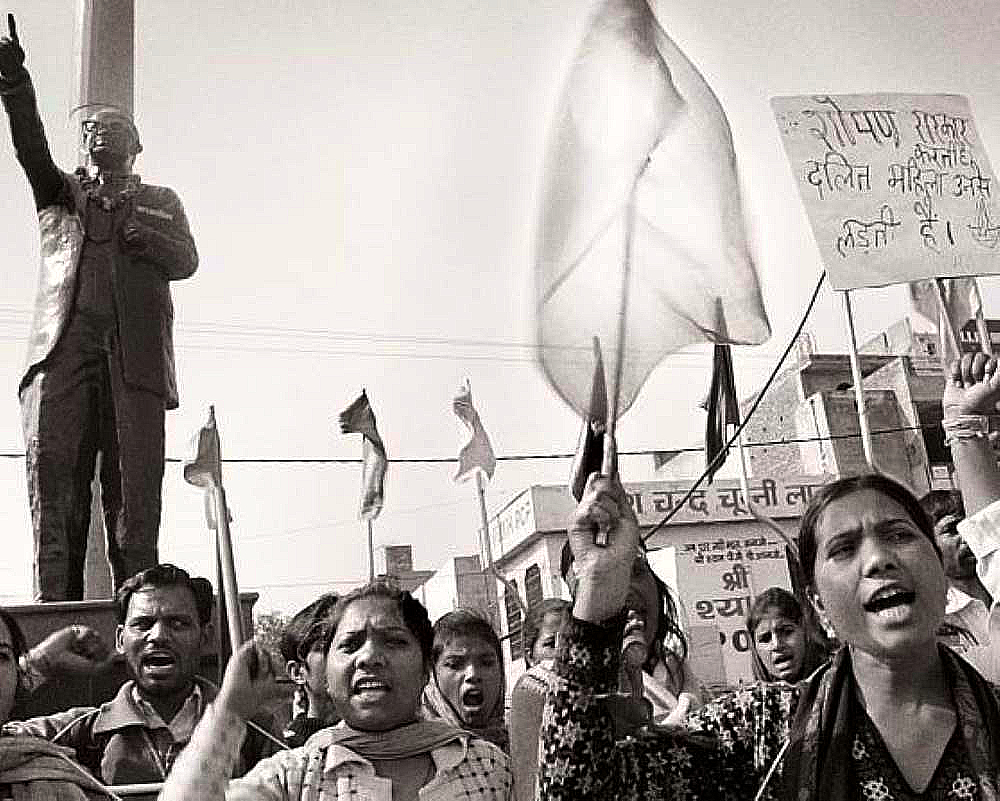
2021 Singing/Writing Liberation: Dalit Women’s Narratives


